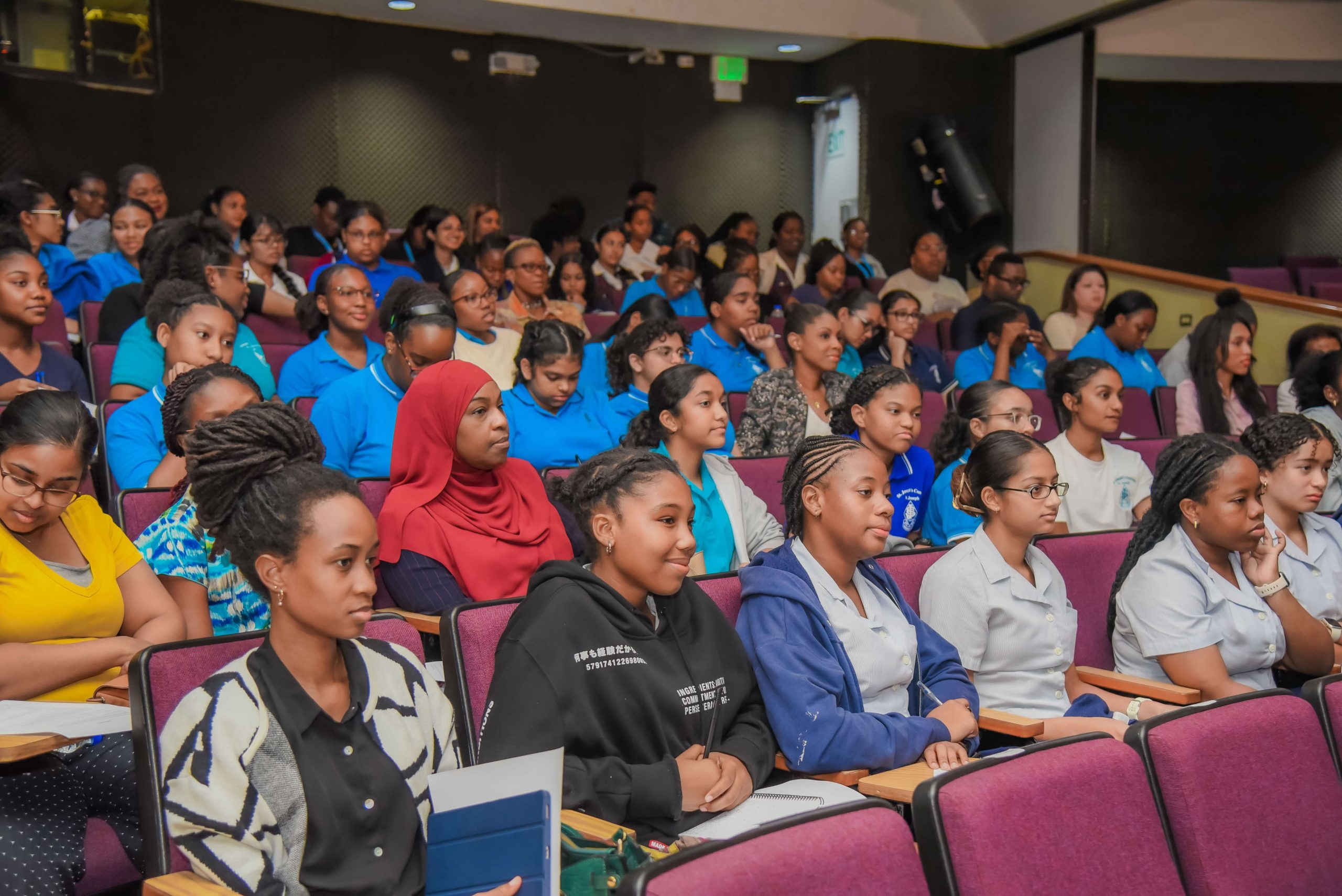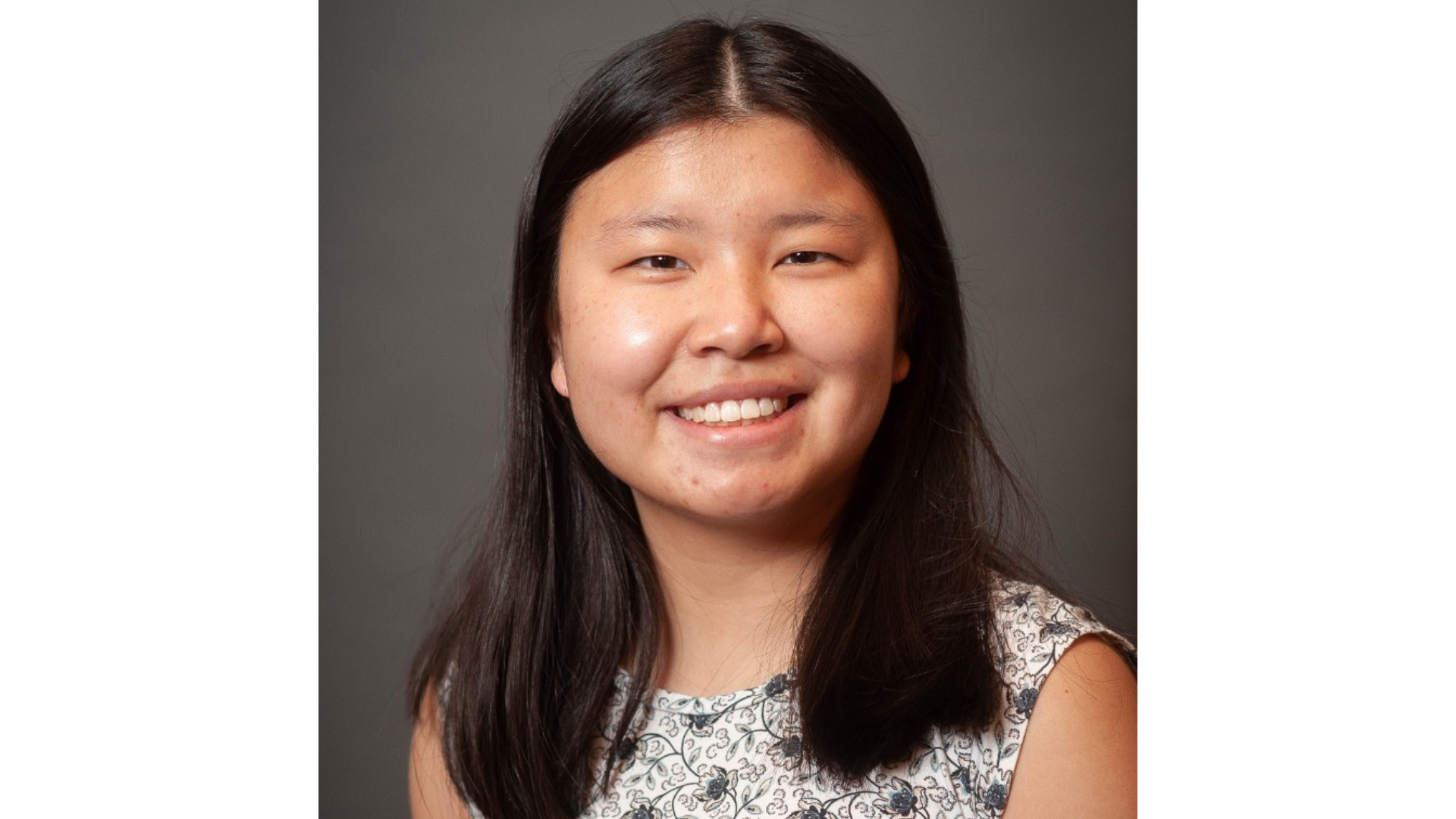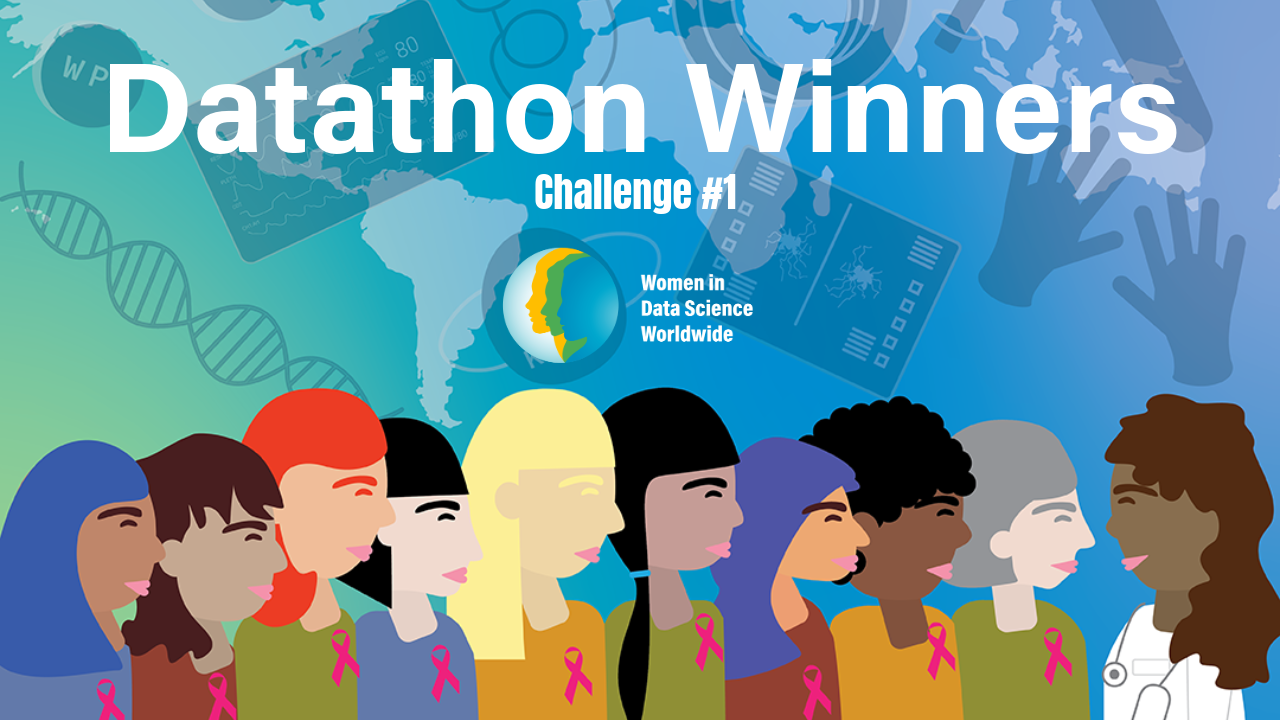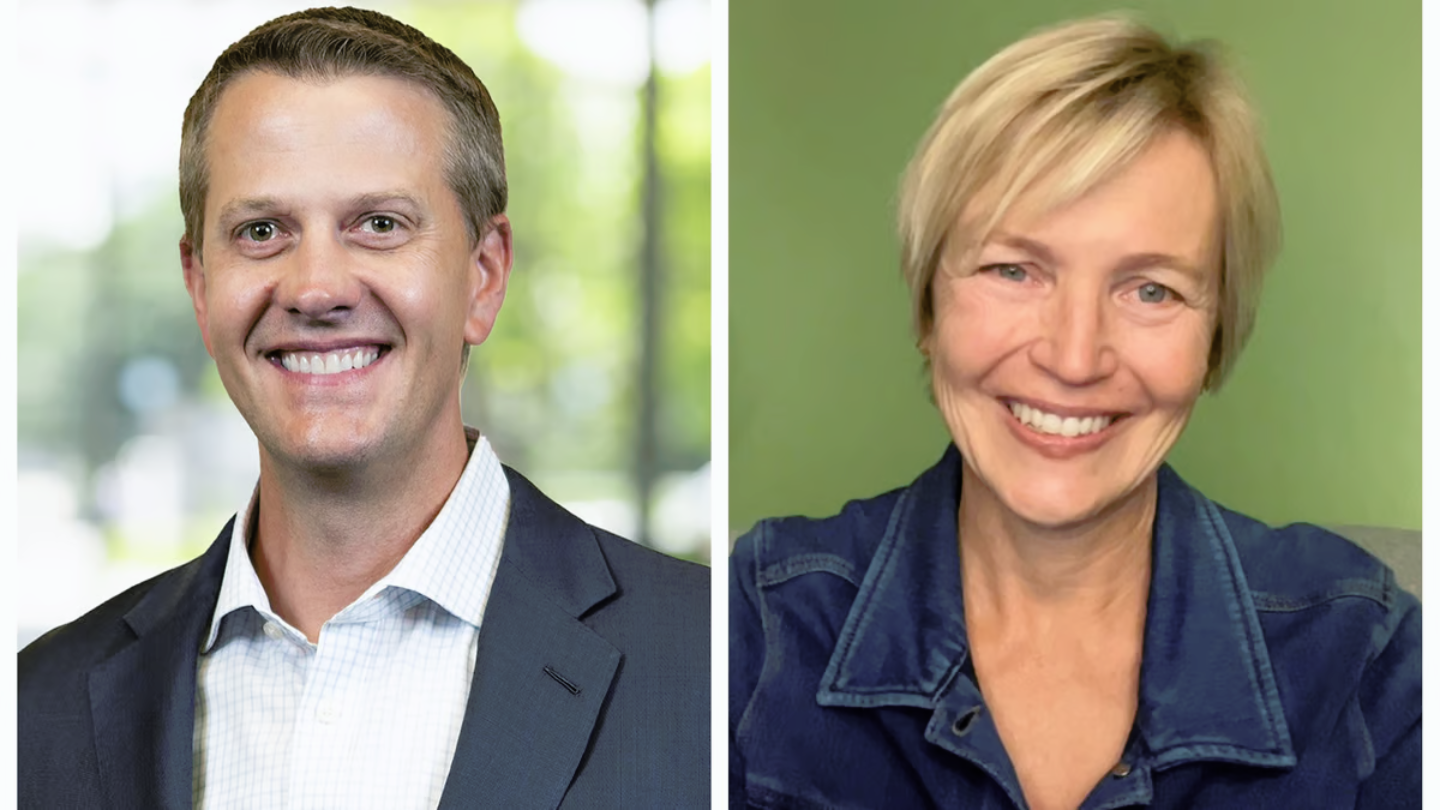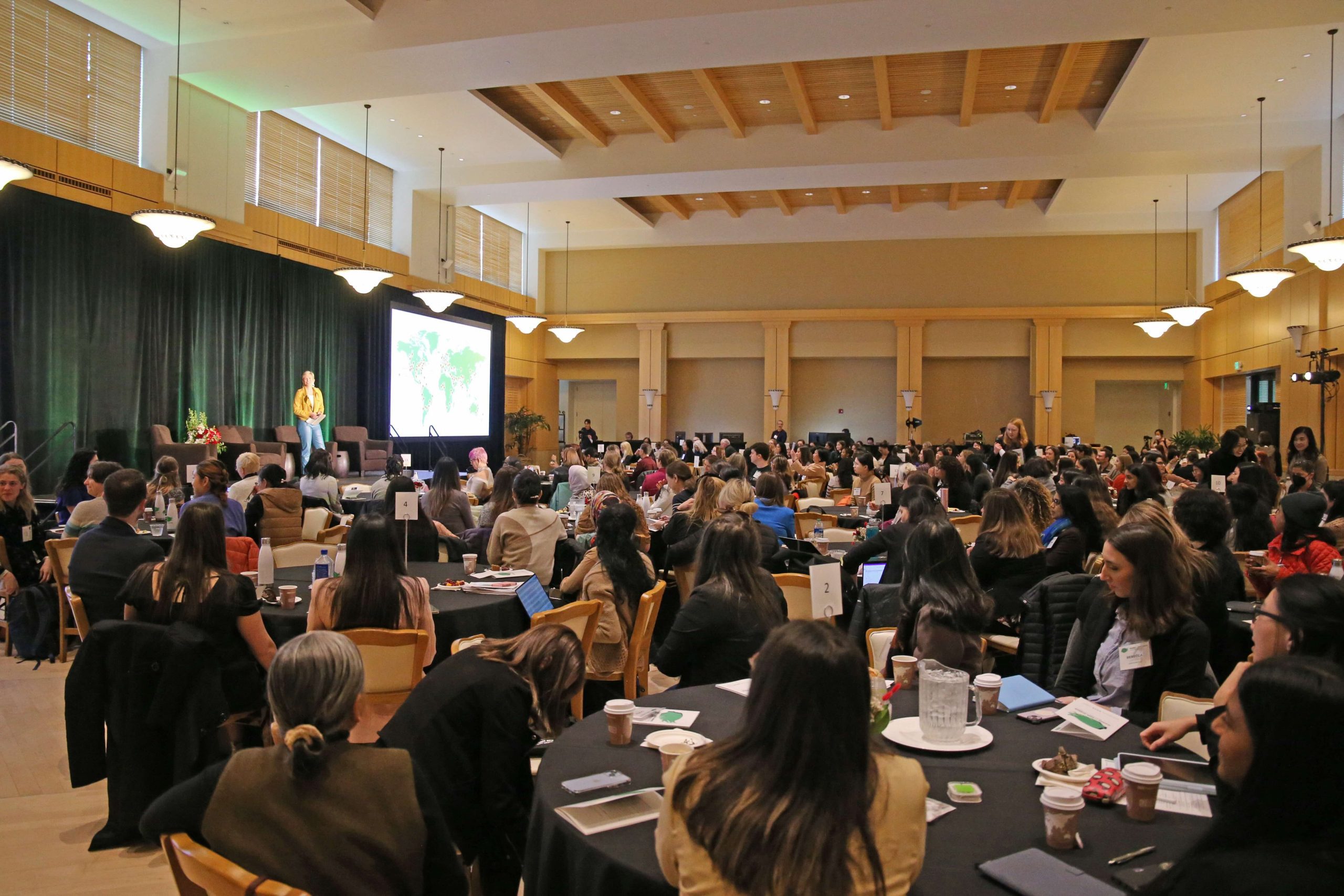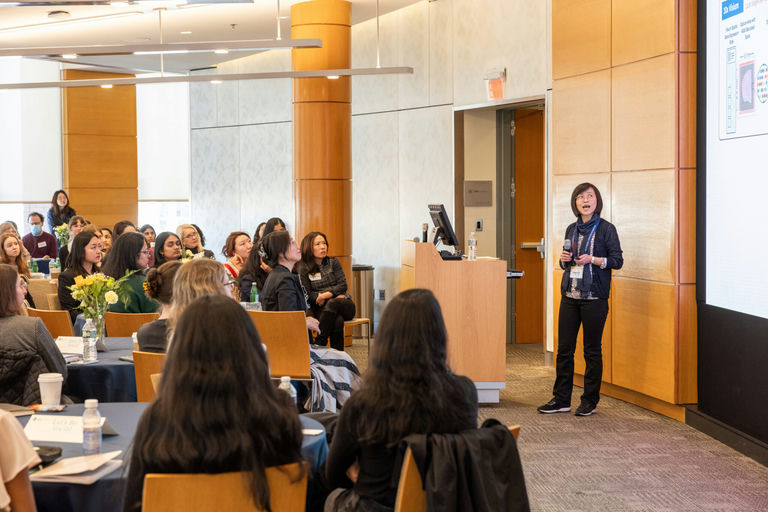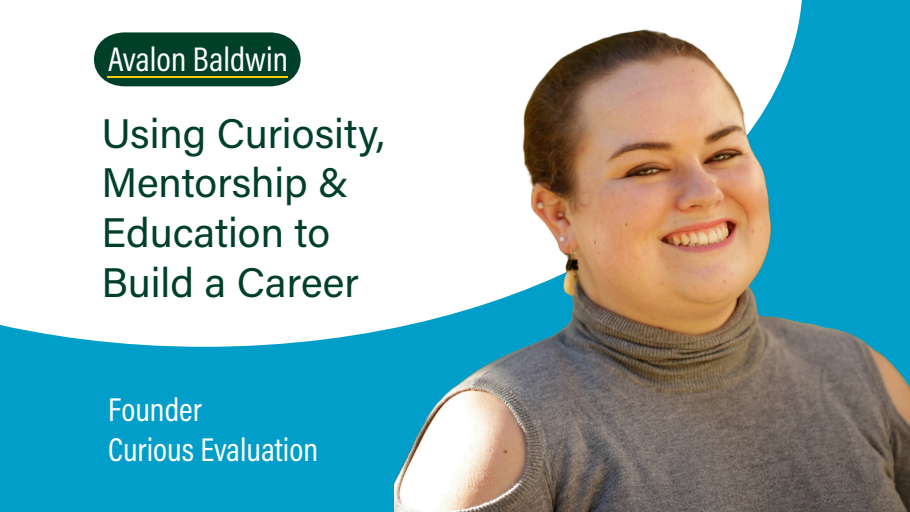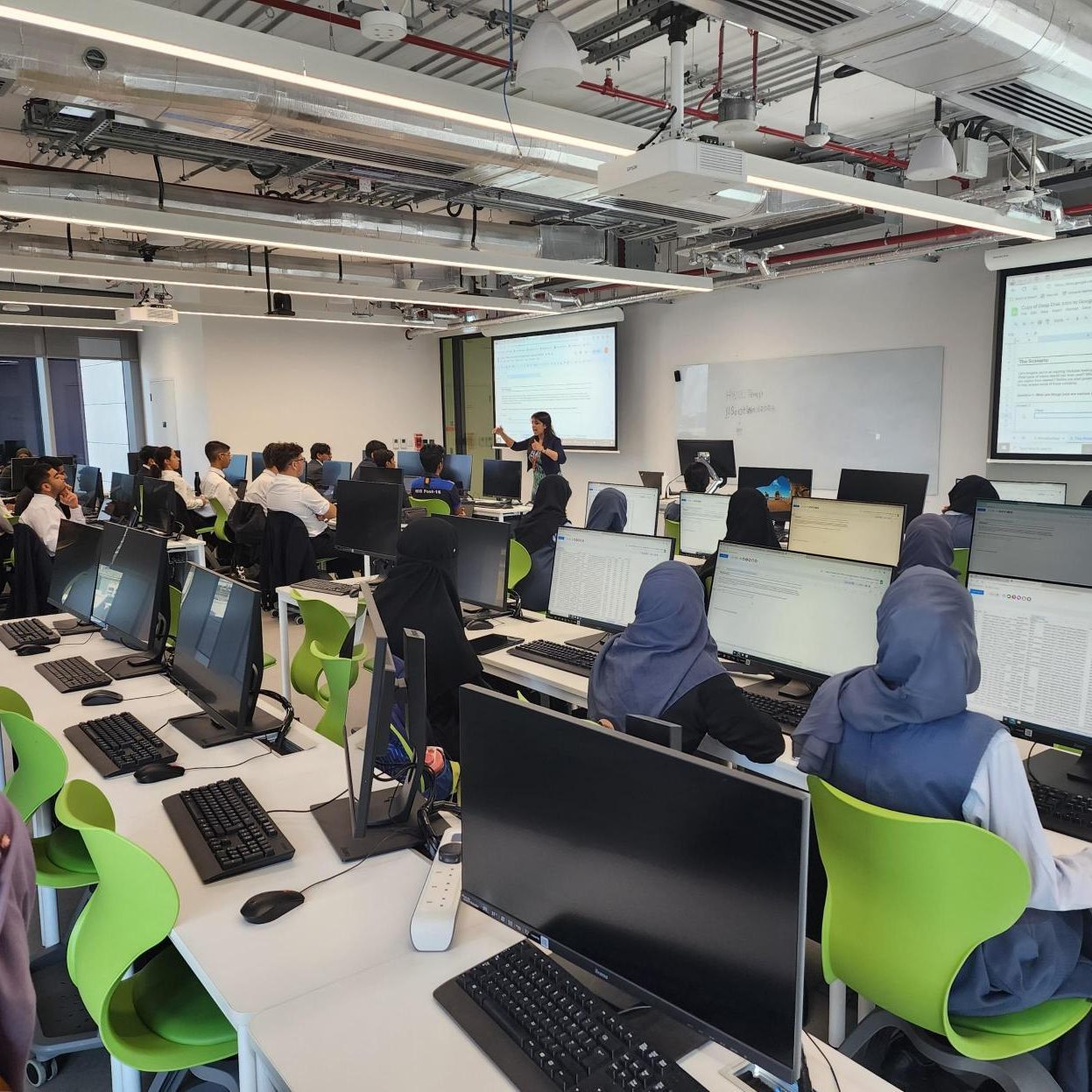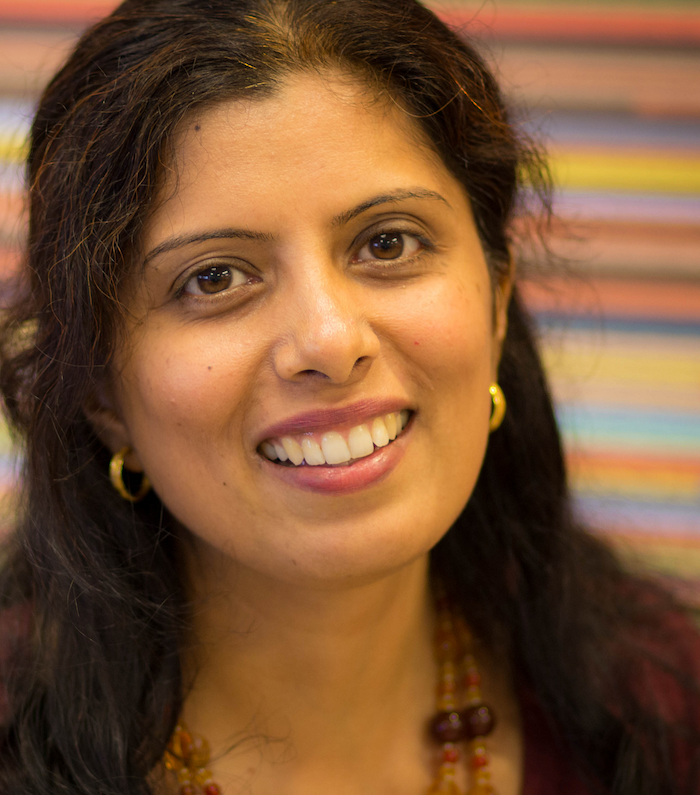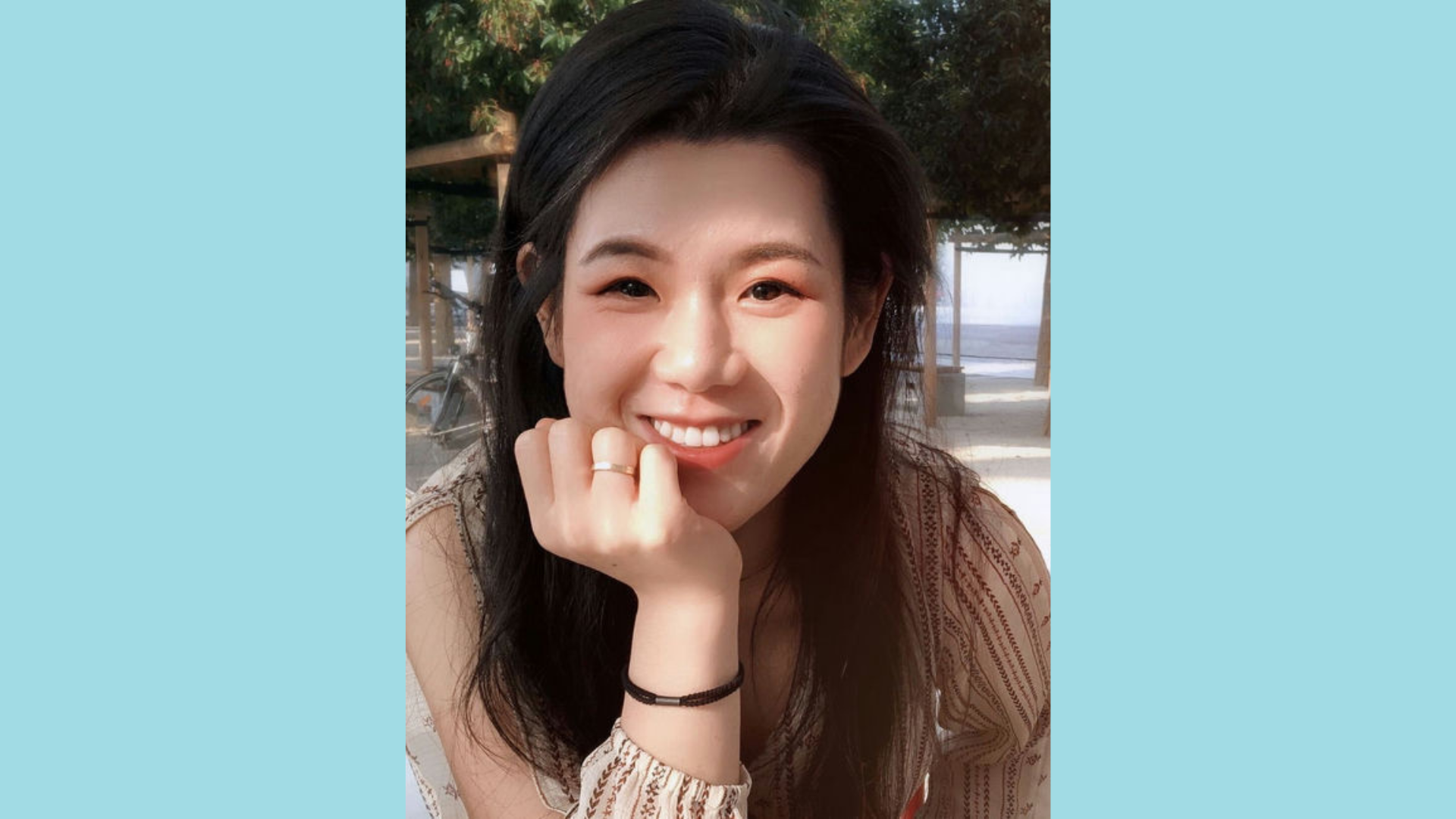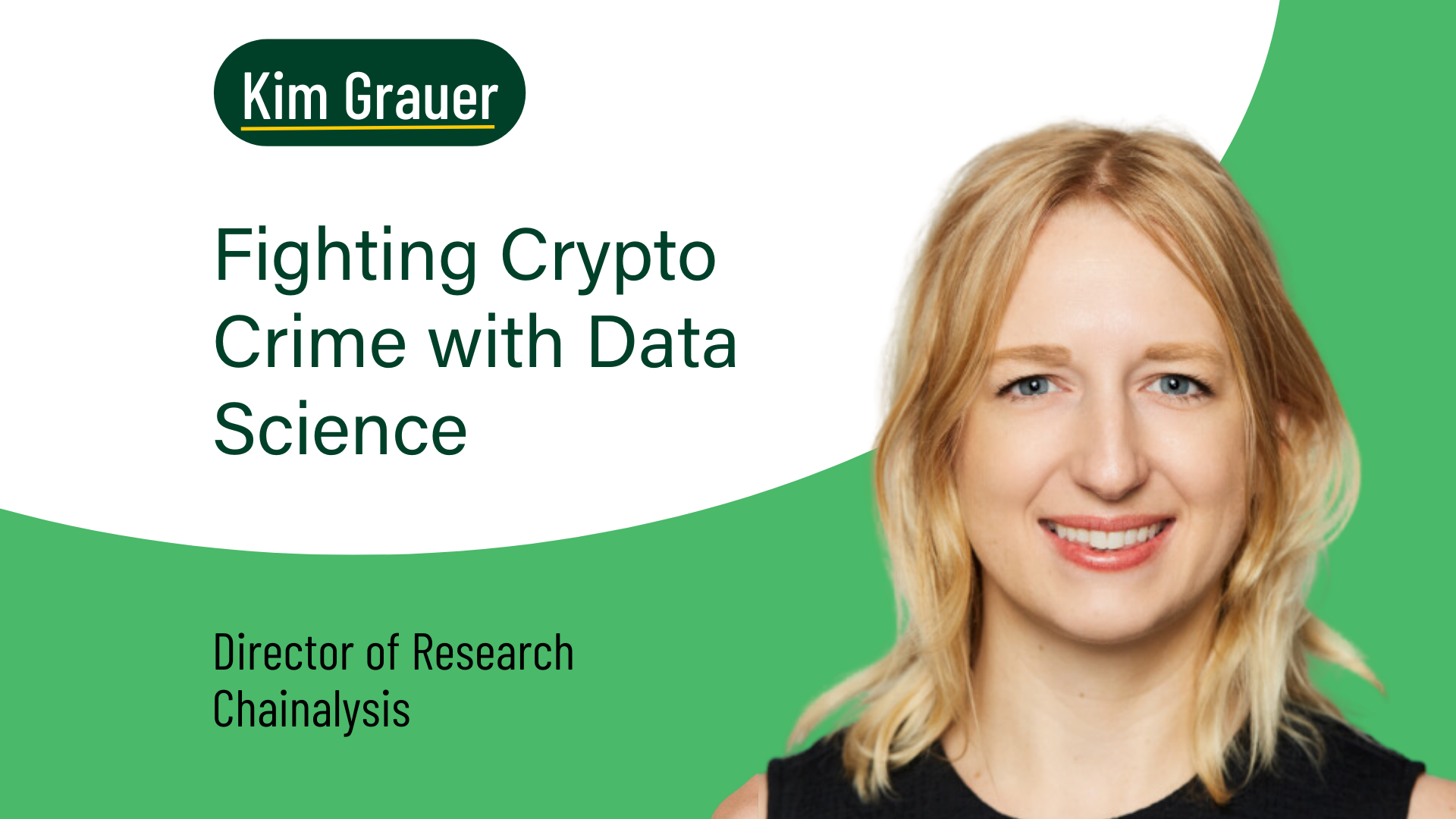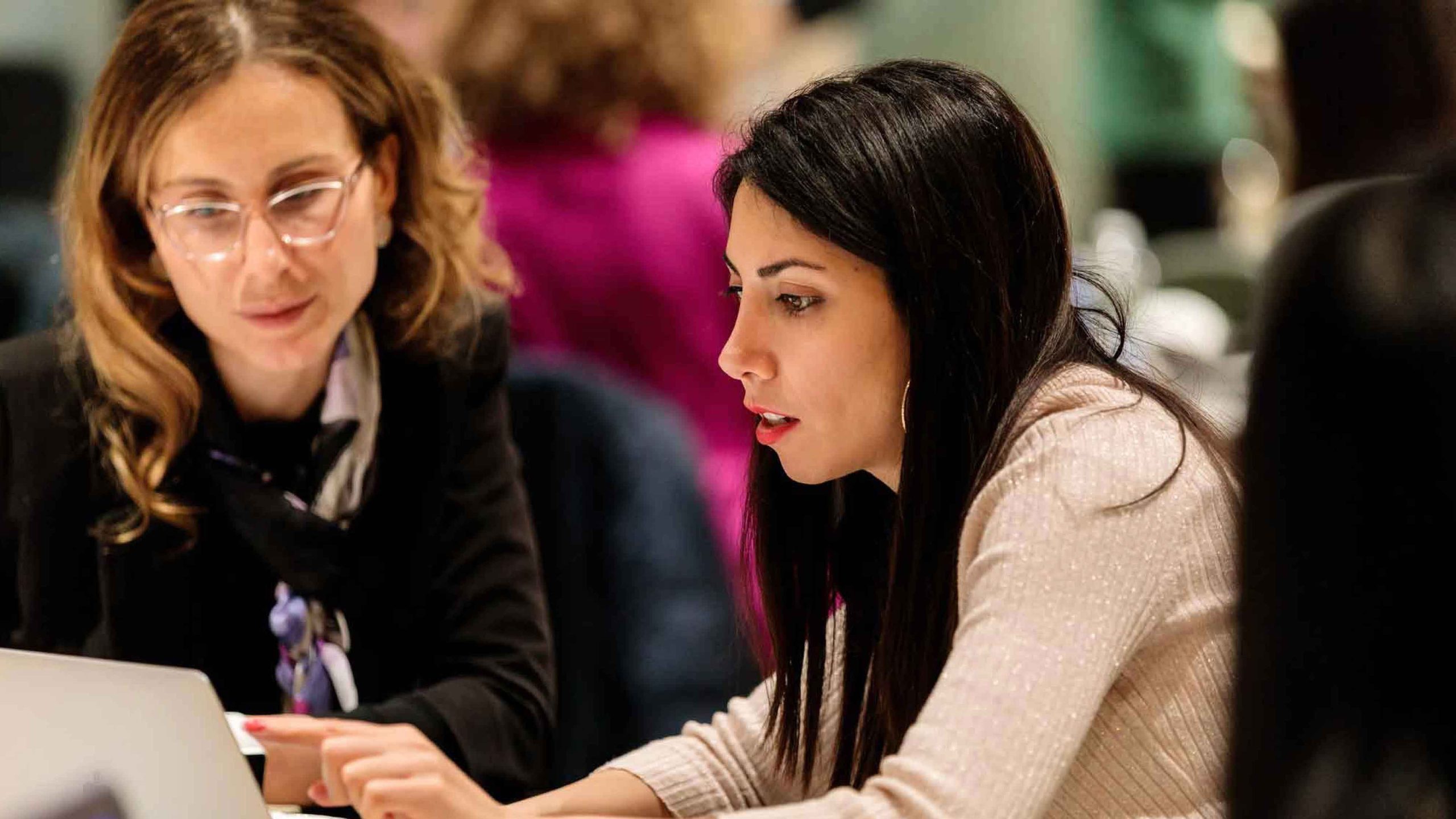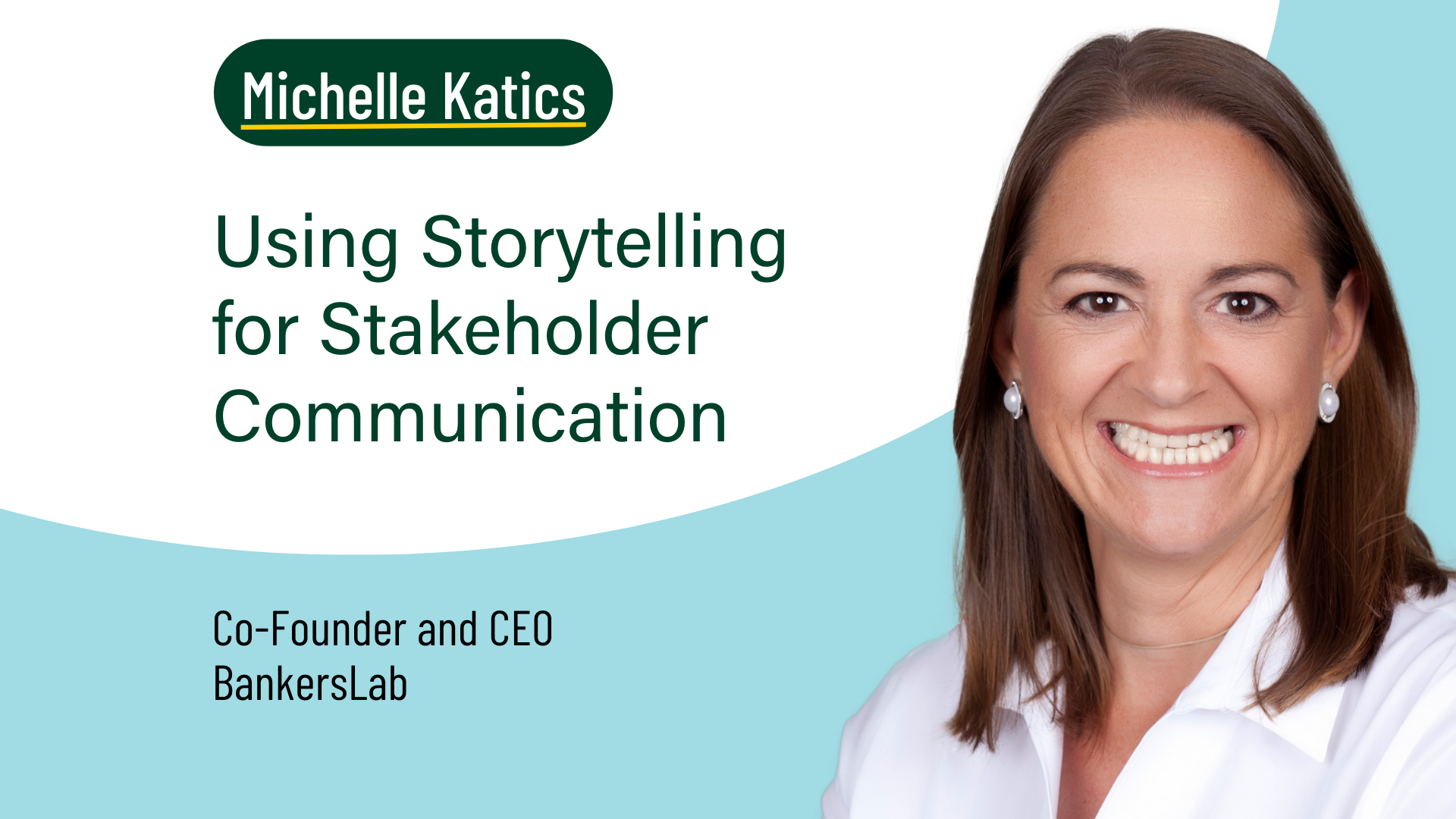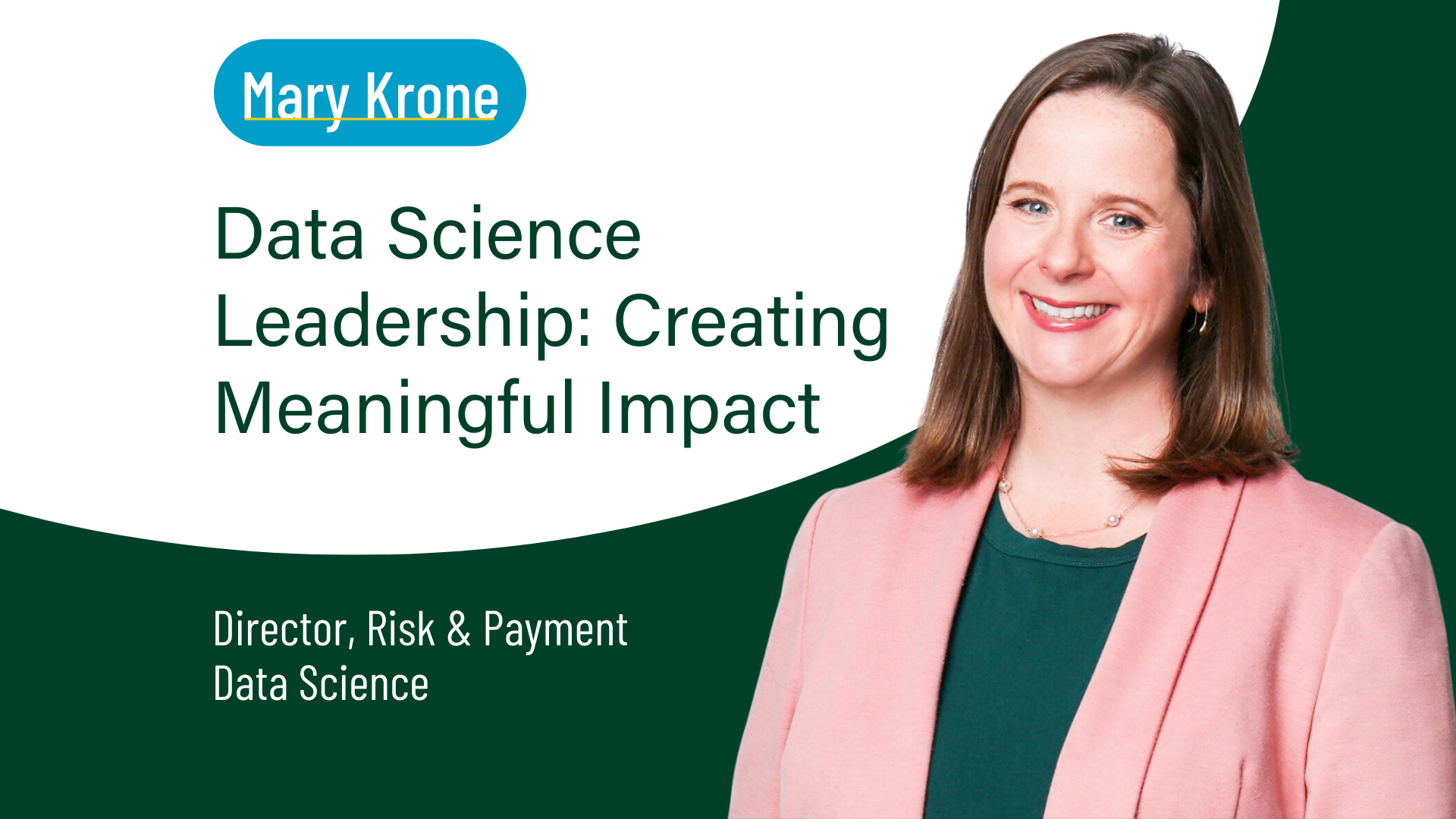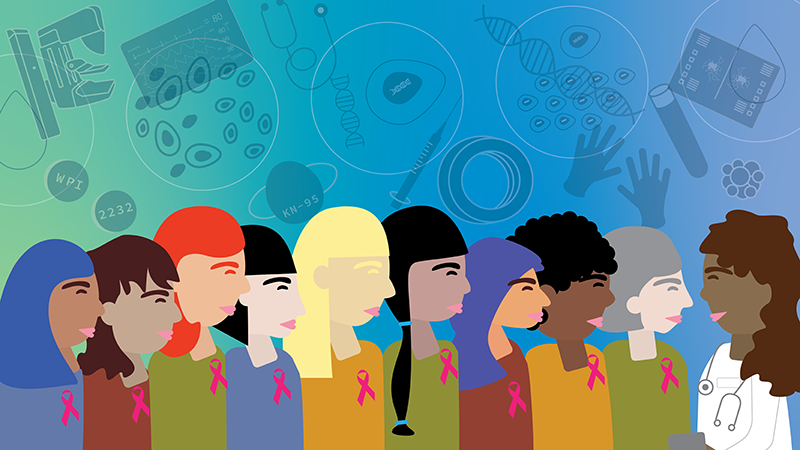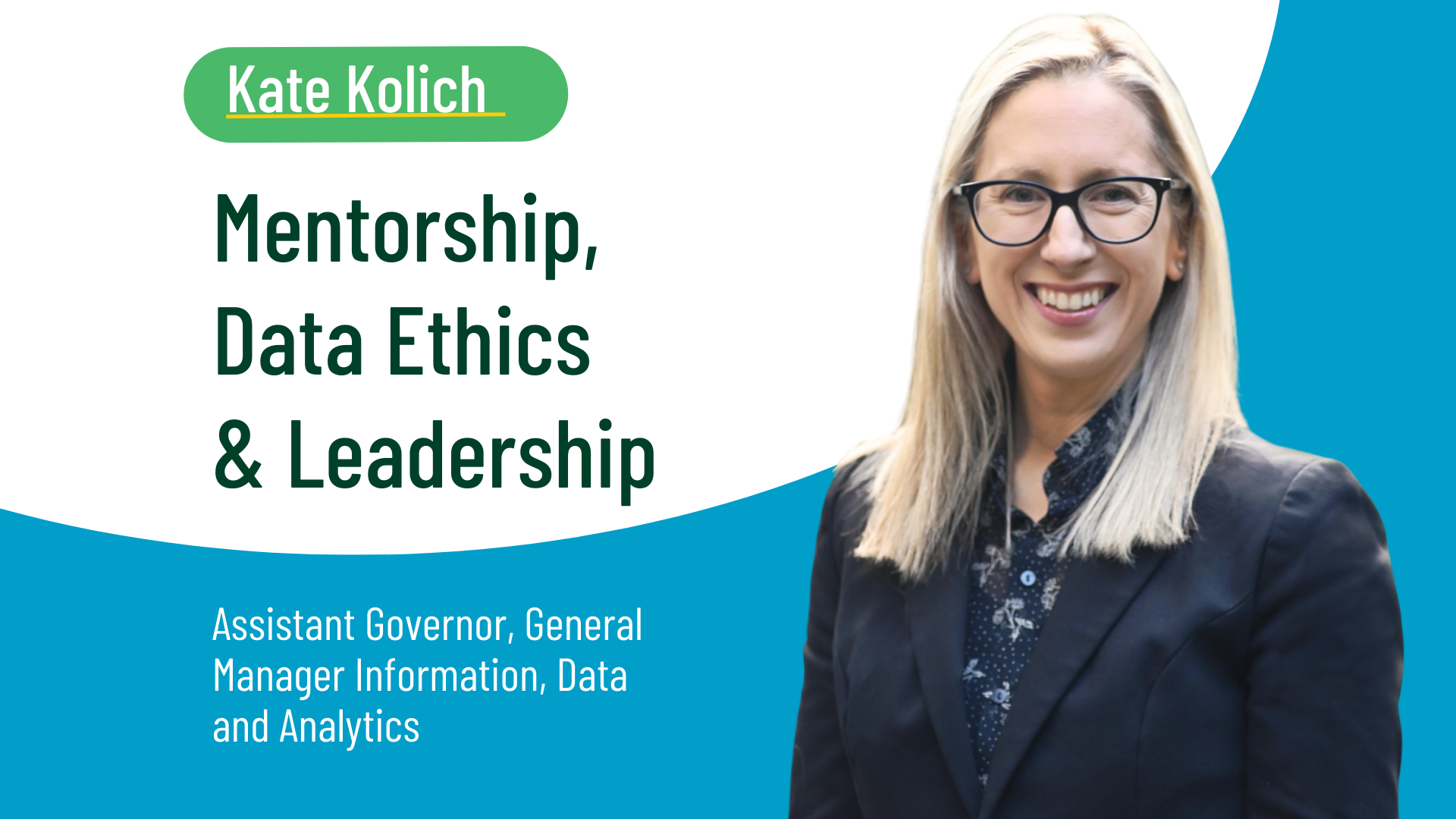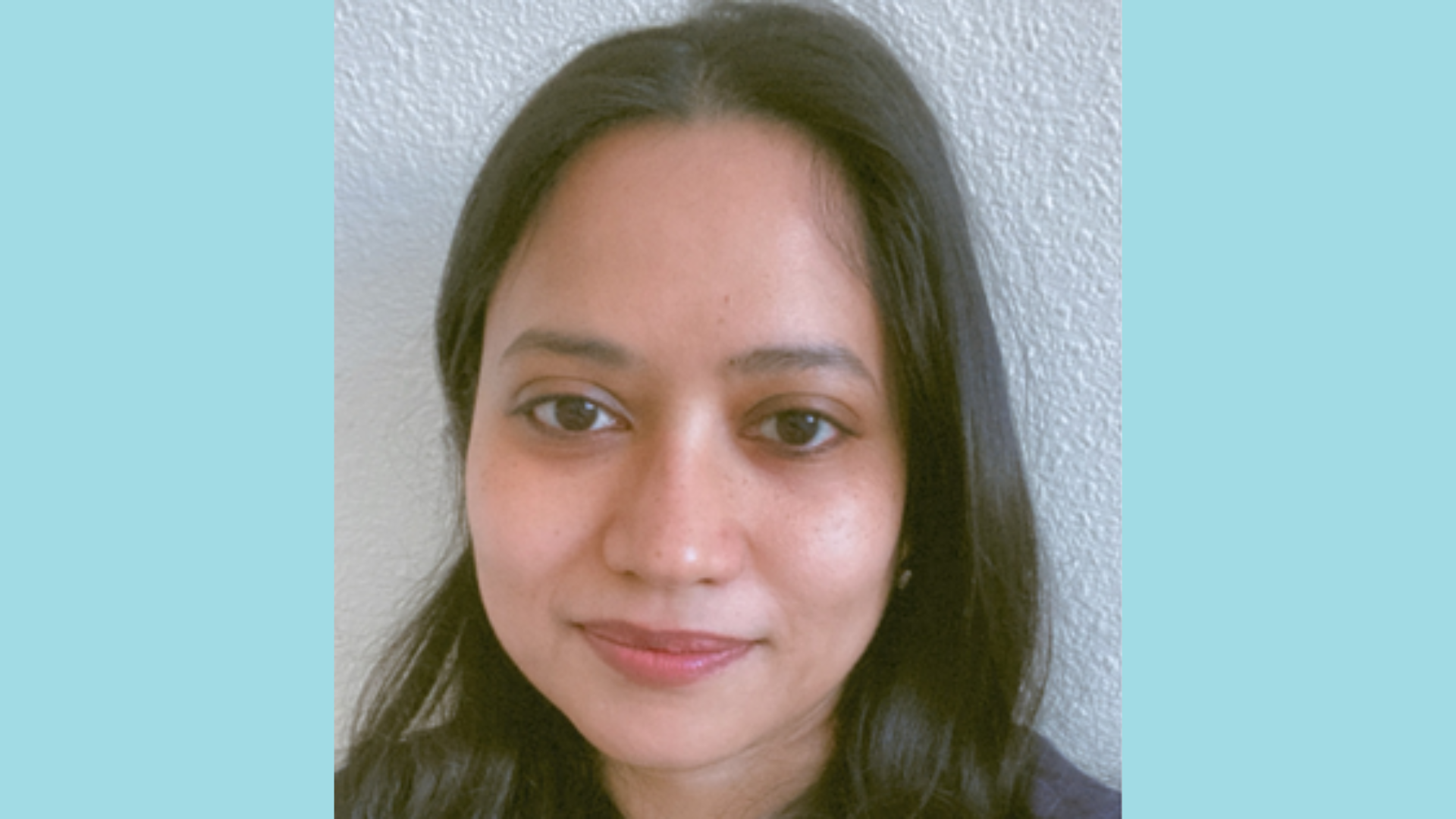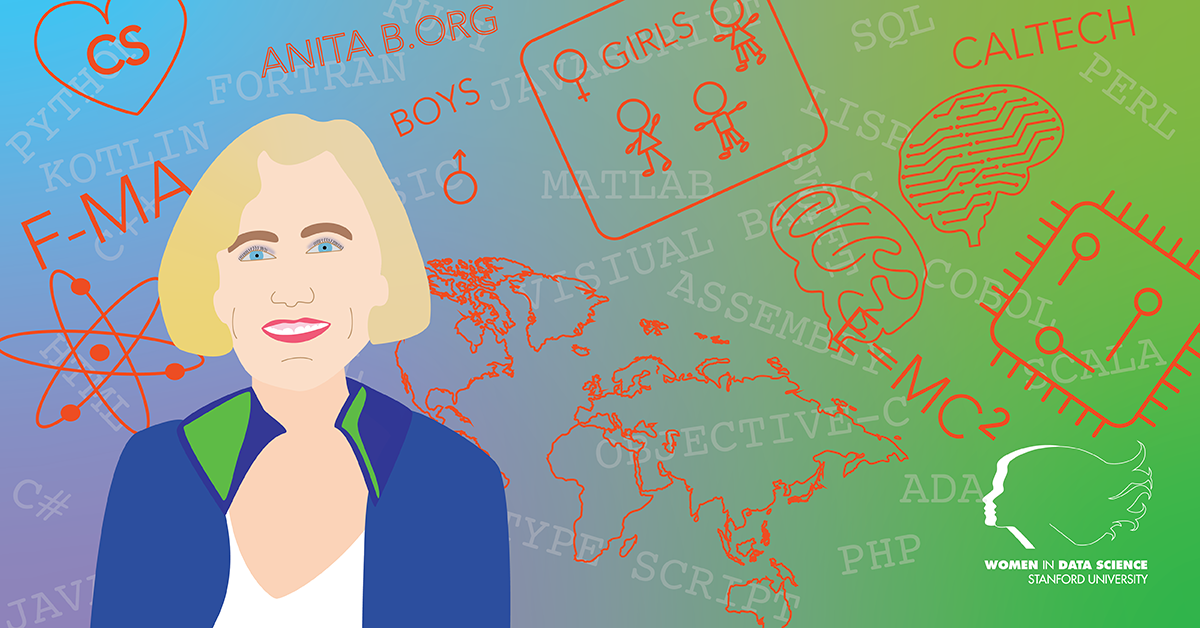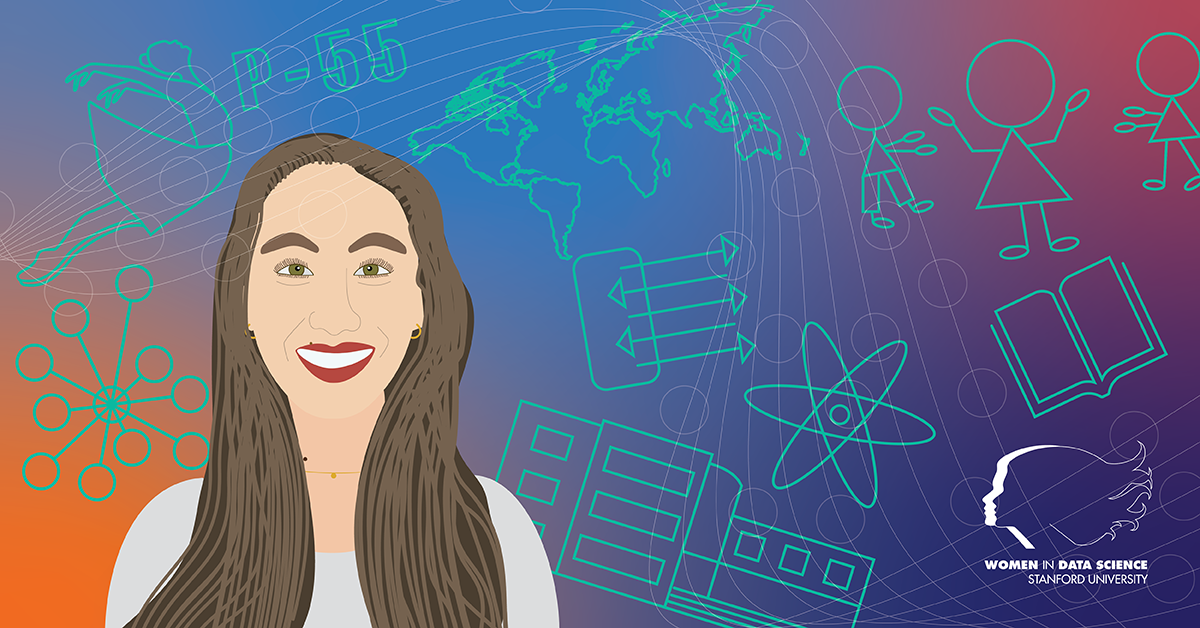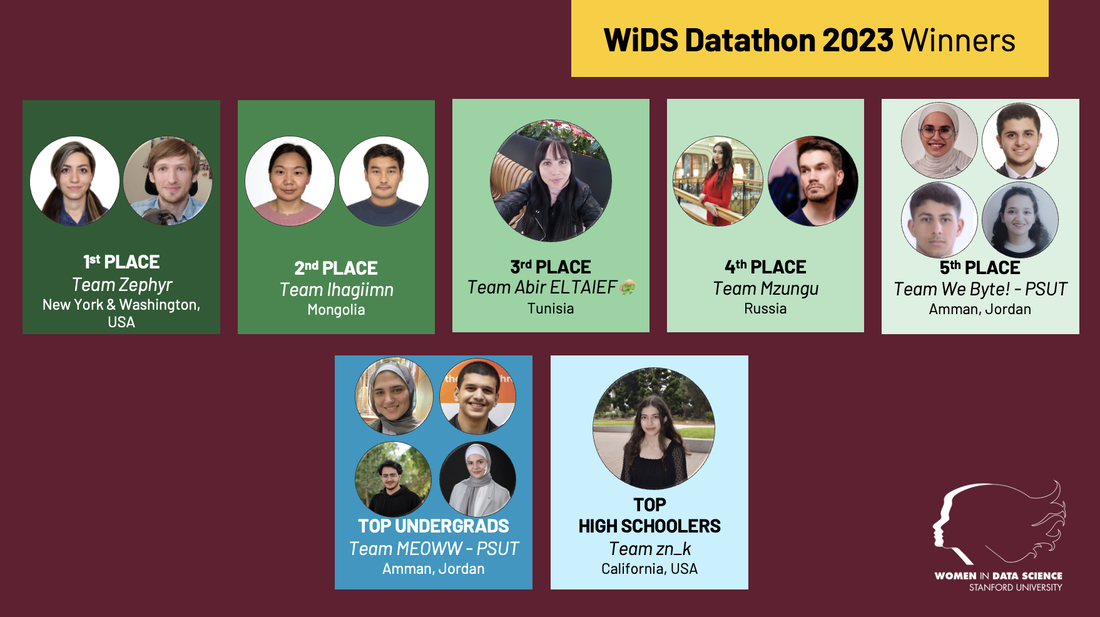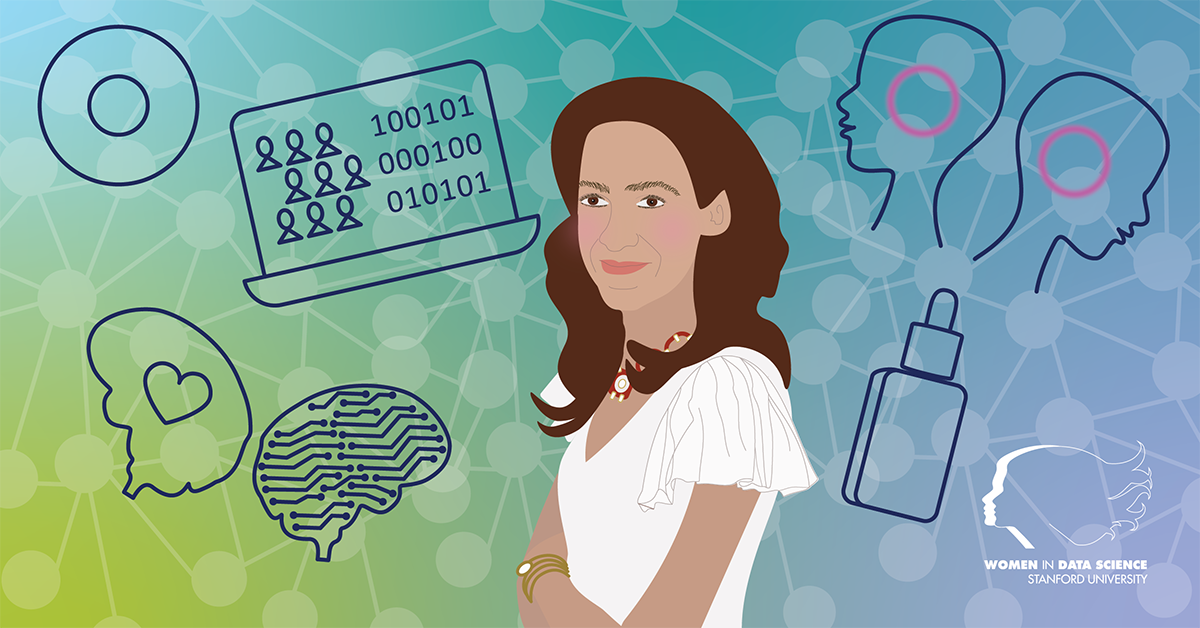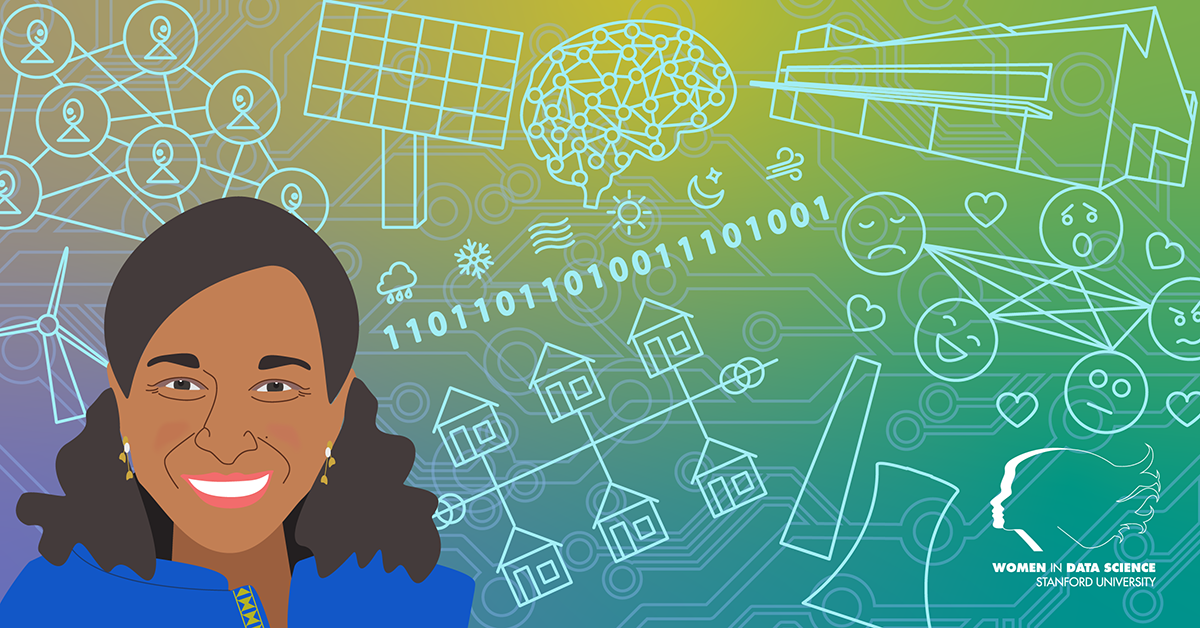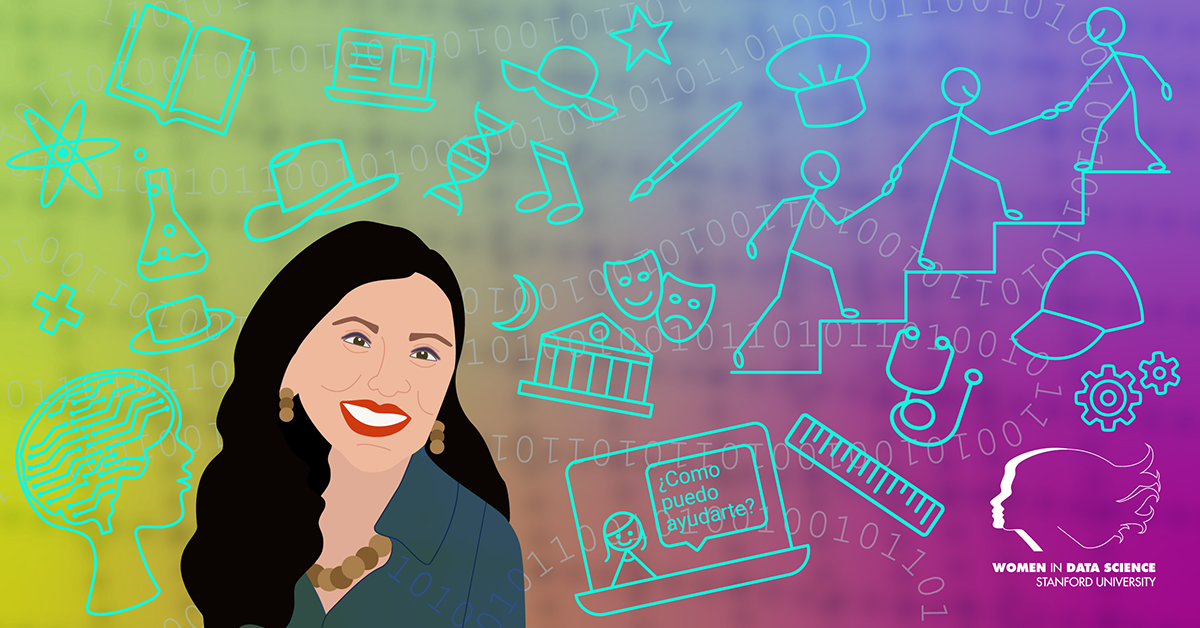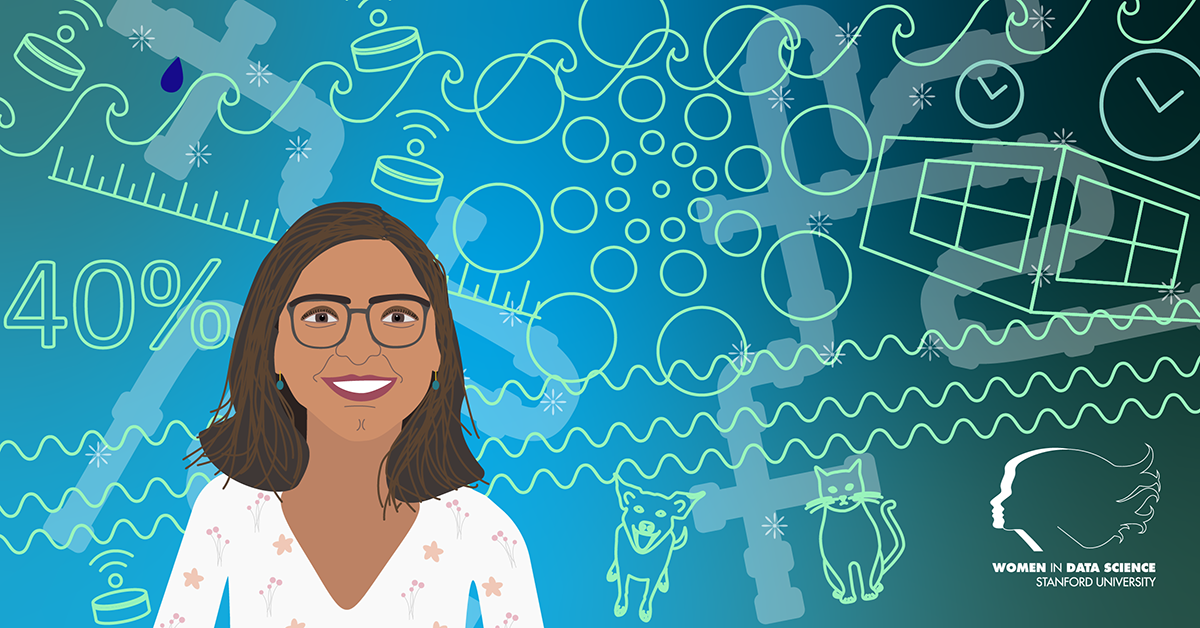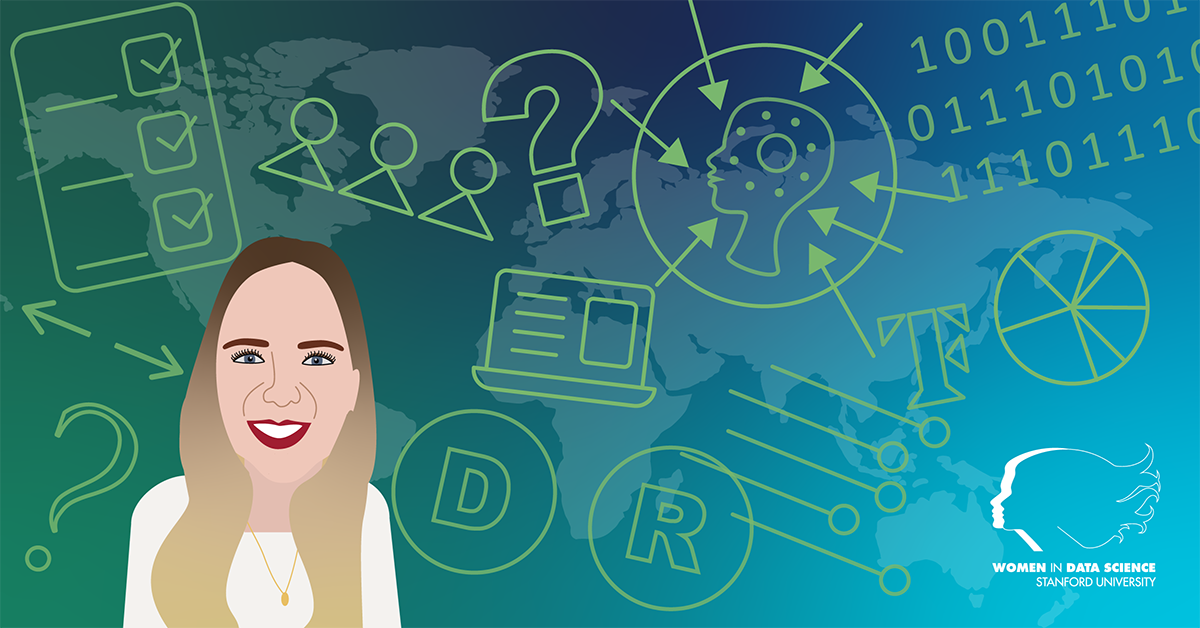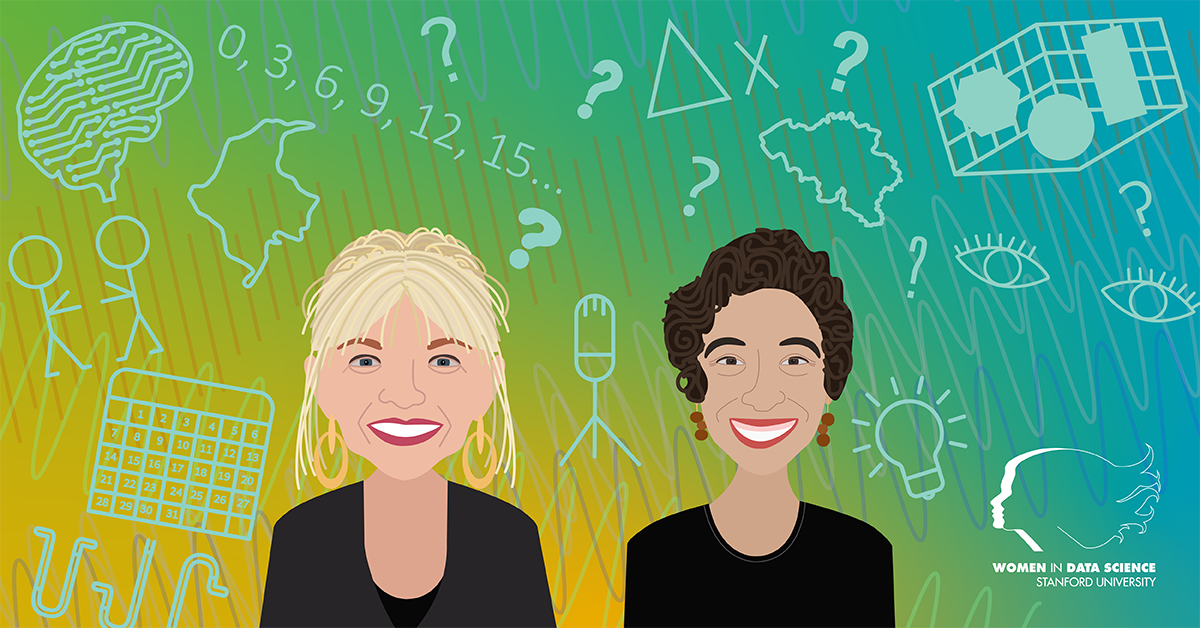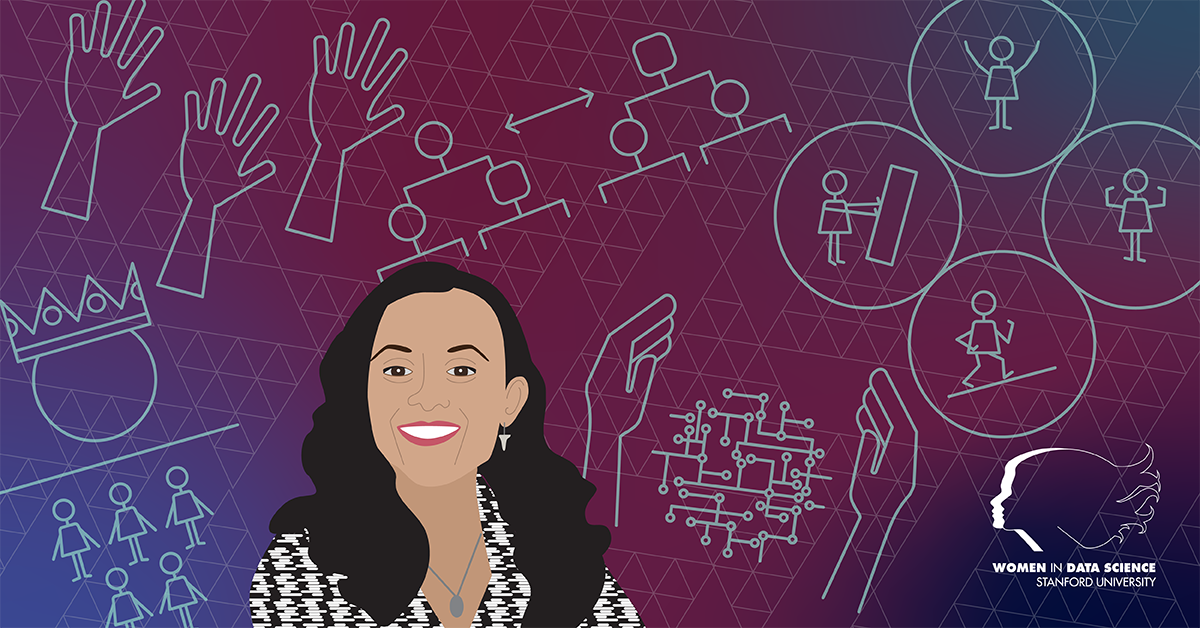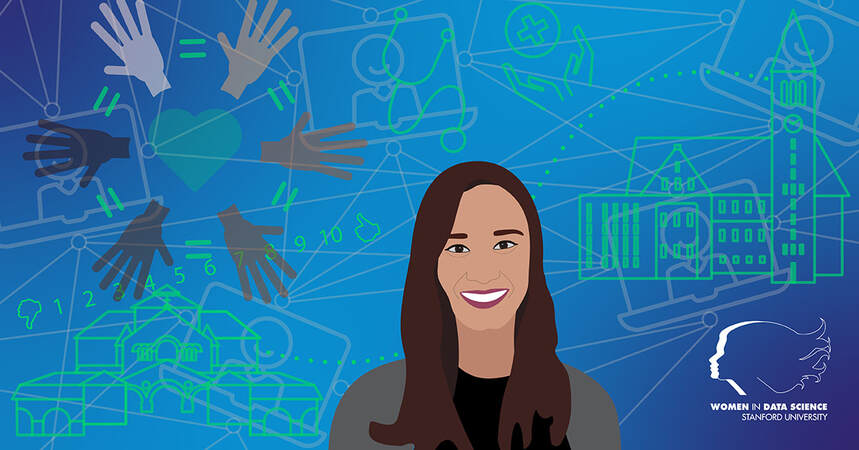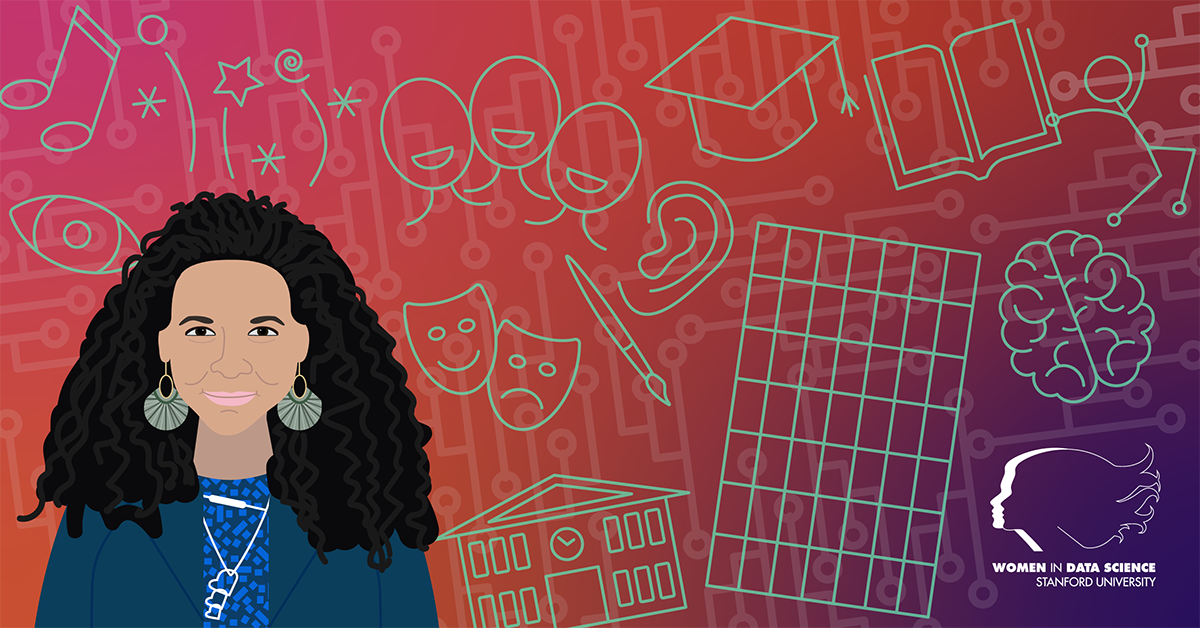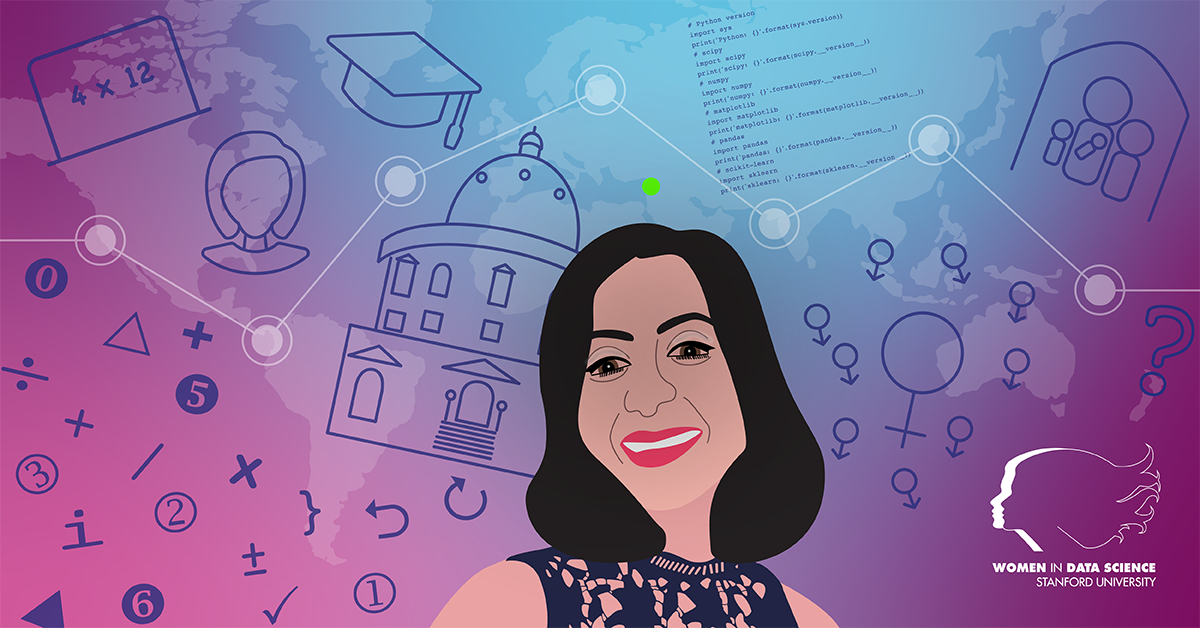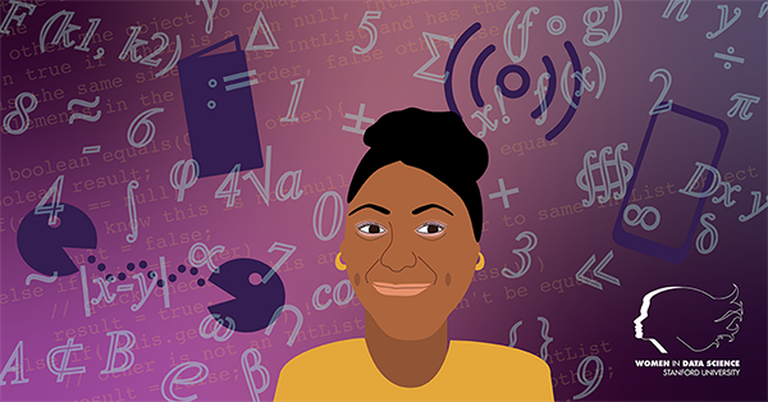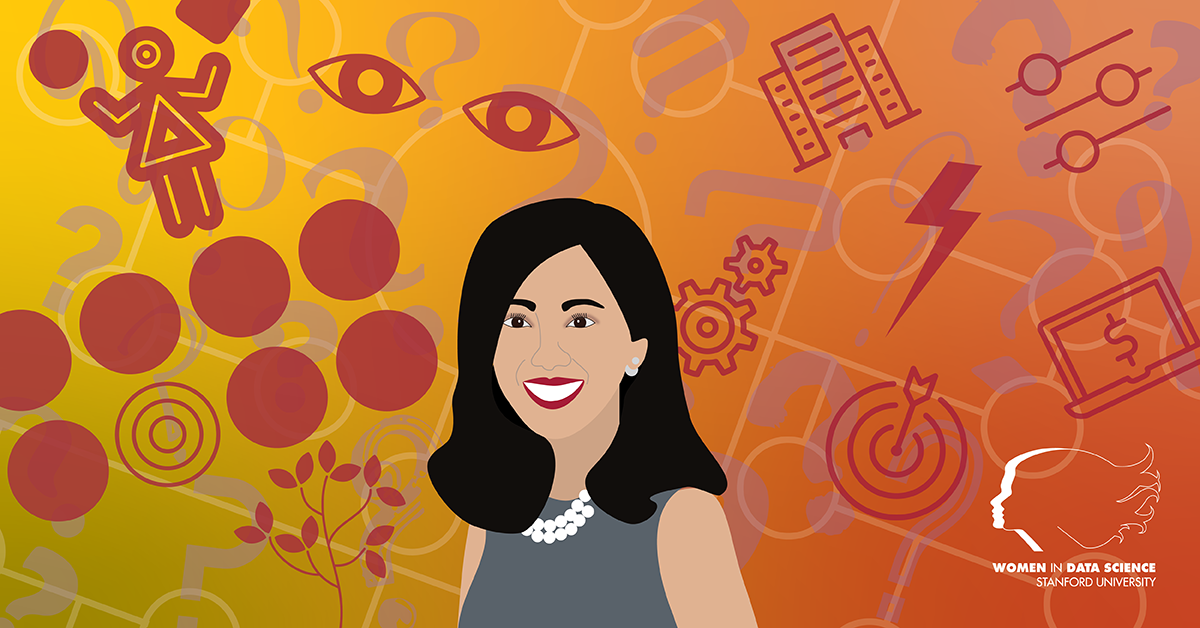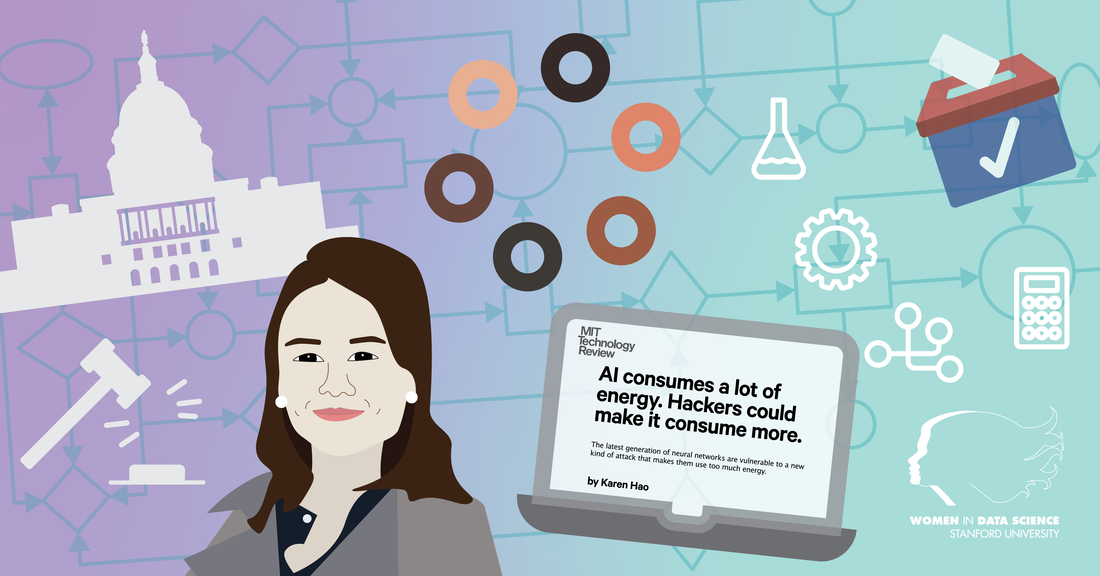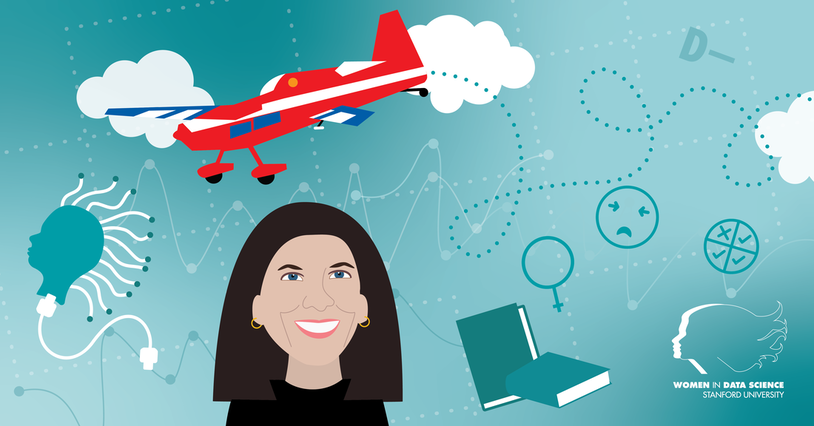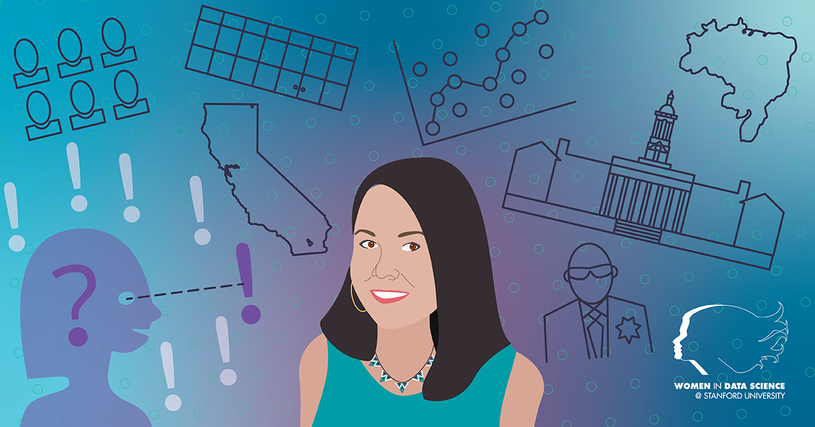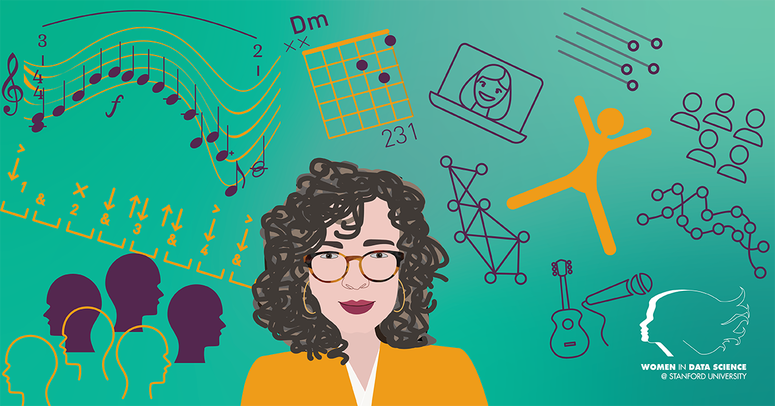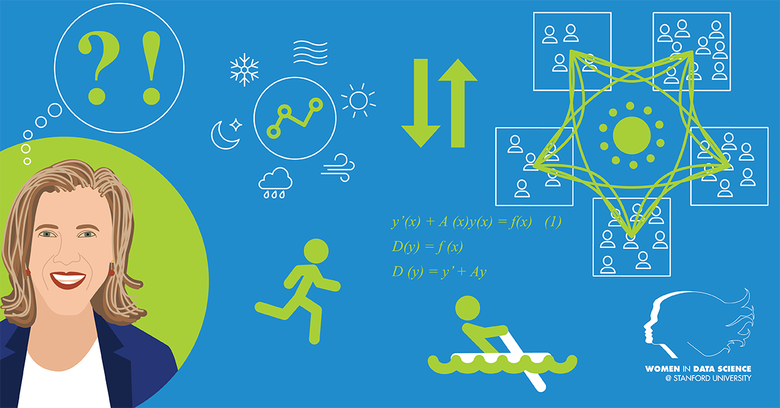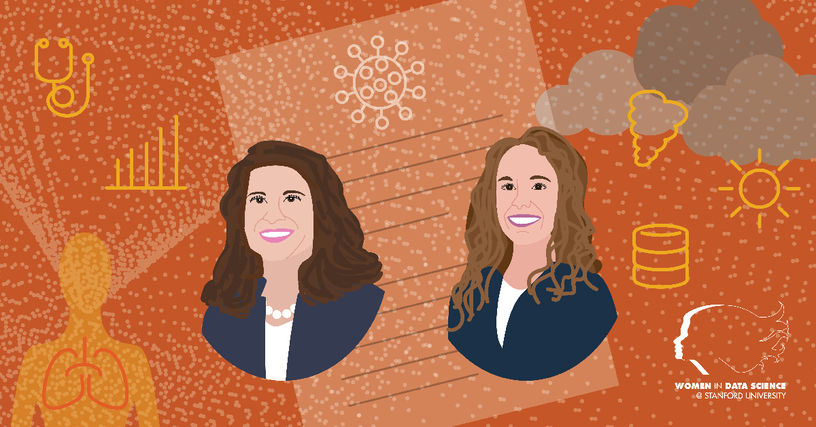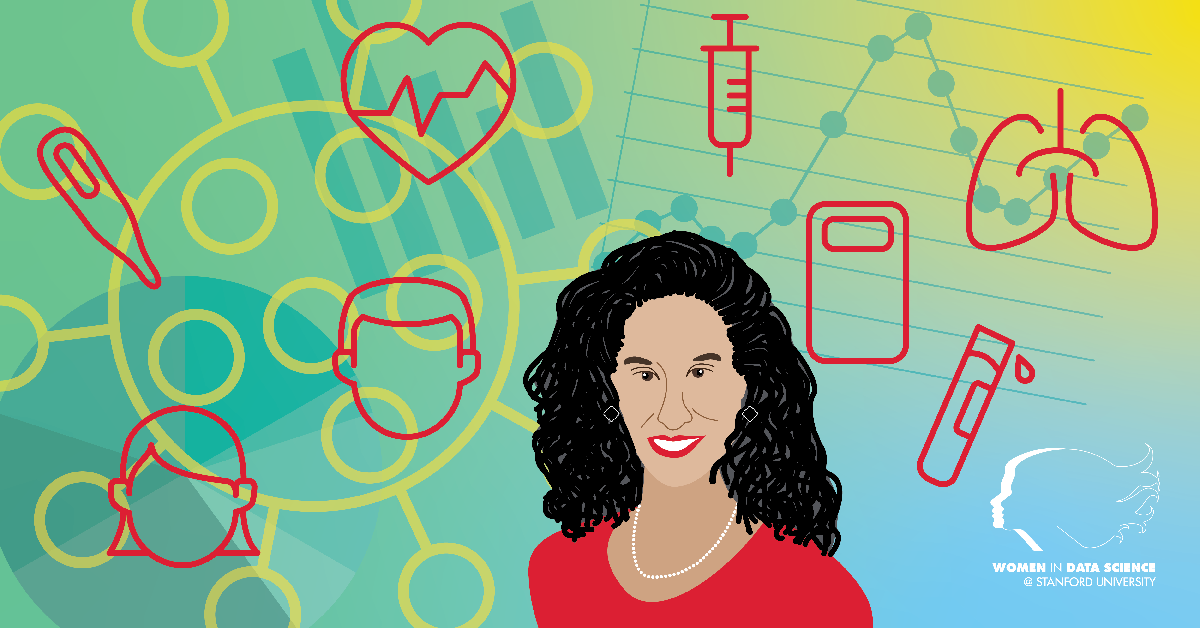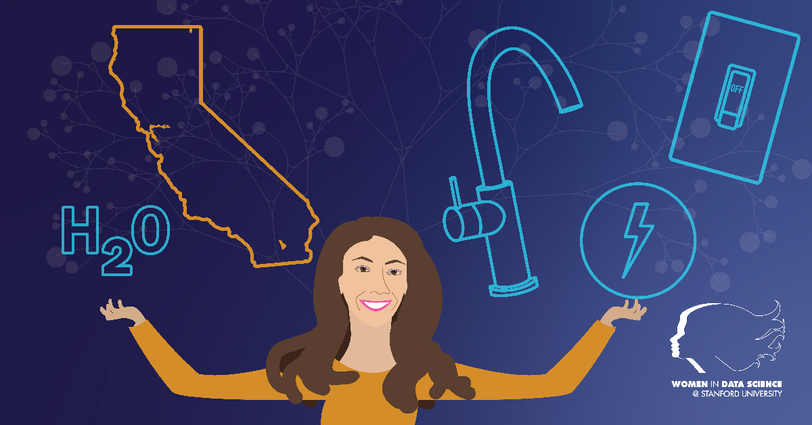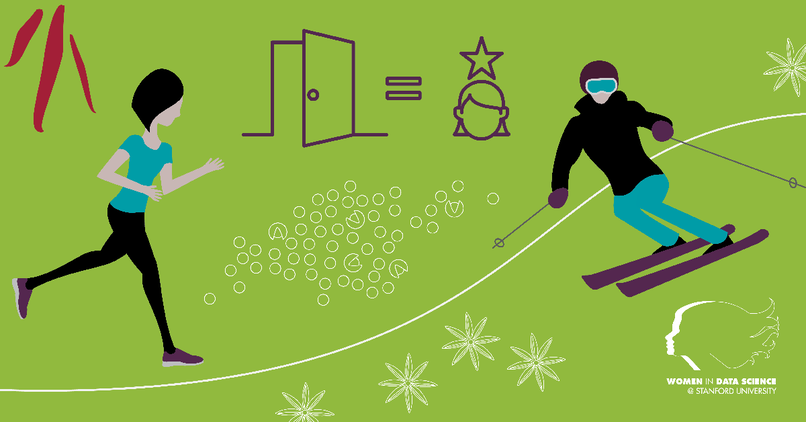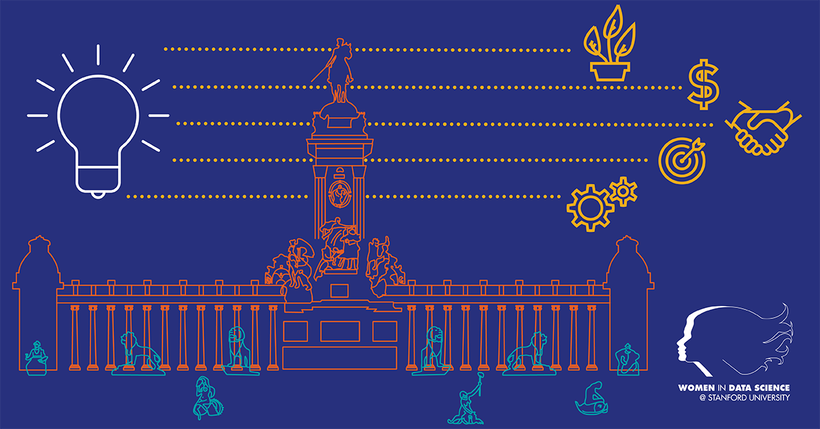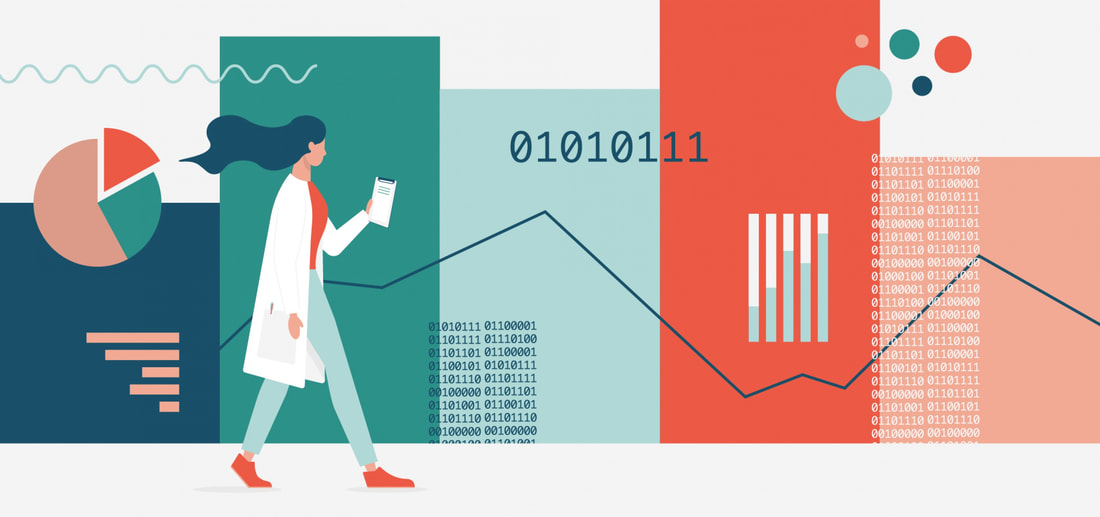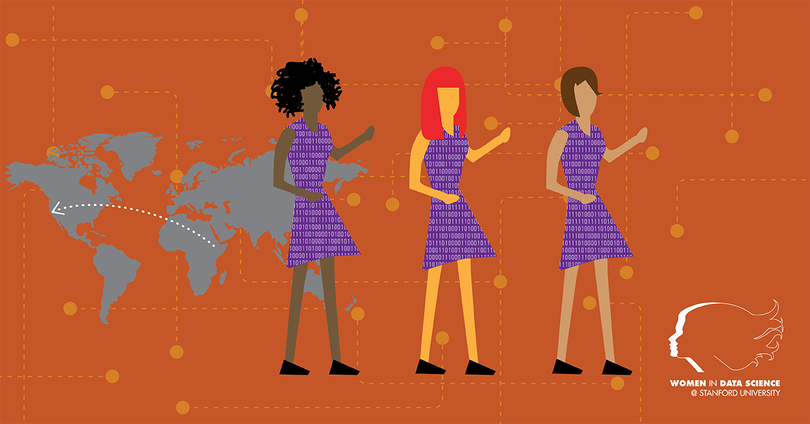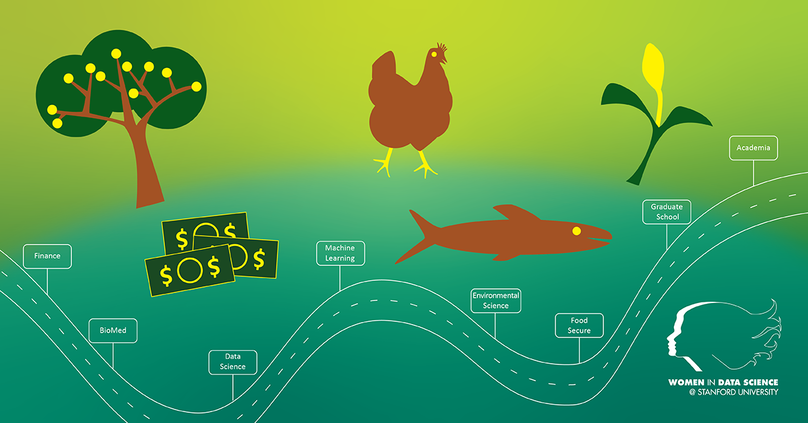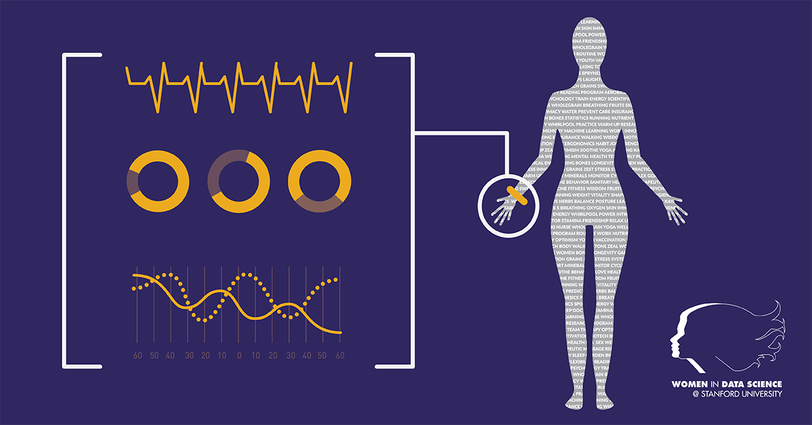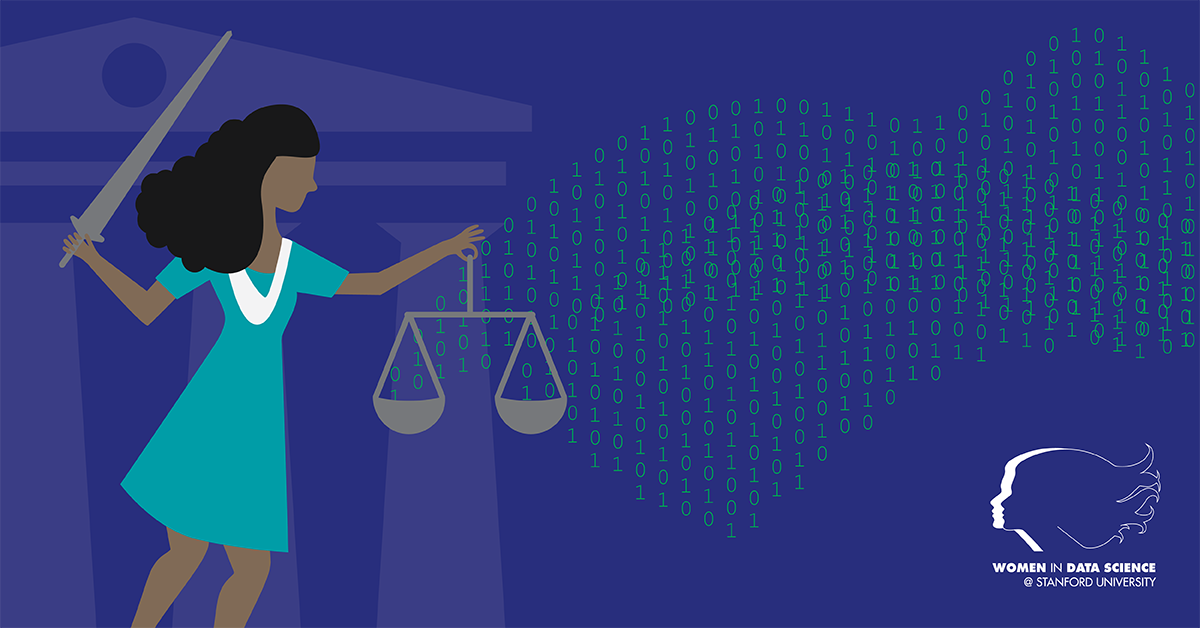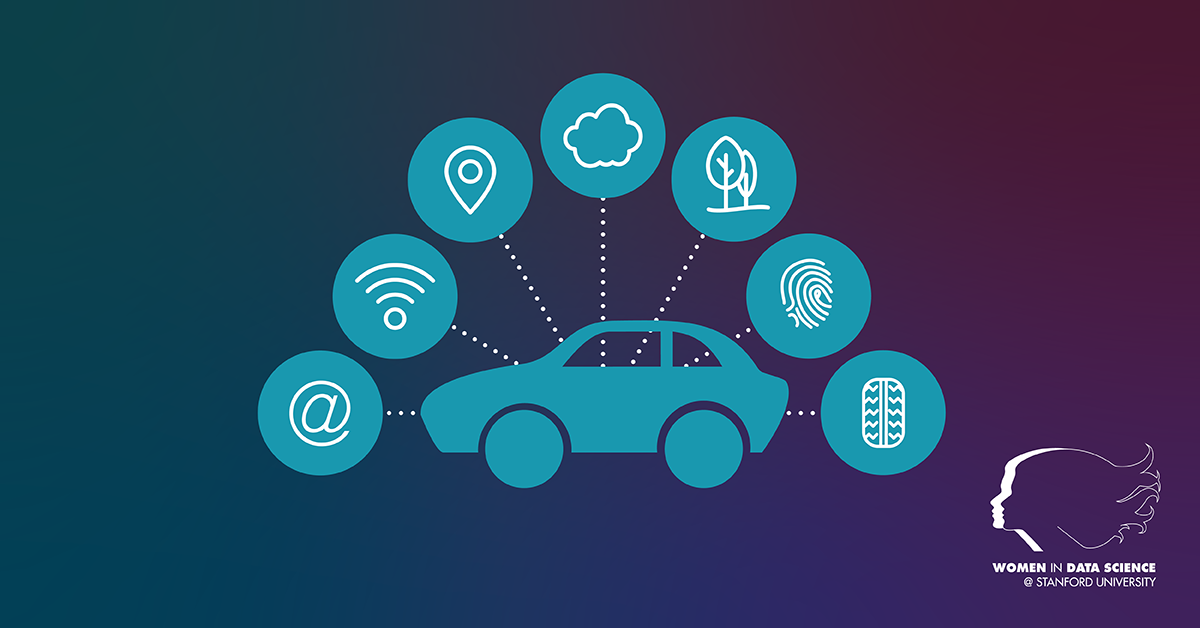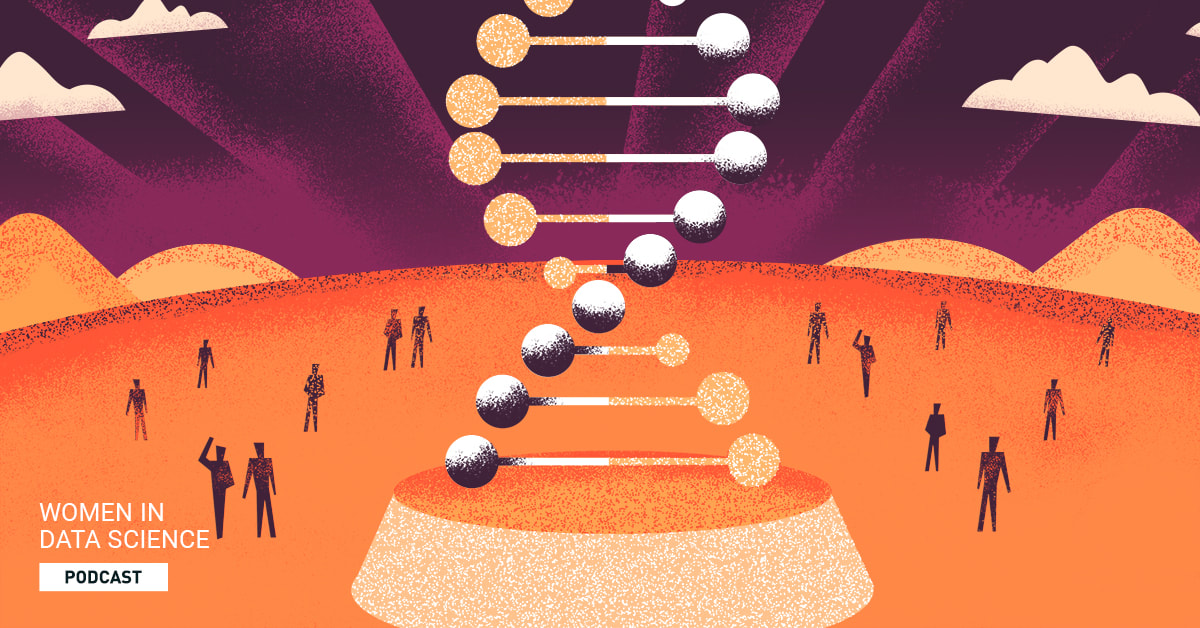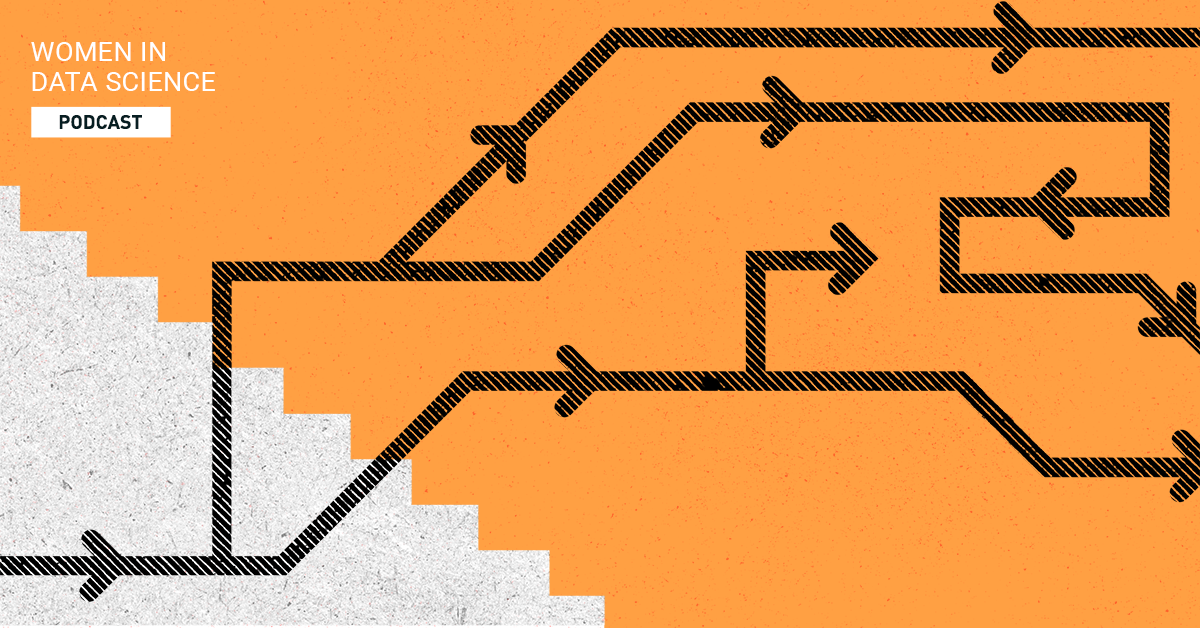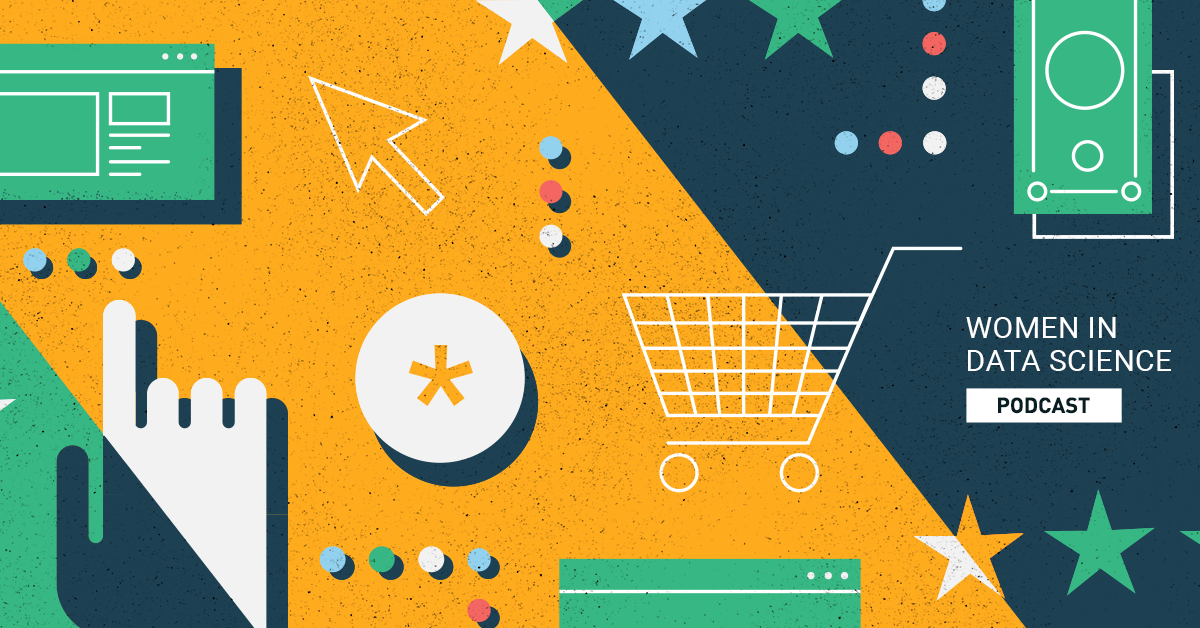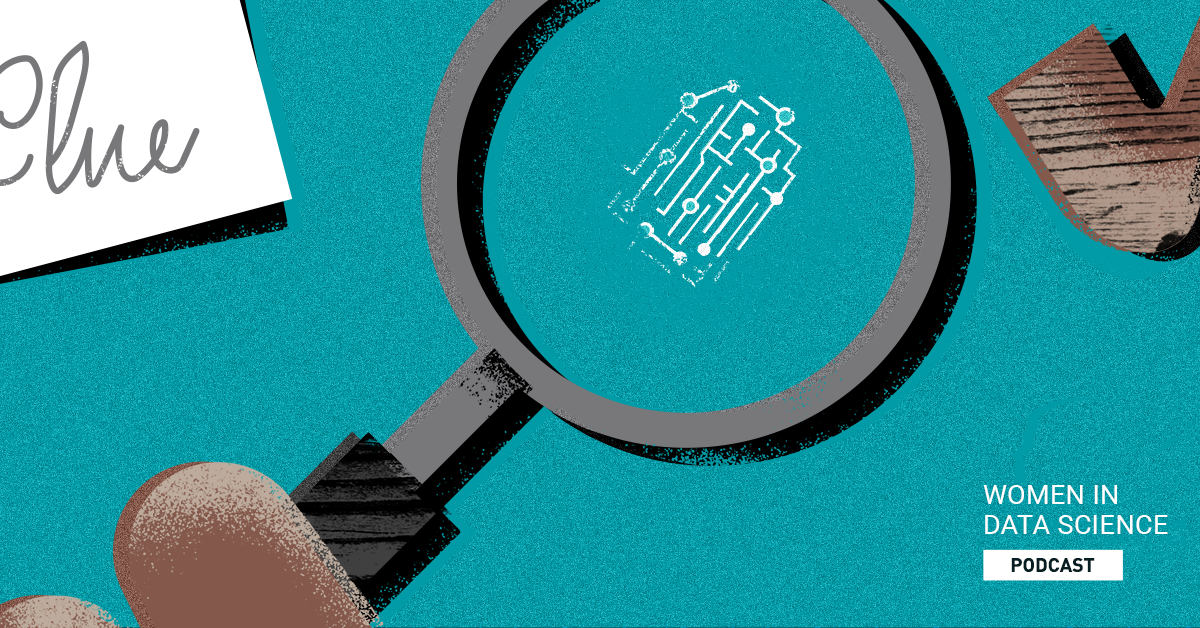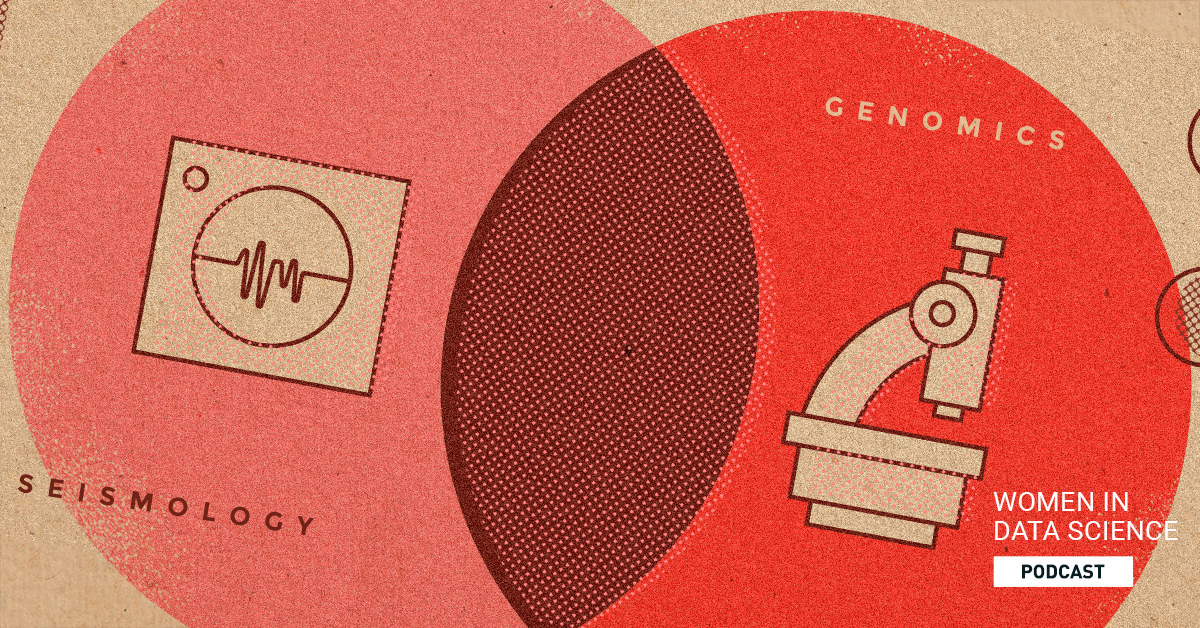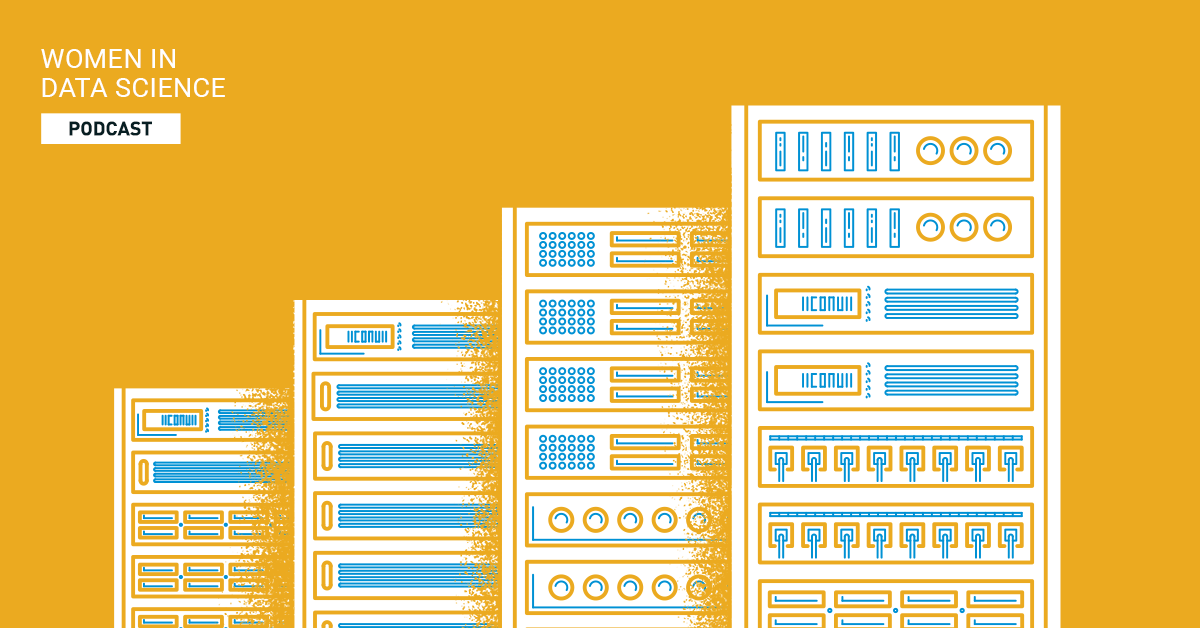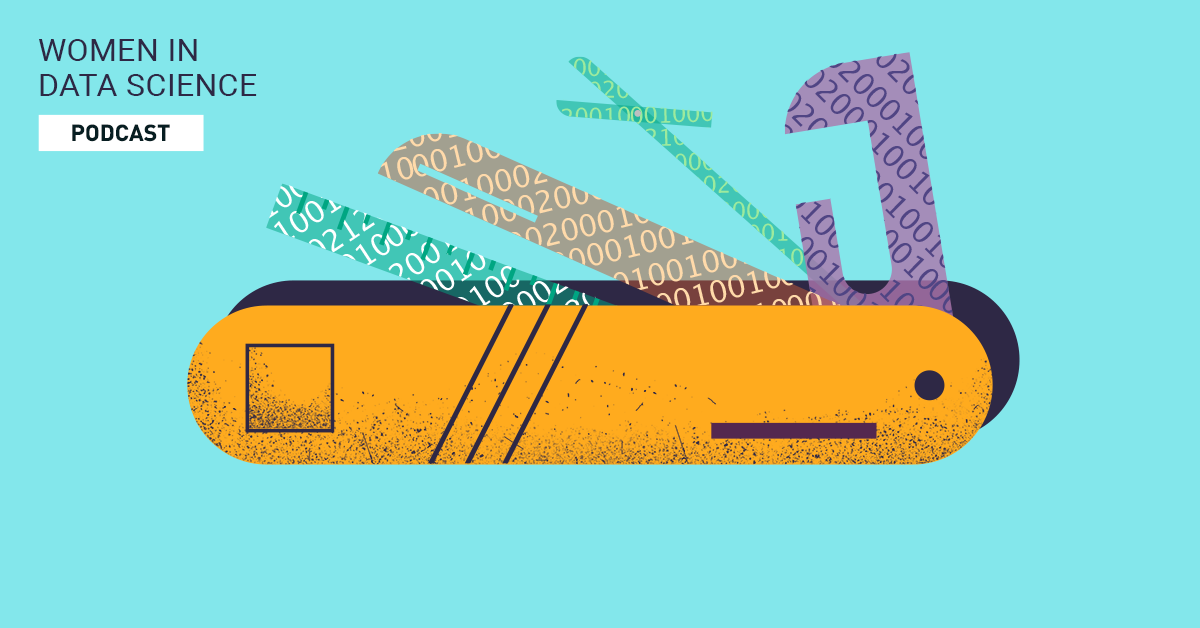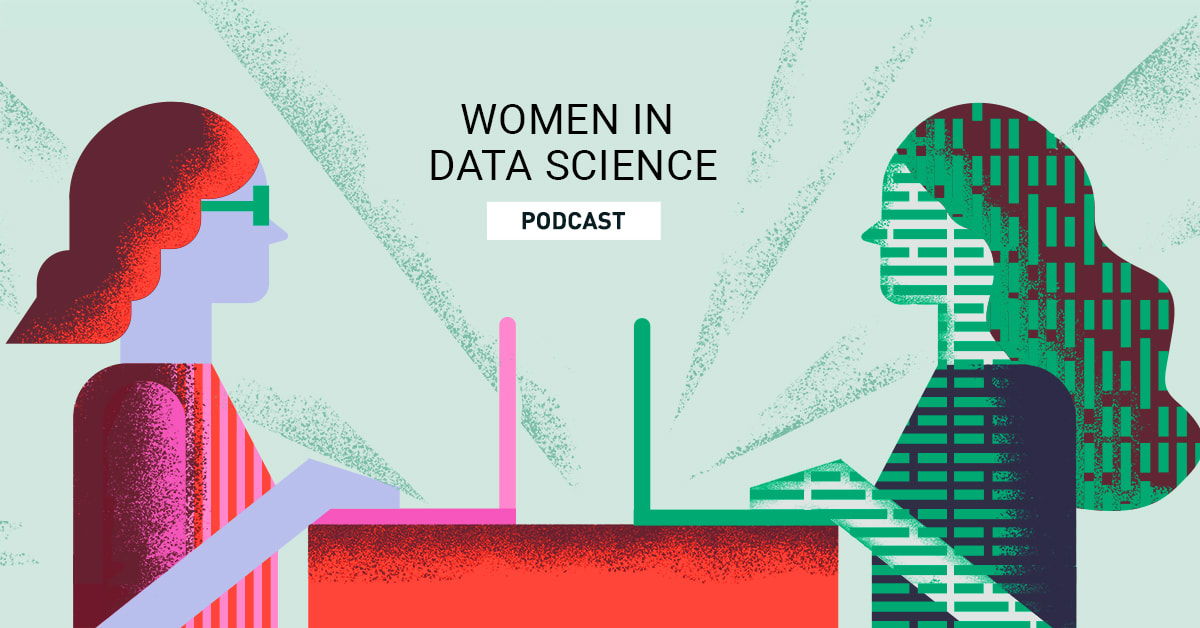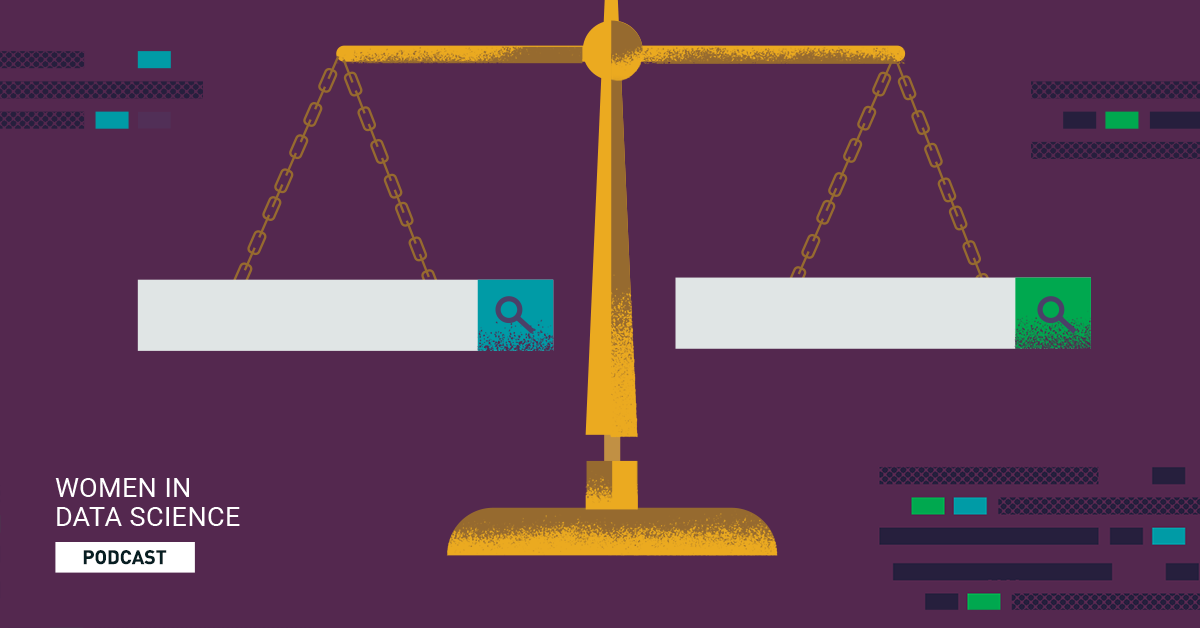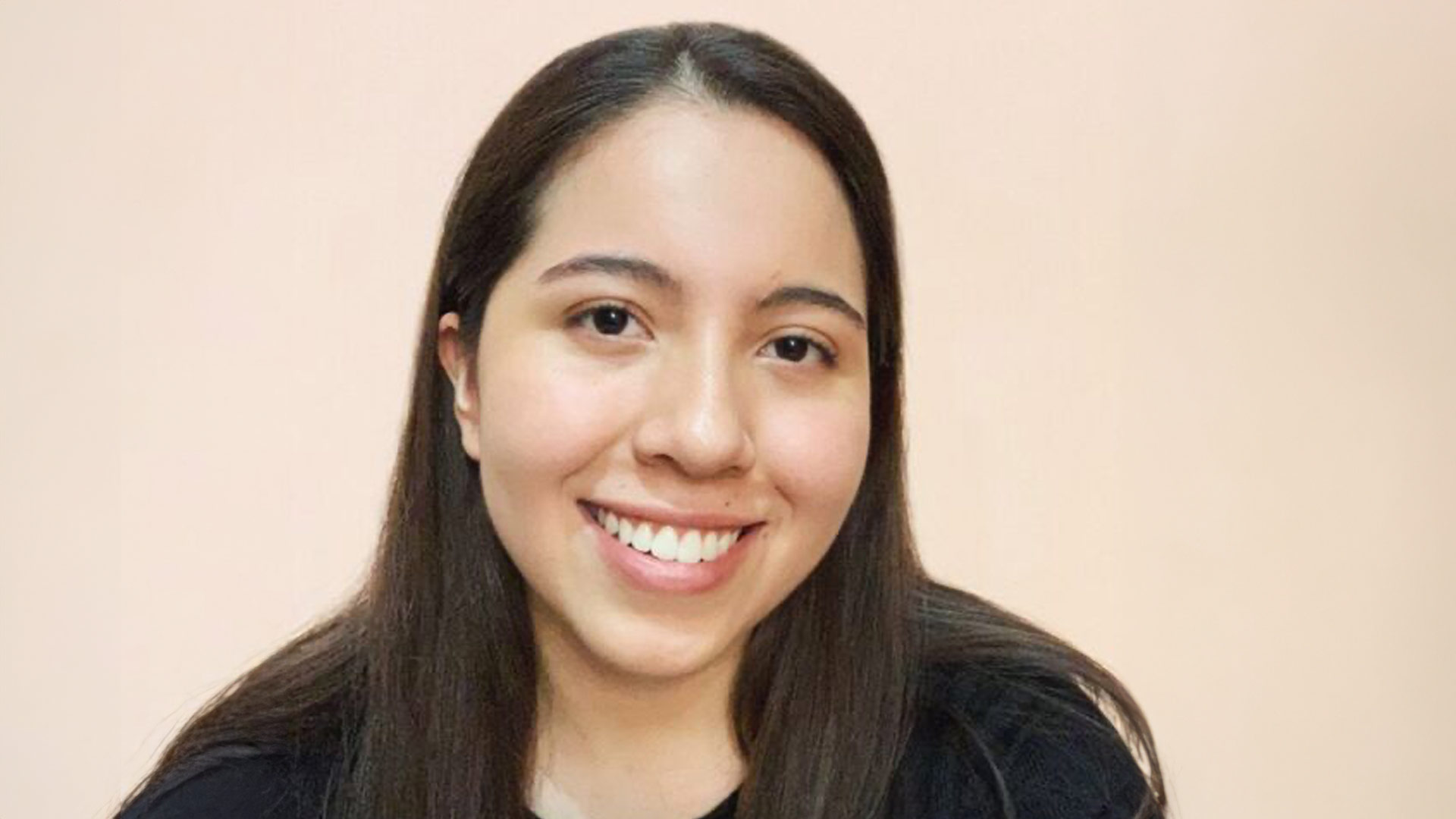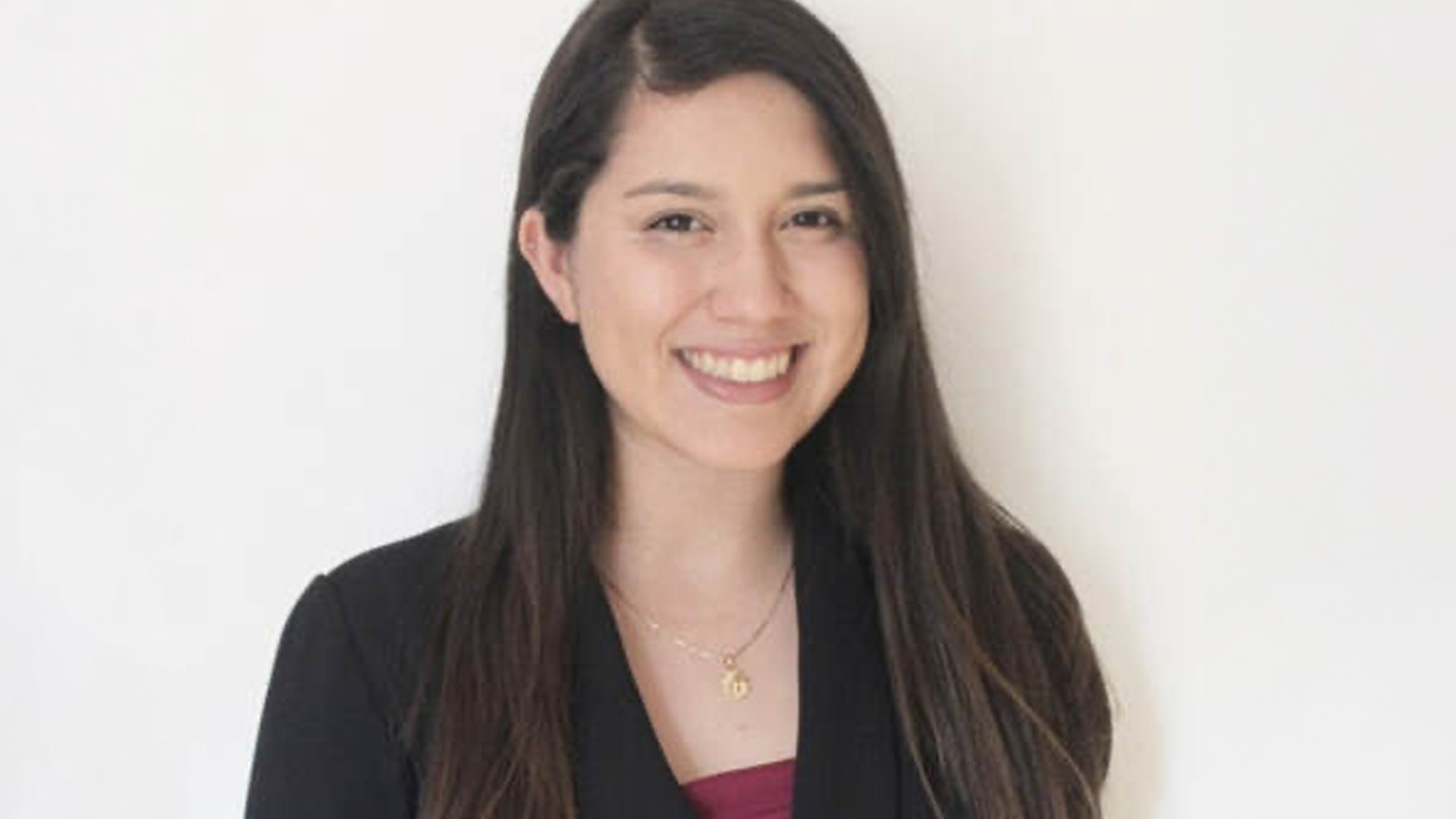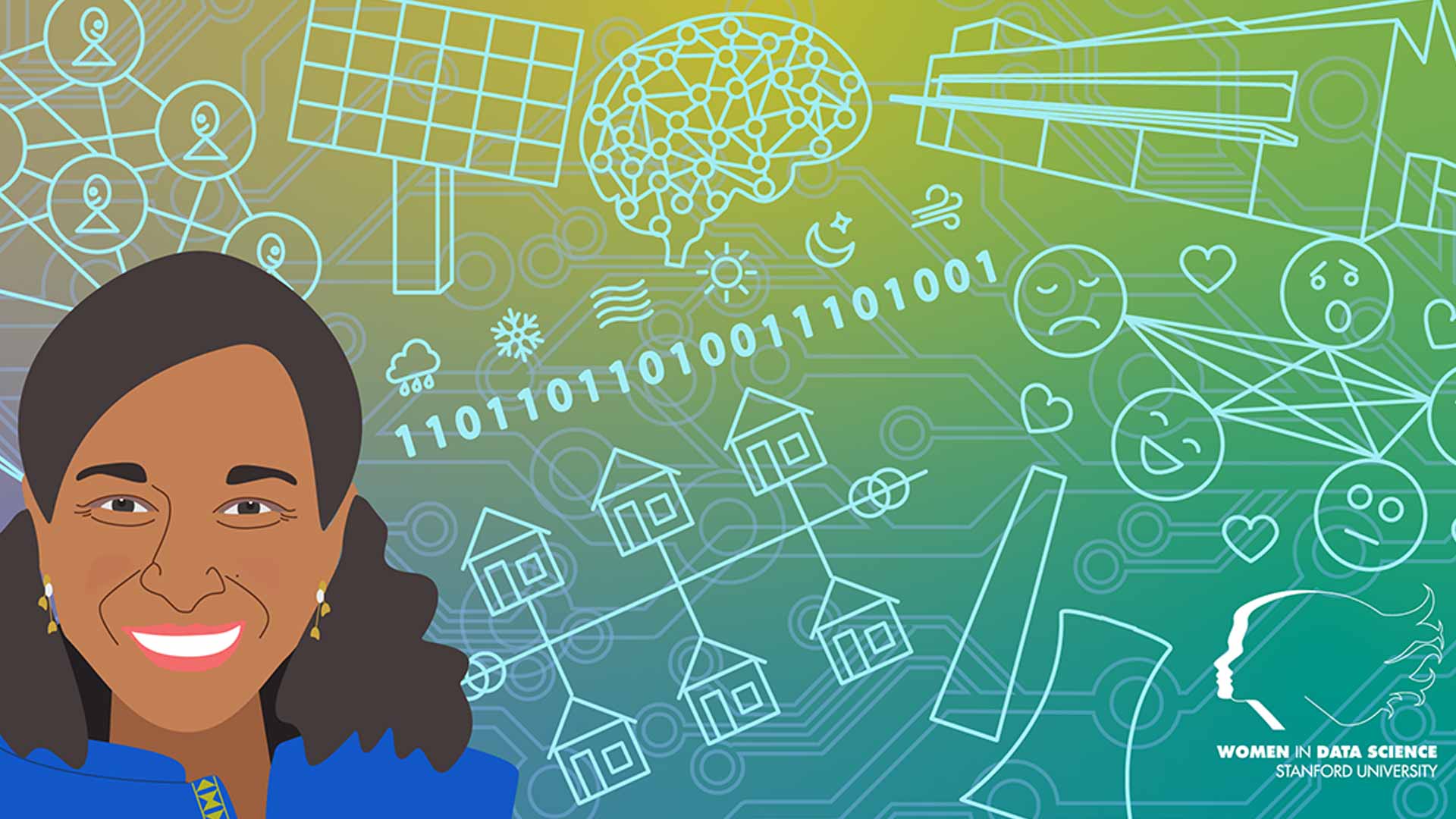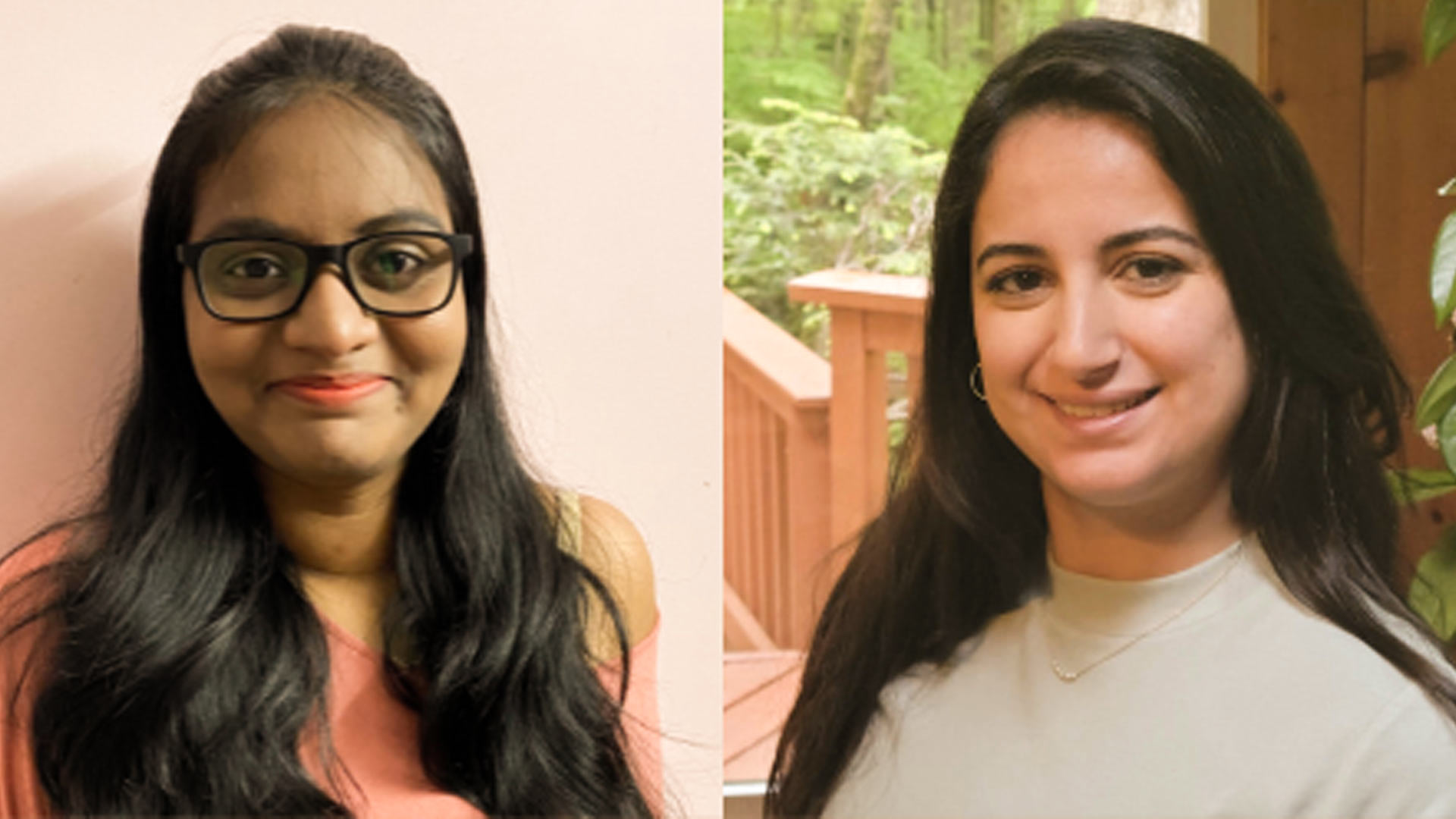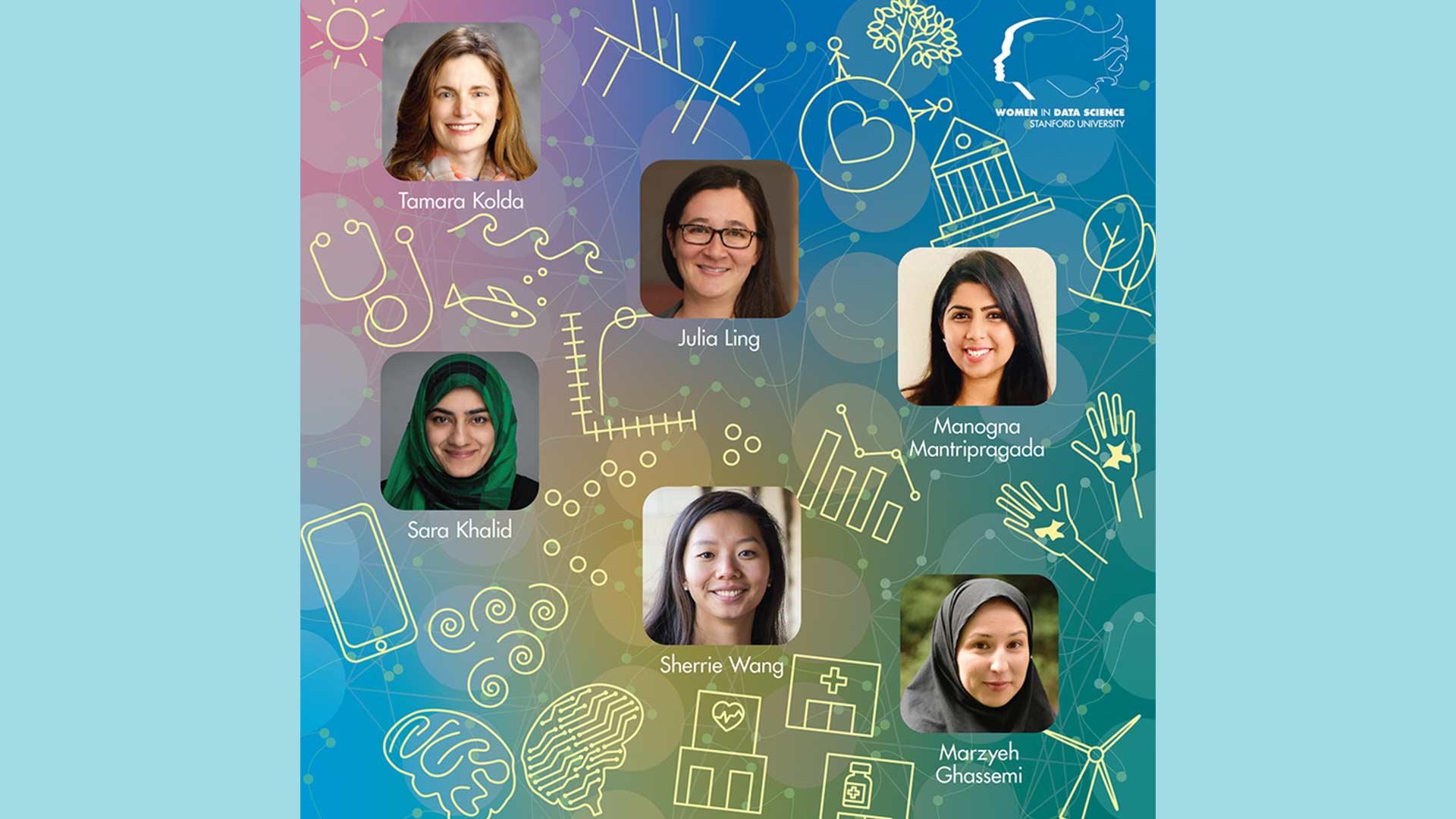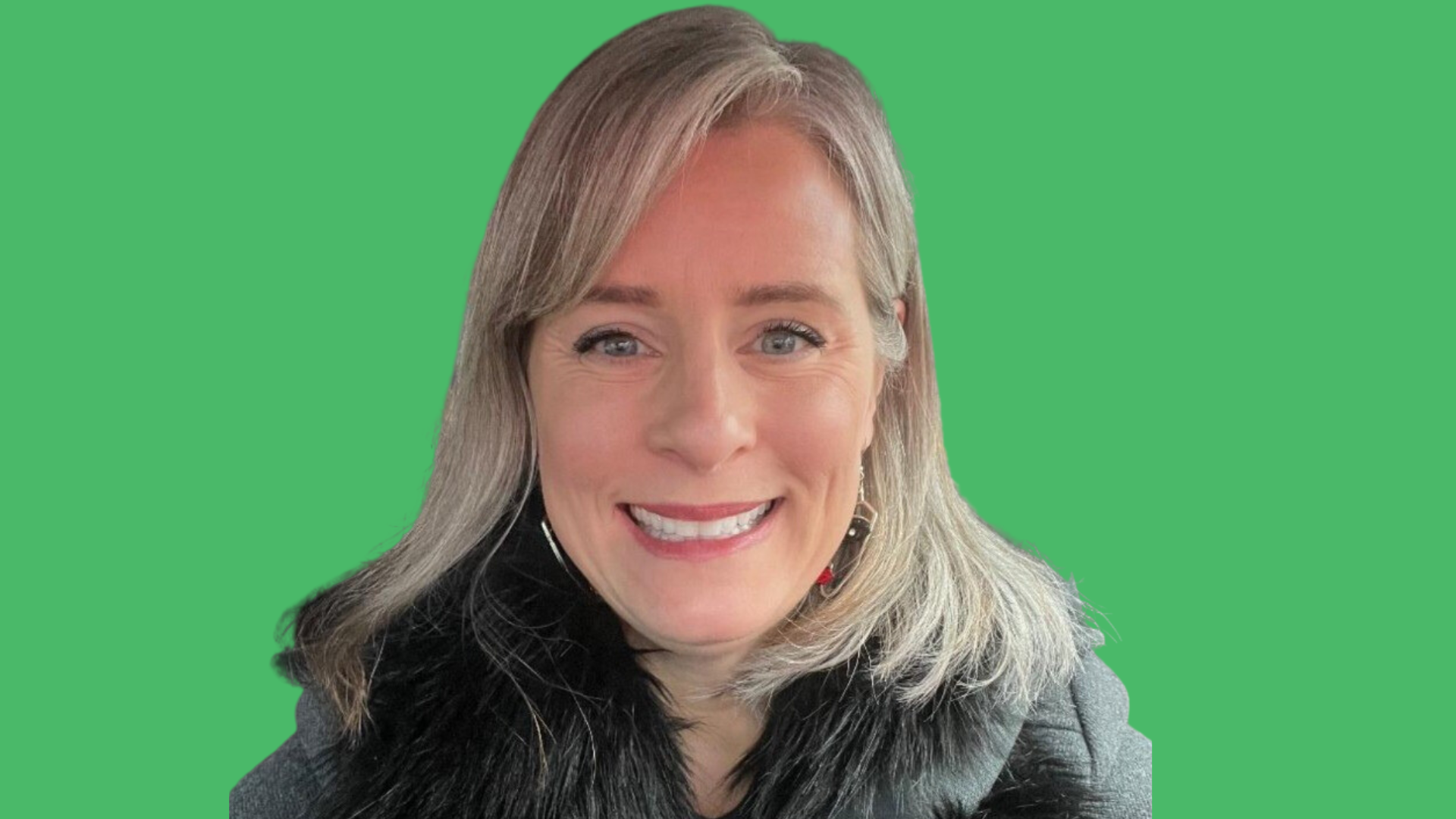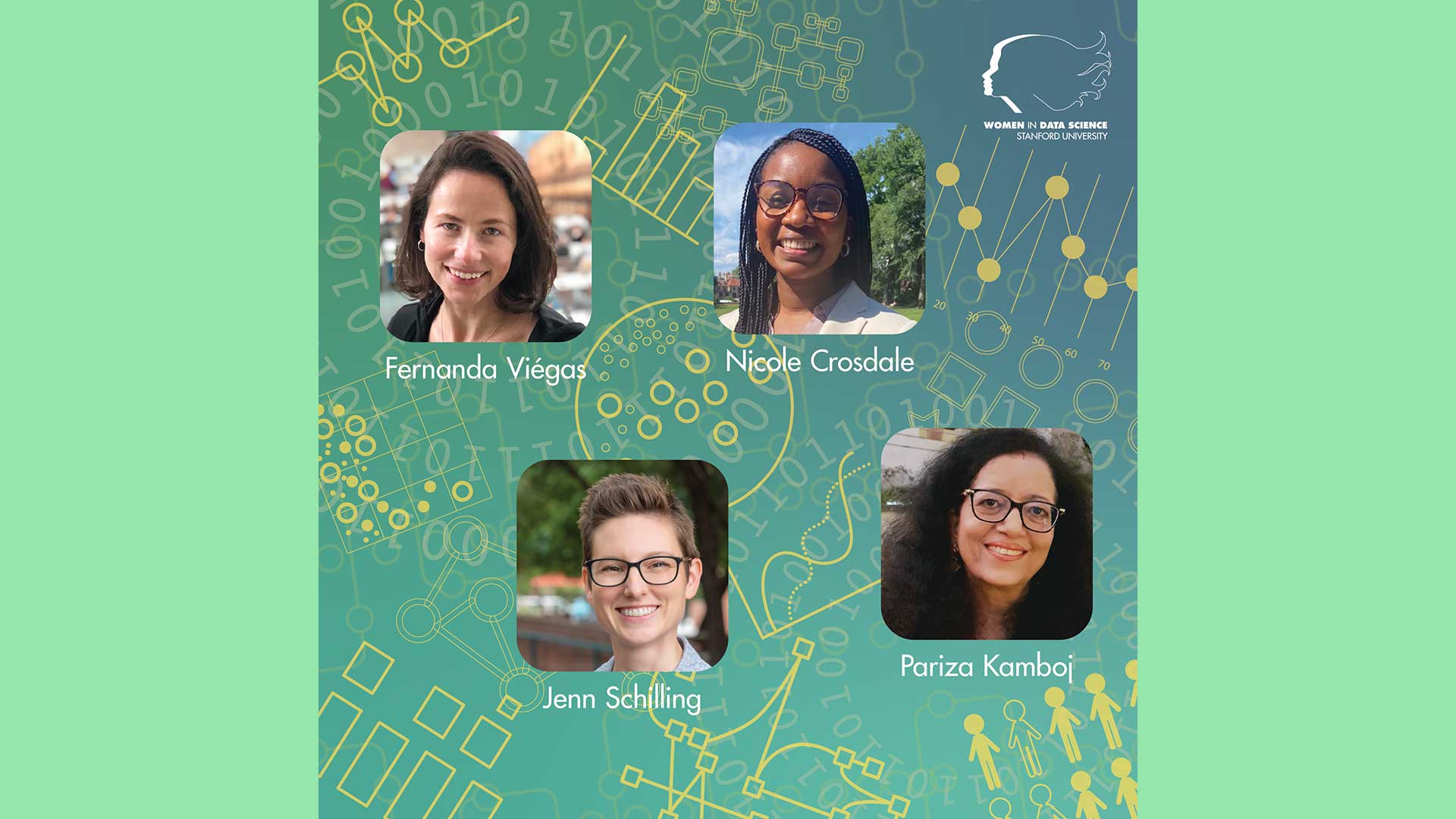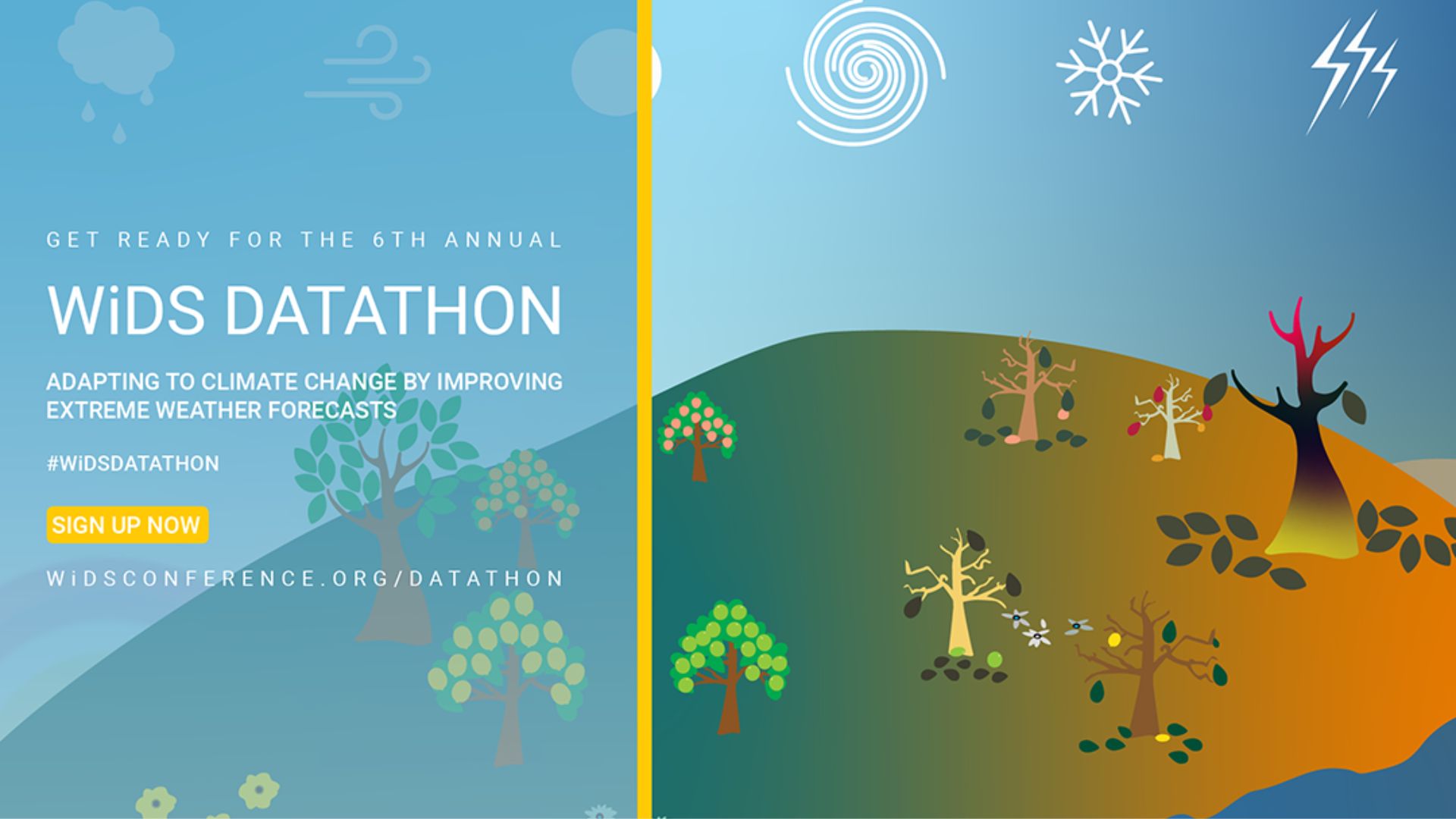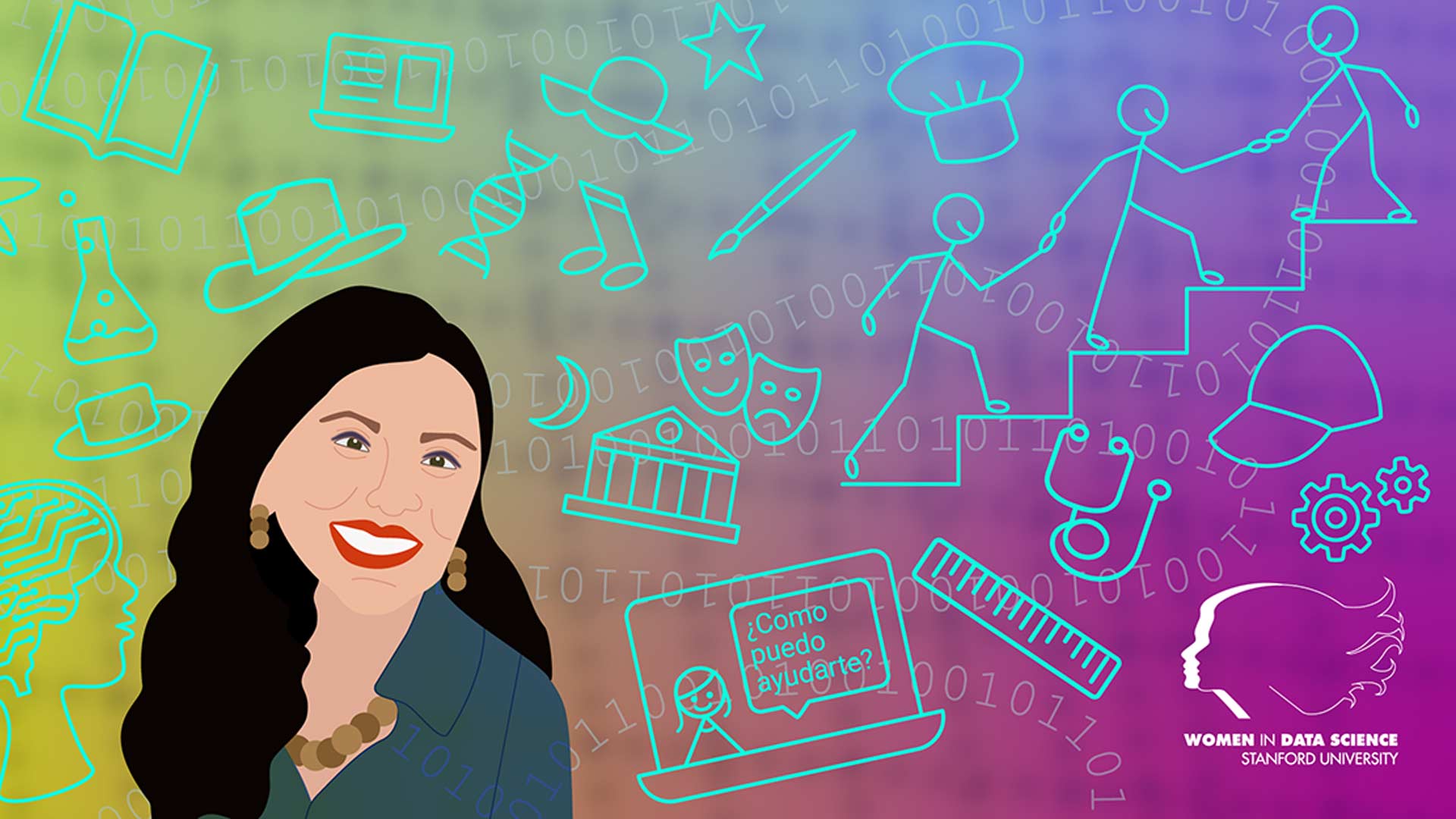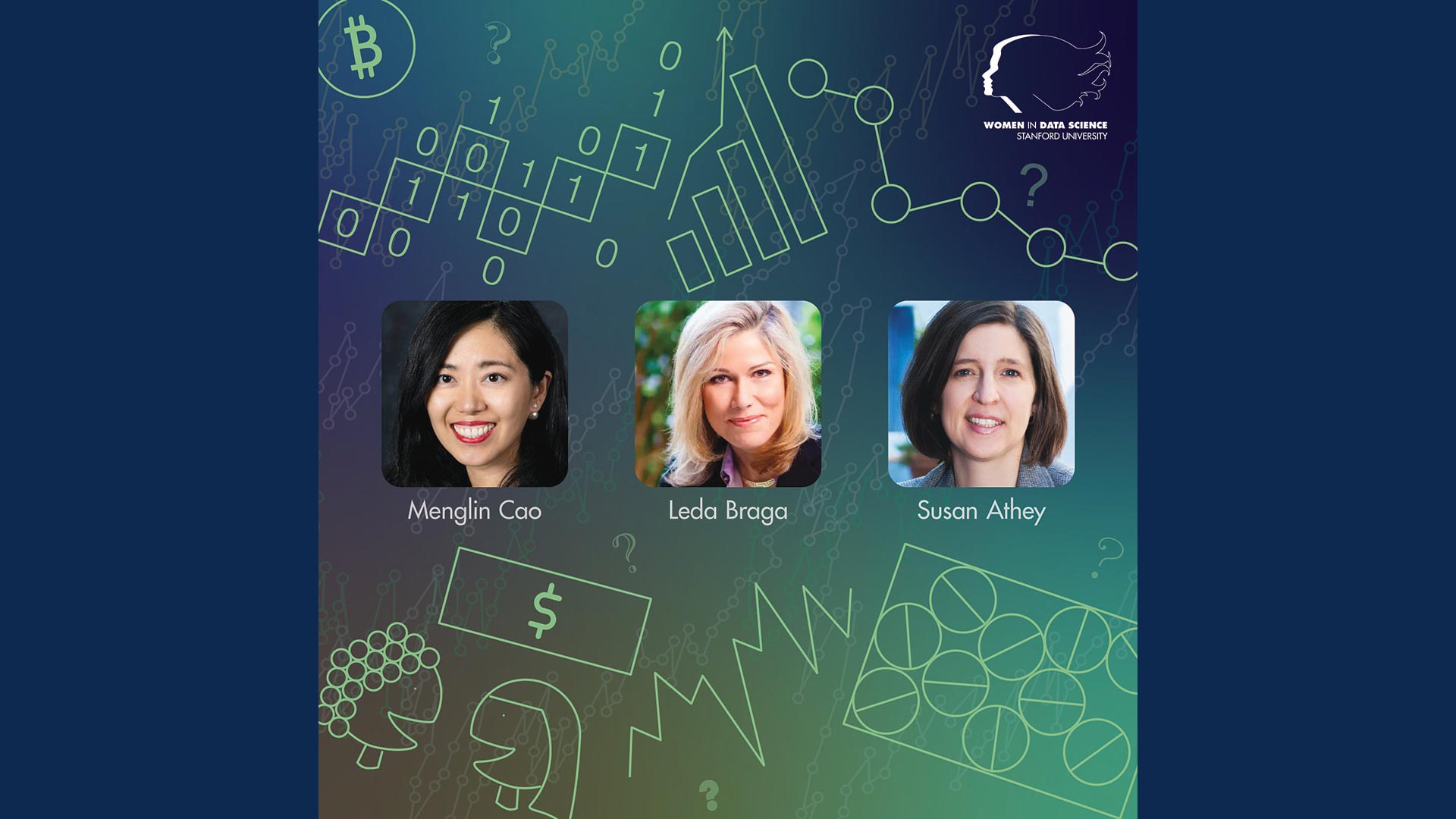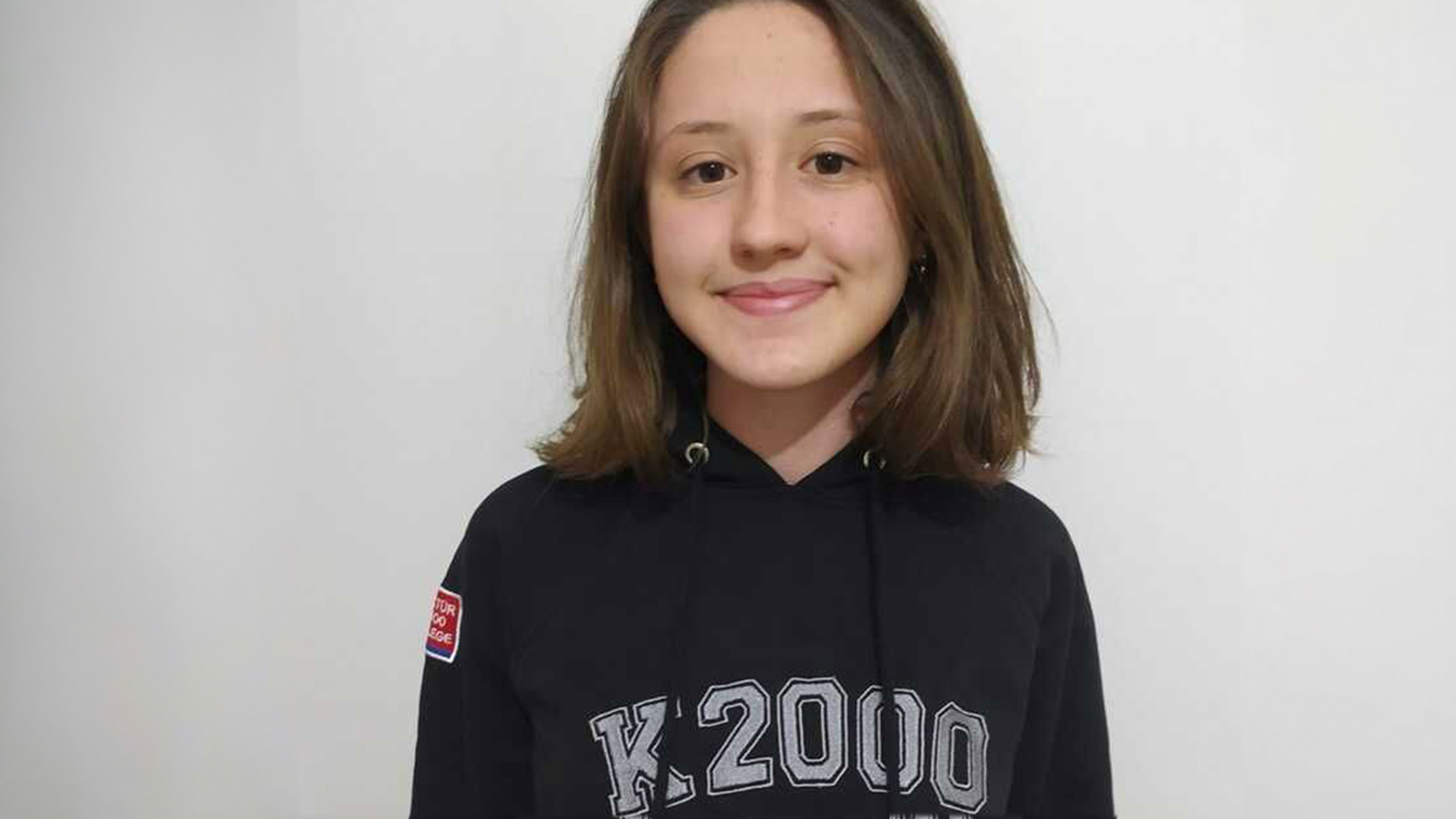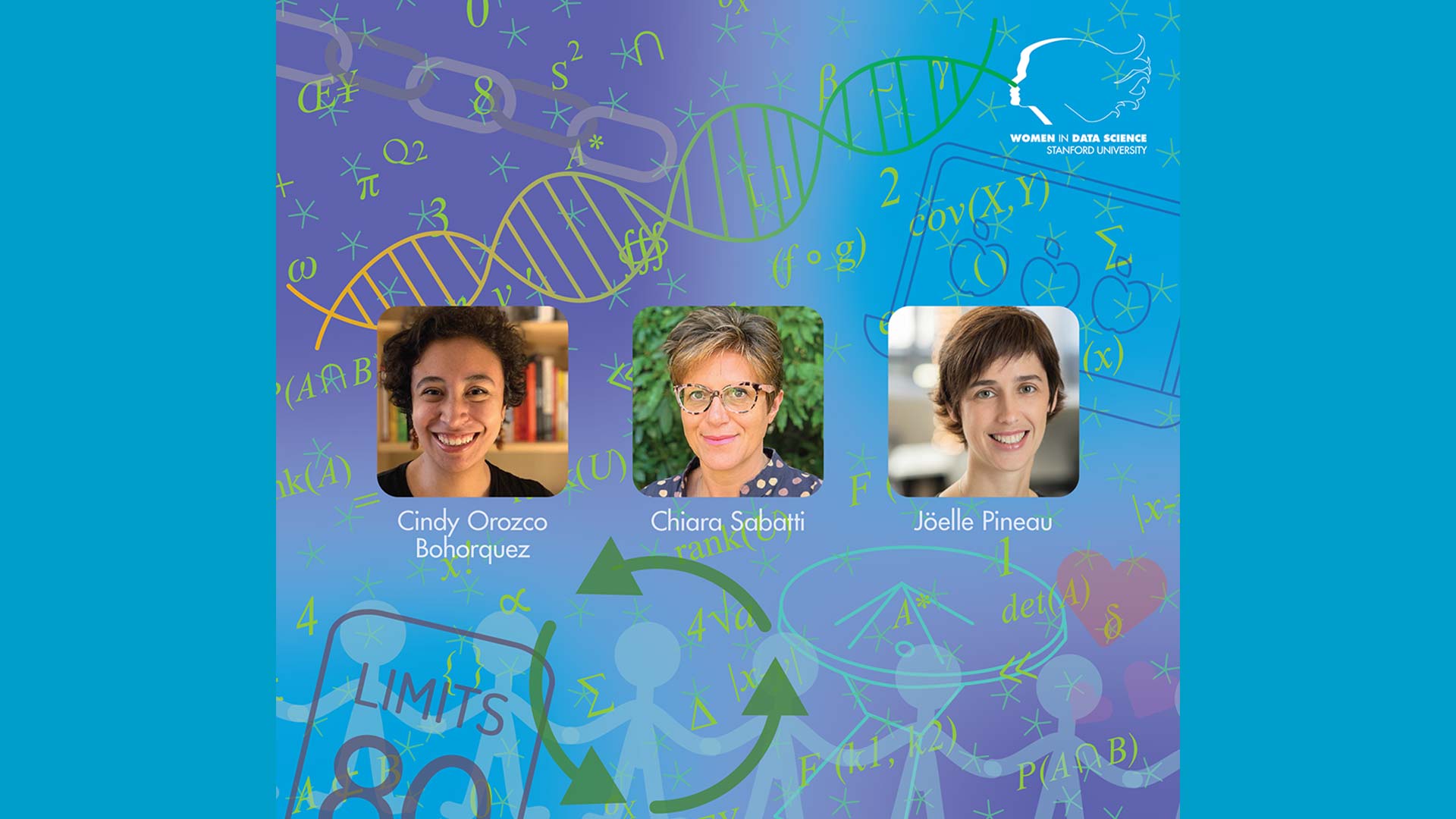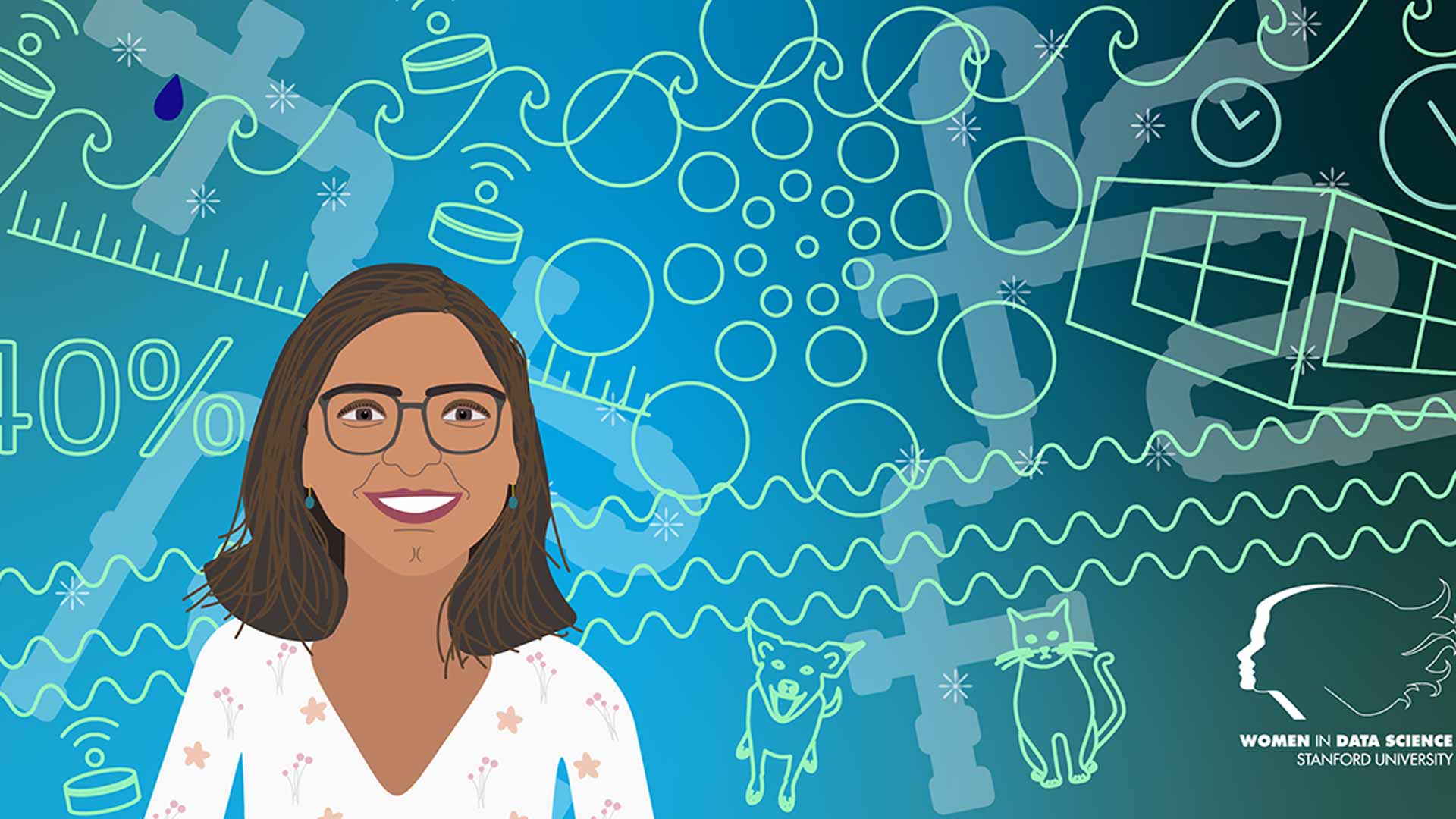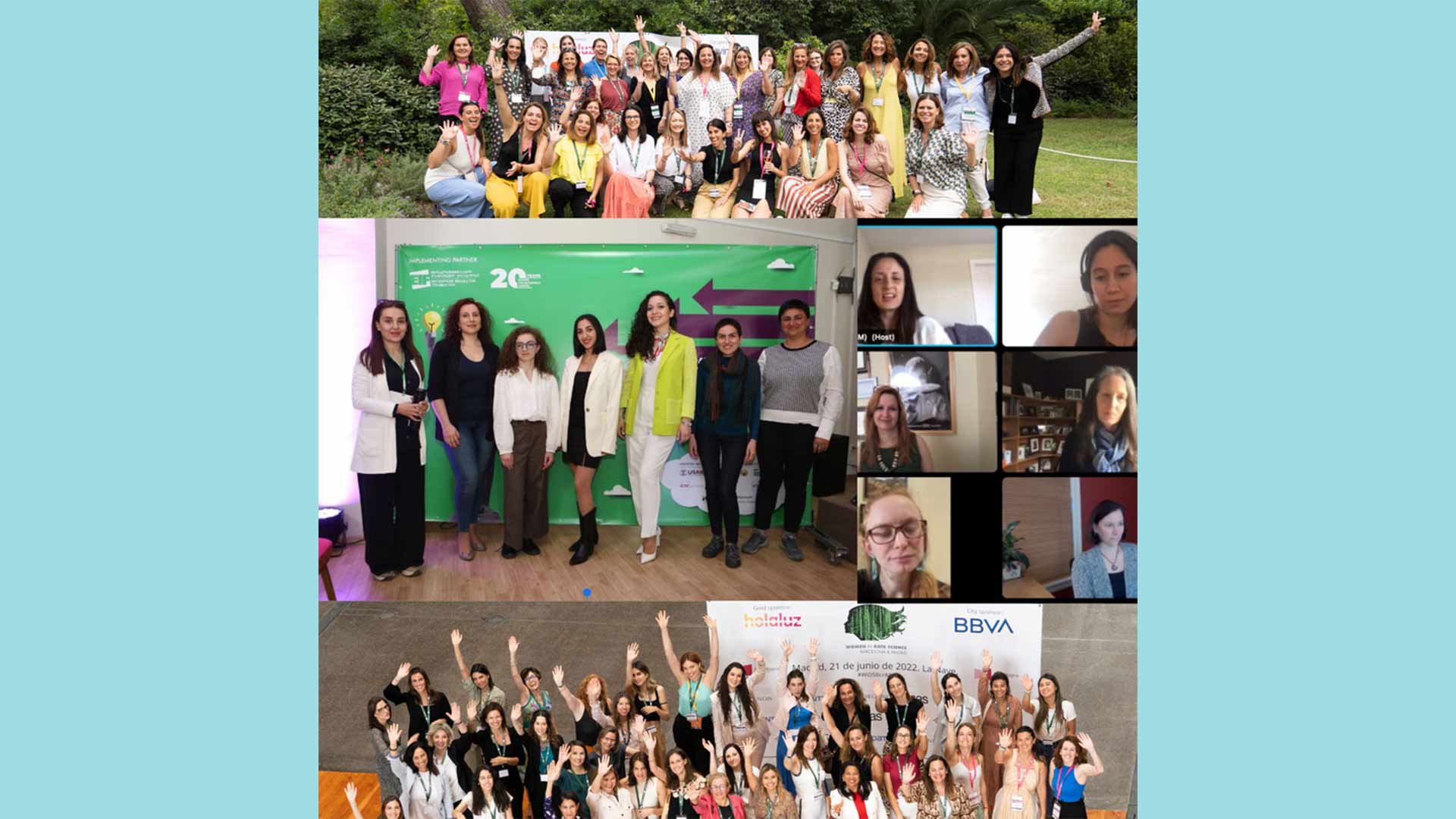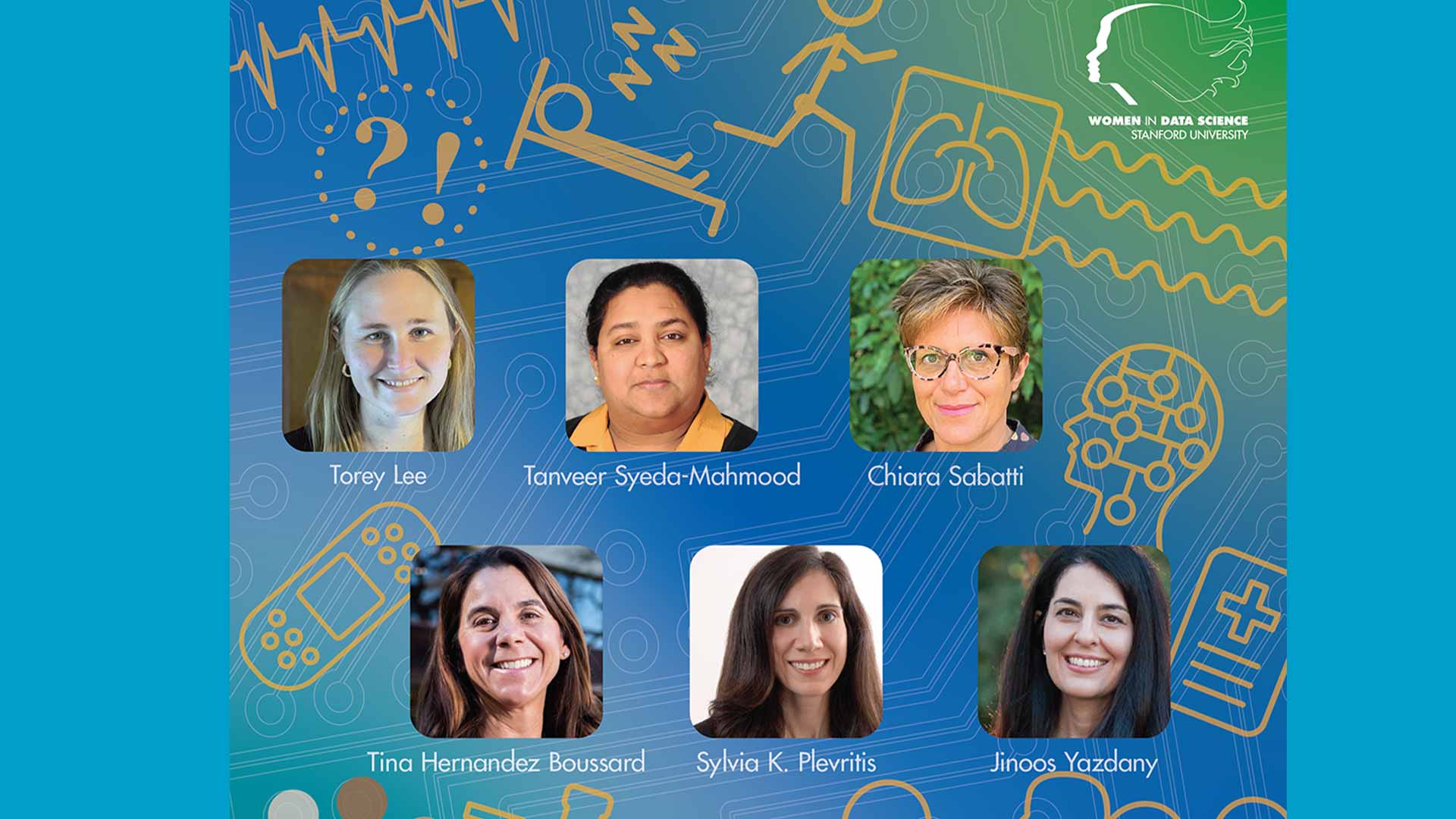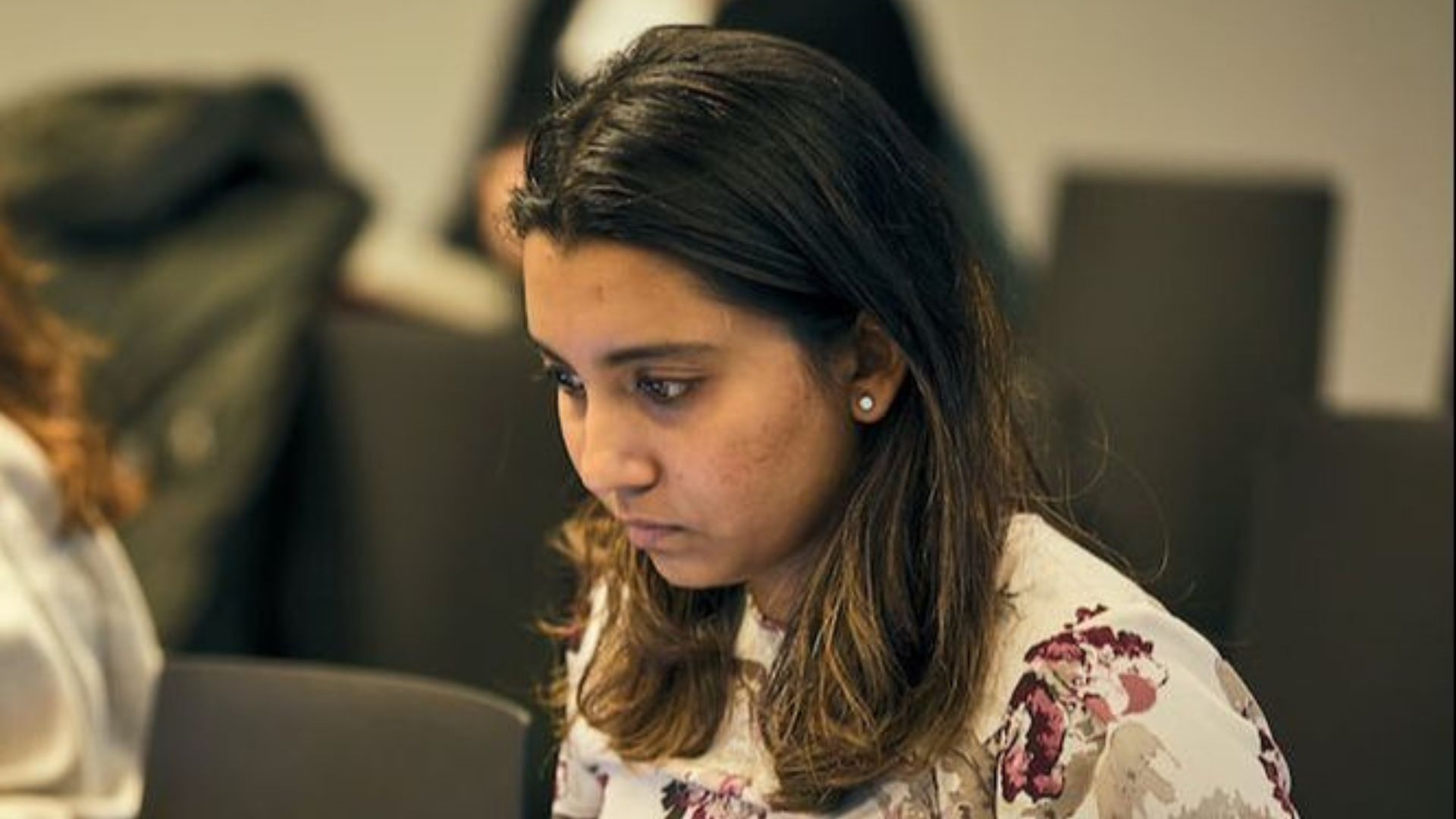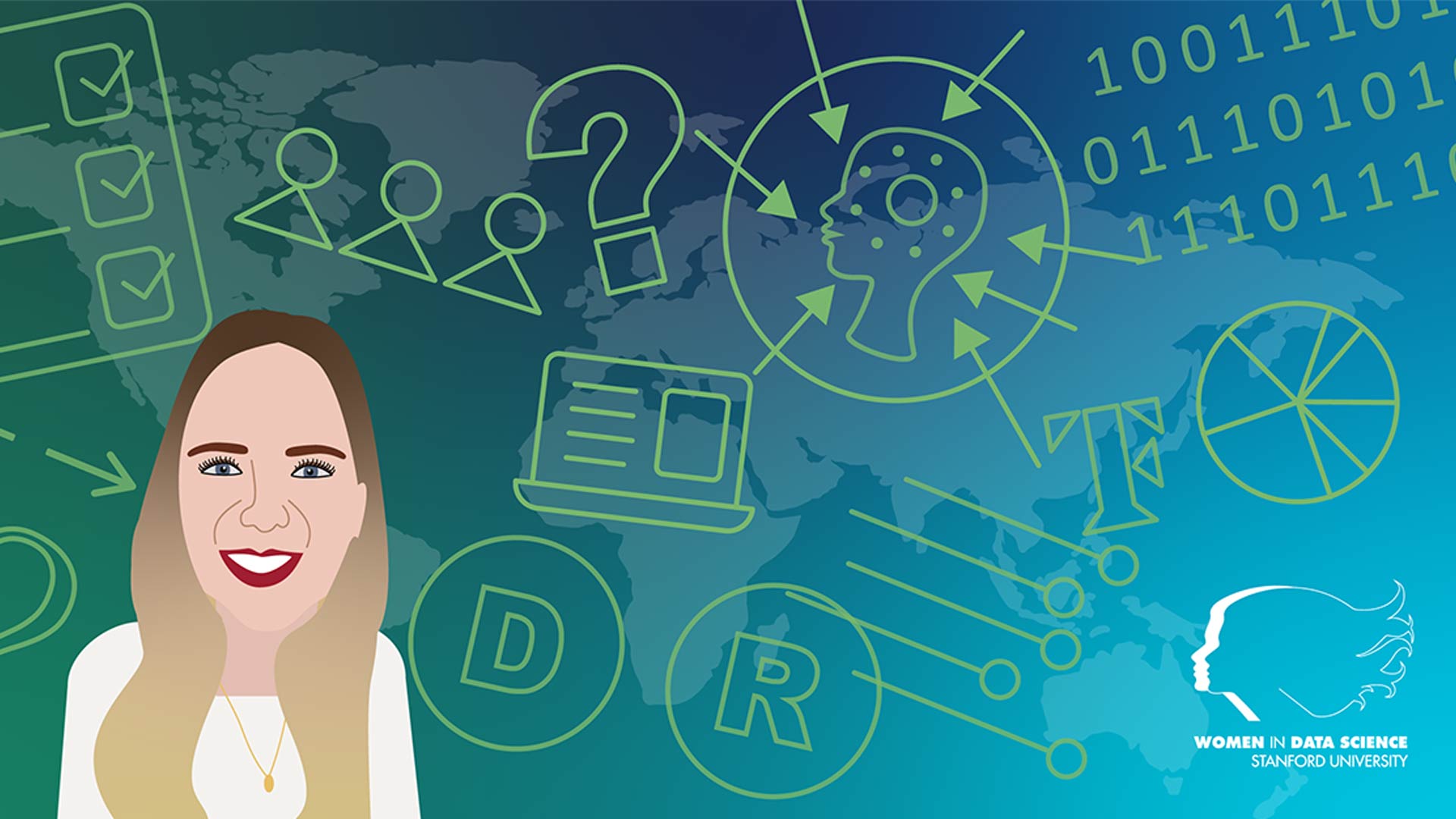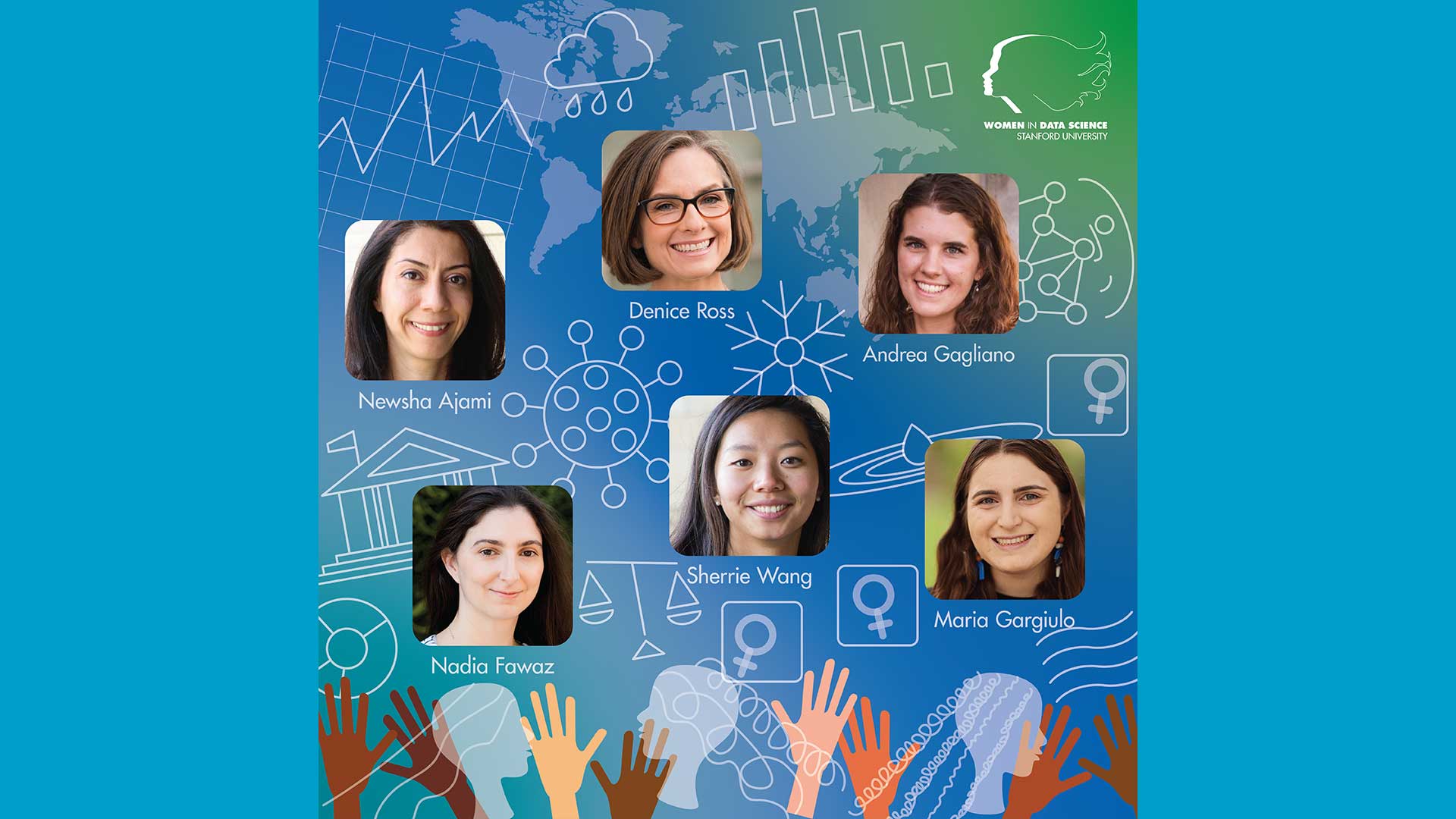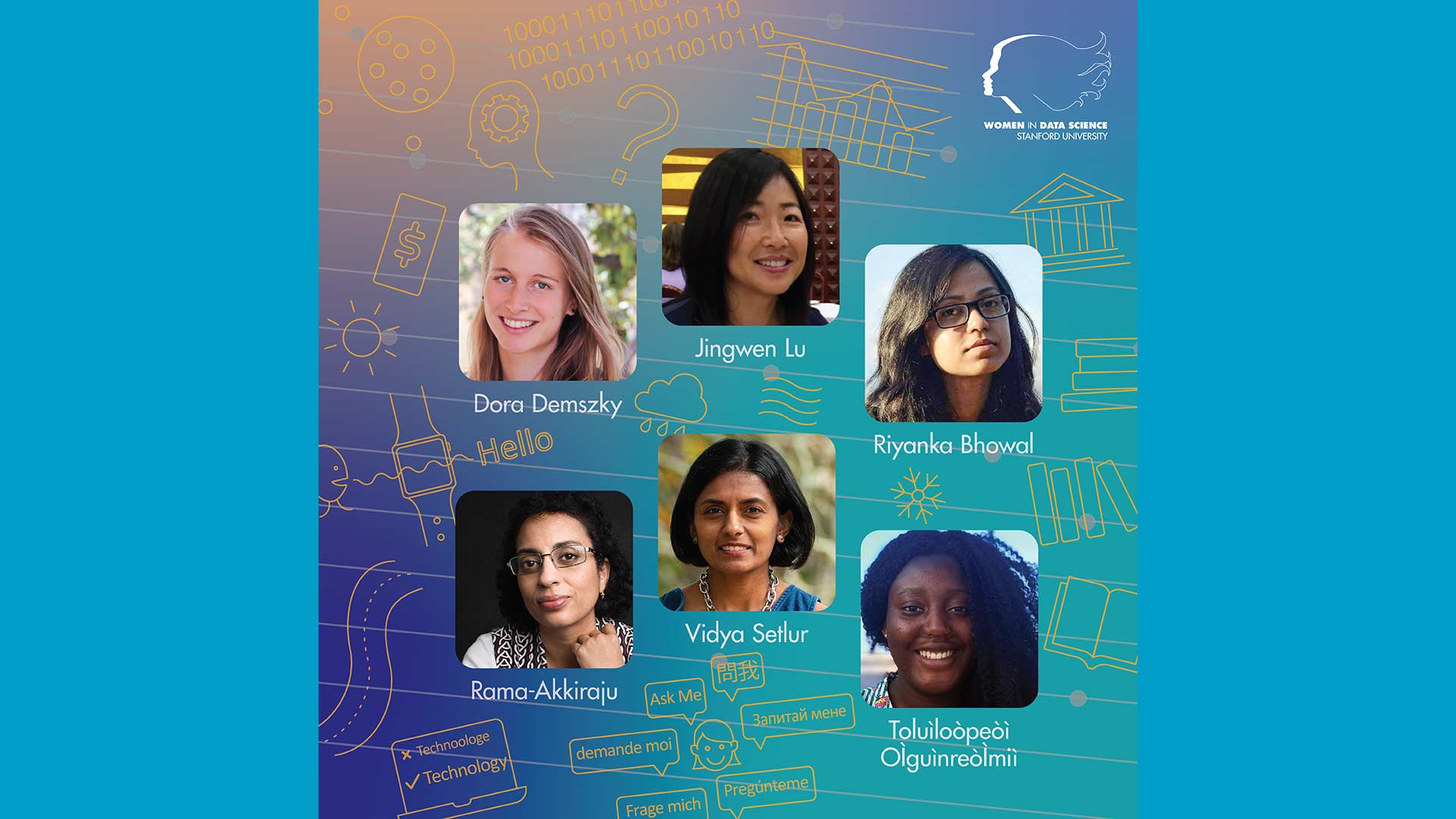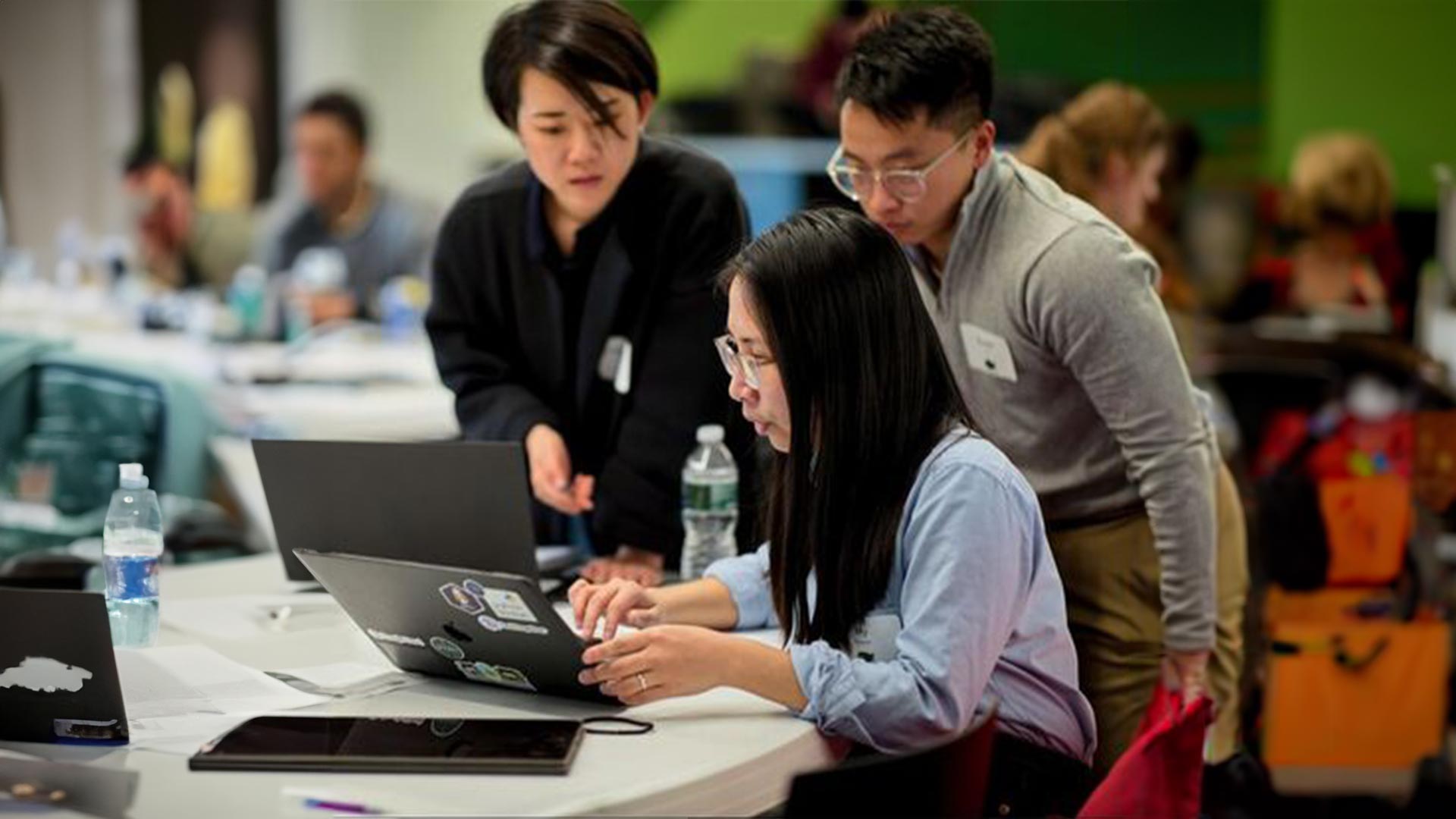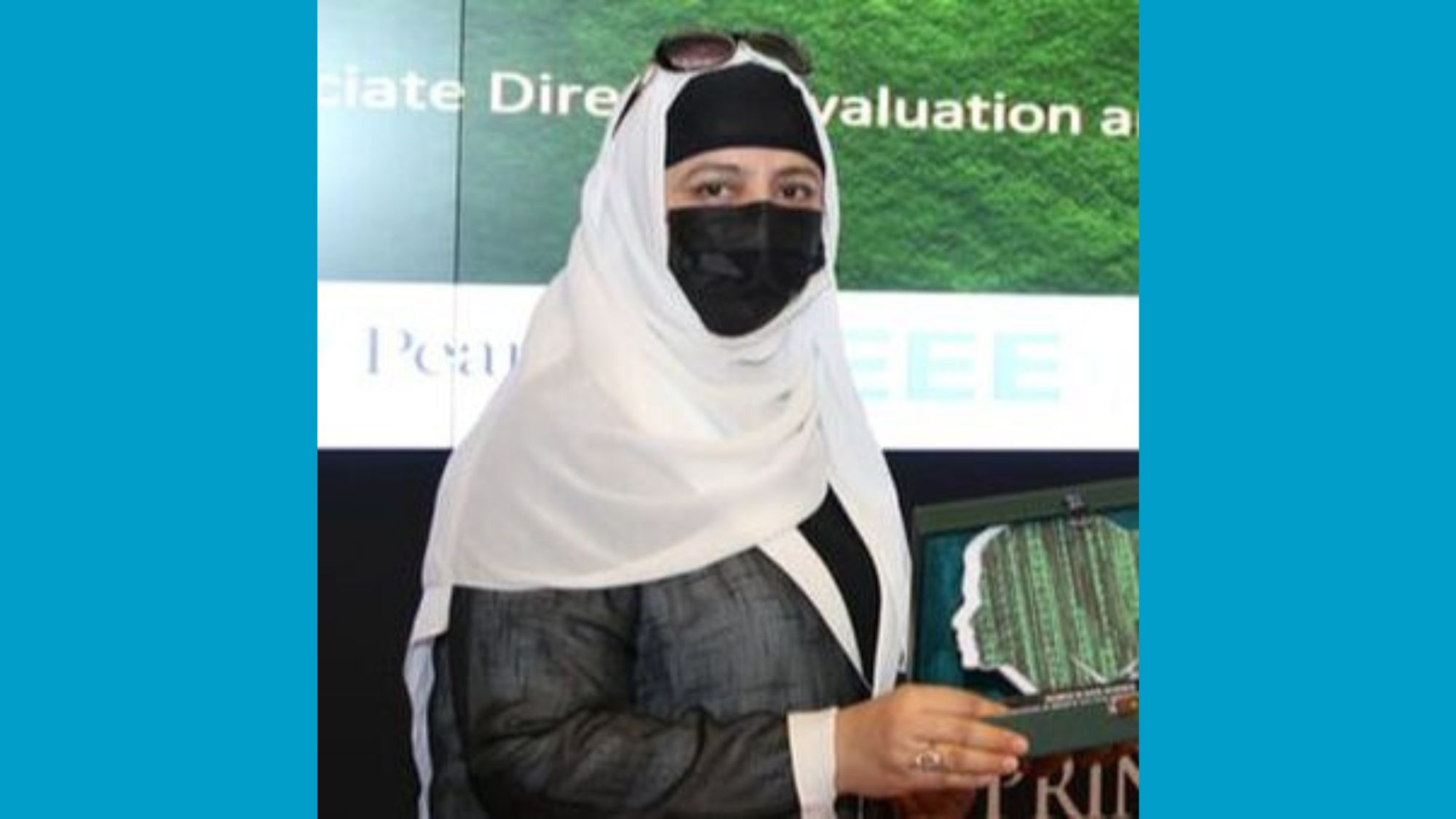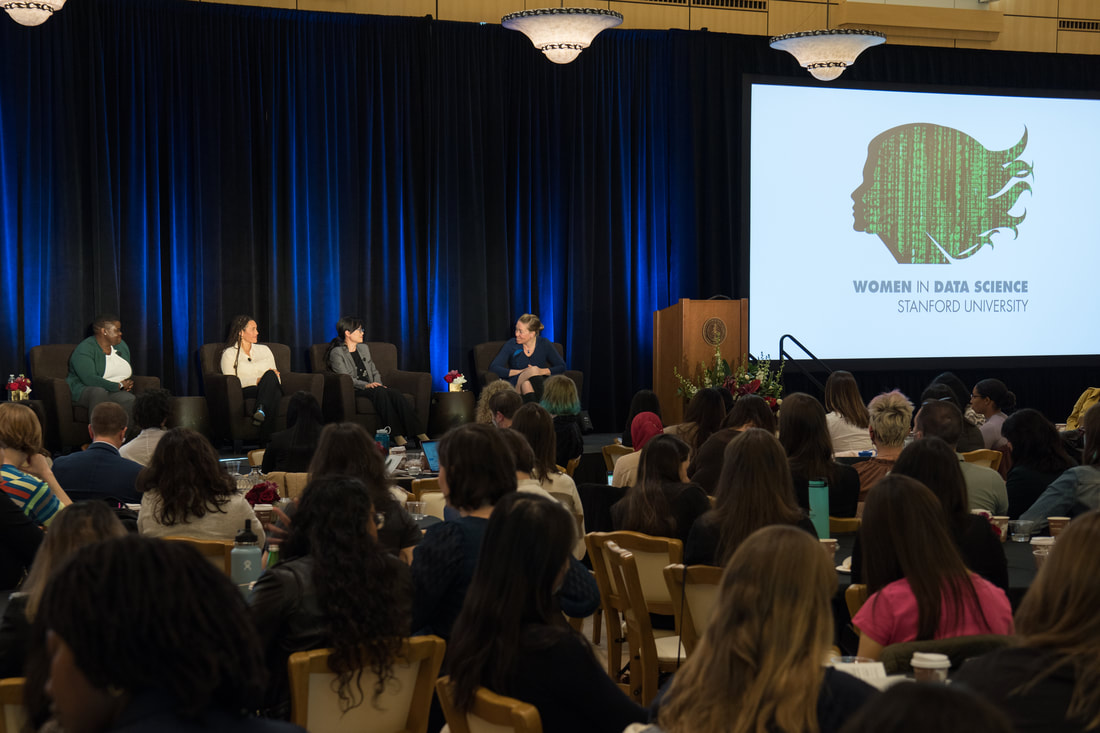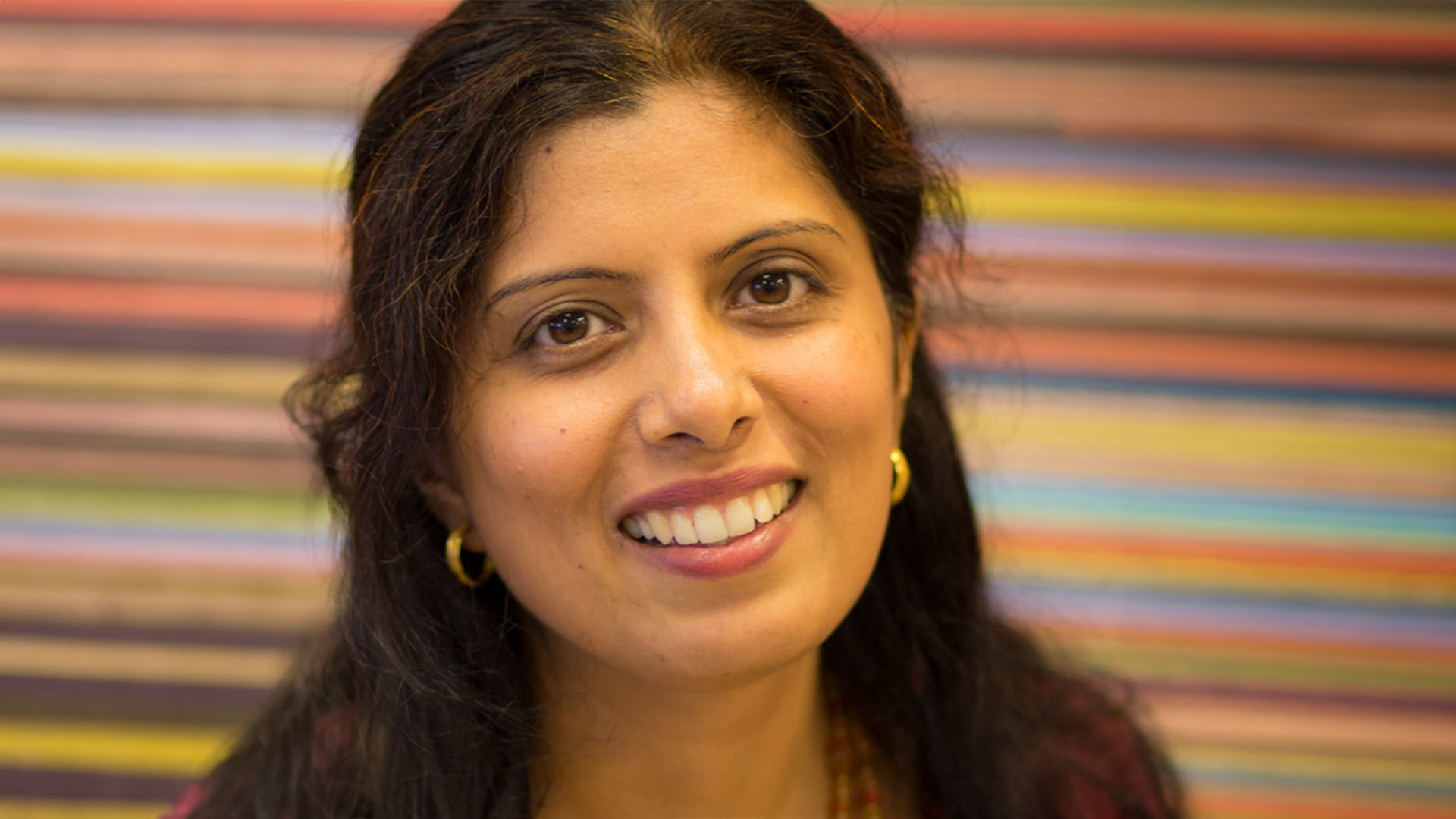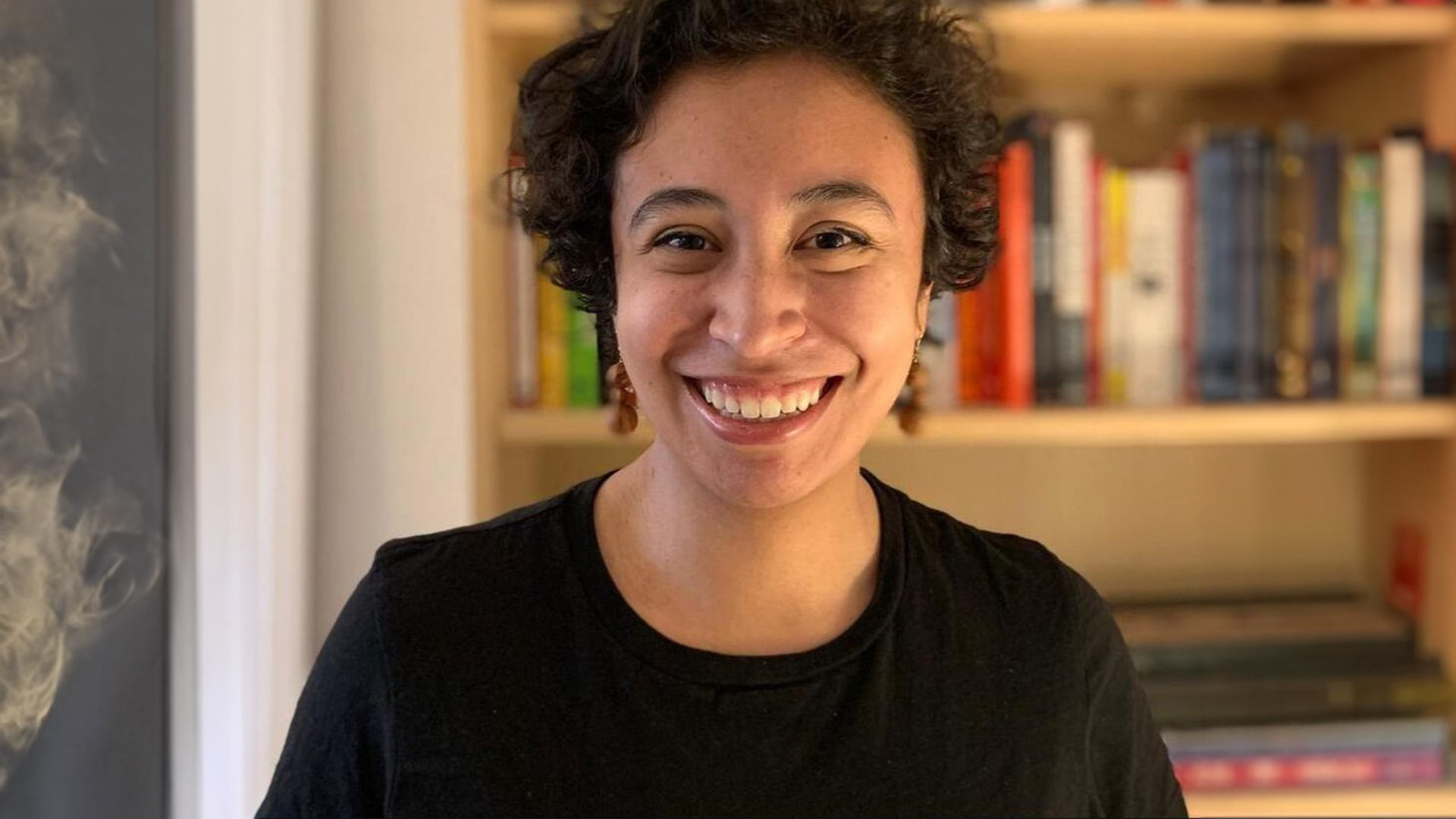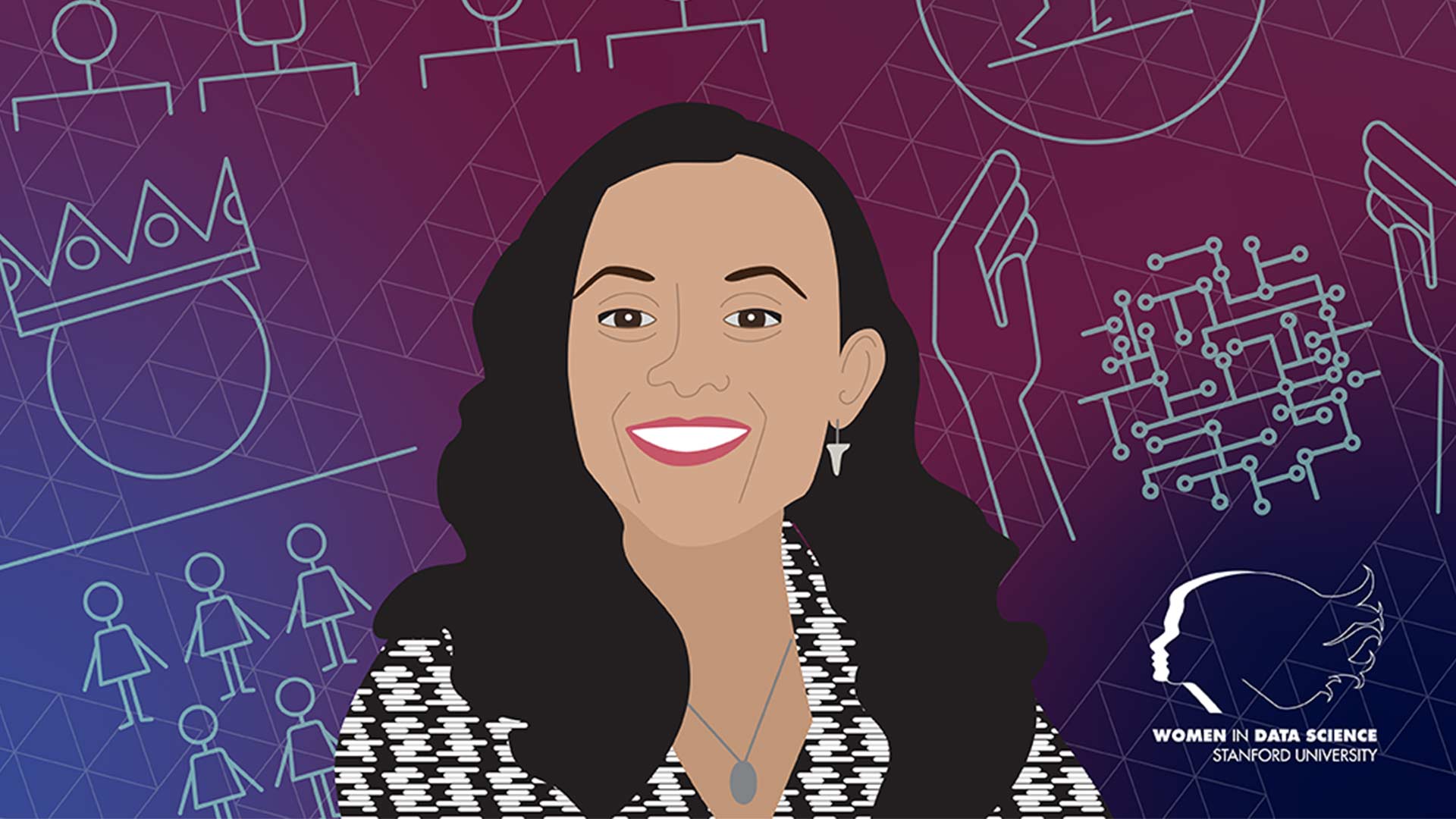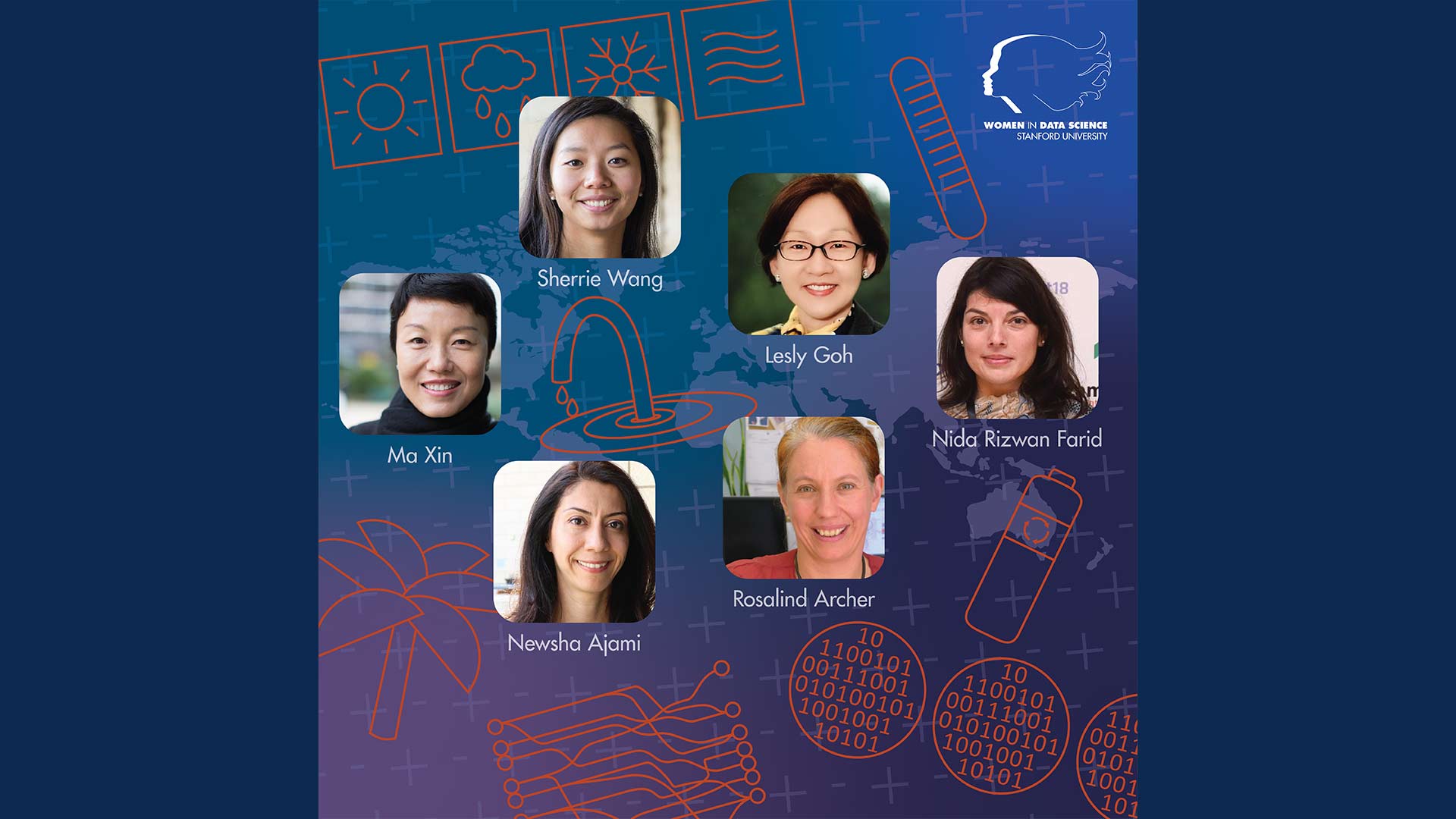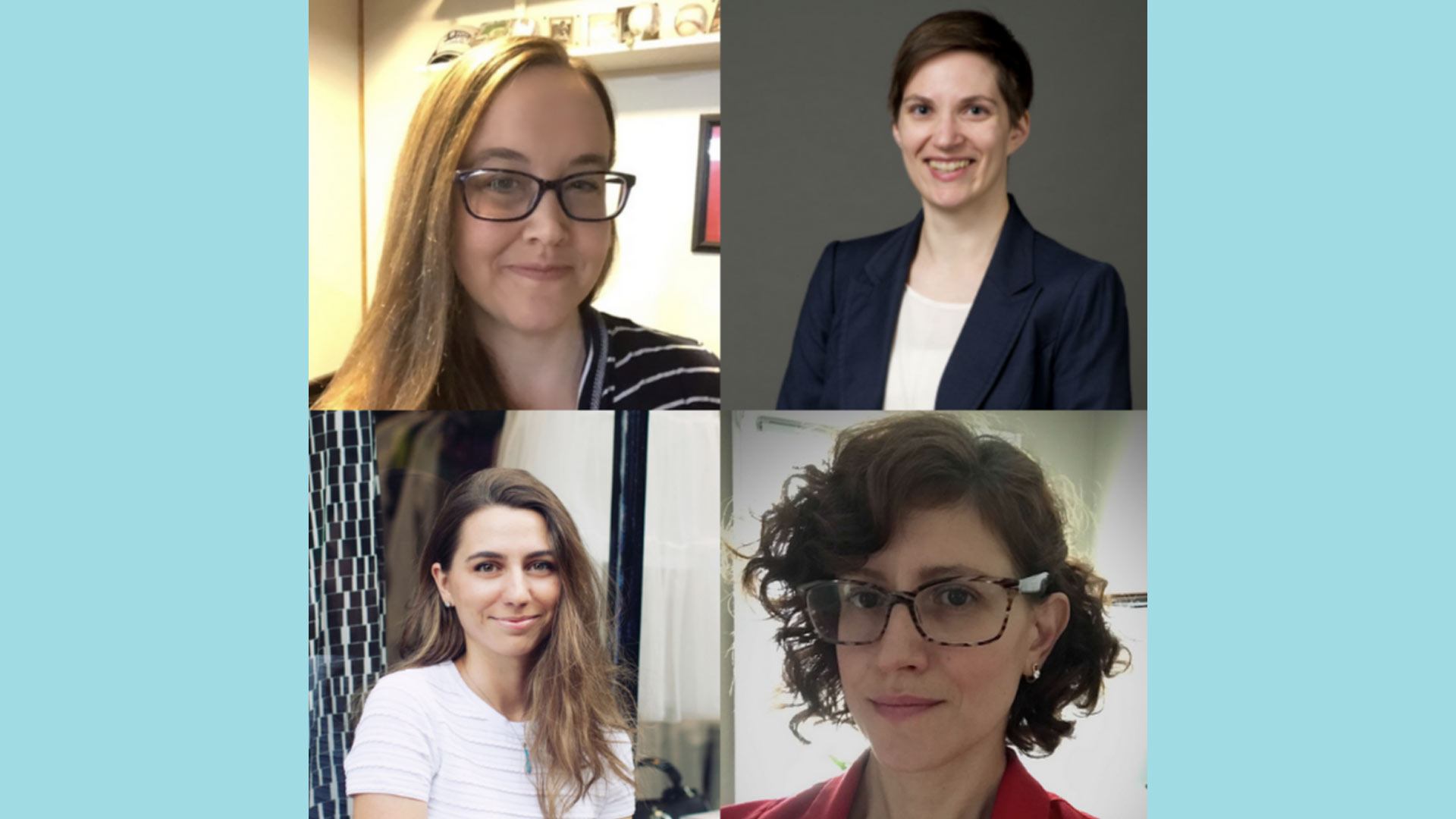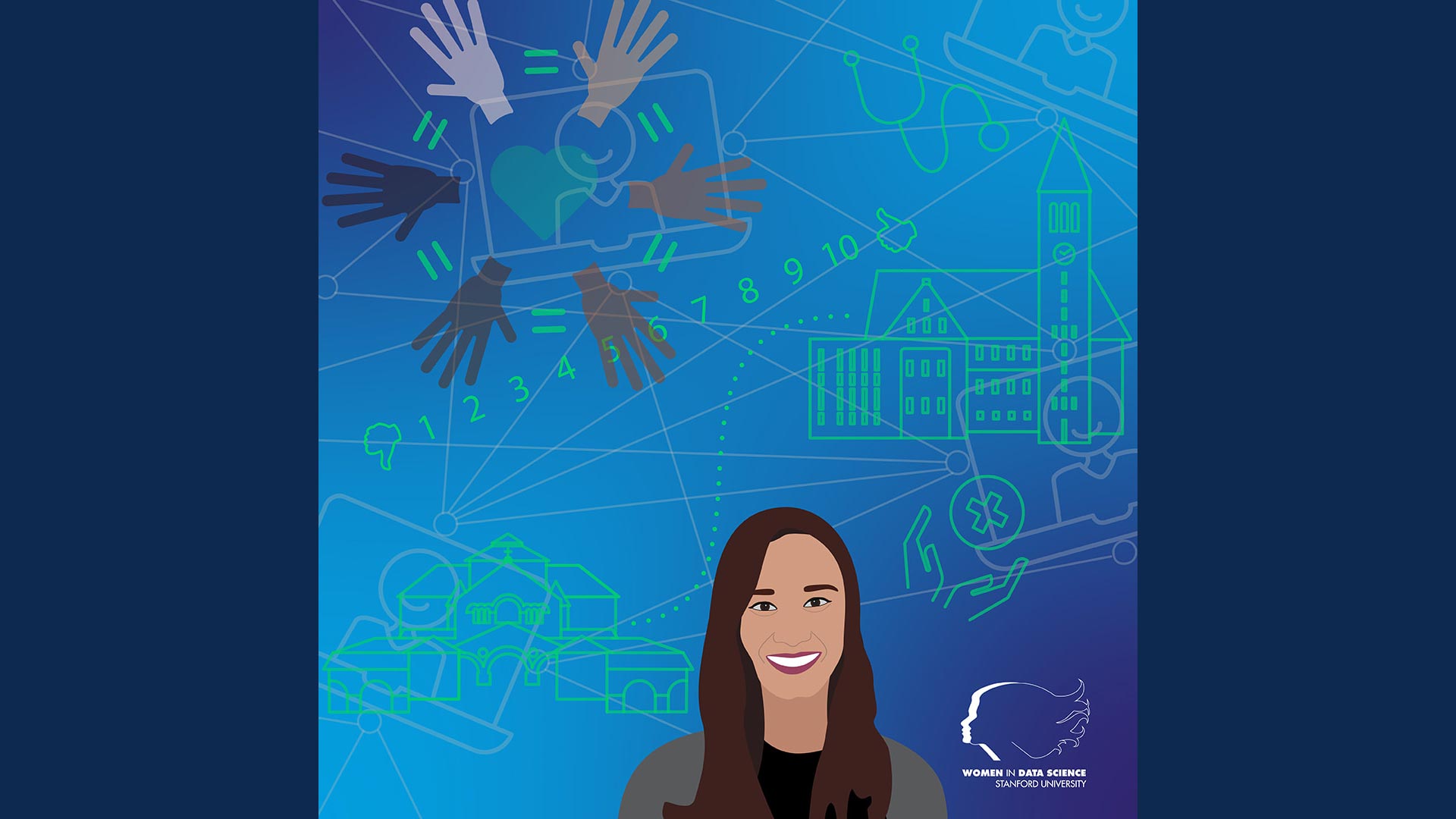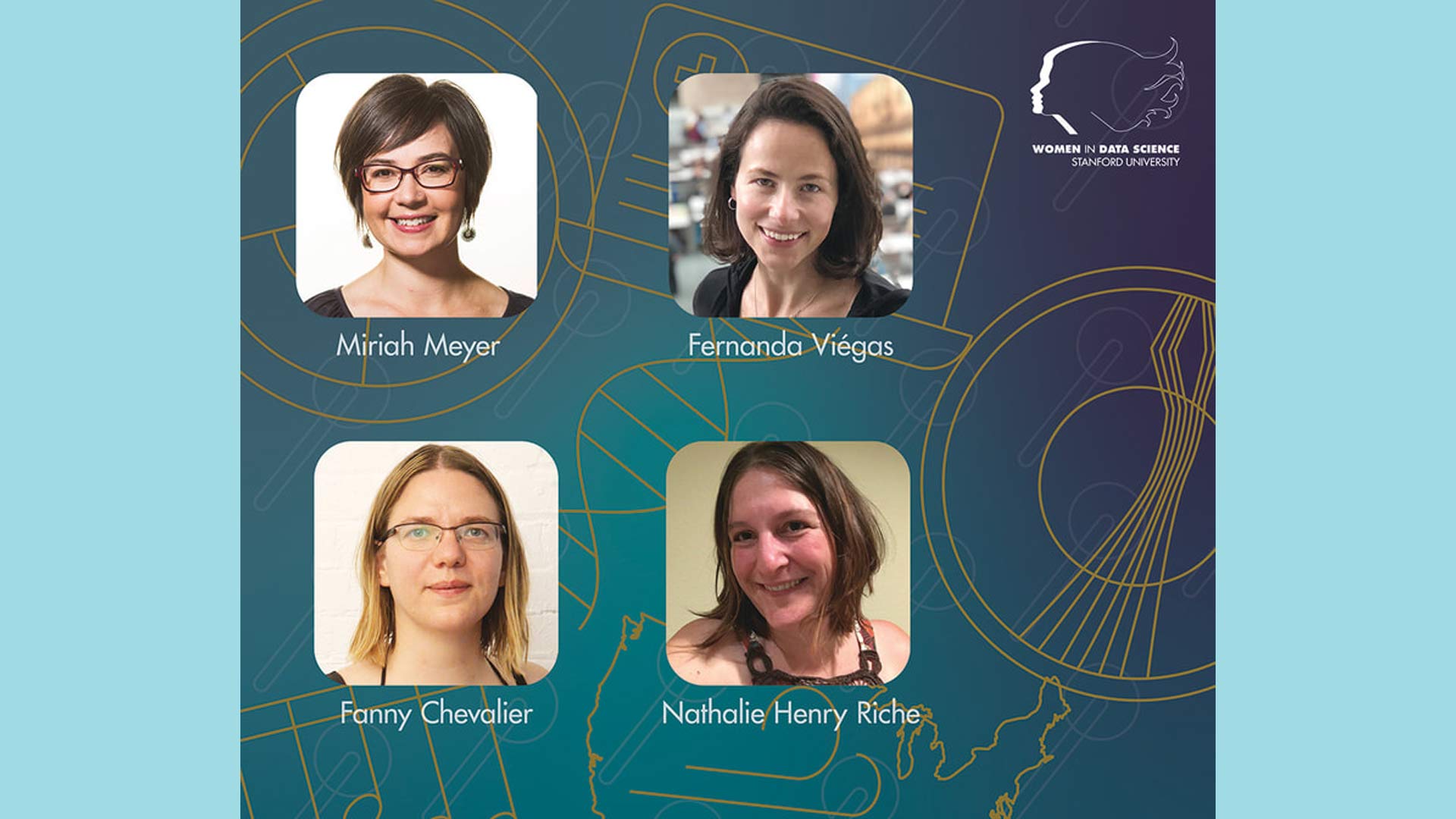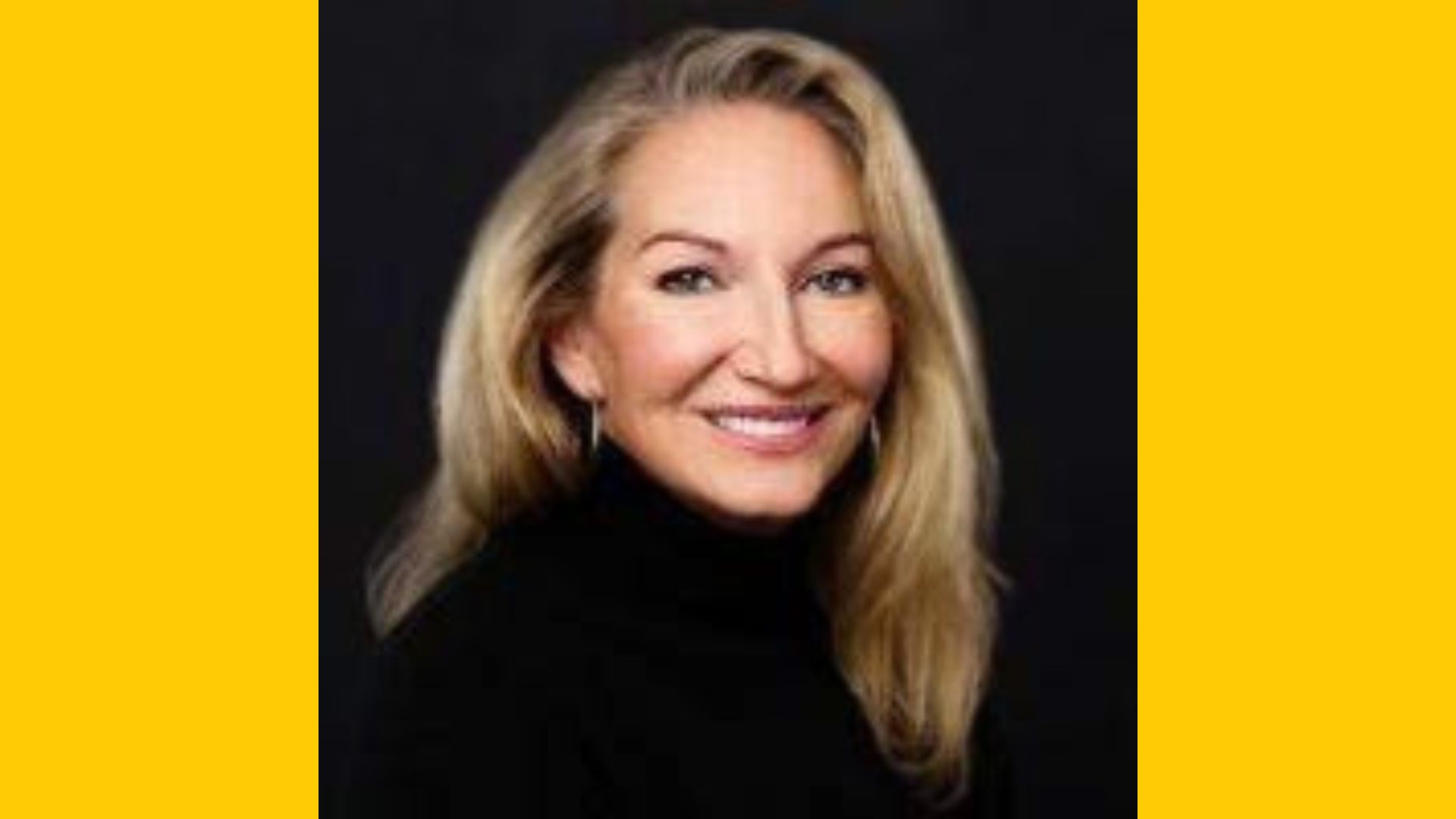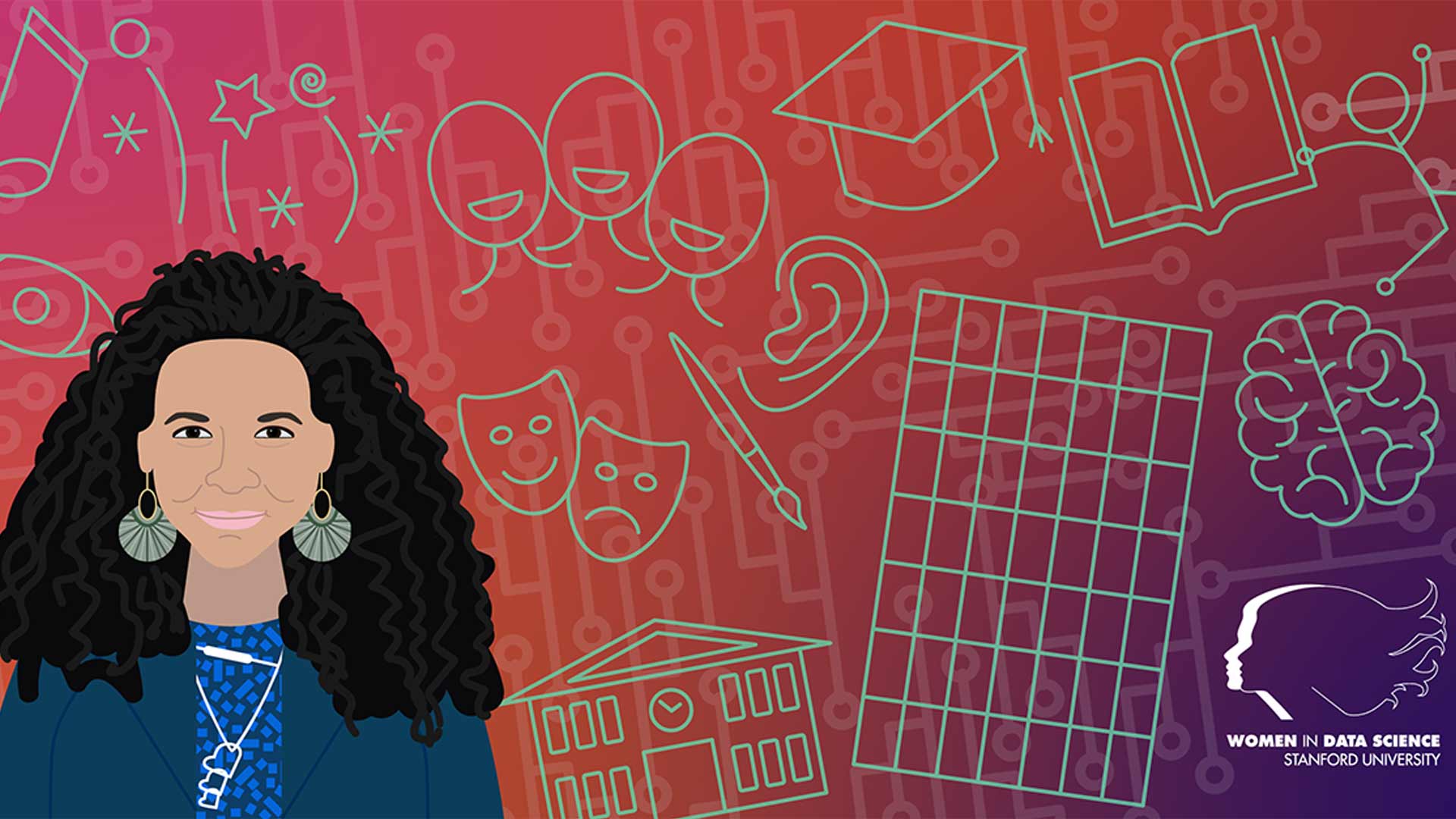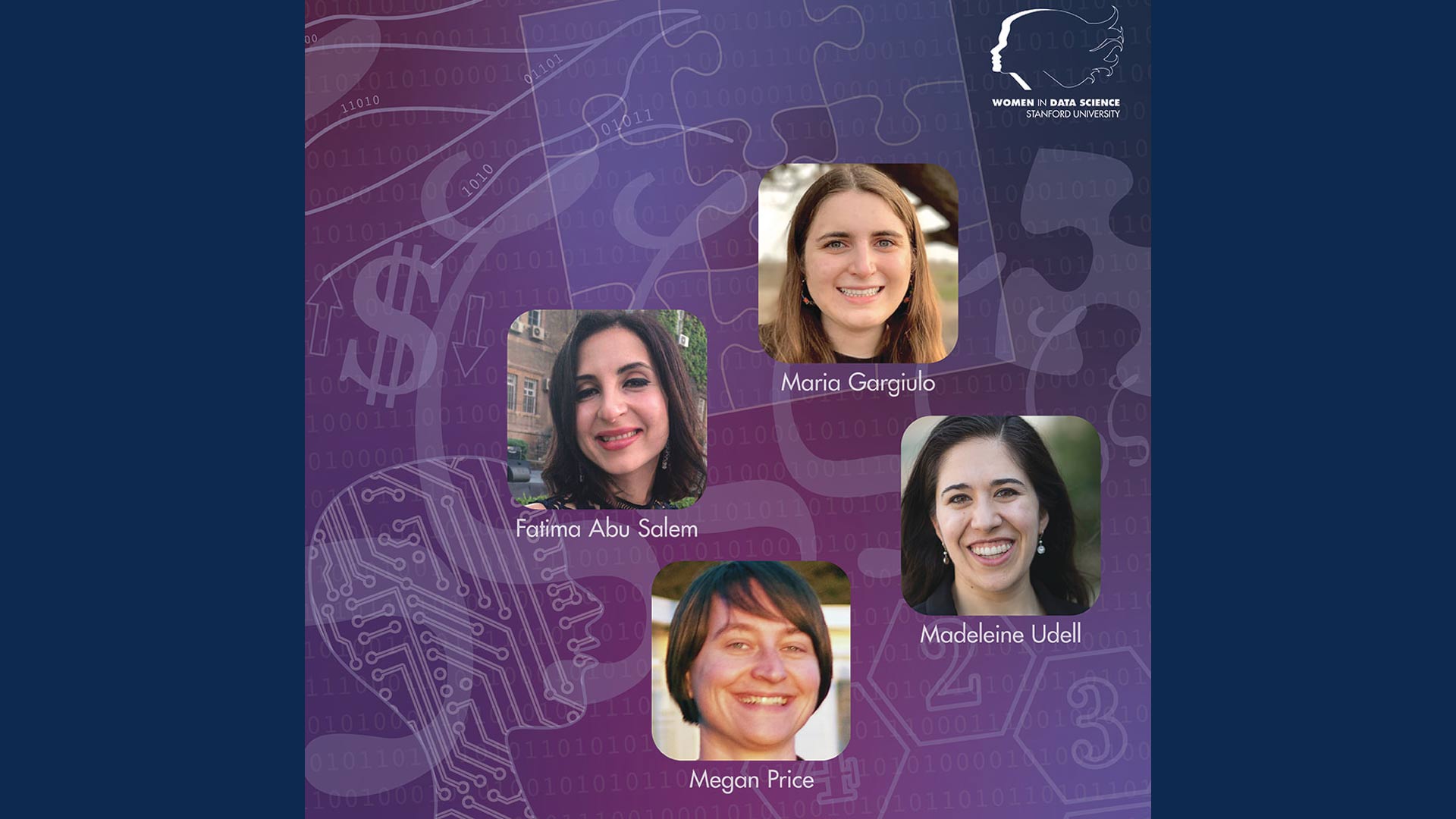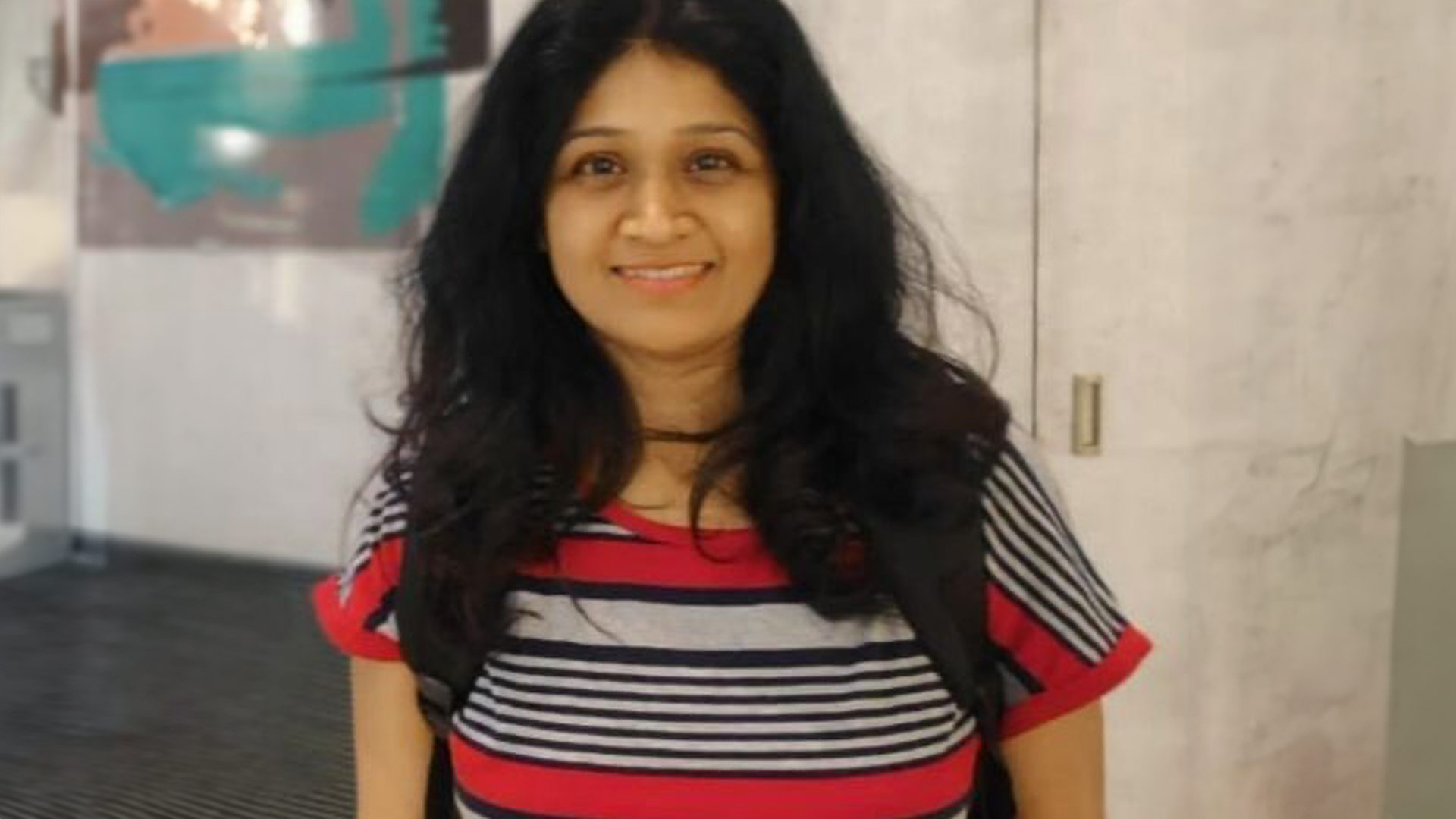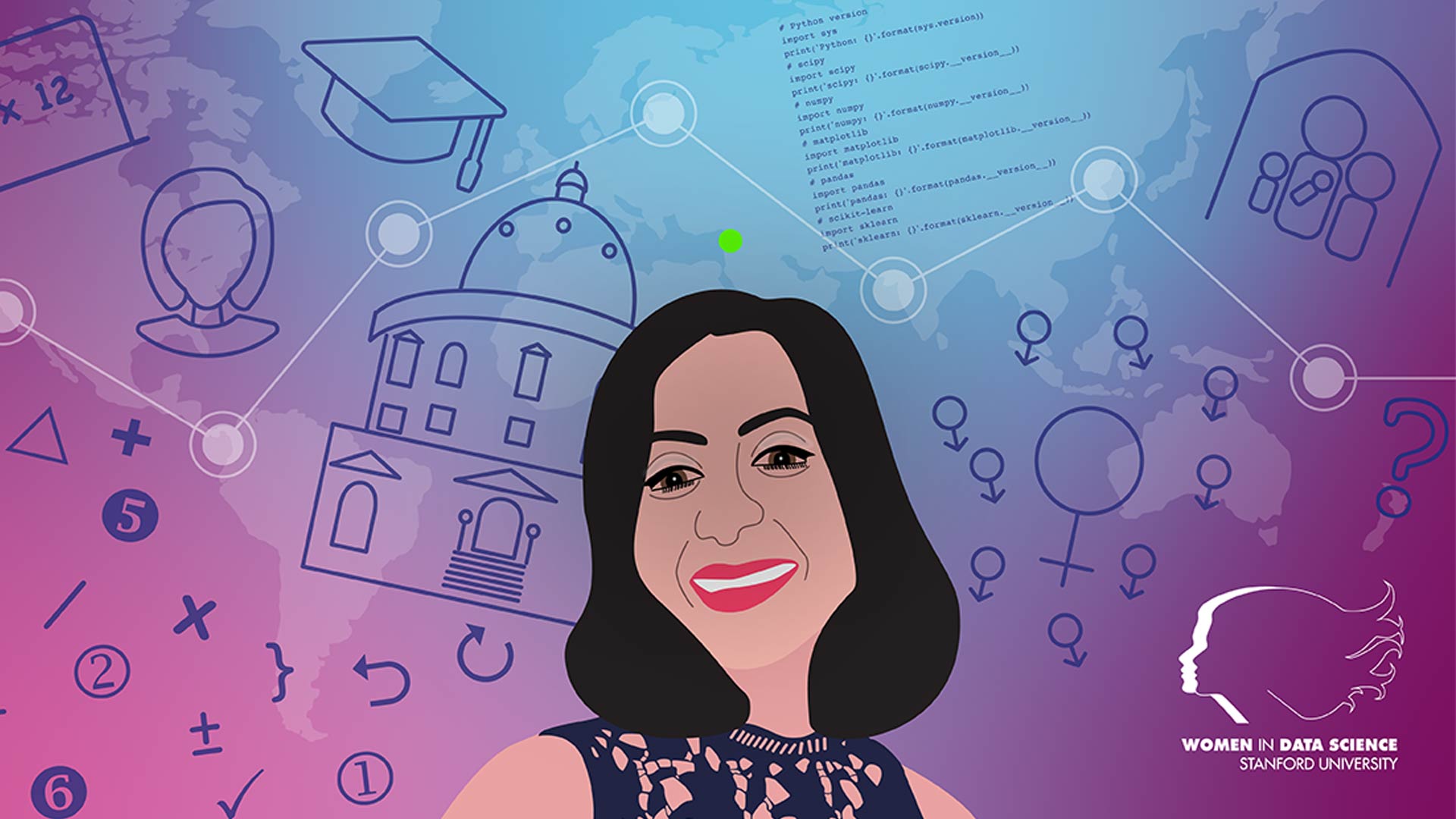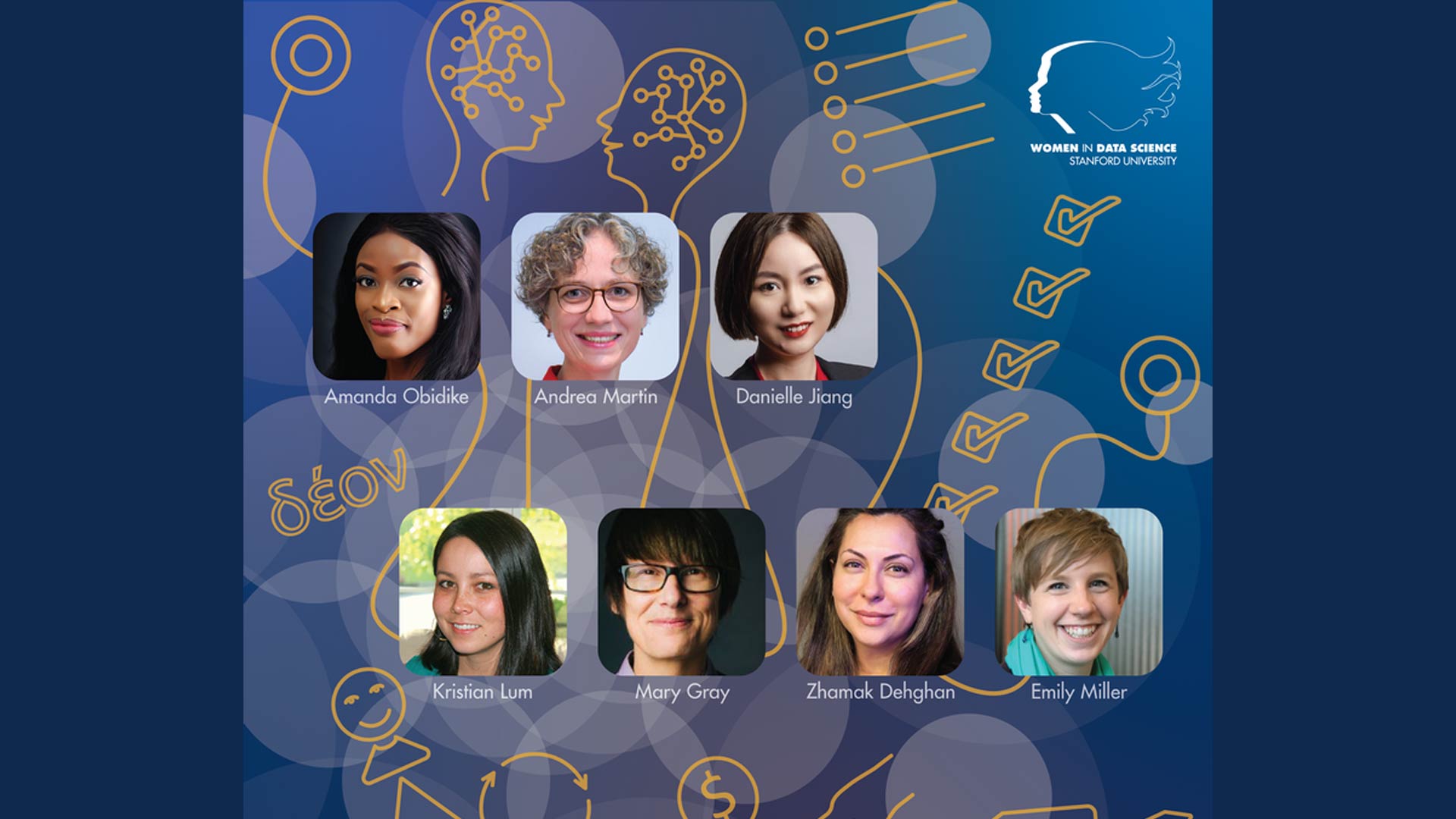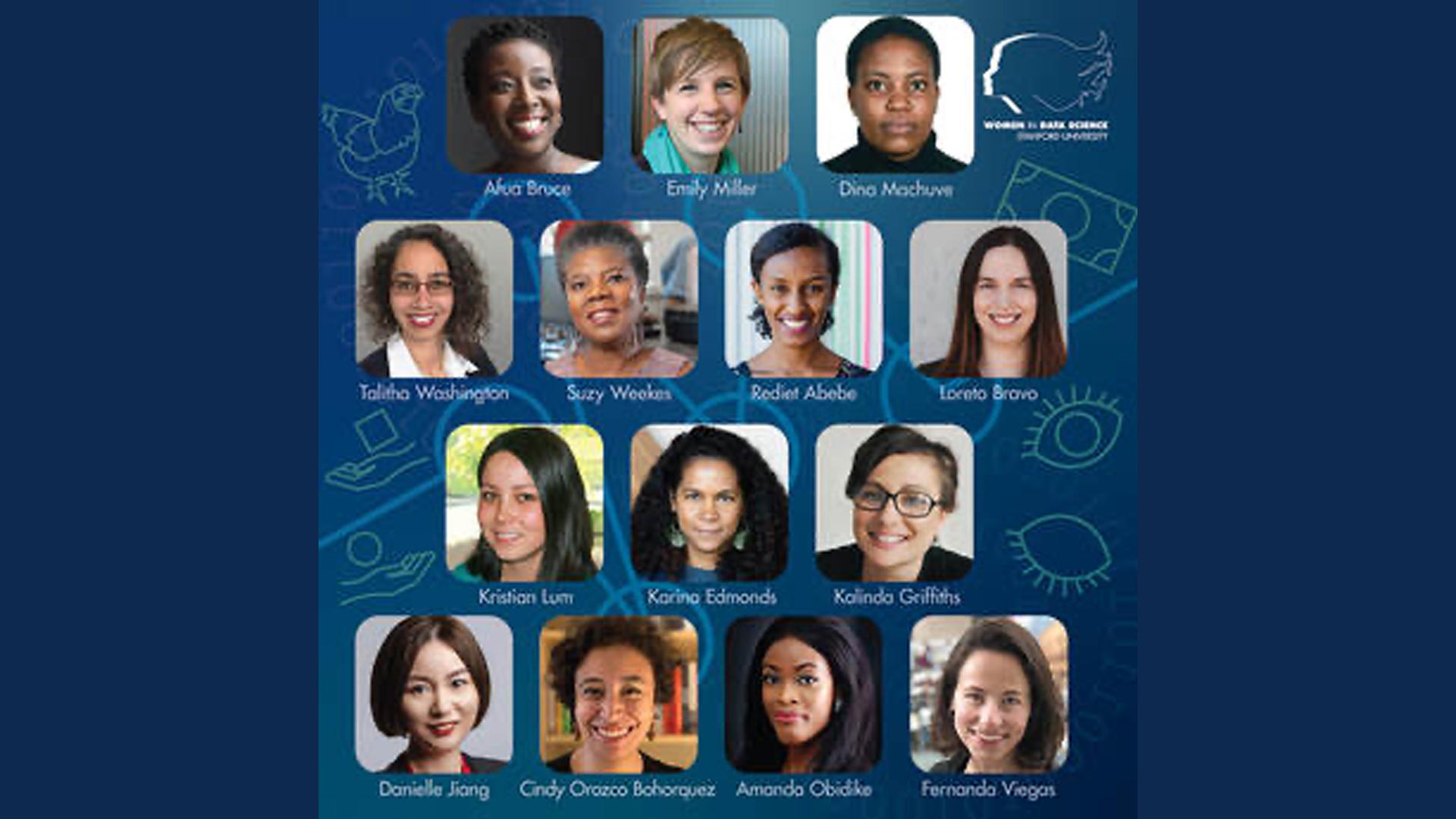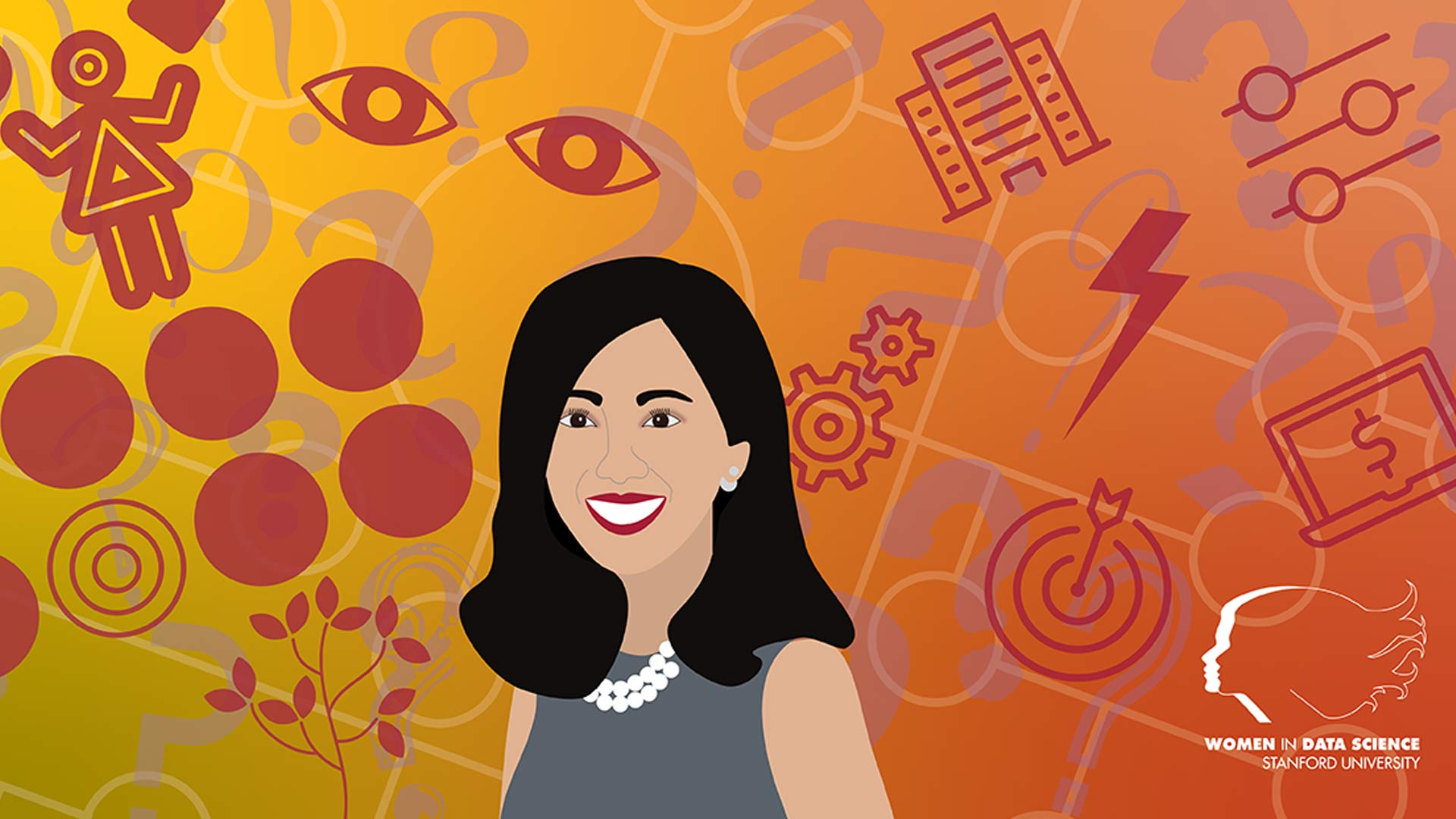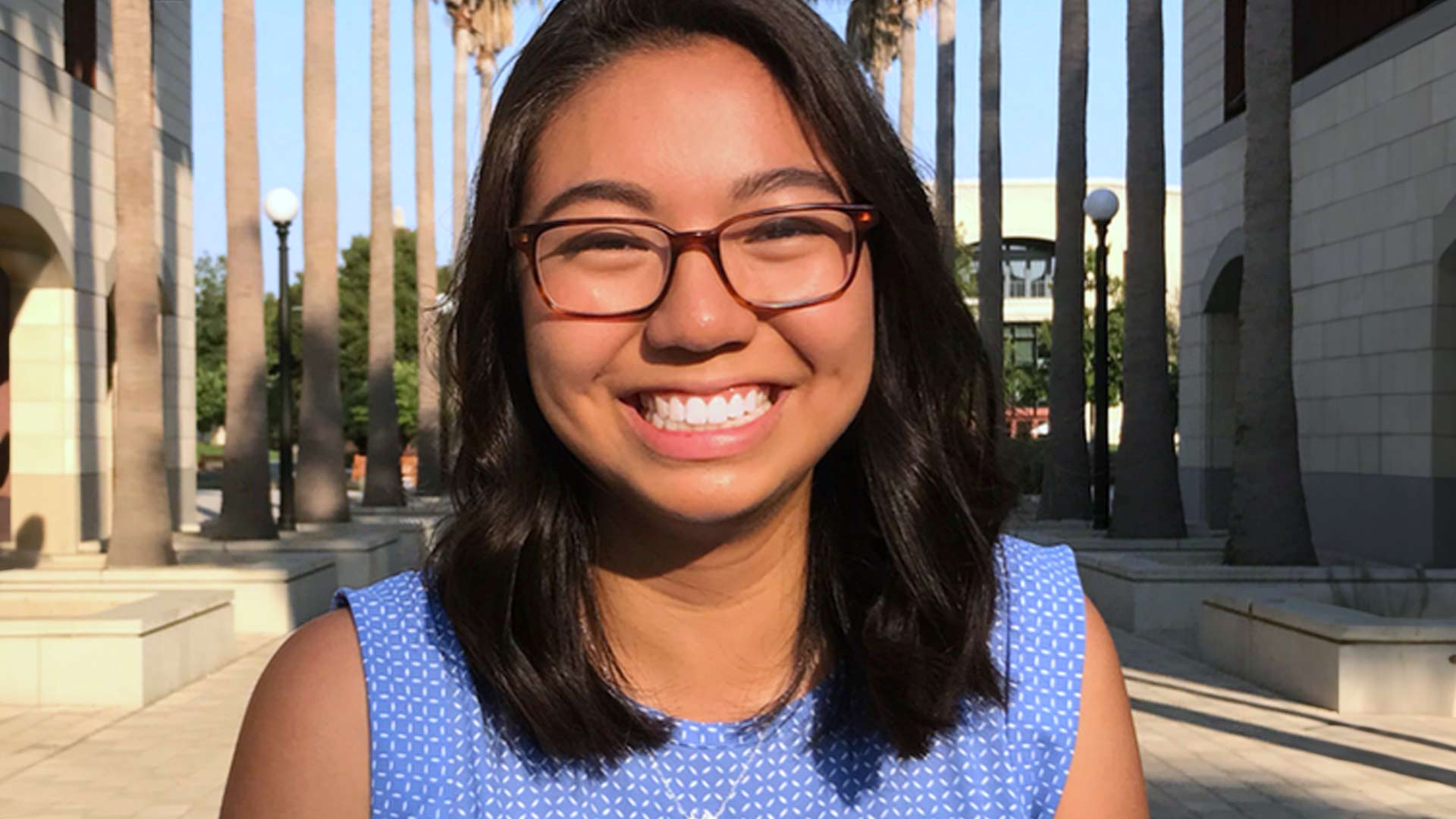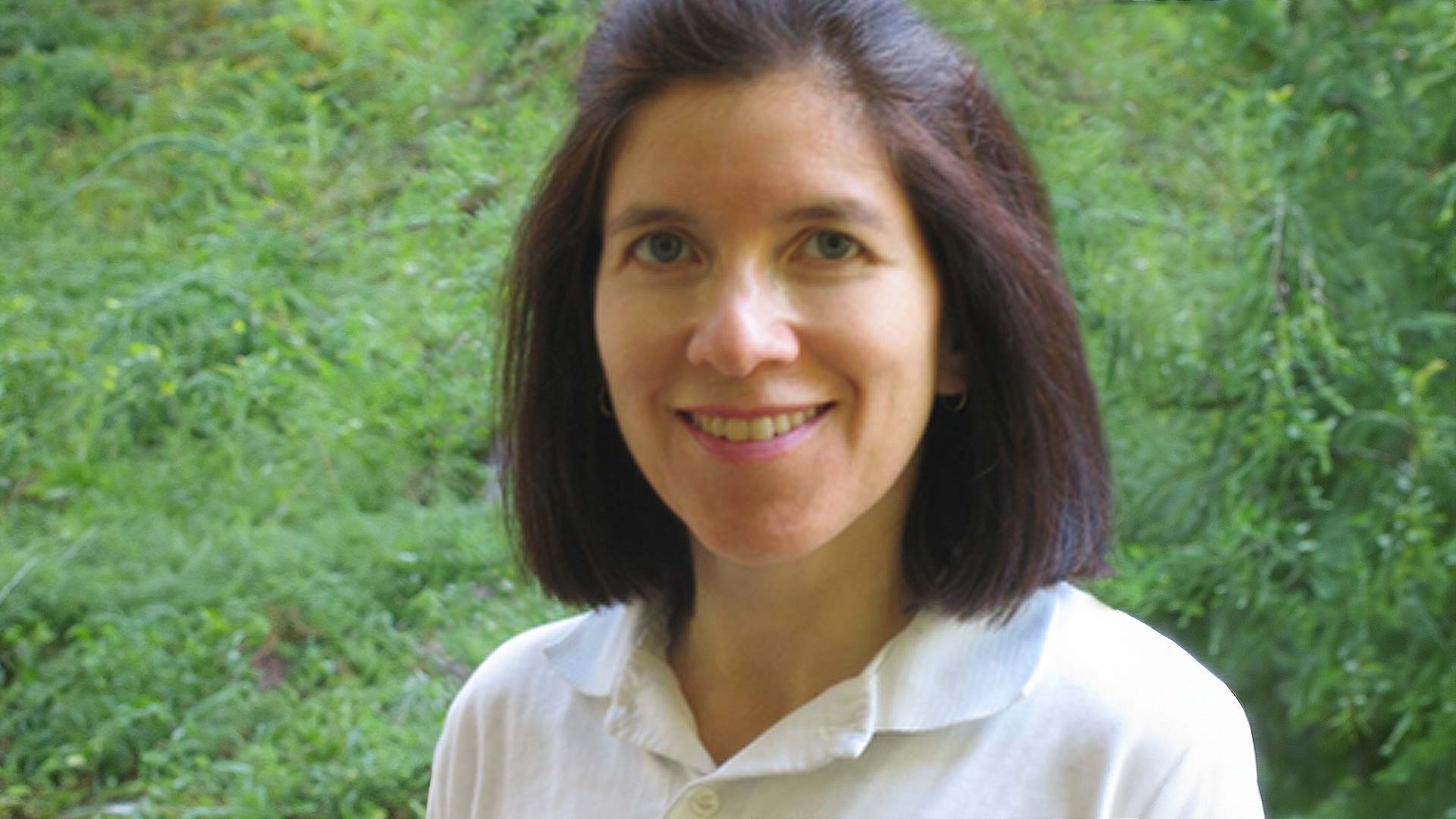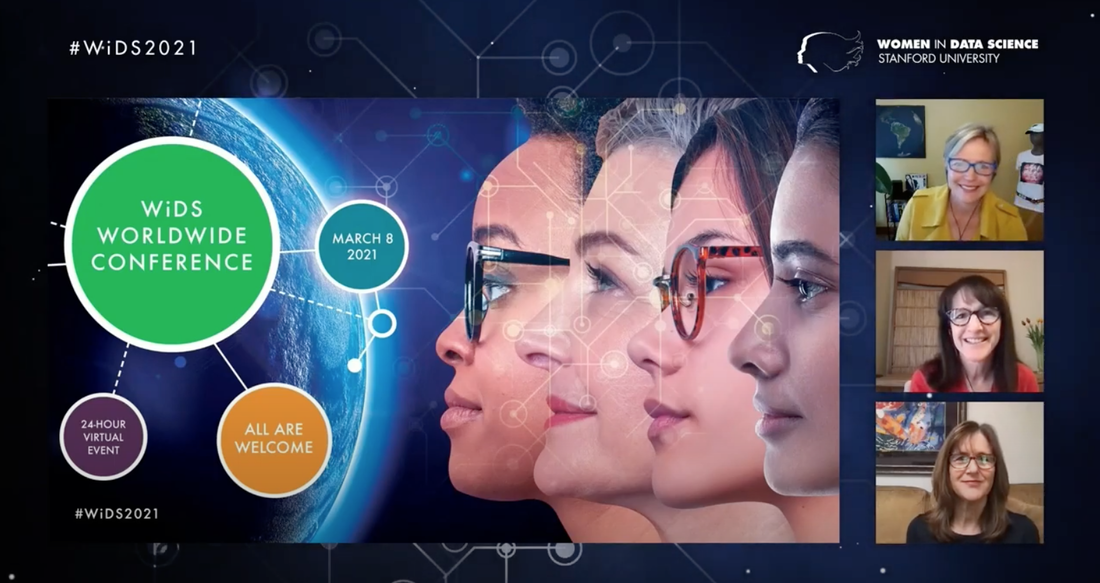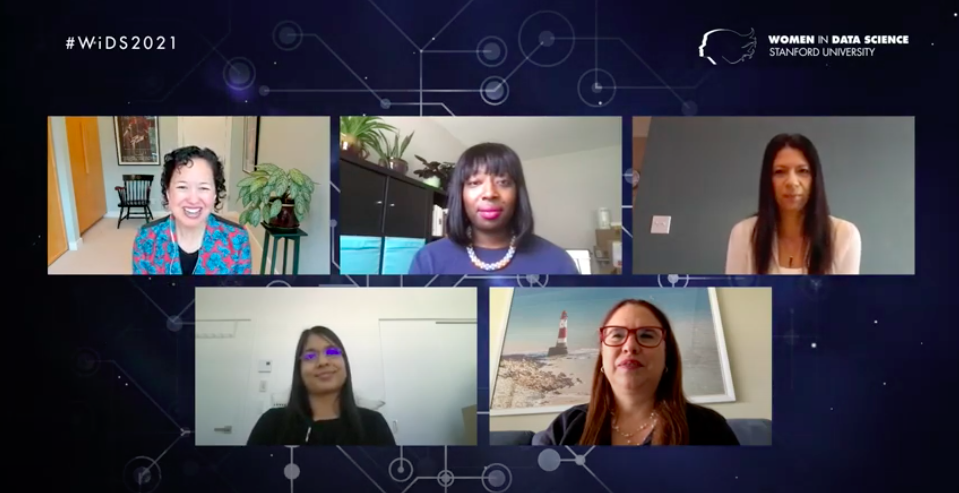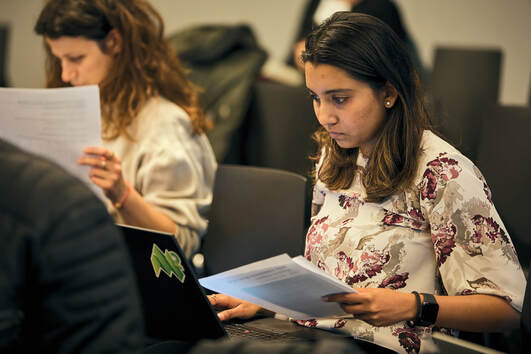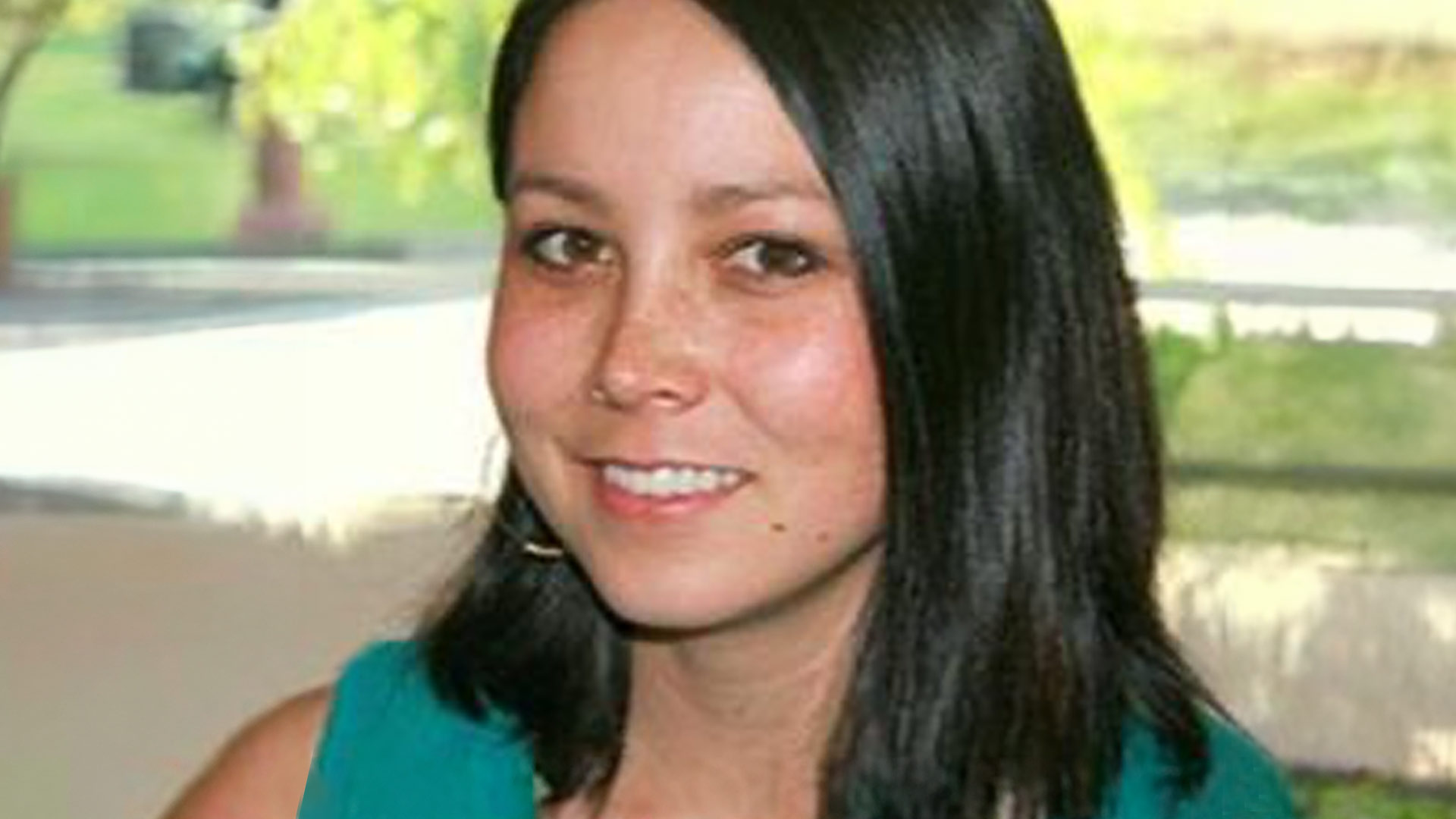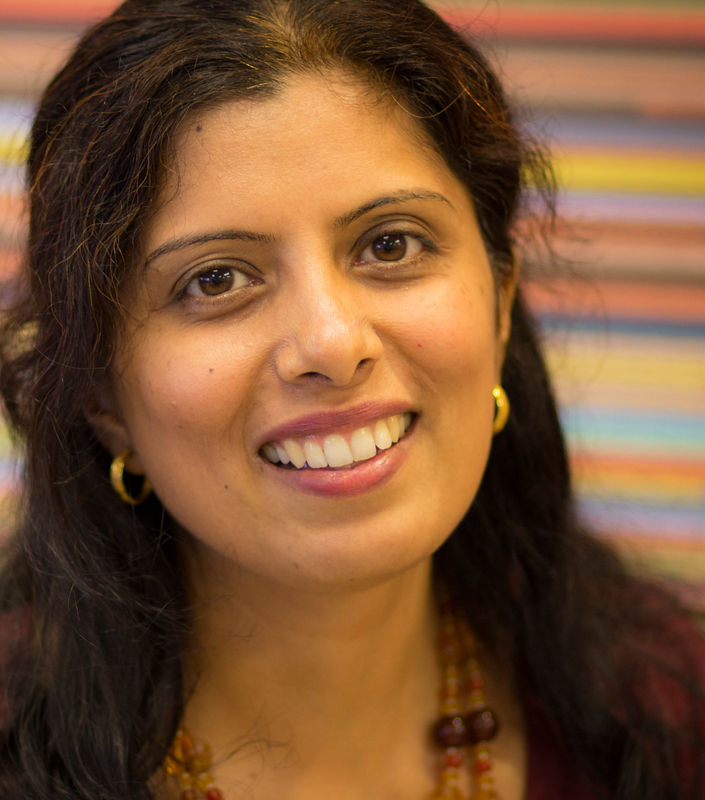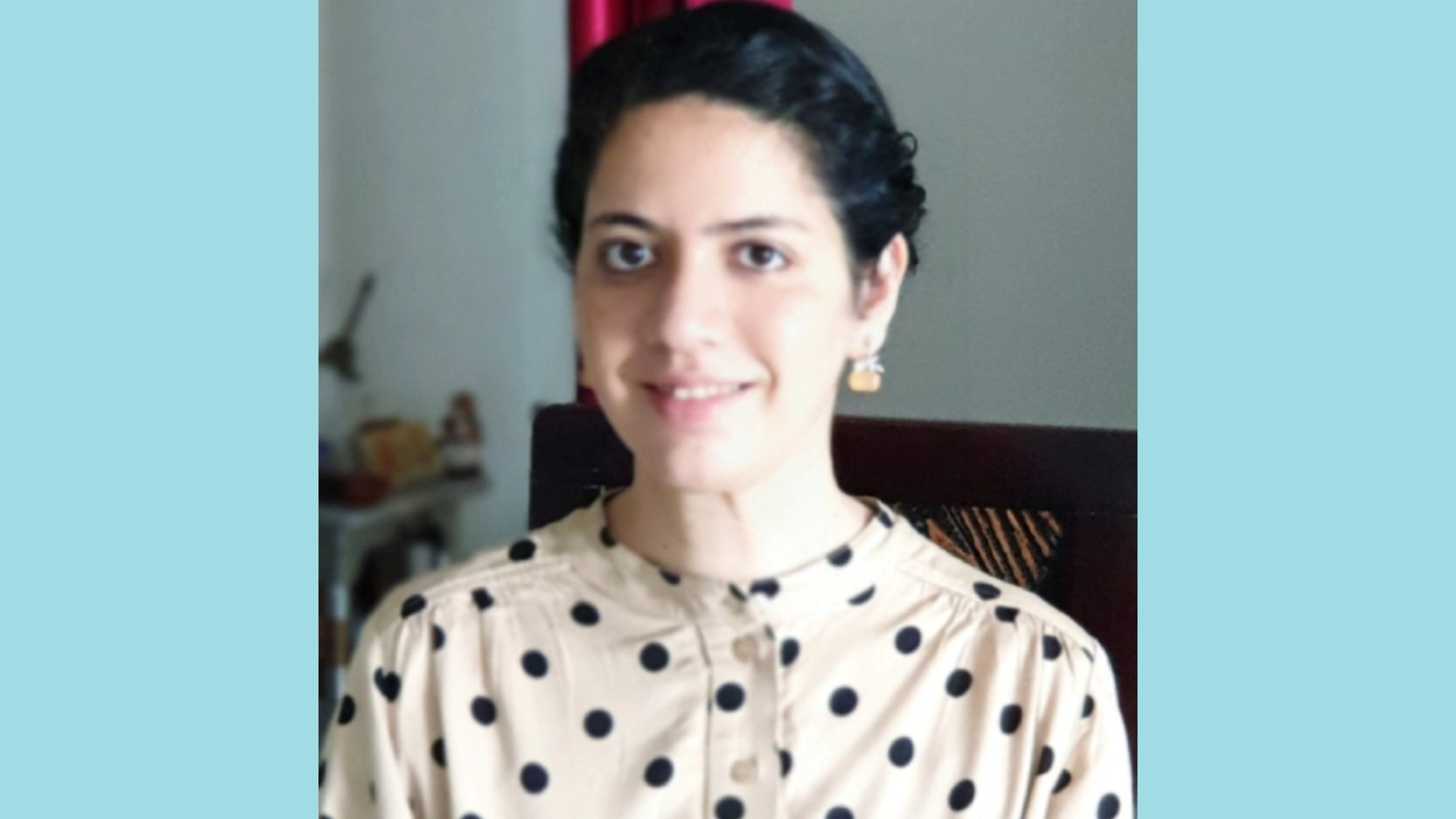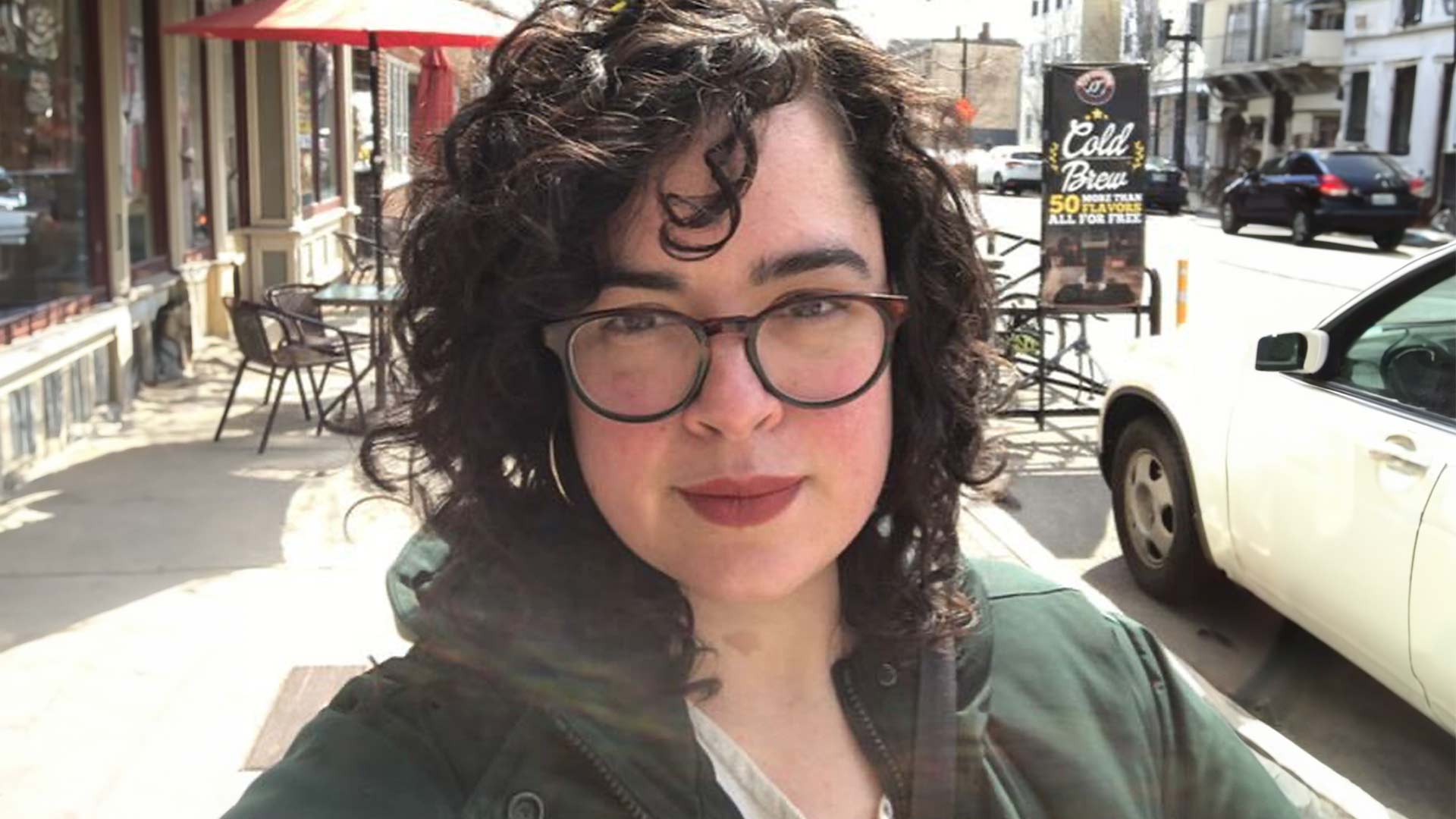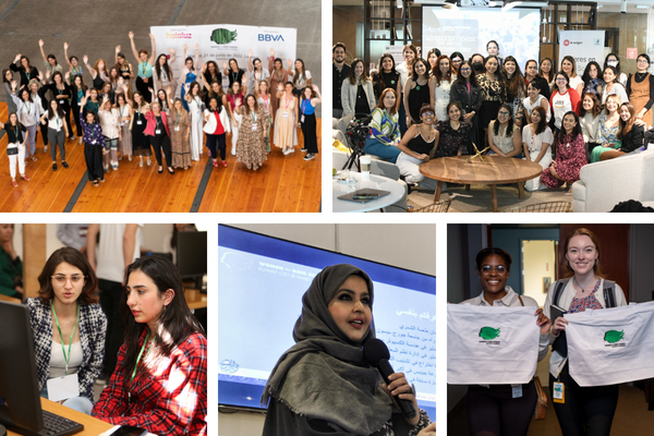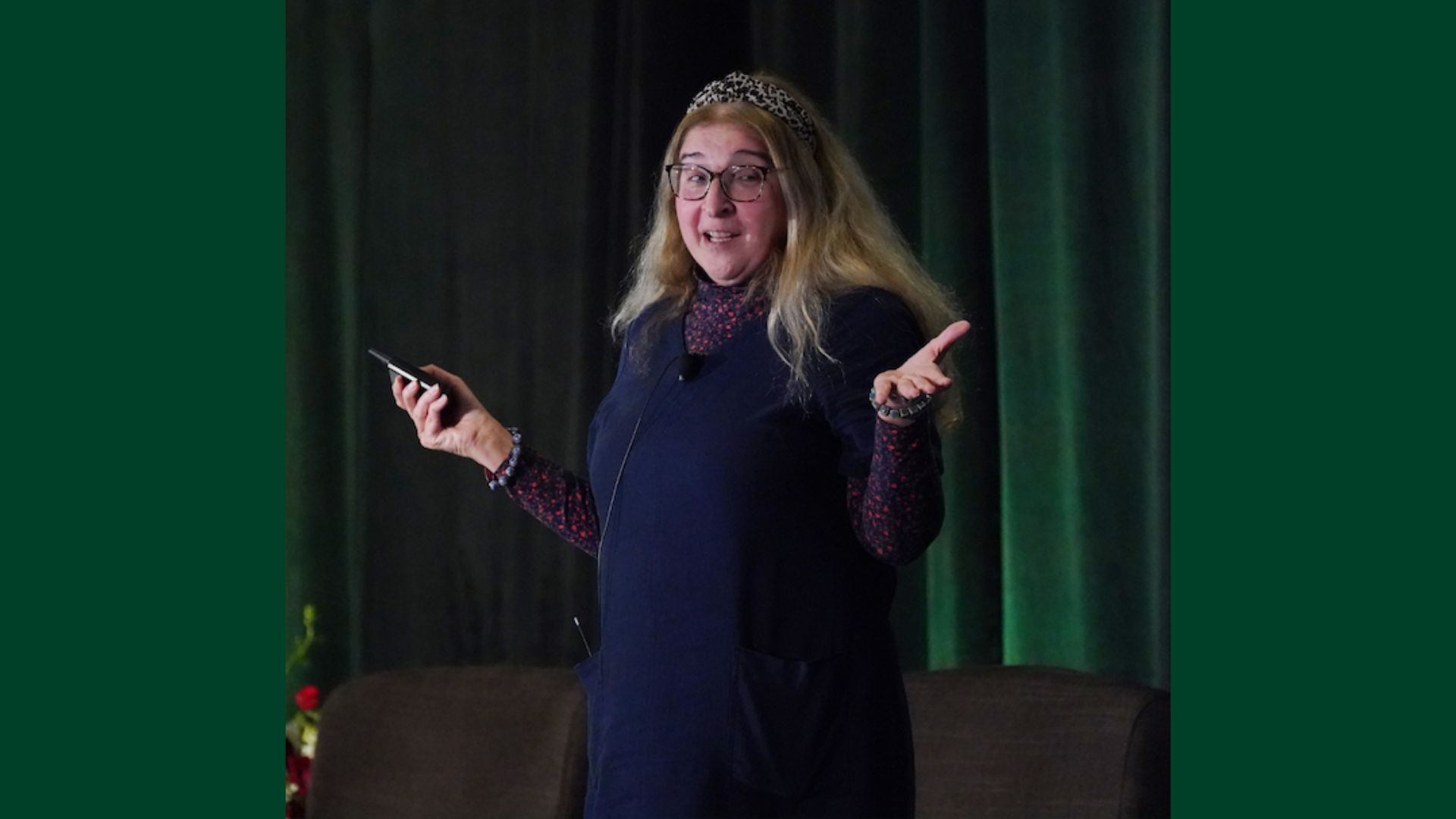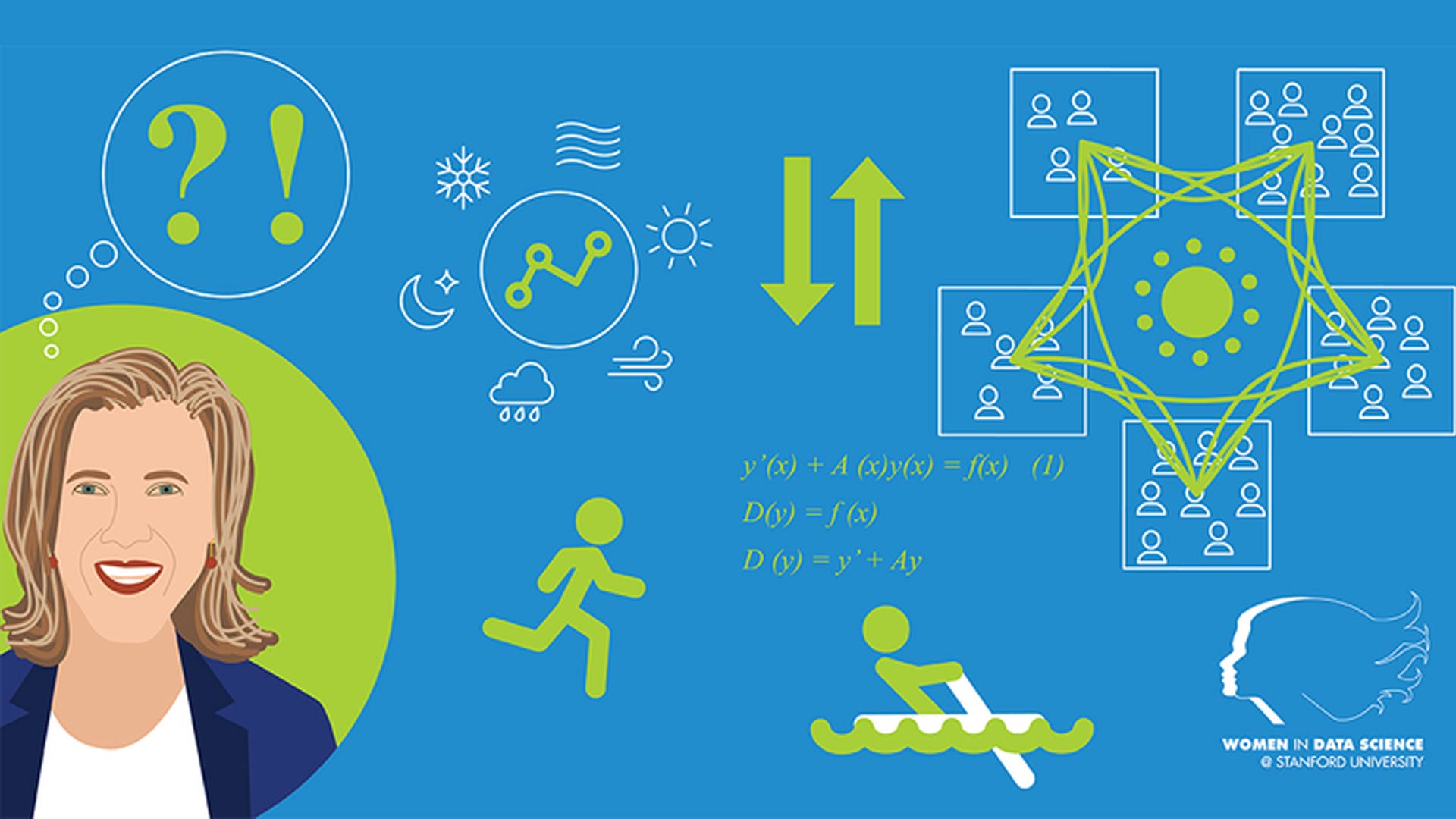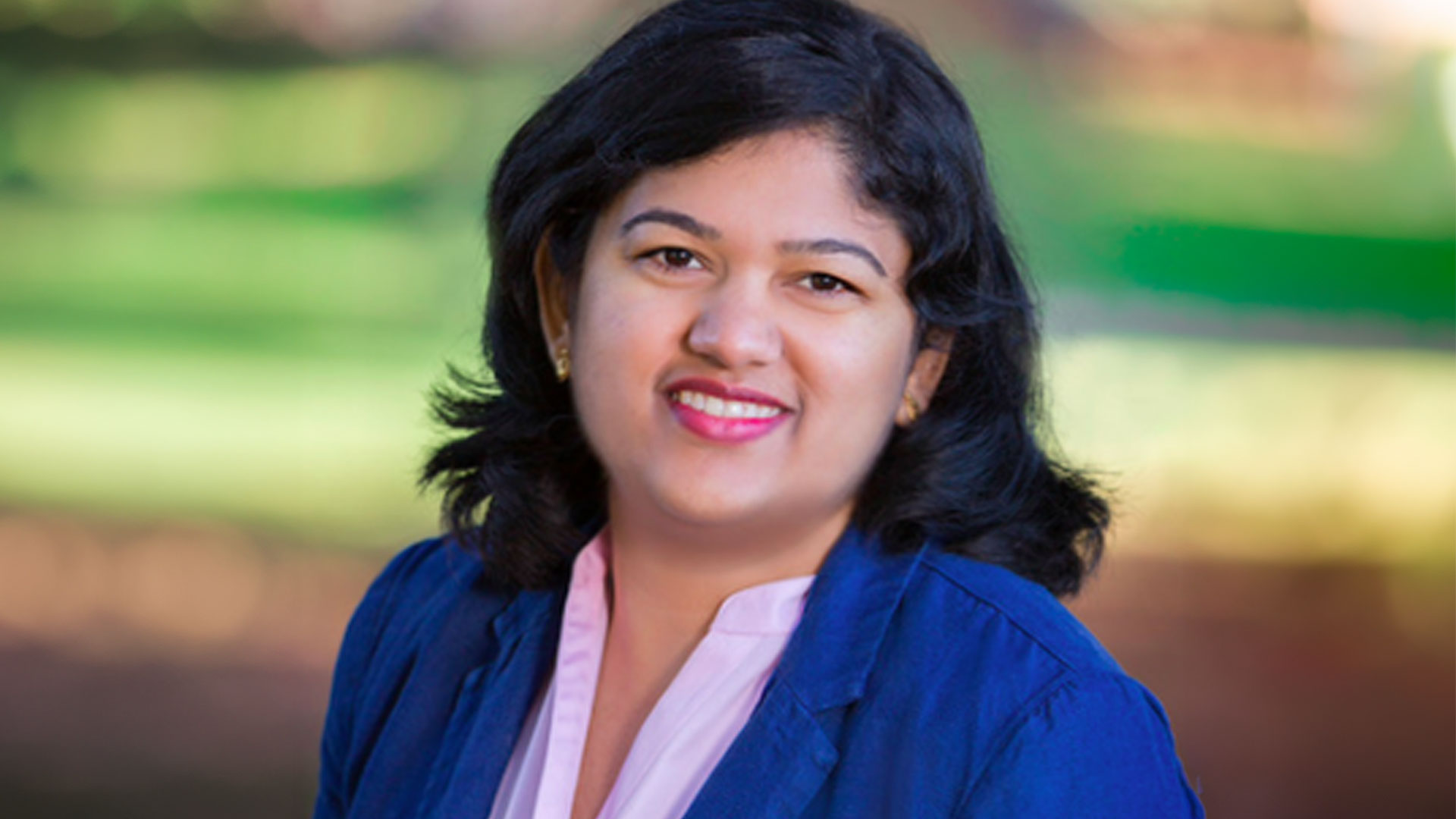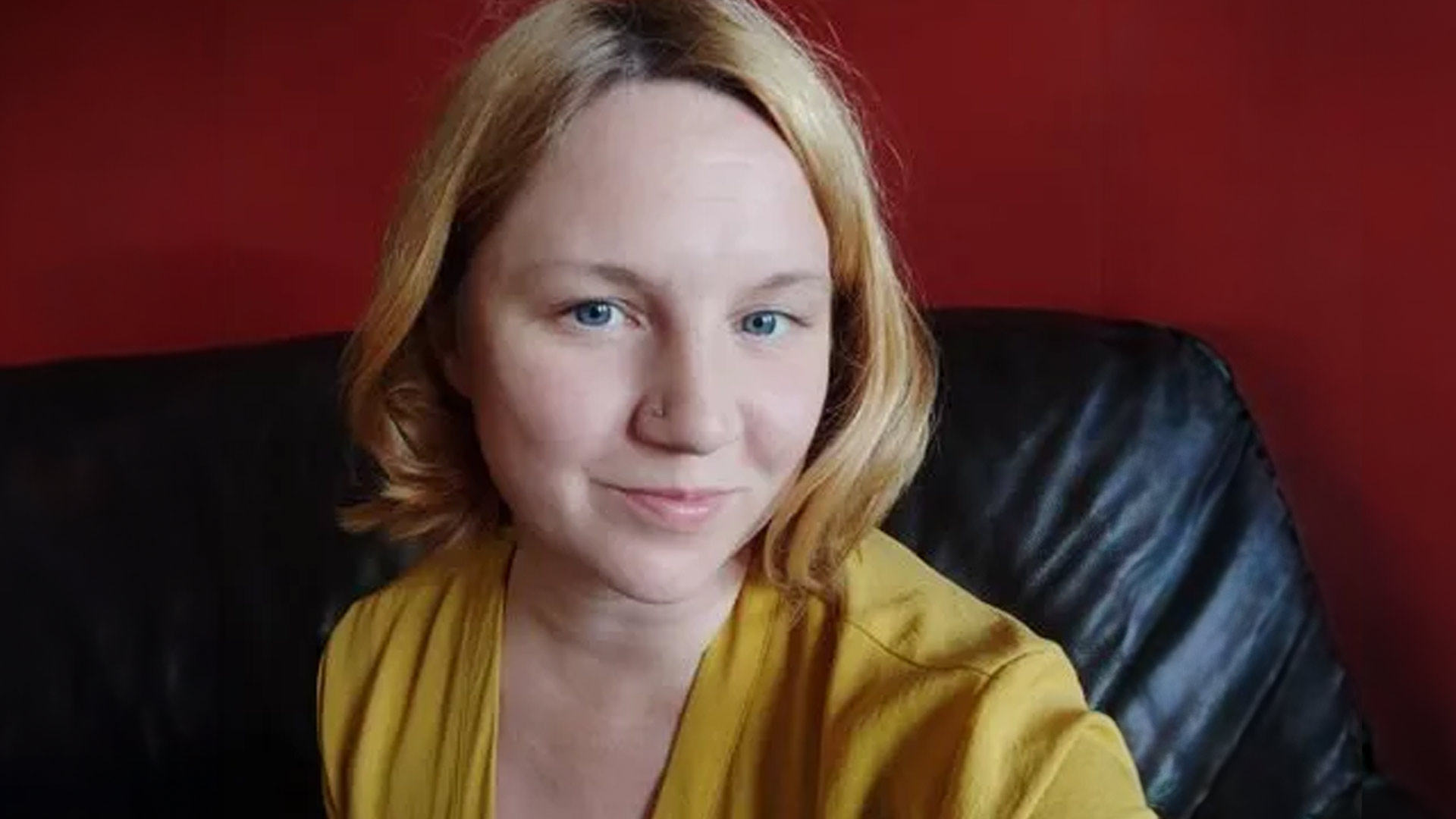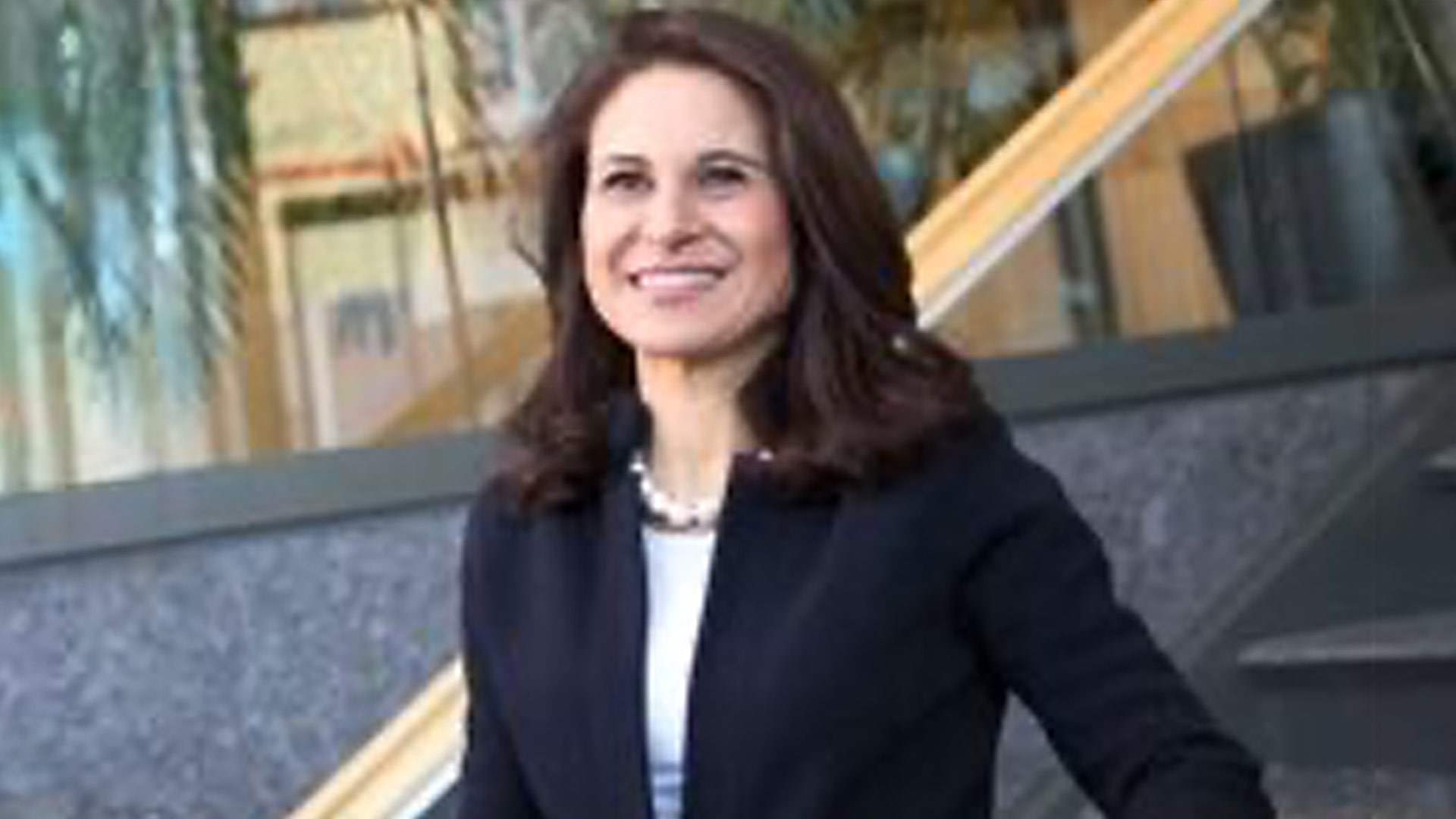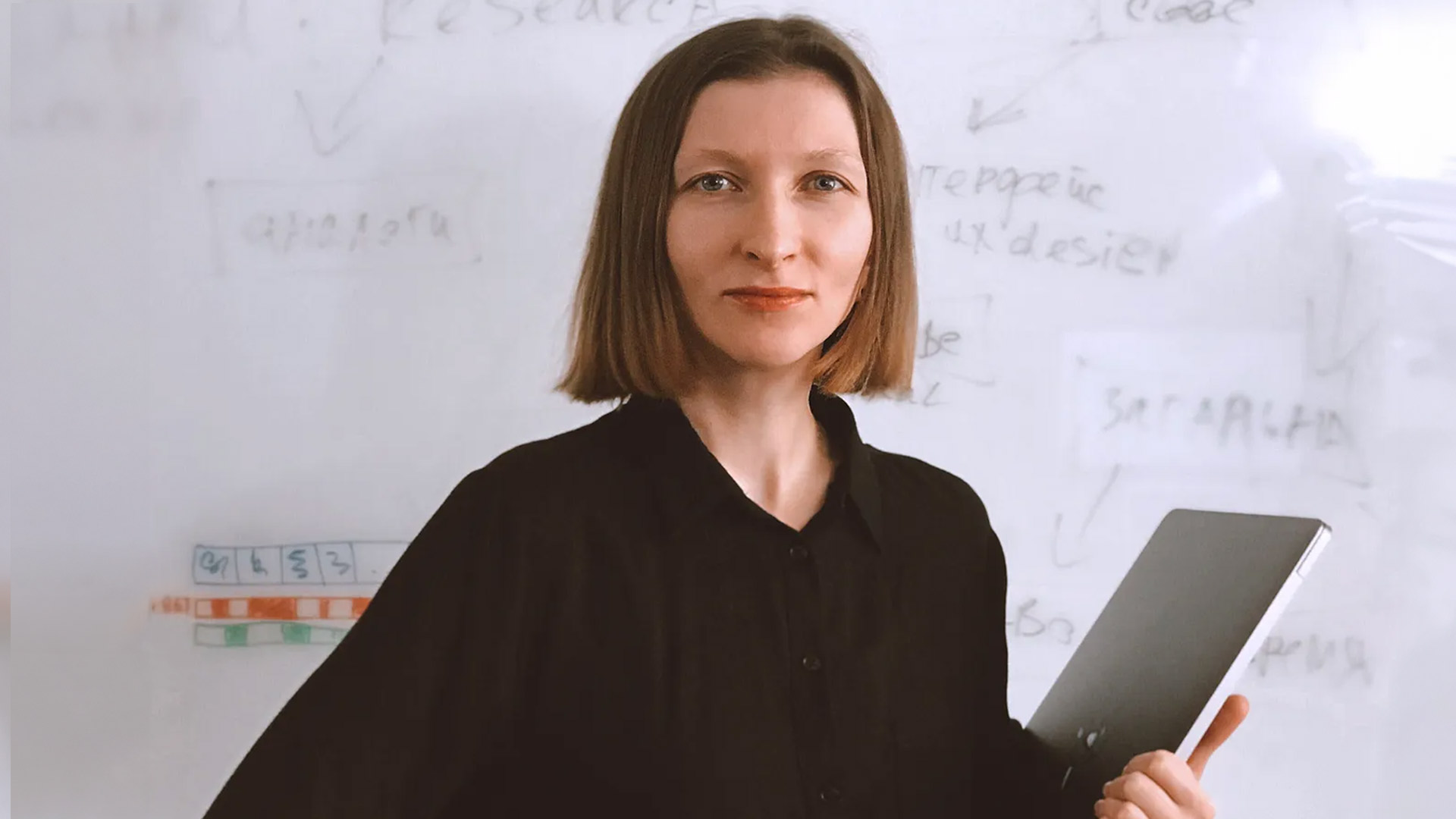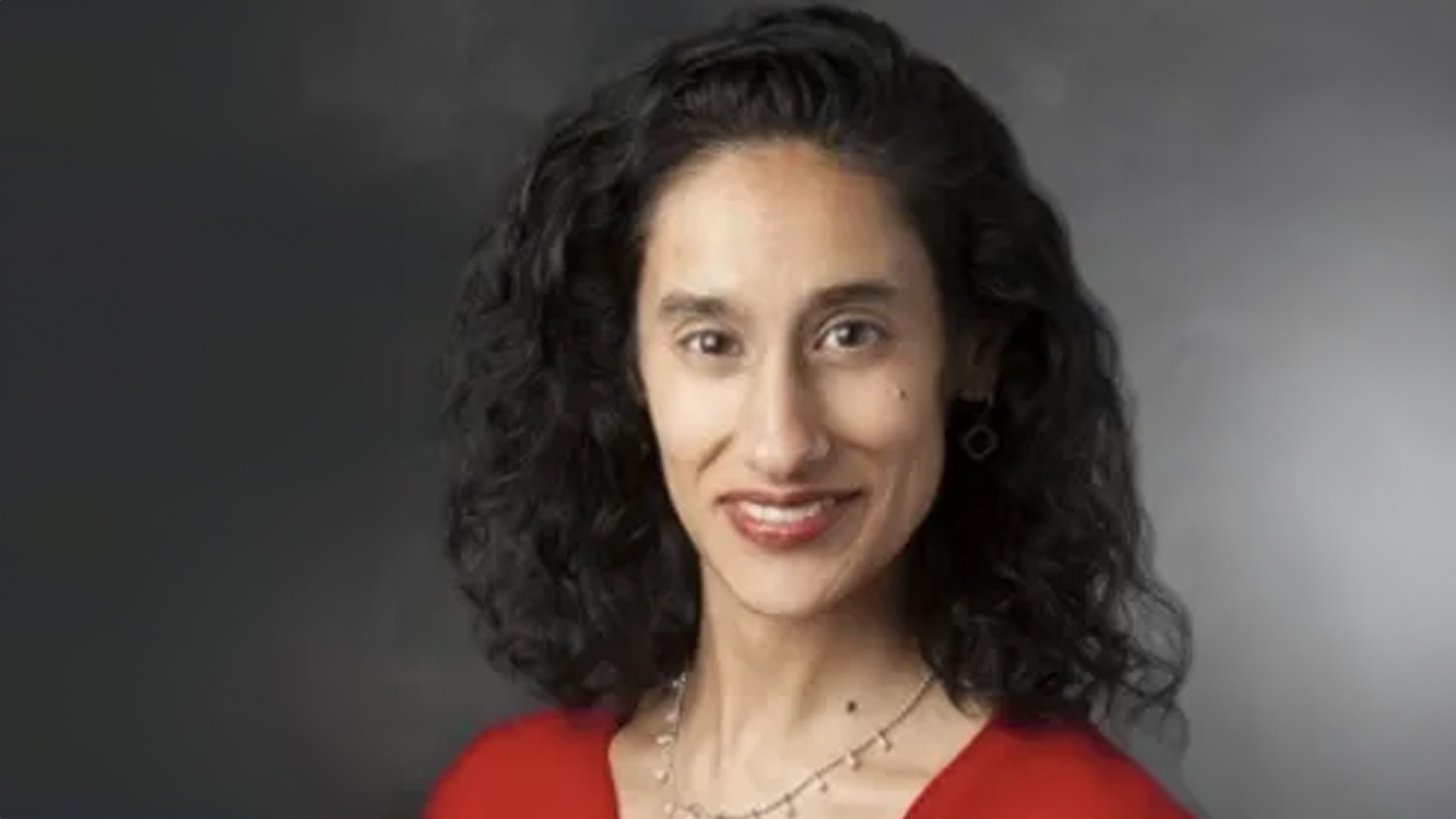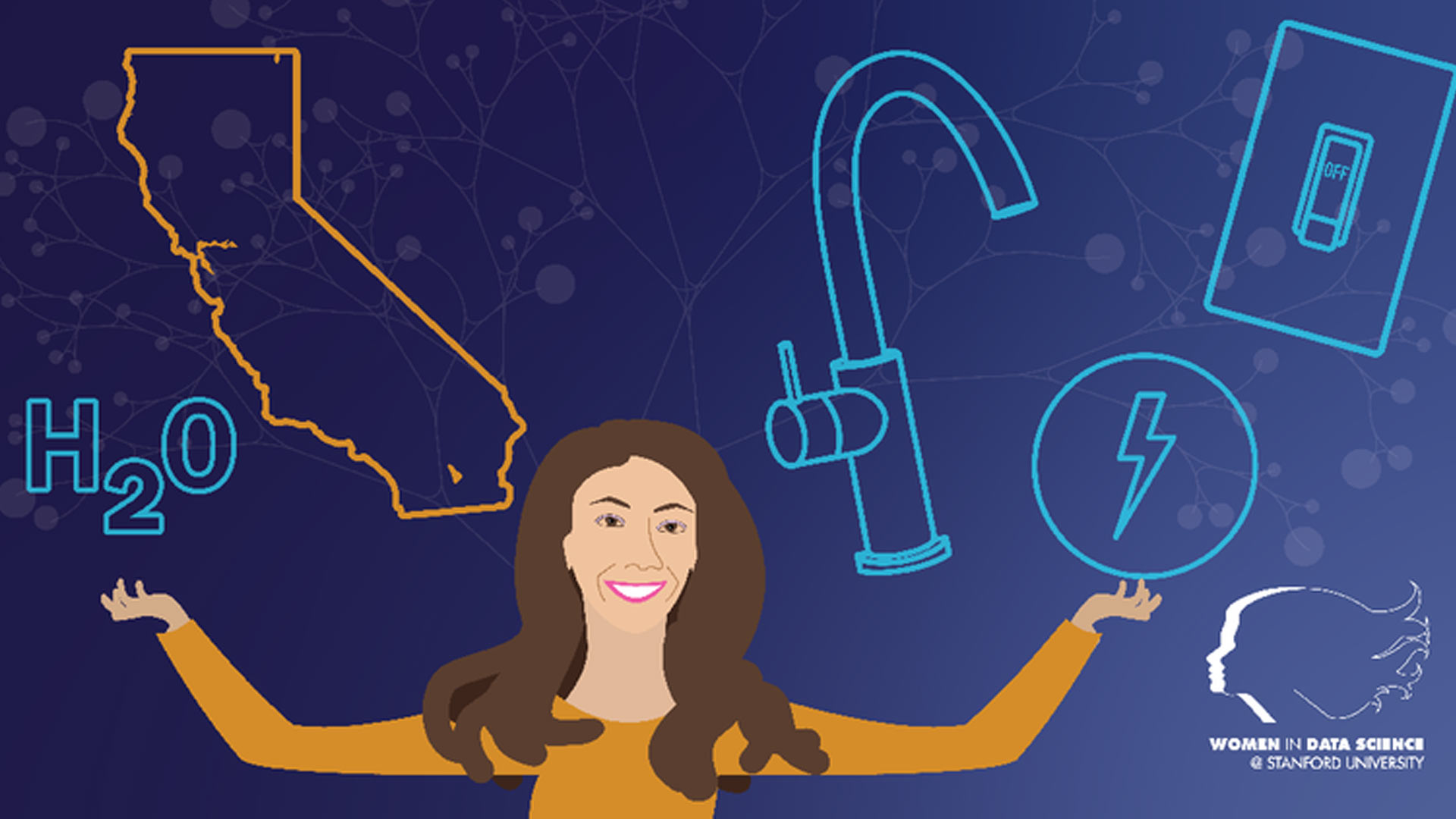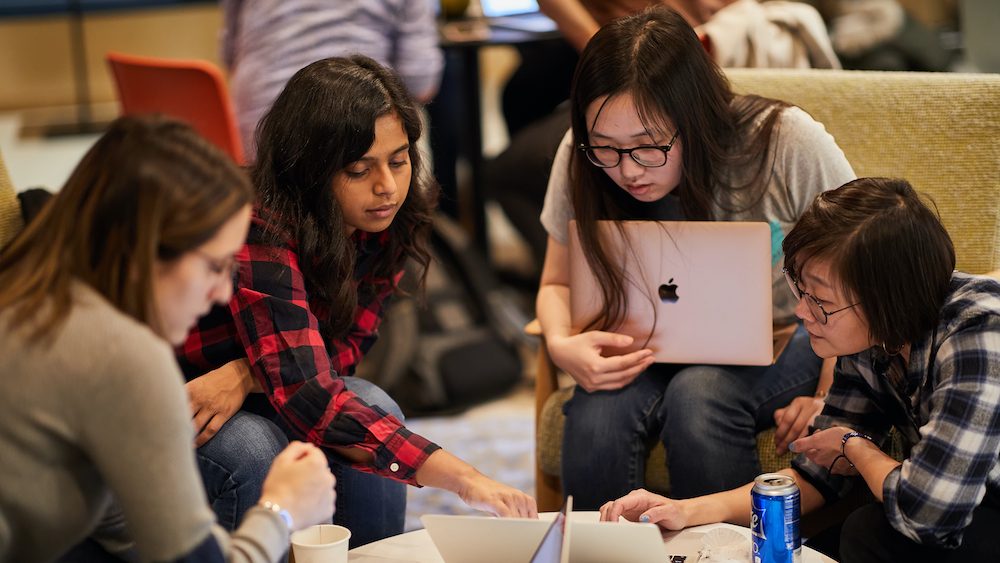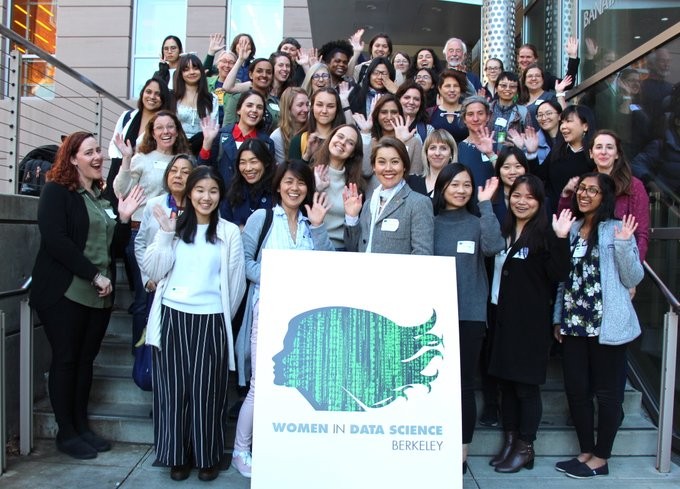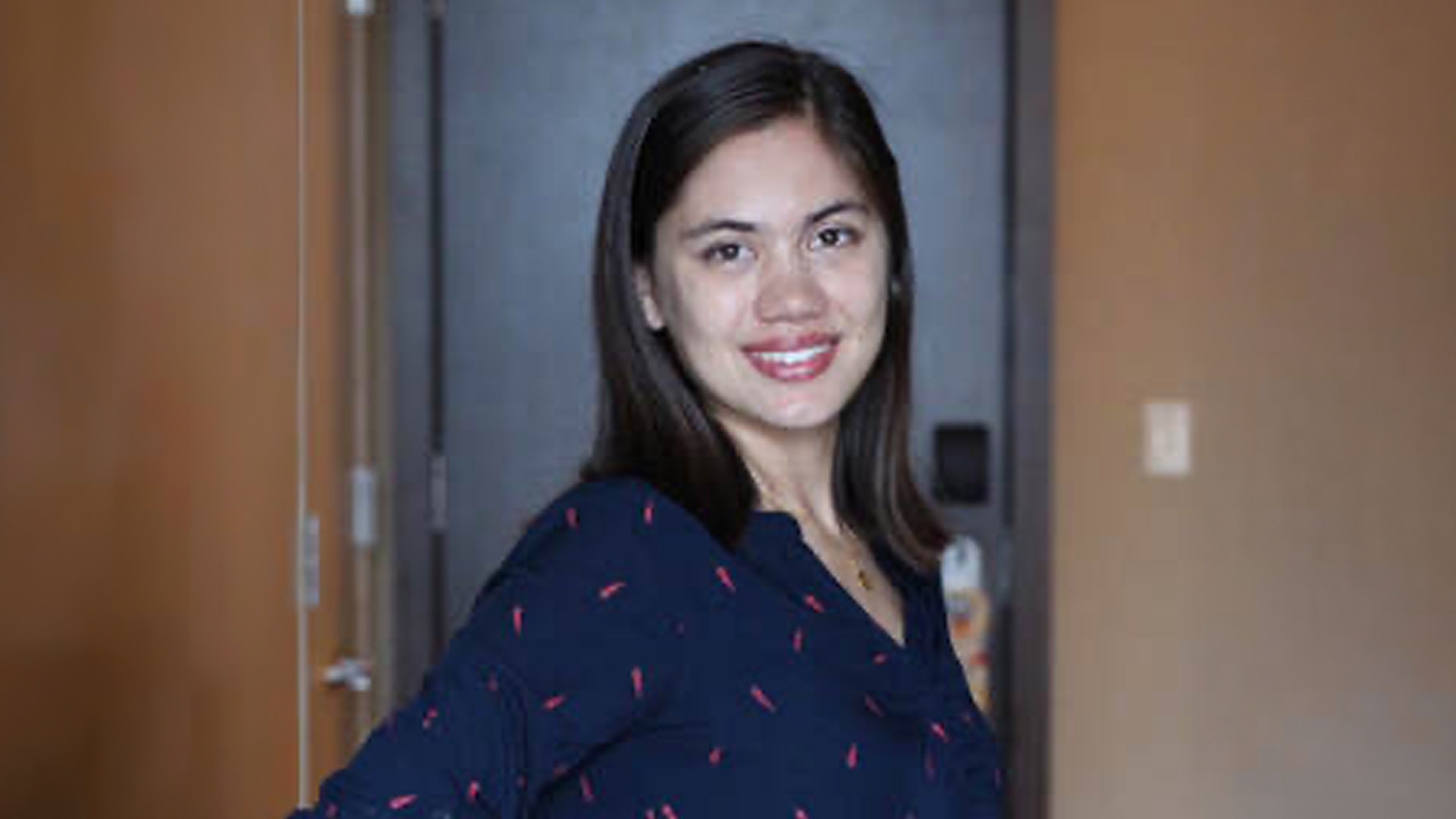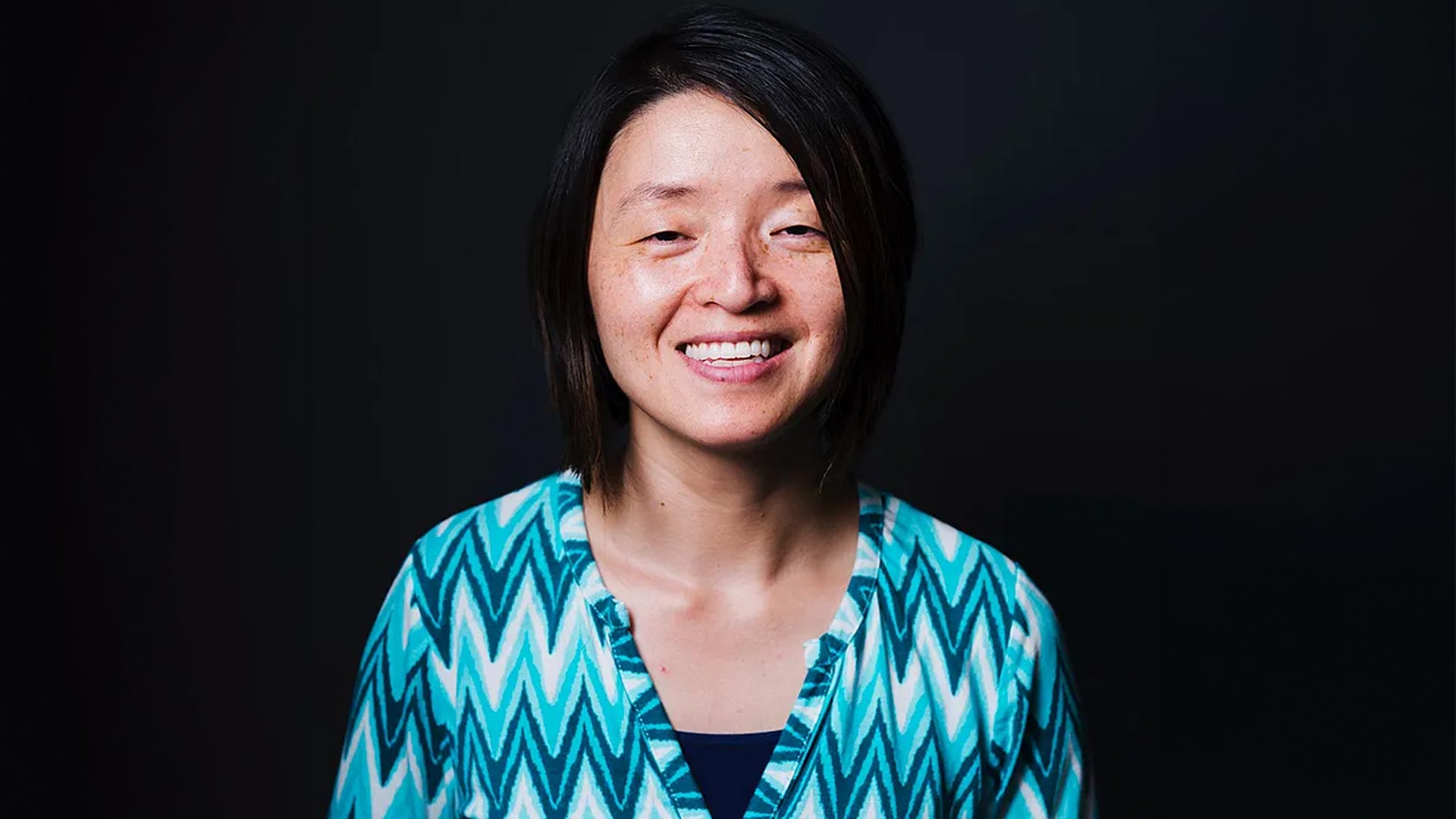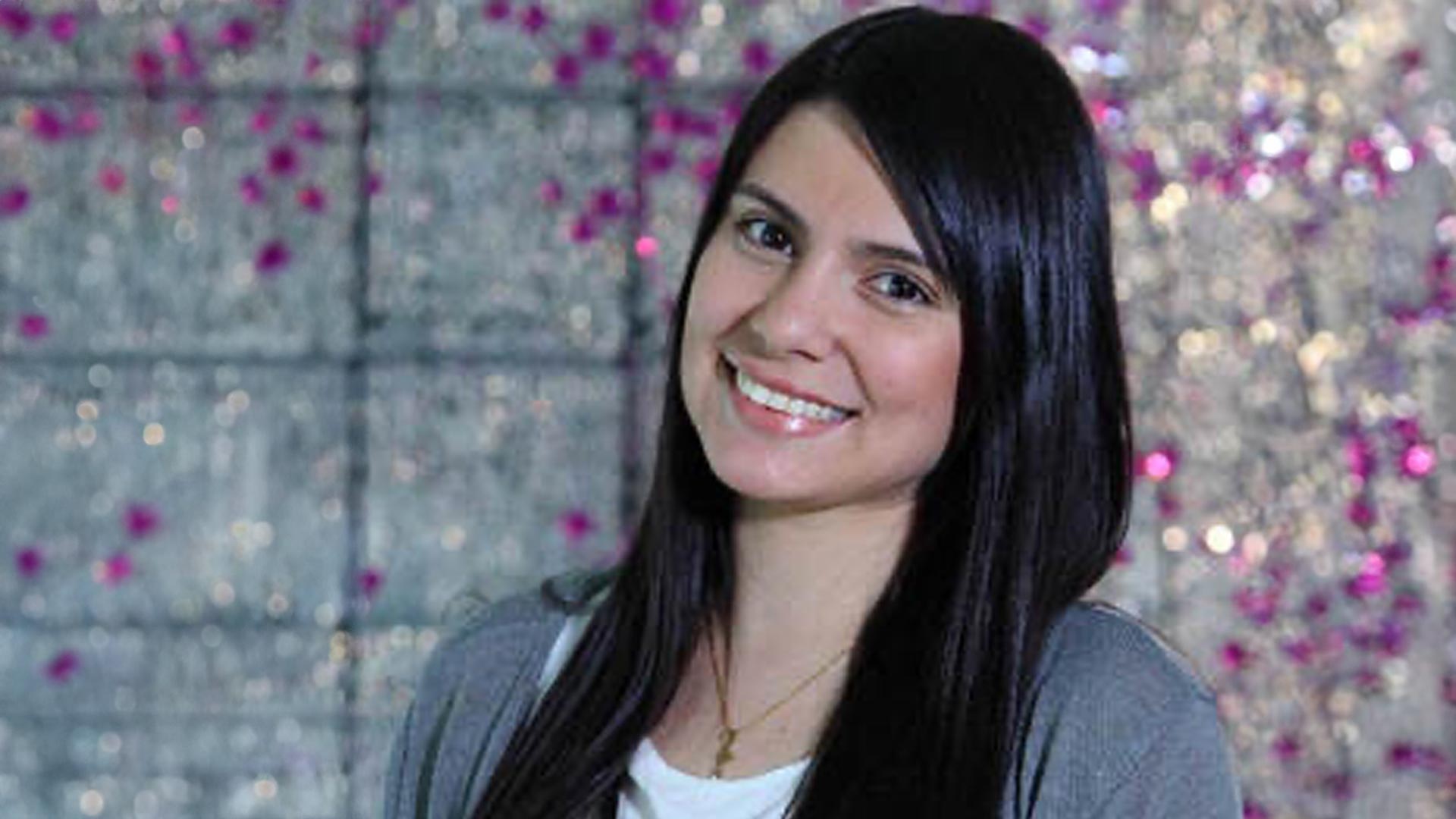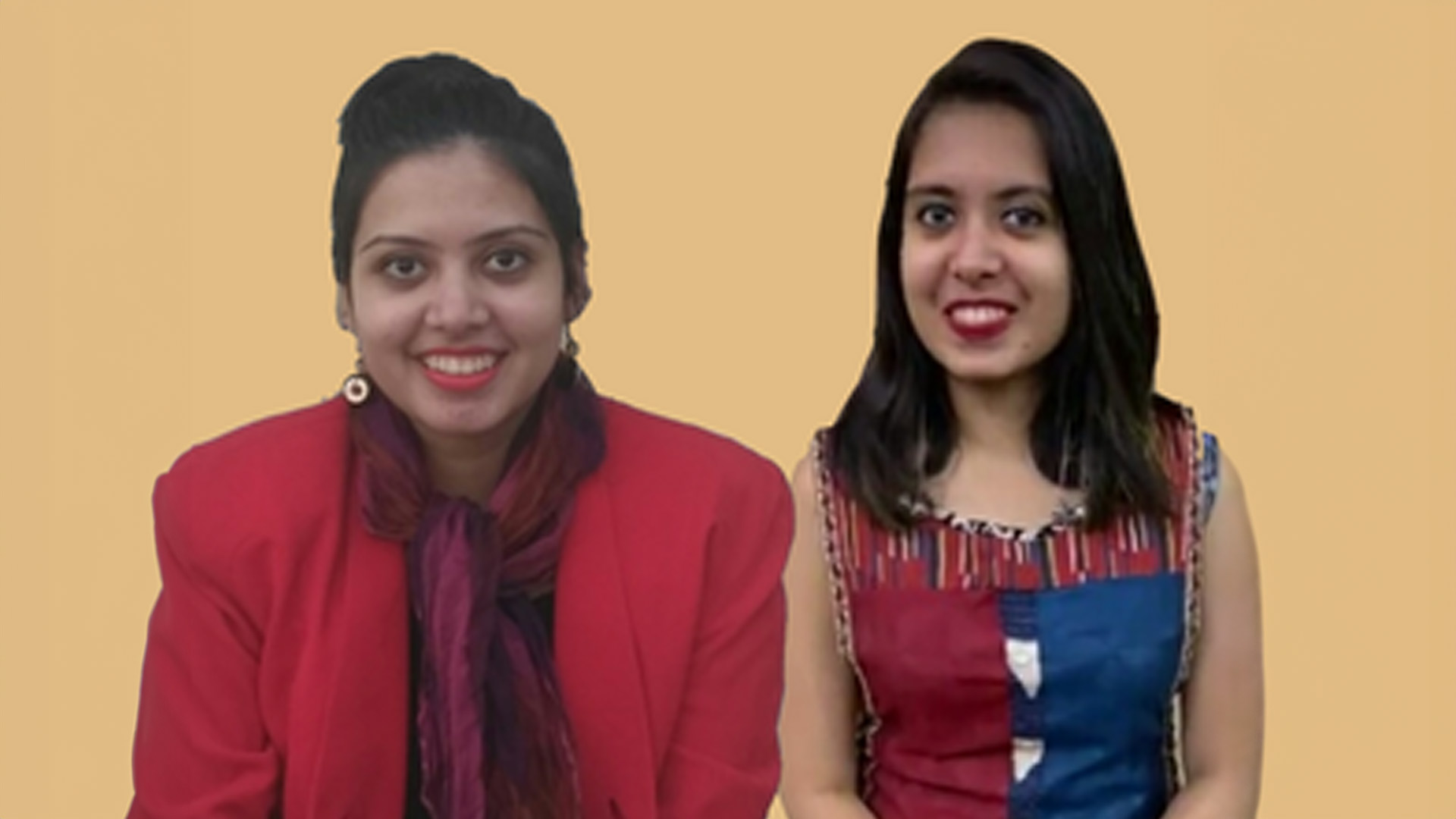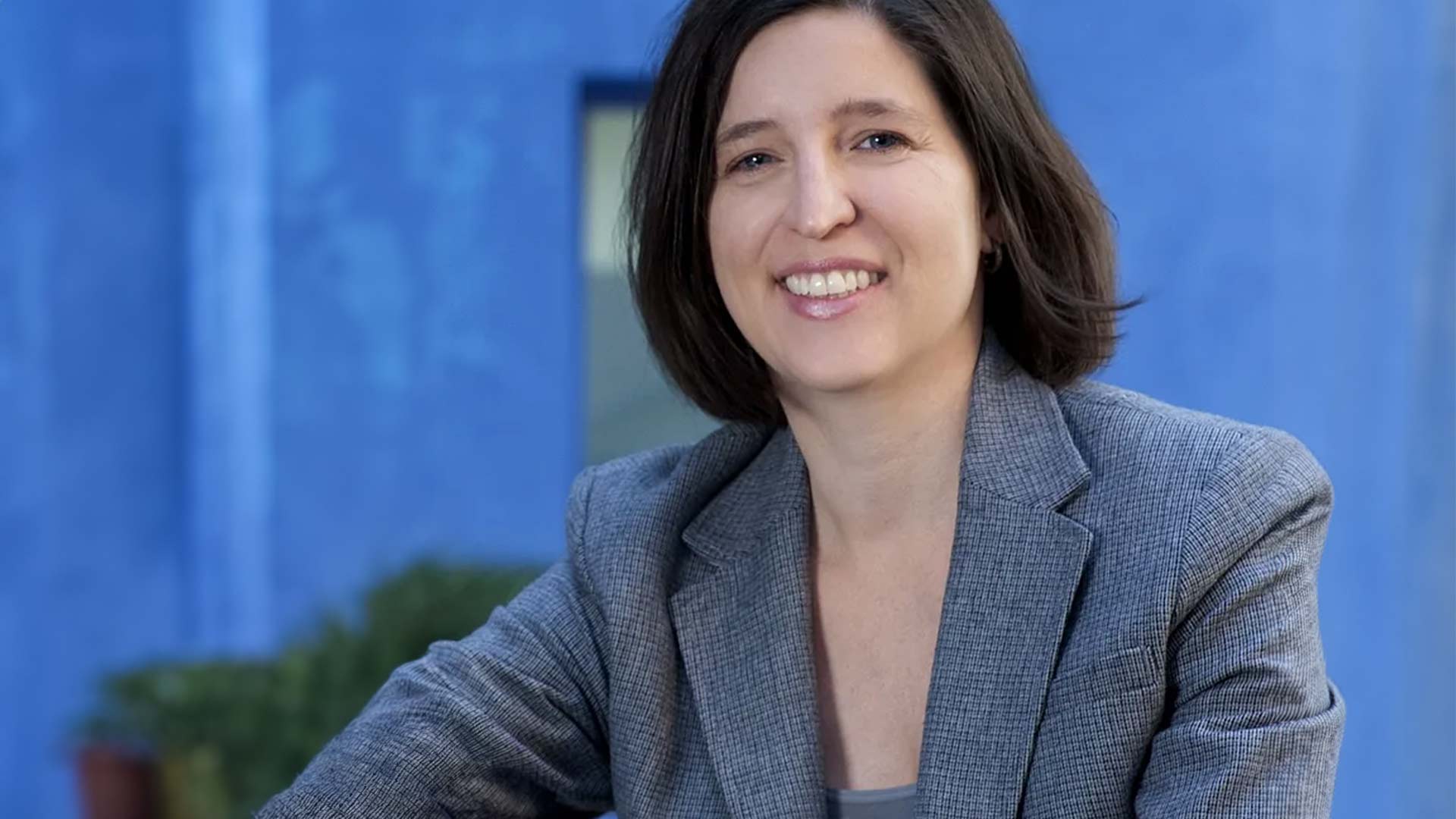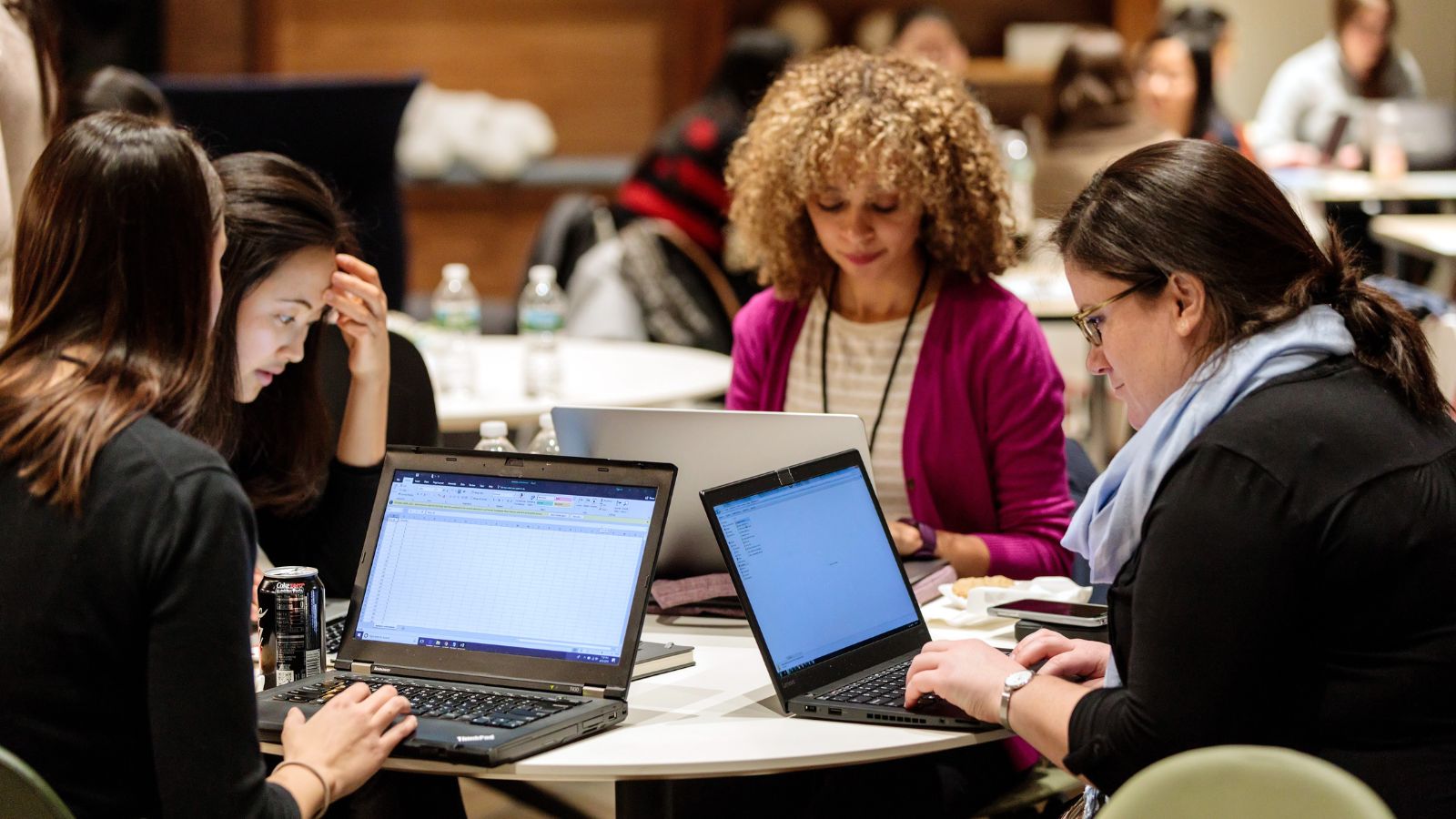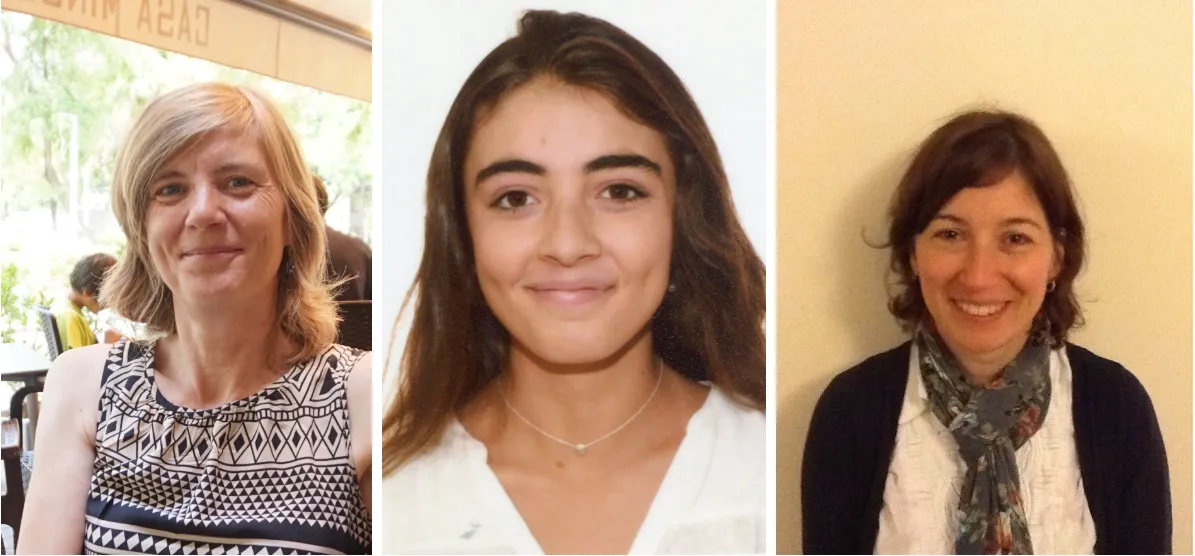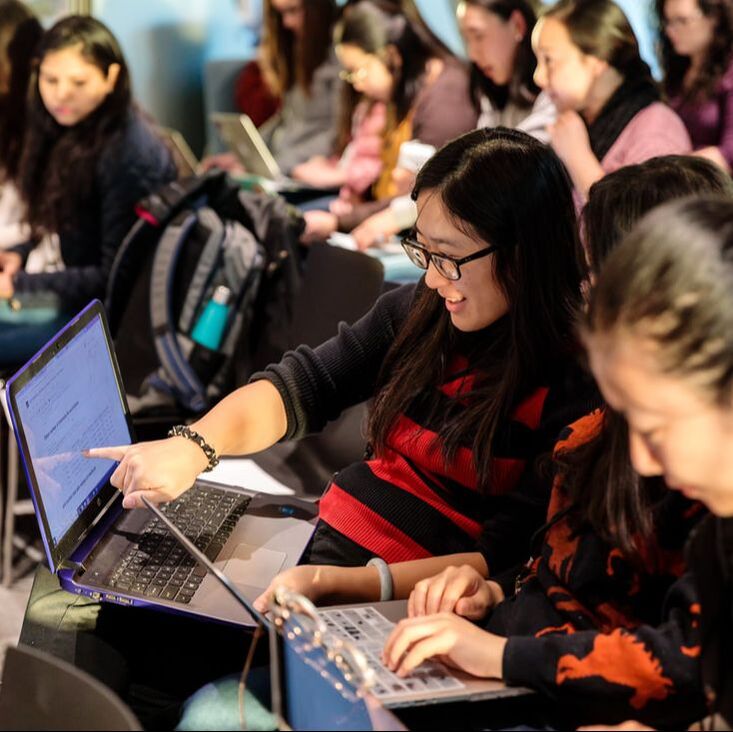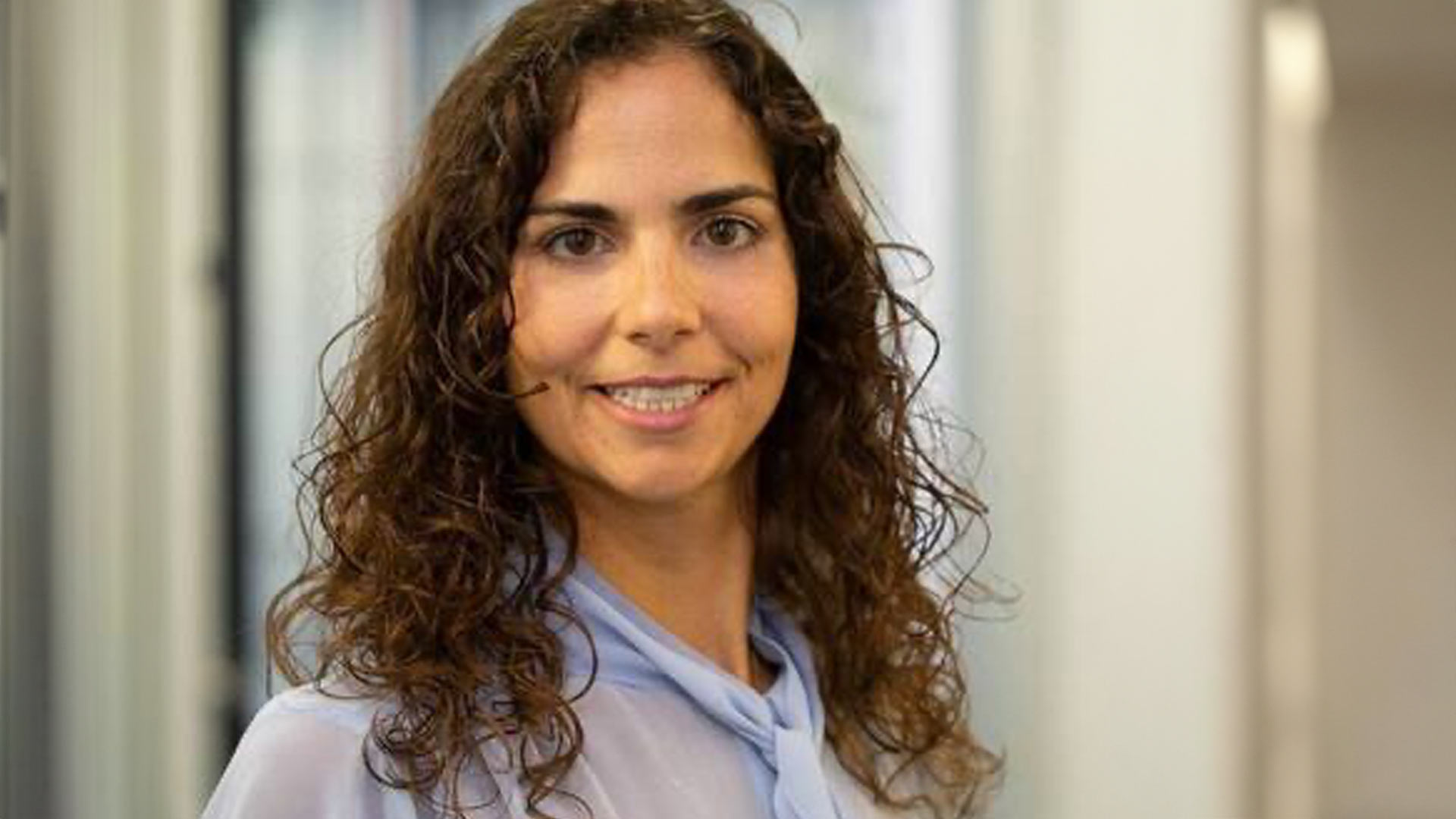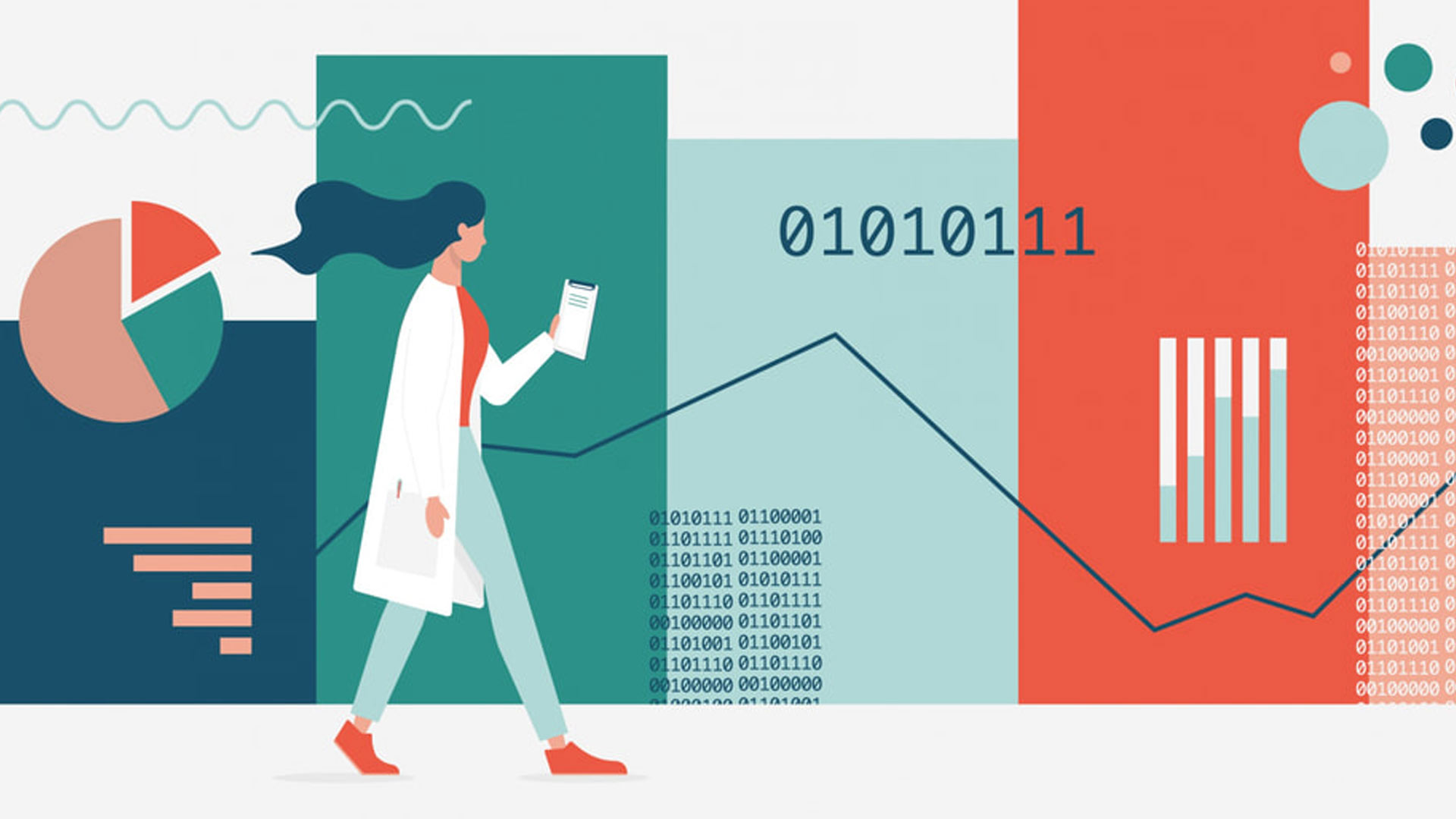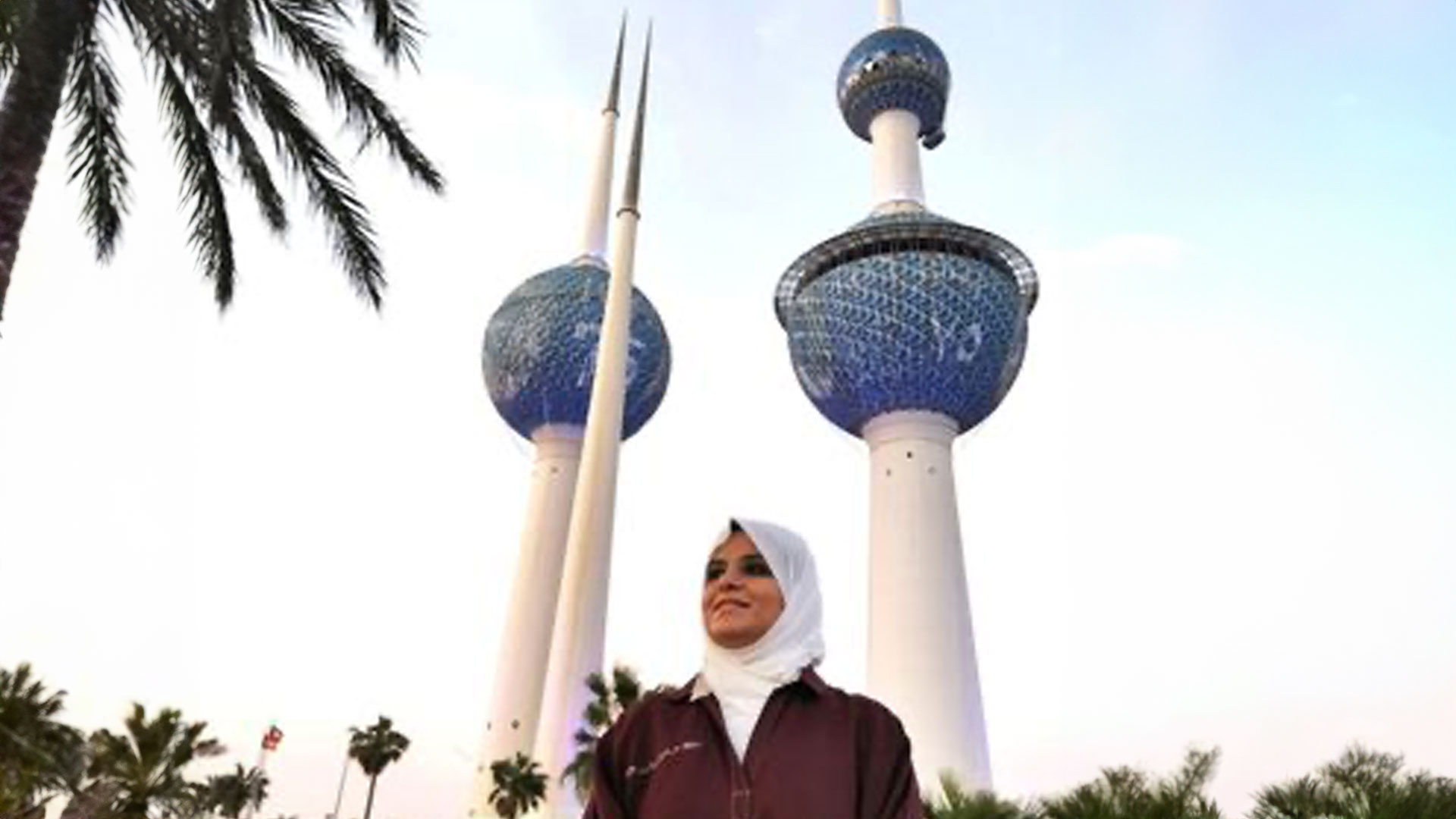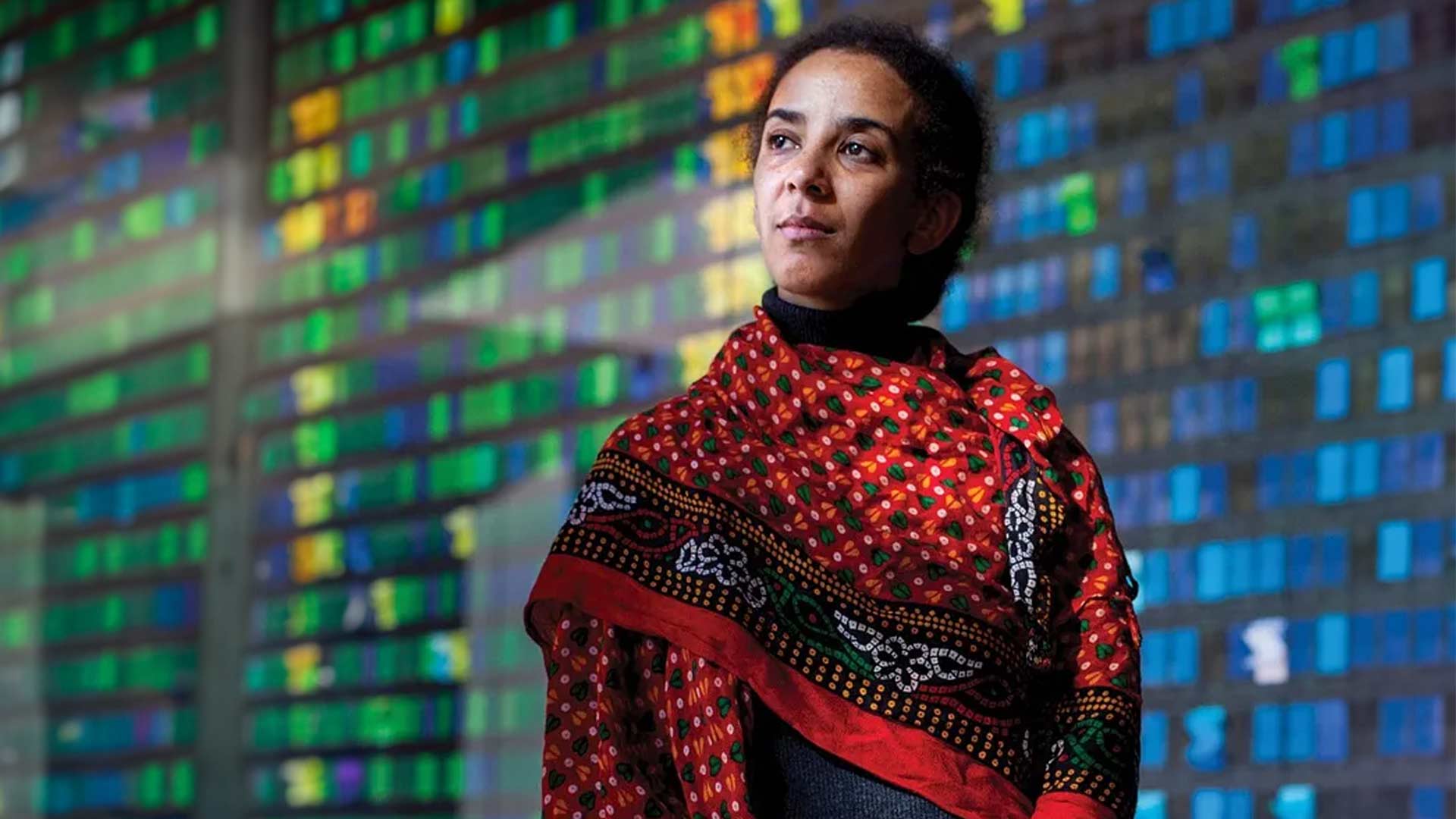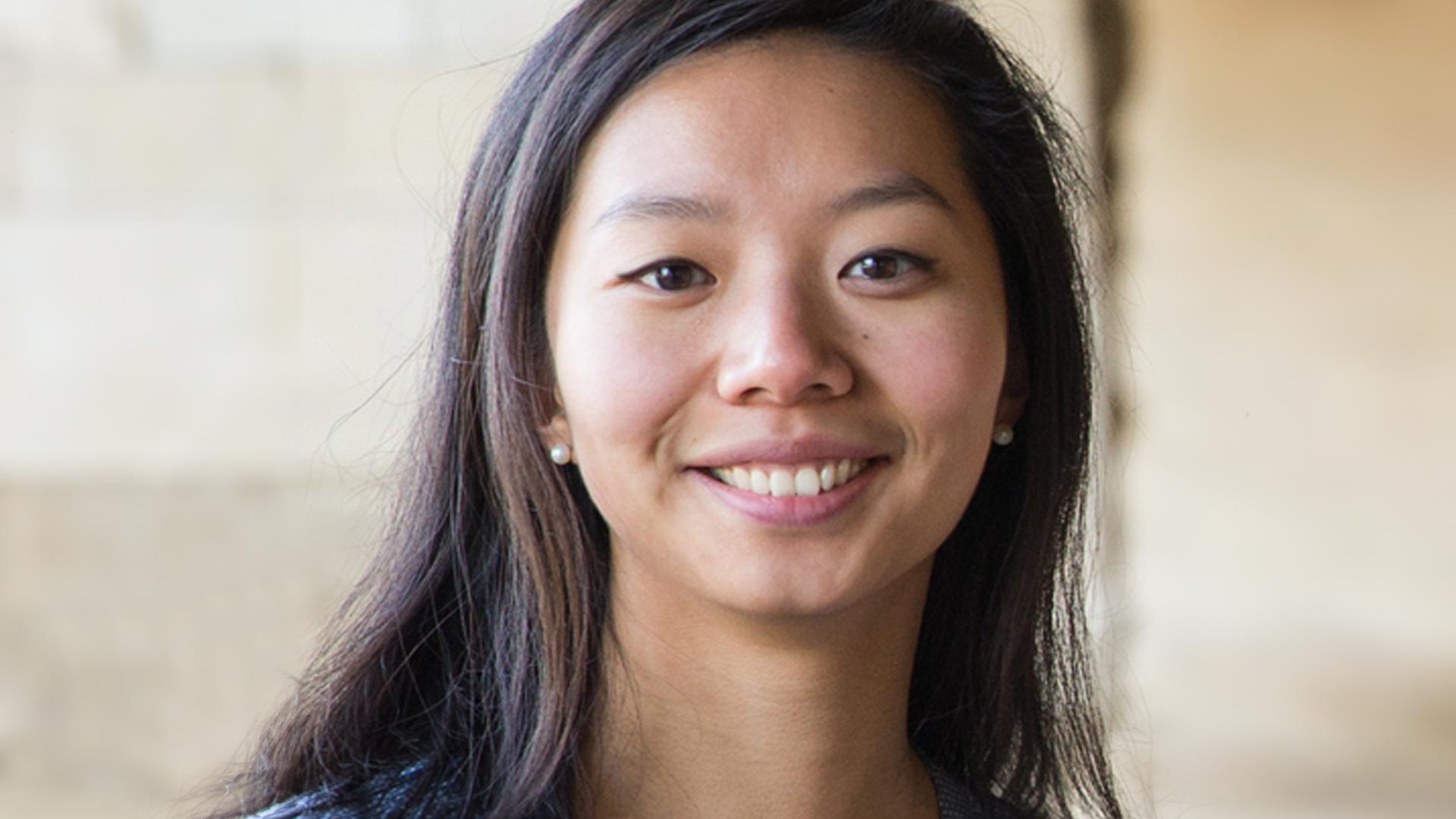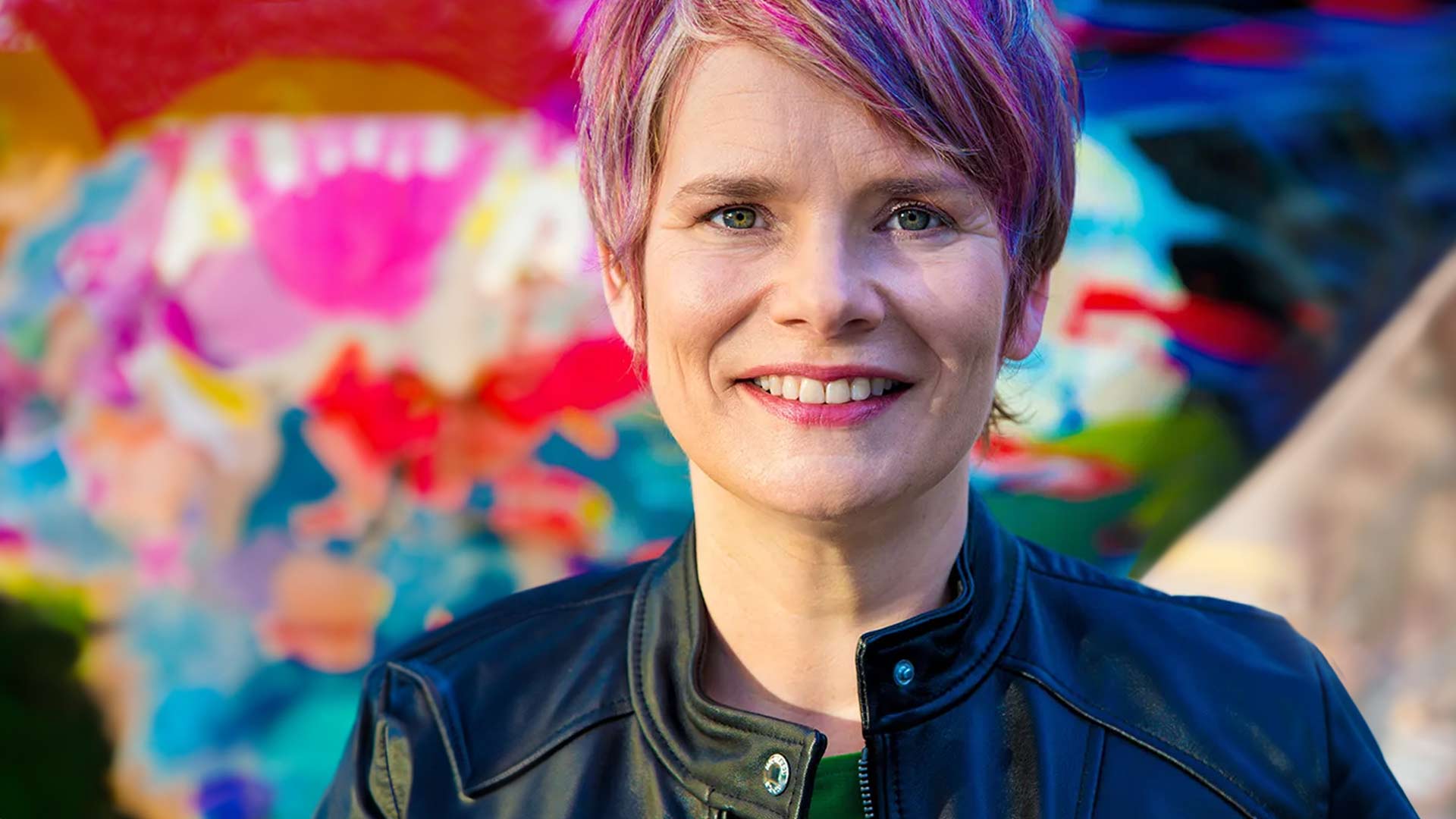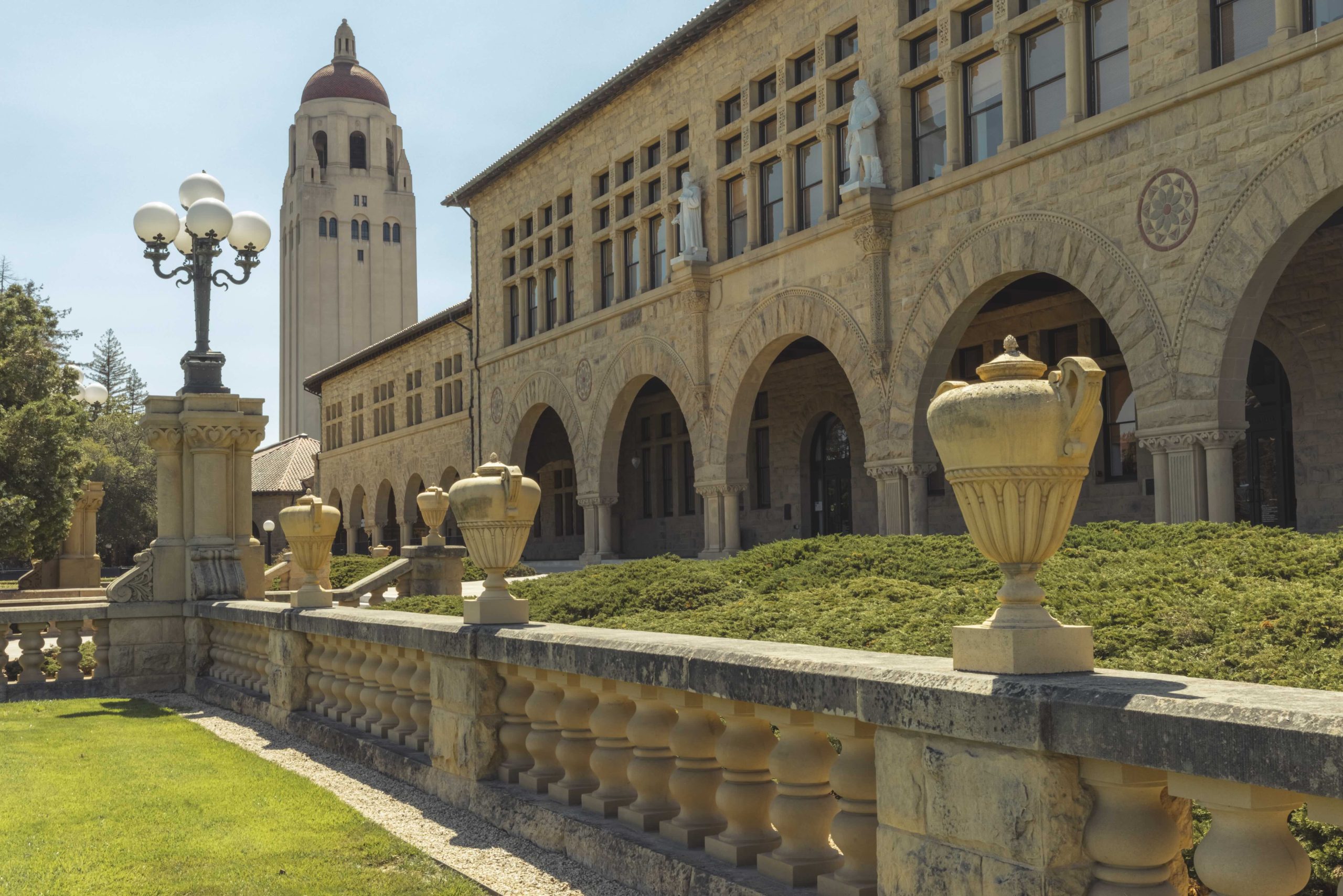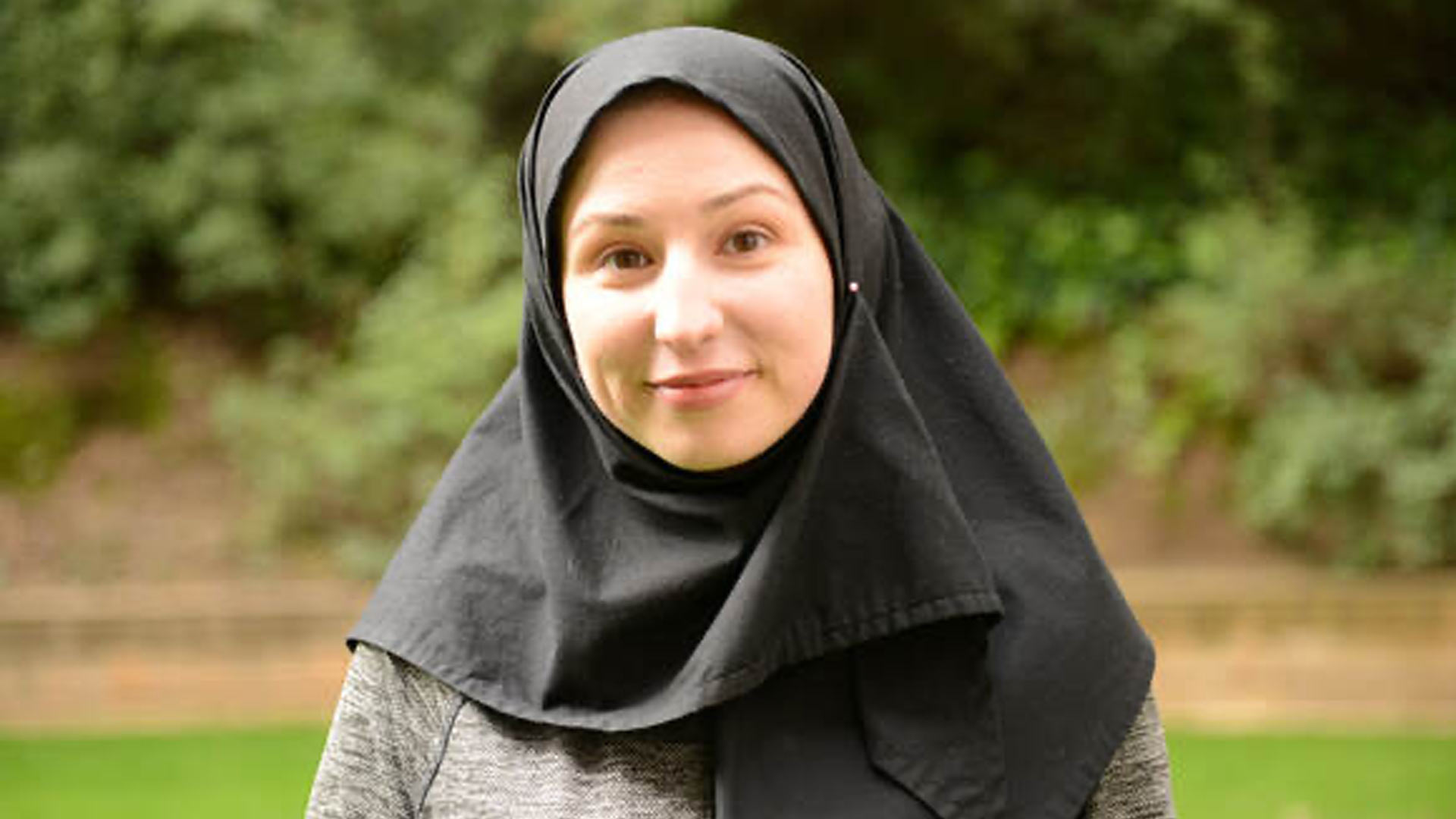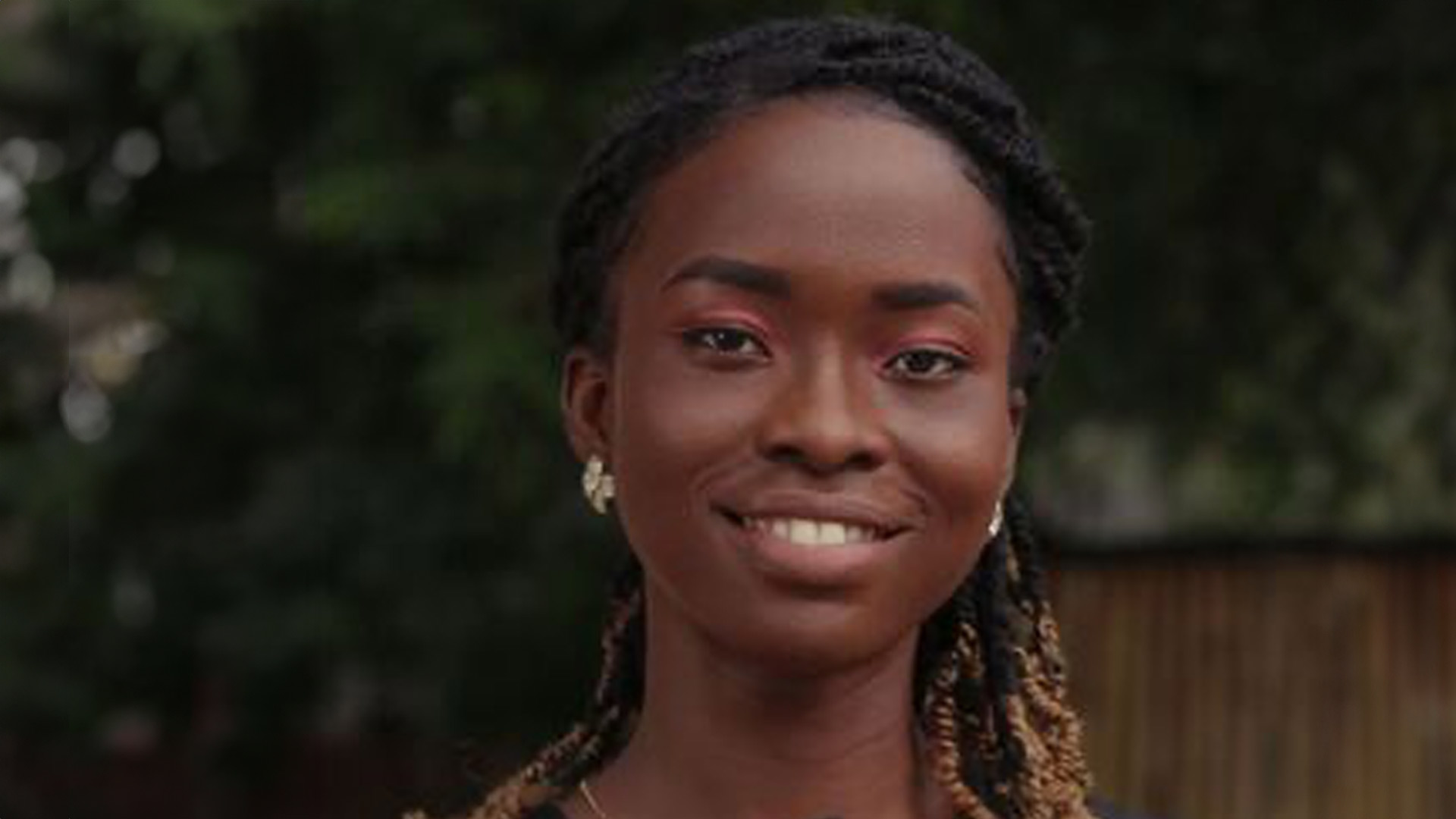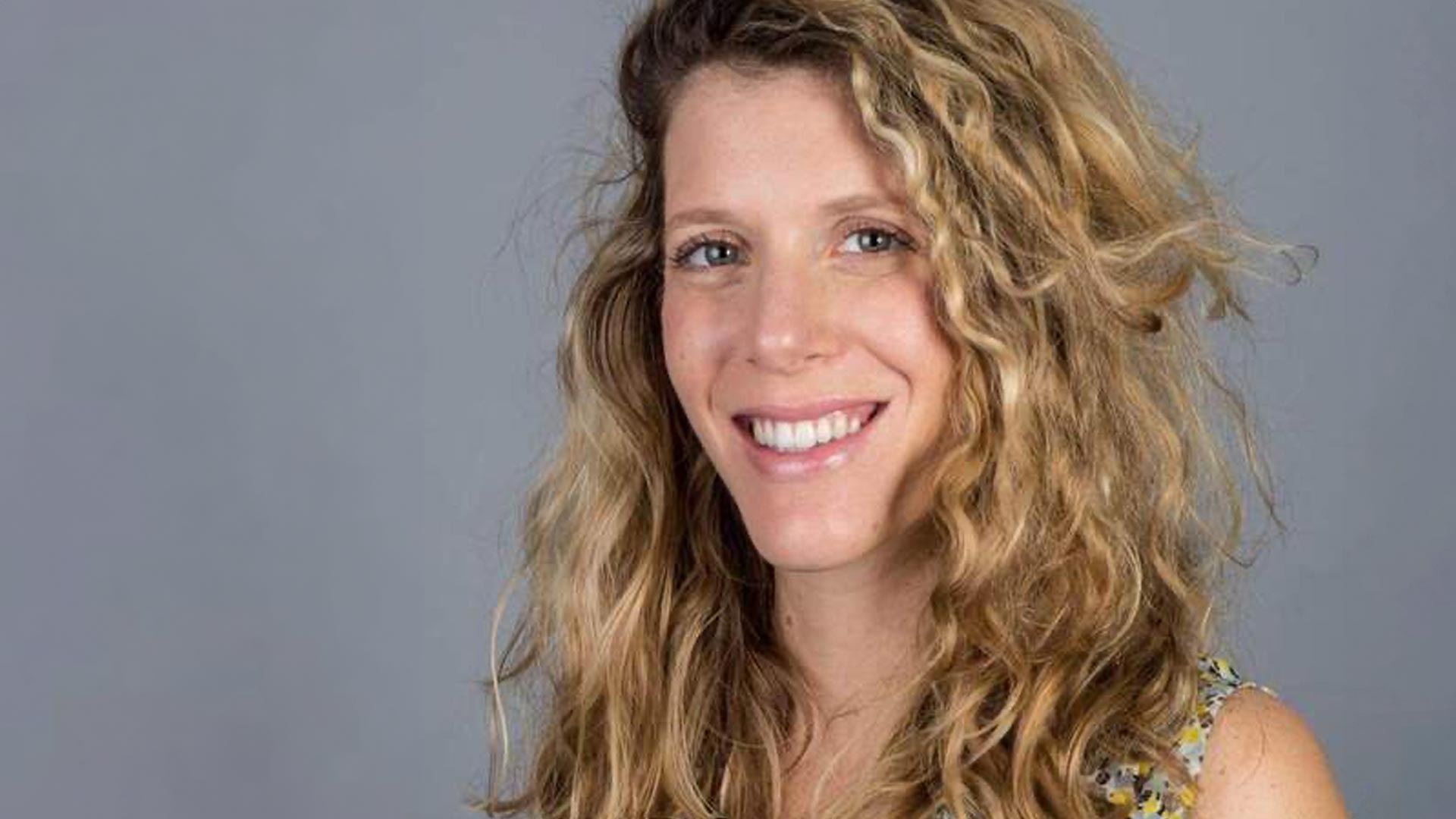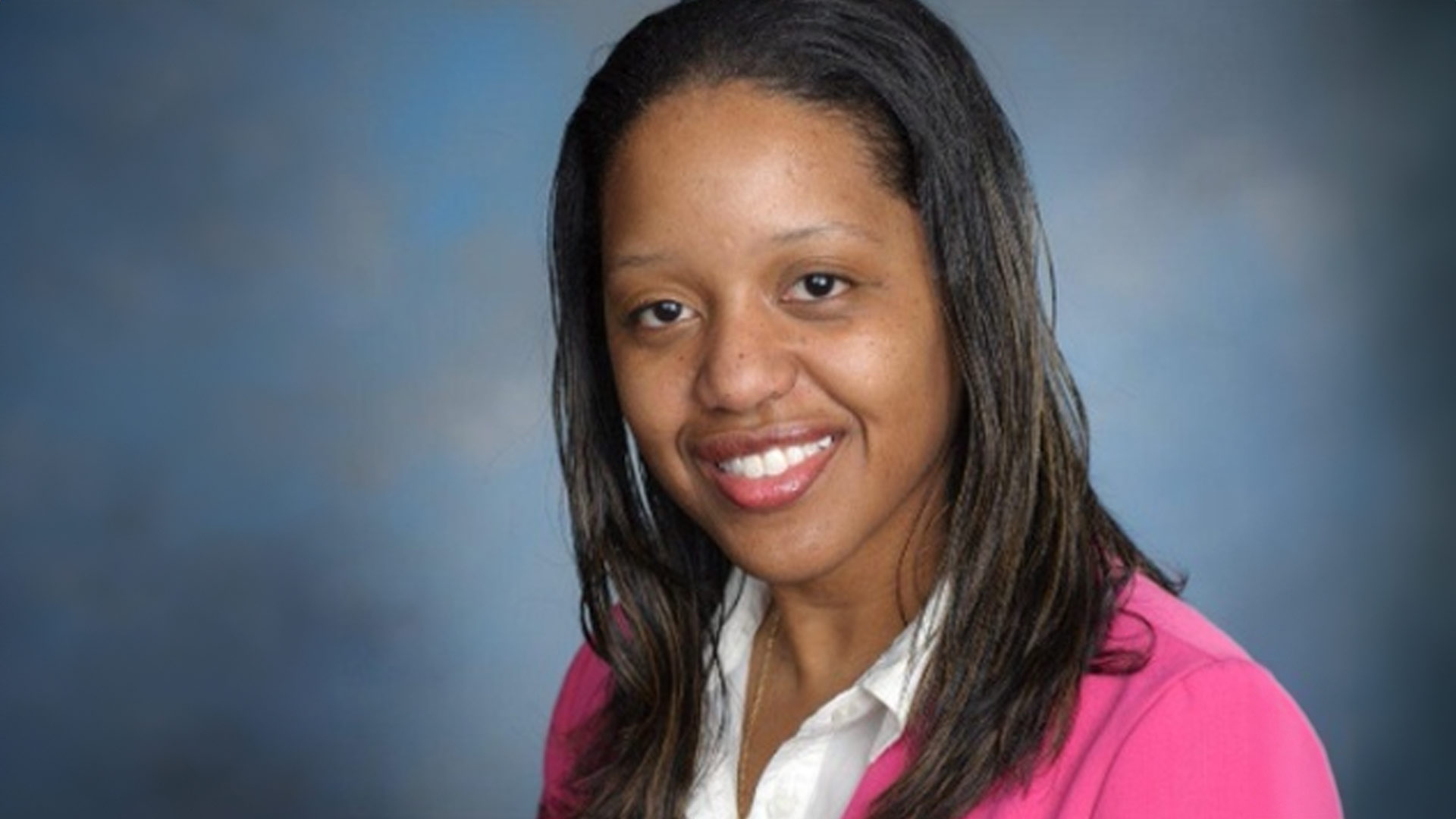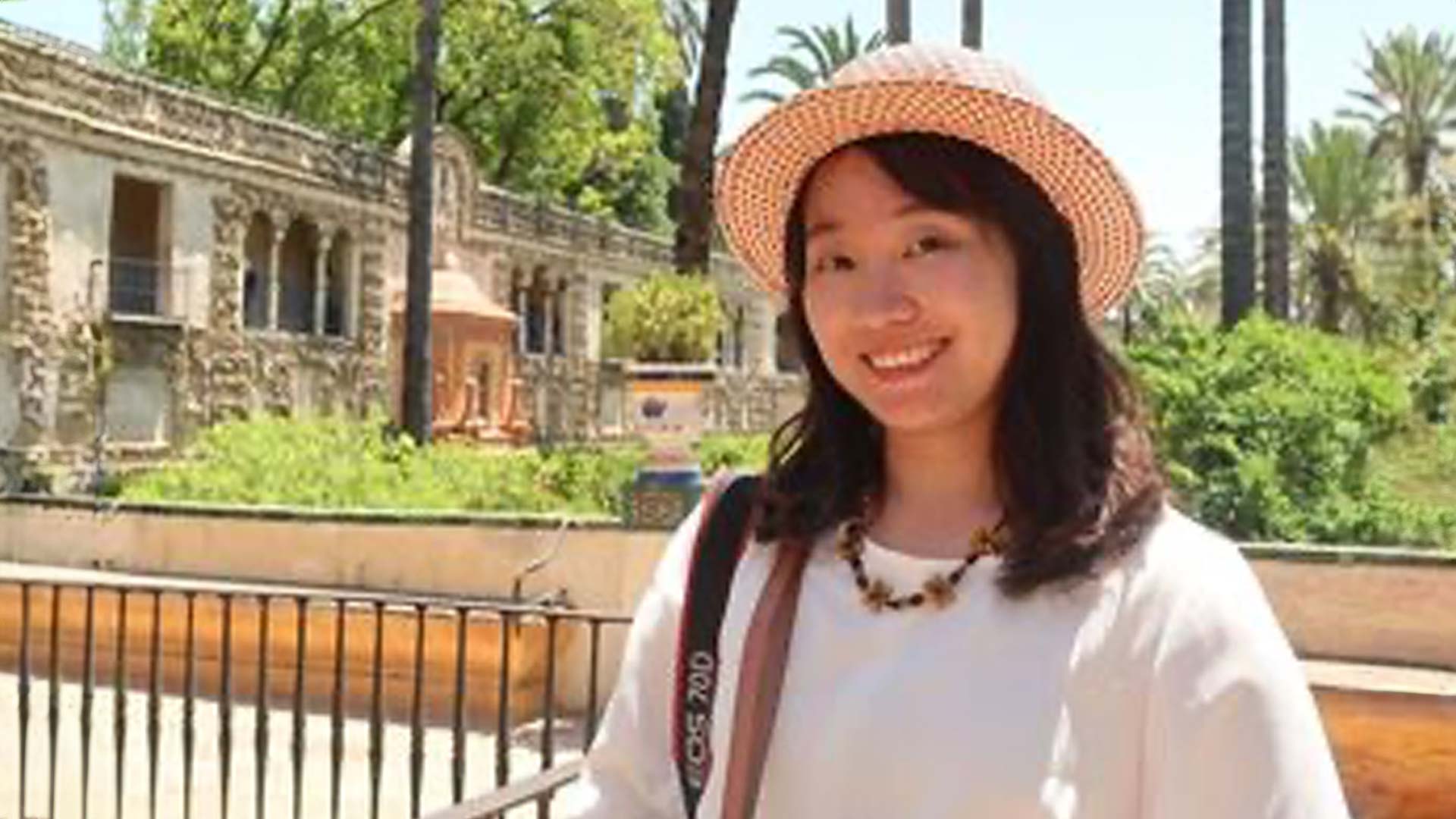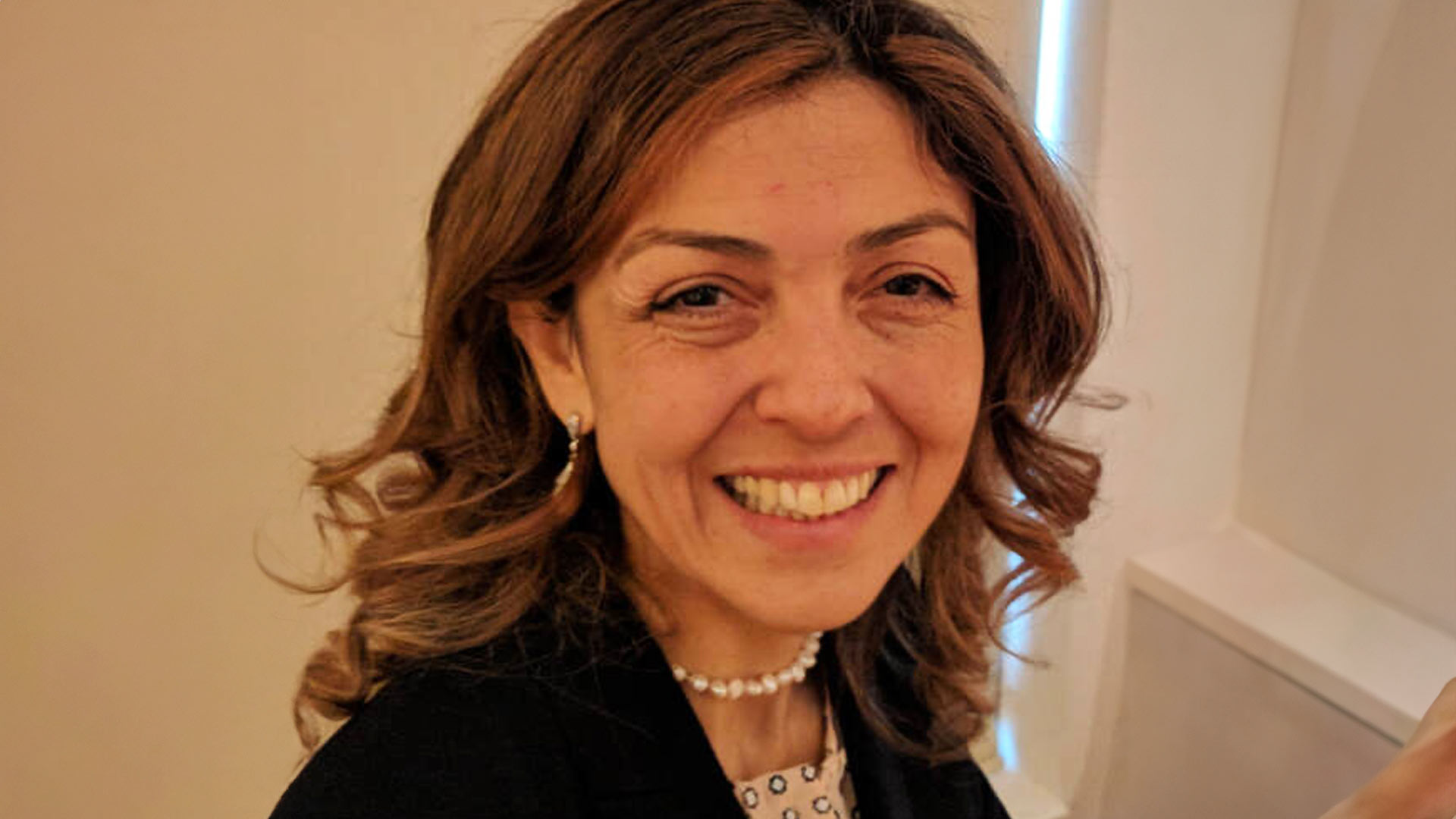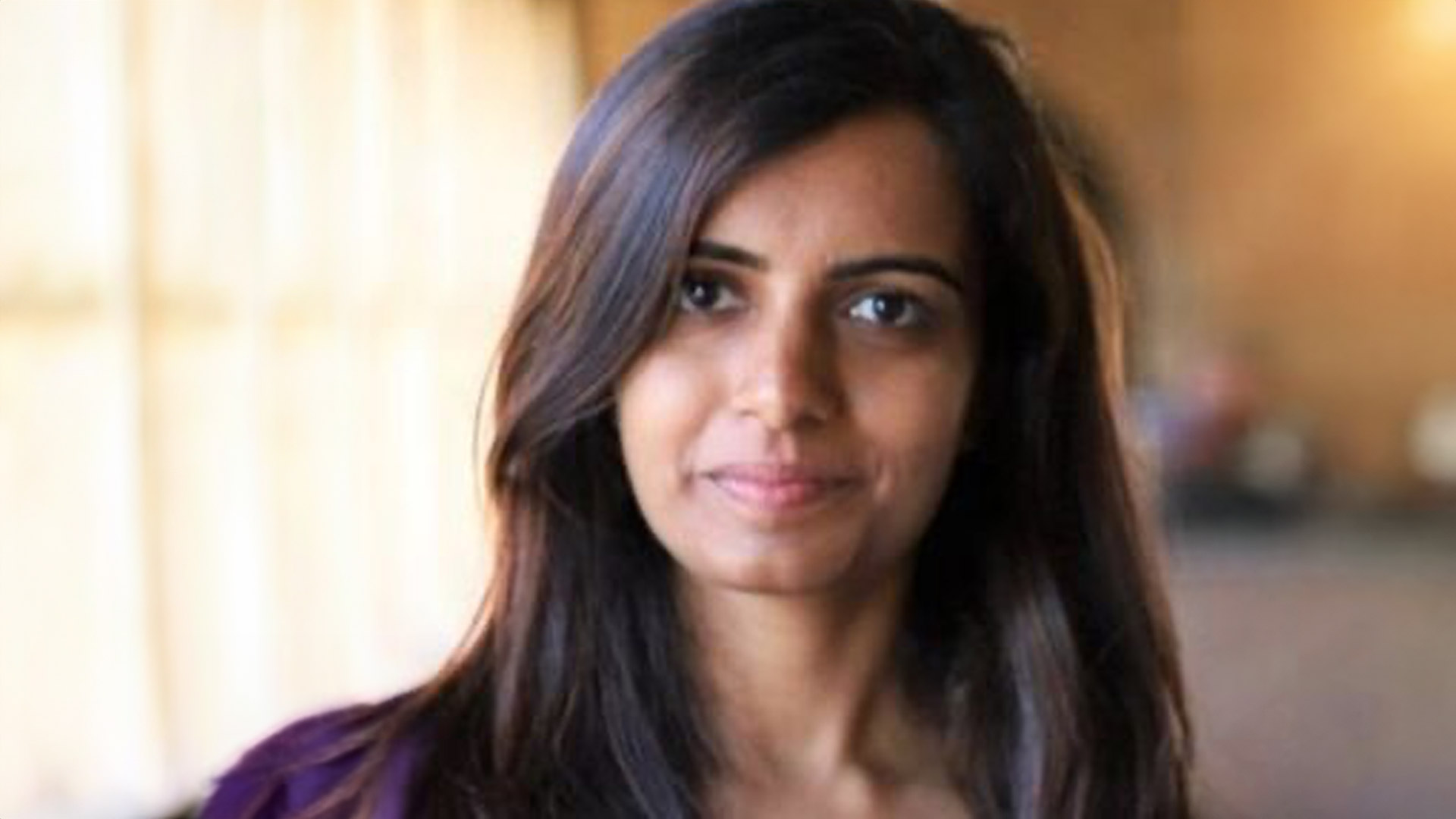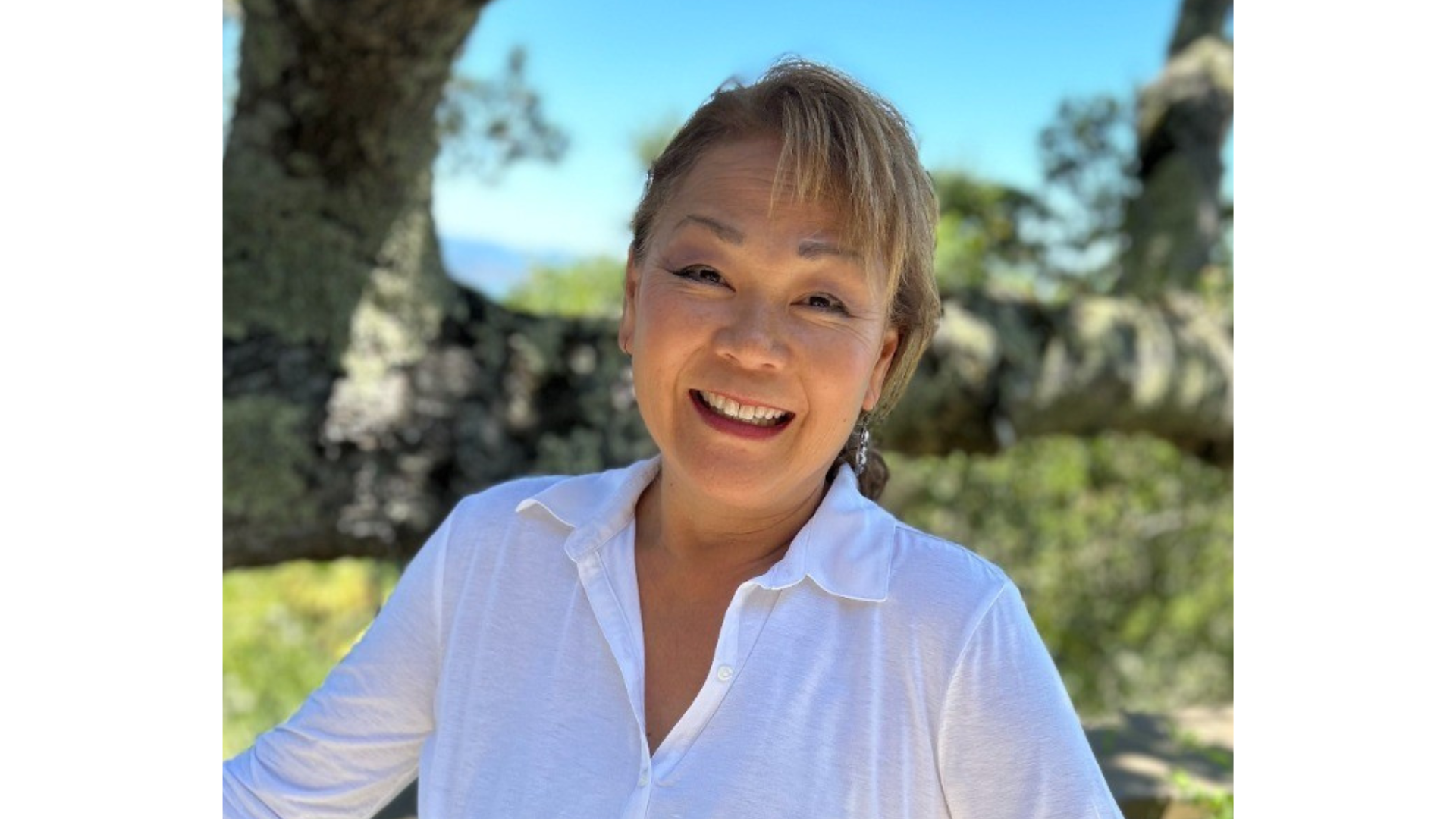

Closing Remarks at the 2024 WiDS Worldwide, Stanford conference
WiDS Worldwide, Stanford Panel: Space
Victoria Da Poian, Data Scientist, NASA Goddard Space Flight Center presents a Technical Talk at the 2024 WiDS Worldwide, Stanford conference.
Ashley Raigosa, Undergraduate Studying Computer Science and Astronautics, Stanford University presents a Technical Talk at the 2024 WiDS Worldwide, Stanford conference.
Sam Sharma, Satellite Systems Engineer, Starfish Space presents a Technical Talk at the 2024 WiDS Worldwide, Stanford conference.
In our first-ever poster blitz at the 2024 WiDS Worldwide, Stanford conference, participants showcased mastery in summarizing research and projects, presenting on-stage in 60 second or less. Notably, participants ranged from middle schoolers to postdocs, showcasing a diverse and talented group.
WiDS Worldwide, Stanford Conference Panel: Child Safety and Health
Kimberly Babiarz, Research Director, Stanford Human Trafficking Data Lab, Stanford University presents a Technical Talk at the 2024 WiDS Worldwide, Stanford conference.
Laura Bravo Sánchez, PhD Candidate, Department of Biomedical Data Science, Stanford University presents a Technical Talk at the 2024 WiDS Worldwide, Stanford conference.
Rebecca Portnoff, Head of Data Science, Thorn presents a Technical Talk at the 2024 WiDS Worldwide, Stanford conference.
Manisha Desai, Kim and Ping Li Professor of Medicine and Biomedical Data Science, Stanford University presents a Keynote Talk at the 2024 WiDS Worldwide, Stanford conference.
Hye Min Cho is a Data Scientist at Refik Anadol Studio, a Los Angeles-based practice that produces enthralling and immersive media art intended for anyone, any age and any background.
Zehra Venugopal, CIO of Fraud and Claims Technology, Wells Fargo presents a Keynote Talk at the 2024 WiDS Worldwide, Stanford conference, followed by a Fireside chat moderated by Aya Mouallem, Engineering PhD Candidate at Stanford University, Co-Founder of All Girls Code, Stanford University.
WiDS Worldwide, Stanford Panel: Digital Economies
Sandra Moerch, Global Content Marketing Manager, Autodesk Education Experiences presents a Technical Talk at the 2024 WiDS Worldwide, Stanford conference.
Zanele Munyikwa, PhD Candidate in Information Technologies, MIT presents a Technical Talk at the 2024 WiDS Worldwide, Stanford conference.
Nicole Carignan, VP Strategic Cyber AI, Darktrace presents a Technical Talk at the 2024 WiDS Worldwide, Stanford conference.
WiDS Worldwide, Stanford Panel: Sustainability Panel
Alice Chen Zhang, Data Science Manager, Charging/Energy Services & Cycle Plan Analytics, Ford presents a Technical Talk at the 2024 WiDS Worldwide, Stanford conference.
Emily Gordon, Data Science Postdoctoral Fellow, Stanford University presents a Technical Talk at the 2024 WiDS Worldwide, Stanford conference.
Radhika Shah, CoPresident Stanford Angels & Entrepreneurs, Founding CoChair UN Joint SDG Fund Breakthrough Alliance presents a Technical Talk at the 2024 WiDS Worldwide, Stanford conference.
WiDS 2024 Fireside Chat with Ellen Pao, CEO, Project Include moderated by Tina Tang, Head of Marketing, WiDS Worldwide.
Jenny Martinez, Provost and Professor of Law, Stanford University delivers the opening address at the 2024 WiDS Worldwide, Stanford conference.
Margot Gerritsen, Professor Emerita & WiDS Co-Founder, Stanford University opens WiDS Stanford 2024.
Working with the WiDS Datathon dataset over the past week has been a thrilling exercise. This dataset presents an opportunity to learn about interesting and real-world modeling challenges, and is different from other curated datasets in textbooks and classic machine learning exercises. For that reason, I discuss some of the challenges you may experience around missing data, multicollinearity and linear/ nonlinear approaches. I will also provide resources to help you on these topics.
Working with the WiDS Datathon dataset over the past week has been a thrilling exercise. This dataset presents an opportunity to learn about interesting and real-world modeling challenges, and is different from other curated datasets in textbooks and classic machine learning exercises. For that reason, I discuss some of the challenges you may experience around missing data, multicollinearity and linear/ nonlinear approaches. I will also provide resources to help you on these topics.
Listen to the incredible and inspiring journey of Avalon Baldwin’s career journey, a self-described data nerd. Today she is an entrepreneur running her own consulting company.
Working with the WiDS Datathon dataset over the past week has been a thrilling exercise. This dataset presents an opportunity to learn about interesting and real-world modeling challenges, and is different from other curated datasets in textbooks and classic machine learning exercises. For that reason, I discuss some of the challenges you may experience around missing data, multicollinearity and linear/ nonlinear approaches. I will also provide resources to help you on these topics.
Kim is the Director of Research at Chainalysis, where she examines trends in cryptocurrency economics and crime. She was trained in economics at the London School of Economics and in politics at Oxford University. Previously, she explored technological advancements in developing countries as an academic research associate at the London School of Economics and was an economics researcher at the New York City Economic Development Corporation.
Michelle Katics, CEO and co-founder of BankersLab, discusses her journey in risk management training and the importance of integrating technical skills with business and soft skills.
In this episode, Mary Krone explores her career shift from a PhD in chemistry and biochemistry to data science, where she builds financial credit models. She highlights her work’s tangible impact and discusses the challenges of work-life balance.
Kate Kolich serves as the Assistant Governor and the General Manager of Information Data and Analytics at the Reserve Bank of New Zealand.
In our episode, we discuss Kate’s role at the Reserve Bank, the role of her team, highlights from her career, and her insights on being a successful woman leader in her field.
Mandi Jin, a high school junior from Calgary, Canada, discovered her passion for data science from her family, and after conducting research on educational inequity with a female head of actuary science
In this podcast episode, Margot interviews Telle Whitney, a highly accomplished woman in the tech industry. Telle is best known for her 15 years as CEO of the Anita Borg Institute for Women and Technology, also known as AnitaB.
Top High School Team: Zeyneb Kaya Winners share their results from the WiDS Datathon 2023 challenge. Learn more
Veronica Edwards is a dancer and choreographer who, after finding that physics was not in fact the major she wanted, studied sociology at Princeton University. In her words, she stumbled into her first job after graduation, which was with the company ReadWorks, and recently joined Polygence as a senior data analyst. In this podcast episode, she talks about Polygence, her wide-ranging educational and career background, the advice she has for others, and how dance has been an important part of her life and learning.
Mandi Jin, a high school junior from Calgary, Canada, discovered her passion for data science from her family, and after conducting research on educational inequity with a female head of actuary science
Jane Lauder, Chief Data Officer at Estée Lauder, explains how Estée Lauder combines data science with creativity to connect with their consumers, create aspirational products and support the longevity of their brands.
Priya Donti, Executive Director of Climate Change AI, explains multiple ways that machine learning and AI can be used to mitigate climate change. Her work at the intersection of climate change, computer science, and data science led her to co-found Climate Change AI, our partner for the WiDS Datathon 2023 challenge to improve long-term weather forecasting.
Lesly Zerna, Google Developer Expert at Universidad Privada Boliviana, is a Bolivian researcher, teacher, mentor, content creator, and software developer. Shares her passion for learning and teaching data science and artificial intelligence. Lesly says learning works best when you know your personal learning style and apply that to practical topics you are interested in.
Leda Braga is founder and CEO of Systematica Investments, a hedge fund known for using data science-driven models to support its investment strategies. She explains how systematic investment management is data science applied to investment and how she believes it is the future of the financial industry.
Jessica Bohórquez, a researcher at the University of Adelaide in Australia and an industry consultant, is using AI and pressure transients to inspect and monitor water pipelines to detect leaks. She discusses her PhD research, working in industry and her advice for pursuing a career in data science.
Dr. Karolina Urbanska, a data scientist working for Teach First in the UK, has spent her career using data science to better understand human behavior. She discusses her work as a data science and psychology researcher, her decision to leave academia, and her learnings along the way.
WiDS Co-Founder Margot Gerritsen welcomes her new podcast co-host Cindy Orozco, as they interview each other about their career paths to data science, coping with the imposter syndrome, and successfully juggling busy lives.
Tahu Kukutai, a professor at the University of Waikato in New Zealand and a Māori woman, is leading data sovereignty initiatives that advocate for indigenous data ownership, guardianship, and governance.
Allison Koenecke, currently a postdoc at Microsoft Research and soon to be assistant professor at Cornell, discusses her decision to pursue a career in academia focused on algorithmic fairness and causal inference in public health.
Karina Edmonds, Global Head of Academies and University Alliances at SAP, has spent her career building bridges between business and academia. She is passionate about promoting fairness in data science by bringing more young people, women, and underrepresented groups into the field.
Fatima Abu Salem, a professor at the American University of Beirut, talks about how the conflict in the region has shaped her life journey and motivates her to apply data science for the public good to address challenges in Lebanon.
Louvere Walker-Hannon, Application Engineering Team Leader at MathWorks, teacher and STEM Ambassador, talks about acquiring skills and overcoming barriers to work in data science.
Menglin Cao, Senior VP and Head of AI and NLP Model Development at Wells Fargo, discusses the central role of data science in fintech and financial services, and best practices for success.
Karen Hao, Senior Editor at MIT Technology Review, discusses her experiences covering the latest research and social impacts of AI, and ethics washing in the tech industry.
Cecilia Aragon, a professor in the Department of Human Centered Design & Engineering at the University of Washington in Seattle, explains how overcoming her fears to become an aerobatic pilot propelled her forward in her career as a data scientist, professor, and author.
Kristian Lum, a statistician and former research assistant professor at the University of Pennsylvania, describes how following her interests has led her on an ever-changing career path across business, public service, and academia.
Lillian Carrasquillo, Insights Manager for Spotify’s Personalized Home team, explains how Spotify uses human-centric data science to create meaningful experiences for their listeners and creators.
Femke Vossepoel, Professor in Geoscience and Engineering at Delft University of Technology in the Netherlands, explains how data assimilation tools can be used to improve COVID-19 forecasting models.
Francesca Dominici and Rachel Nethery, from Harvard University’s T.H. Chan School of Public Health, are working to inform public health policy through research at the intersection of environmental health science, data science, climate change and health policy.
Manisha Desai, professor of medicine and biomedical data science at Stanford University, shares some insights about the challenges and progress of current COVID-19 clinical trials.
Newsha Ajami, director of Urban Water Policy with Stanford University’s Water in the West, focuses on improving urban water systems through interdisciplinary research combining data science, engineering and public policy.
Andrea Gagliano, Head of Data Science, AI and Machine Learning at Getty Images, works at the intersection of art and technology — using machine learning to inspire creativity, and the arts to comprehend technology.
Ya Xu, head of LinkedIn’s global data science team, explains how the company takes responsibility for data privacy and creating economic opportunities for all of its members.
Susan Athey, Economics of Technology Professor at the Stanford Graduate School of Business, brings an economist’s expertise and perspective to machine learning and data science.
Montse Medina, a successful data science entrepreneur, is currently a partner at Deloitte in Spain responsible for the firm’s advanced analytics and asset-enabled business.
Women face many roadblocks to careers in data science and other STEM disciplines. One Stanford professor is out to change perceptions and realities for women in these fields.
Timnit Gebru spoke to us when she was a research scientist and technical co-lead of Google’s Ethical Artificial Intelligence Team. In this episode, Timnit explains the importance of advocating for diversity, inclusion and ethics in AI.
Christiane Kamdem and Lama Moussawi discuss the importance of role models, mentors and giving back to empower women and girls to pursue data science careers.
Sherrie Wang, spoke to us when she was a fourth year PhD student at Stanford’s Institute for Computational and Mathematical Engineering (ICME), explains how she applies machine learning methods to help solve global food security challenges. Sherrie has since completed her PhD, and is working as a postdoc at UC Berkeley, working on machine learning for sustainability.
Marzyeh Ghassemi, an assistant professor at the University of Toronto, is focused on Healthy ML—applying machine learning to understand and improve health.
Shir Meir Lador, data science team lead at Intuit in Israel, develops machine learning models for security, risk and fraud in products like Quickbooks, Turbo Tax and Mint.
Natalie Evans Harris, a leader on ethical and responsible use of data, explains how building trust through a shared vision and data “code of ethics” is essential to promote both innovation and privacy.
When we spoke to Meltem Ballan, she was a data scientist working on Connected Cars at General Motors (GM). In this episode, she explains how data science is transforming the automotive industry.
Chiara Sabatti, professor of biomedical data science and of statistics at Stanford University, discusses trends in data science in genetics.
We spoke to Elena Grewal when she was Airbnb’s head of data science, where she discovered the key to making successful career jumps: “Often it’s more about words being different than about skills being different”. Elena founded and runs Data 2 the People, a community of data scientists working on projects for the public good.
Sonu Durgia spoke to us when she was at Walmart Labs where she mined the store’s massive backlog of digital interactions to engineer a better e-commerce experience for customers. She now works at Facebook AI as a product leader in their Responsible AI group.
The executive director of the Human Rights Data Analysis Group (HRDAG) discusses how data science is being used to combat injustices in Central America and the Middle East.
Finding new ways to collect data – and a willingness to share it – are the hallmarks of a career in academia, according to Eileen Martin and Nila Monnier Ioannidis, when they were at Stanford, as a PhD student and postdoc, respectively. Now, Eileen is an Assistant Professor at Virginia Tech, moving to become an Assistant Professor at Colorado School of Mines in January 2022. Nila is an Assistant Professor at UC Berkeley.
Janet George spoke to us when she was Western Digital’s chief data officer and first female Fellow. In this episode Janet explains that from manufacturing to product development, data science plays an important role in the storage industry. Janet is now the Group Vice President, Autonomous Enterprise, Advanced Analytics, Machine Learning & Artificial Intelligence at Oracle.
Dean Jennifer Widom has seen computer science–and data science– evolve from a narrow, specialized field into an interdisciplinary field that touches on broad swaths of society and is capable of solving important global problems.
Caitlin Smallwood spoke to us when she was VP and Head of Data Science and Insights at Netflix. In this episode, she discusses the future of storytelling.
Jennifer Chayes, spoke to us when she was a technical fellow and managing director at Microsoft Research. She believes data scientists should build algorithms with Fairness, Accountability, Transparency, and Ethics – or FATE. Jennifer now serves as Associate Provost and Dean at the University of California at Berkeley (UCB).
Margot Gerritsen, Professor Emerita & WiDS Executive Director, Stanford University opens WiDS Stanford 2023.
Biography:
Margot is Professor [Emerita] in the Department of Energy Science & Engineering at Stanford. Her specialties are data analysis, computer simulation and mathematical analysis of natural and engineering processes. From 2010 to 2018, she directed the Institute for Computational and Mathematical Engineering. From 2015 – 2020, she was the Senior Associate Dean for Educational Affairs in the School of Earth, Energy and Environmental Sciences. She co-founded WiDS in 2015. Margot is the Executive Director of WiDS Worldwide, and co-hosts the WiDS Podcast series.
Srinija Srinivasan, Co-Founder, Loove opens WiDS Stanford 2023.
Biography:
Born in India and raised in Lawrence, Kansas, Srinija Srinivasan followed her siblings to college in California. Having studied artificial intelligence at Stanford and worked at a large-scale AI project after graduating, Srinija joined Yahoo! in 1995 as their fifth employee and self-titled Ontological Yahoo. She served as Vice President, Editor-in-Chief at Yahoo! for over 15 years, where her work centered on the human experience, from the categorization system of the Yahoo! Directory to editorial and policy issues globally. During that time she also chaired the board of non-profit SFJAZZ, and these experiences together inspired her to co-found Loove, a music venture exploring how commerce and technology can be guided by artistic values rather than letting our culture be led by market values. She’s a board member of the On Being Project and a vice chair of Stanford University’s Board of Trustees. She lives in Palo Alto, CA and Brooklyn, NY.
Trina Reynolds-Tyler, Data Director, Invisible Institute presents the Technical Vision Talk “(DIS) Proportionate Impacts of Policing in Chicago”. Through public data records requests the Invisible Institute received an unprecedented amount of data related to misconduct records of the Chicago Police Department. Beneath the Surface analyzed these records to uncover patterns of gender based violence at the hands of police. A volunteer team of over 200 community members generated training data for Judy, our nickname for the algorithm which then parsed through narratives of complaints in more than 27,000 misconduct records between 2011 and 2015. We then were able to run a targeted search and identify a range of testimony representing shared experiences; connecting people across time and space. But what proportion is significant enough to constitute as evidence of a deeper issue? How does the universe of information we use to define the numerator or denominator impact our willingness to deepen our questions? Where do we draw the line between significance and meaningfulness when using data science to understand policing in America?
Biography:
Trina Reynolds-Tyler is the Data Director at the Invisible Institute, an abolitionist, and a native of south side Chicago. She leads Beneath the Surface, a project employing machine learning to identify gender based violence at the hands of Chicago police. Trina works to document how communities unable to depend on the police are creating safety and accountability outside of the carceral state. As a data scientist, she centers the practice of narrative justice in her inquiries.
Trina organizes with Not Me We, and is serving on a University of Chicago council attempting to measure the institution’s impact on the south side population. She developed the skills to use data science for real world problems as a Pozen Center for Human Rights intern with the Human Rights Data Analysis Group (HRDAG), and was a Pearson Institute Fellow. Trina holds a masters degree in public policy from the University of Chicago.
—
Panel: Putting our values into practice in data science work
Moderator:
Megan Price, Executive Director, Human Rights Data Analysis Group (HRDAG). As the Executive Director of the Human Rights Data Analysis Group, Megan drives the organization’s overarching strategy, leads scientific projects, and presents HRDAG’s work to diverse audiences. Her scientific work includes analyzing documents from the National Police Archive in Guatemala and contributing analyses submitted as evidence in multiple court cases in Guatemala. Her work in Syria includes collaborating with the Office of the United Nations High Commissioner of Human Rights (OHCHR) and Amnesty International on several analyses of conflict-related deaths in that country. In 2022 she was named a Fellow in the American Statistical Association.
Panelists:
Jennifer Pan is a Professor of Communication and Senior Fellow at the Freeman Spogli Institute at Stanford University. Her research resides at the intersection of political communication and authoritarian politics. Using large-scale datasets on political activity in China and other authoritarian countries, her work answers questions about how autocrats perpetuate their rule; how political censorship, propaganda, and information manipulation work in the digital age; and how preferences and behaviors are shaped as a result. Her papers have appeared in peer-reviewed publications such as Science, the American Political Science Review, the American Journal of Political Science, and Journal of Politics. She graduated from Princeton University, summa cum laude, and received her Ph.D. from Harvard University’s Department of Government.
Trina Reynolds-Tyler, Data Director, Invisible Institute, an abolitionist, and a native of south side Chicago. She leads Beneath the Surface, a project employing machine learning to identify gender based violence at the hands of Chicago police. Trina works to document how communities unable to depend on the police are creating safety and accountability outside of the carceral state. As a data scientist, she centers the practice of narrative justice in her inquiries.
Trina organizes with Not Me We, and is serving on a University of Chicago council attempting to measure the institution’s impact on the south side population. She developed the skills to use data science for real world problems as a Pozen Center for Human Rights intern with the Human Rights Data Analysis Group (HRDAG), and was a Pearson Institute Fellow. Trina holds a masters degree in public policy from the University of Chicago.
Wendy Ku, Computer Vision Tech Lead, Senior Data Scientist, Getty Images presents the Technical Vision Talk “ML through a wide-angle lens: Real World Successes and Lessons Learned in Deploying ML Models”. Image search has been a well-established problem area across industries, with a wide range of applications including e-commerce, social media and search engines. As we collectively create and consume more visual content, image search capabilities are becoming increasingly more important. In recent years, multiple large-scale image-text models have been released, reinventing the performance of image-text understanding tasks. However, applying these generalized models out-of-the-box often results in less than desired performance. In practice, deploying and maintaining an image search system presents a different set of challenges.
Wondering what else is involved in a machine learning solution besides training and deployment? Or how real world model evaluations differ from Kaggle scoreboards? This talk will cover the less discussed journey of bringing language and image-text models to production.
Biography:
Wendy is a Senior Data Scientist at Getty Images, where she develops multilingual and visual-language representation models to improve users’ search experience. She leads Getty Images’ efforts on diagnosing bias and improving fairness in machine learning systems. Prior to joining Getty Images, Wendy was involved in product and operations optimization projects in cybersecurity, consumer finance and restaurant companies. When she’s not working, Wendy enjoys working on her art and running.
—
Gabriela de Queiroz, Principal Cloud Advocate, Microsoft presents the Technical Vision Talk “Embrace the journey: learnings and inspiration from a non-linear path into Data Science”. This talk focuses on the importance of embracing non-linear career paths and the cumulative effect of seemingly disparate skills in becoming a successful data scientist. The talk highlights the power of a learning and growth mindset in overcoming obstacles and unlocking one’s full potential. Attendees will leave the talk feeling empowered to embrace their unique backgrounds and experiences and approach their careers with openness, honesty, and a willingness to learn and grow. Whether you are just starting out on your data science journey or looking to take your skills to the next level, this talk is an opportunity to be inspired, connect with like-minded individuals, and explore the limitless possibilities of a career in data science.
Biography:
Gabriela leads and manages the Global AI/ML/Data team in Education Advocacy. Before that, she worked at IBM as a Program Director on Open Source, Data & AI Technologies and then as Chief Data Scientist at IBM, leading AI Strategy and Innovations.
Gabriela is the founder of AI Inclusive, a global organization that is helping increase the representation and participation of gender minorities in Artificial Intelligence. She is also the founder of R-Ladies, a worldwide organization for promoting diversity in the R community with more than 200 chapters in 55+ countries.
—
Marisa Torres, Bioinformatics Lead, Lawrence Livermore National Lab (LLNL) presents the Technical Vision Talk “Killing Diseases with Really Big Computers: Building Analysis Tools to Solve Disease”. Our team at LLNL has been working on improving bioinformatics tools and models for COVID-19 and for cancer. We think rapid response to a disease outbreak should be a national security priority. We’ve run huge gene simulations for drug discovery and built machine learning models on the results. For COVID-19, we‚Äôve aimed to design viral inhibitors with no adverse health reactions, and we‚Äôve successfully released most of this work publicly as a searchable and usable tool. We’re now scaling up our work from a few COVID-19 genes, up to tens of thousands of human genes for the American Heart Association. When designing therapeutics, we use every informatic and statistical tool available. We create new machine learning strategies for scaling virtual screens for the human or microbe. We use 3D models and docking poses of protein structures to make predictions. We screen for safety properties, because we don‚Äôt want detrimental interactions.
Biography:
Marisa designs, implements, and integrates data in relational databases, provides software engineering support for DNA signature discovery, and responds to internal and external customer requests for signature analysis. She has provided signature development and bioinformatics analysis for the Environmental Protection Agency and the National Bio-Forensics Analysis Center. In 2000, Marisa designed DNA signatures that were promoted for use in the BASIS program. She has taken the lead on signature erosion checking, which during the most recent DHS proposal cycle was recognized as important for continued reliable detection of pathogens, and she supports public health and biosecurity customers combining her versatile skill set of software engineering and biology background.
—
Irene Dankwa-Mullan, Chief Health Equity Officer at Merative & Affiliate Professor at GWU Milken Institute School of Public Health presents Technical Vision Talk “Harnessing AI and Data Science for Health Equity within Communities”. A robust data science agenda can help support communities in their interventions to achieve health equity, and measure progress toward ensuring quality and optimal health for all. However, there are challenges for data science in promoting community-engaged interventions addressing health disparities. This talk will provide a background on the role of data science in promoting a vision for a productive health AI ecosystem of research, technology development and implementation to improve community health and advance health equity.
Biography:
Irene Dankwa-Mullan is an affiliate professor in the Department of Health Policy and Management, Milken Institute School of Public Health at The George Washington University. She is a nationally recognized industry physician, scientist, thought leader, author with over 20 years of diverse leadership experience in primary care, healthcare, businesses, and the community. She also serves in a strategic advisory role for various health technology start-ups. Irene most recently served as Chief Health Equity Officer at IBM Watson Health and provided leadership for the data and evidence strategy for implementation of technology and clinical decision-support solutions. She was previously Deputy Director for extramural scientific programs at the National Institute. Irene has published widely on health equity, community and public health and building AI technologies for social good.
—
Maria Elena Monzani, Lead Scientist, SLAC National Accelerator Laboratory and Kavli Institute for Particle Astrophysics and Cosmology, Stanford University leads the Keynote Address “A Sparkle in the Dark: The Outlandish Quest for Dark Matter.” The nature and origin of dark matter are among the most compelling mysteries of contemporary science. There is strong evidence for dark matter from its role in shaping the galaxies and galaxy clusters that we observe in the universe. Still, for over three decades, physicists have been trying to detect the dark matter particles themselves with little success.
This talk will describe the leading effort in that search, the LUX-ZEPLIN (LZ) detector. LZ is an instrument that is superlative in many ways. It consists of 10 tons of liquified xenon gas, maintained at almost atomic purity and stored in a refrigerated titanium cylinder a mile underground in a former gold mine in Lead, South Dakota.
During its science run, LZ is projected to accumulate a massive dataset, consisting of many petabytes of data and recording several billions of particle interactions, only a handful of which might be produced by potential dark matter candidates (if nature cooperates). Identifying the dark matter signals in this amassment of data represents an extreme “needle in a haystack” problem, and requires leveraging advanced detector design and stat-of-the art machine learning algorithms. The talk will present some of the challenges in constructing this large-scale underground experiment and interpreting its data, along with the prospects LZ presents for finally discovering the dark matter particle, and recently-released results from its initial search for new physics.
Biography:
Maria Elena Monzani is a dark matter data wrangler. Her research field is Astroparticle physics, which focuses on topics at the intersection between particle physics and astrophysics/cosmology, using the tools of data intensive science. She received a dual PhD from University of Milano and University of Paris 7, performing research with the Borexino experiment that measured neutrinos produced by the Sun. She then held a postdoctoral position at Columbia University before joining SLAC in 2007 to work on the Fermi Gamma-ray Space Telescope. Today, Monzani is a lead scientist at SLAC and a senior member of the Kavli Institute for Particle Astrophysics and Cosmology at Stanford. She leads the software computing effort for the LZ Dark Matter Experiment and the science operations team for the Fermi satellite. She is also an Adjunct Scholar at the Vatican Observatory, and enjoys discussing the shared philosophical foundations of the scientific and religious endeavors.
—
Panel: Preparing for a career in data science
Moderator:
Sanne Smith, Director of Master’s Program, Education Data Science, Stanford University, is the director of the master‚Äôs program Education Data Science and a lecturer at the Stanford Graduate School of Education. She teaches courses that introduce students to coding, data wrangling and visualization, various statistical methods, and the interpretation of quantitative research. She studies social networks and thriving, diverse contexts.
Panelists:
Montse Cordero, Mathematics Designer, youcubed, is a mathematics designer for youcubed, a center at Stanford University that aims to inspire, educate and empower teachers of mathematics, transforming the latest research on maths learning into accessible and practical forms. He is a co-author and professional development provider for youcubed’s Explorations in Data Science high school curriculum and has participated in multiple national summits for the advancement of data science in K-12 education (Data Science 4 Everyone Coalition, National Academies of Sciences Engineering and Medicine). Montse is also a mathematician interested in work at the intersection of combinatorics, algebra, and geometry. In all facets of their work, Montse endeavors to change the ways our culture thinks and talks about mathematics.
Adriana Velez Thames, Geophysicist-Data Scientist, Springboard Alumni. Adriana recently completed a transition to Data Science after many years in the Oil and Gas industry as a Senior Geophysicist. Her primary focus was in seismic data processing for imaging the Earth’s subsurface to guide energy exploration projects. From 2012-2019, she worked at TGS where her responsibilities included QC of deliverables, testing of internal software updates, and conducting test projects and benchmarks. This involved extensive analysis and manipulation of terabyte-sized digital subsurface data using sophisticated algorithms. She believes that data-driven decisions are the best way to solve problems in any industry. Having been born in Colombia and attained post-graduate degrees in Russia, she is fluent in English, Spanish, and has working proficiency in Russian. Currently she continues educational studies in data science and spatial data science.
Elaine Yi Xu, Staff Business Data Analyst, Intuit, is a passionate data analytics and data science practitioner, putting her undergrad degree in Statistics and MS in Info Sys and DS into everyday business decision-making. She’s been working in-house in web analytics, product analytics, and marketing analytics for multiple industries, including retail (lululemon), automotive (Kelley Blue Book), and most recently at Intuit, the global technology platform. She specializes in the measurement of Go-To-Market marketing strategies, assessment of marketing campaign effectiveness, optimization of user experience, and A/B Testing. She thrives to be the connective tissue between business, analytics, engineering, and data science, combining all facets of science to help arrive at the most optimal business decisions.
Jhanvi Shriram, Co-Founder and CEO, Krikey alongside Ketaki Shriram
Co-Founder and CTO, Krikey present Technical Vision Talk “Bringing Motion Diffusion Models to Immersive Entertainment”. Most generative models thus far have focused on utilizing LLMs for consumer products. The introduction of motion diffusion models to this space provides a novel avenue to engage consumers, especially in the field of entertainment. This talk will cover a text-to-animation motion diffusion model. This model generates animations in less than 5 minutes. These animations can be applied to any 3D file and utilized with any 3D software. Practical applications include optimizing production pipelines for gaming, film, and immersive learning. We will also cover the implications for these industries as they adopt new generative tools in production workflows. To learn more about our tool and try it for yourself, please visit krikey.ai.
Jhanvi Biography:
Jhanvi is currently the CEO of Krikey, an AI gaming tools service that she co-founded with her sister. Krikey recently closed their Series A round, led by Reliance Jio, India’s biggest telecom operator. Prior to Krikey, Jhanvi worked at YouTube as a Production Strategist on operations and creator community programs, which sparked her interest in working with content creators. She also worked at JauntVR and Participant Media. In 2014, Jhanvi and her sister, Ketaki Shriram, co-produced a feature film titled, ‚ÄúTrue Son,‚Äù which followed a 22-year old‚Äôs political campaign in Stockton, CA. The film premiered at the 2014 Tribeca Film Festival and was acquired by FusionTV/Univision. Jhanvi holds a BA (Political Science and African Studies) and MBA from Stanford University, and a MFA (Producing) from USC. You can learn more here: krikey.ai.
Ketaki Shriram Biography:
Dr. Shriram is a scientist, film producer, and wildlife photographer interested in the impact of immersive worlds on human behavior. She is currently the Chief Technology Officer at Krikey, an AI gaming tools service that she co-founded with her sister. Krikey recently closed their Series A round, led by Reliance Jio, India’s biggest telecom operator. Dr. Shriram received her BA, MA, and PhD at the Stanford Virtual Human Interaction Lab. She previously worked at Google [x] and at Meta‚Äôs Reality Labs. Dr. Shriram was selected for the Forbes 30 Under 30 2020 Class in the Gaming category. You can learn more here: krikey.ai.
—
Panel: Data democratization: a powerful means for creating sustainable and equitable communities
Moderator:
Michela Taufer is an ACM Distinguished Scientist and holds the Dongarra Professorship in High-Performance Computing in the Department of Electrical Engineering and Computer Science at the University of Tennessee Knoxville (UTK). She earned her undergraduate degree (Laurea) in Computer Engineering from the University of Padova (Italy) and her doctoral degree (Ph.D.) in Computer Science from the Swiss Federal Institute of Technology or ETH (Switzerland). From 2003 to 2004, she was a La Jolla Interfaces in Science Training Program (LJIS) Postdoctoral Fellow at the University of California San Diego (UCSD) and The Scripps Research Institute (TSRI), where she worked on interdisciplinary projects in computer systems and computational chemistry.
Michela is well-known for her work in establishing trustworthy scientific discoveries on heterogeneous cyberinfrastructures. Throughout her career, she has put the principle of trustworthiness into practice. She has promoted scientific computing for the general population through volunteer computing, defined accurate scientific applications on accelerators and GPUs, and developed in situ analysis methods for scientific workflows on converging HPC and Cloud platforms. She has been serving as the principal investigator of several NSF collaborative projects. She has significant experience in mentoring a diverse population of students on interdisciplinary research and establishing long-lasting workforce development.
Panelists:
Priya Donti, Co-Founder and Executive Director, Climate Change AI (CCAI). Climate Change AI, a global non-profit initiative to catalyze impactful work at the intersection of climate change and machine learning, which she is currently running through the Cornell Tech Runway Startup Postdoc Program. She will also join MIT EECS as an Assistant Professor in Fall 2023. Her research focuses on developing physics-informed machine learning methods for forecasting, optimization, and control in high-renewables power grids. Priya received her Ph.D. in Computer Science and Public Policy from Carnegie Mellon University, and is a recipient of the MIT Technology Review’s 2021 “35 Innovators Under 35” award, the ACM SIGEnergy Doctoral Dissertation Award, the Siebel Scholarship, the U.S. Department of Energy Computational Science Graduate Fellowship, and best paper awards at ICML (honorable mention), ACM e-Energy (runner-up), PECI, the Duke Energy Data Analytics Symposium, and the NeurIPS workshop on AI for Social Good.
Julia Stewart Lowndes, Director, Openscapes is a marine ecologist working at the intersection of actionable environmental science, data science, and open science. Julia’s main focus is mentoring teams to develop technical and leadership mindsets and skills for data-intensive research, grounded in climate solutions, inclusion, and kindness. She founded Openscapes in 2018 as a Mozilla Fellow and Senior Fellow at the National Center for Ecological Analysis and Synthesis (NCEAS) at the University of California Santa Barbara (UCSB), having earned her PhD from Stanford University in 2012 studying drivers and impacts of Humboldt squid in a changing climate.
Nikki Tulley, Doctoral Student, University of Arizona; Indigenous Researcher, NASA Ames Research Center. Nikki is from the Navajo Nation (NN), an Indigenous Nation located in the United States. The work and research Nikki does is influenced by her upbringing. Born and raised on the NN Reservation, she has seen firsthand the impacts of water access and water quality challenges rural communities face. The NN has wicked water problems related to anthropogenic activities and climate change. Now, as an Indigenous Scientist, she recognizes that opportunity to braid traditional ecological knowledge and western science together to address water challenges. Taking a step beyond braiding the two knowledge systems together she has begun to use Earth Observation satellite imagery to tell a story of the changes being monitored from space and those observed from the landscapes. Nikki’s passion is empowering communities through data access and capacity building. She believes that community involvement in research can significantly aid in seeking solutions for resilient and sustainable communities.
Jennifer Pan, Professor of Communication and FSI Senior Fellow, Stanford University presents the Technical Vision Talk “Uncovering Online Censorship and Propaganda in China.” Although digital communication technologies have revolutionized the way information can flow across borders and national boundaries, governments all over the world impose restrictions on access to digital information. Nowhere is the effort to control and manipulate the flow of digital information more sophisticated, more extensive and more sustained than in China. Controlling China’s digital ecosystem involves a huge organizational effort that is obviously designed to suppress information, but this effort paradoxically reveals the goals, intentions, actions of Chinese regime when its footprints are analyzed at scale..
Biography:
Jennifer Pan is a Professor of Communication and Senior Fellow at the Freeman Spogli Institute at Stanford University. Her research resides at the intersection of political communication and authoritarian politics. Using large-scale datasets on political activity in China and other authoritarian countries, her work answers questions about how autocrats perpetuate their rule; how political censorship, propaganda, and information manipulation work in the digital age; and how preferences and behaviors are shaped as a result. Her papers have appeared in peer-reviewed publications such as Science, the American Political Science Review, the American Journal of Political Science, and Journal of Politics. She graduated from Princeton University, summa cum laude, and received her Ph.D. from Harvard University’s Department of Government.
—
Megan Price, Executive Director, Human Rights Data Analysis Group (HRDAG) presents the Technical Vision Talk “What is the Cost of Being Wrong? Machine learning models are a versatile tool in a statistician‚Äôs analytical toolbox. As George Box is credited with saying, ‚ÄúAll models are wrong, some are useful.‚Äù How can we identify the contexts when machine learning models are most useful? How can we identify the contexts where they pose the most risk for harm? These questions will be answered using examples from work by the Human Rights Data Analysis Group”.
Biography:
As the Executive Director of the Human Rights Data Analysis Group, Megan drives the organization’s overarching strategy, leads scientific projects, and presents HRDAG’s work to diverse audiences. Her scientific work includes analyzing documents from the National Police Archive in Guatemala and contributing analyses submitted as evidence in multiple court cases in Guatemala. Her work in Syria includes collaborating with the Office of the United Nations High Commissioner of Human Rights (OHCHR) and Amnesty International on several analyses of conflict-related deaths in that country. In 2022 she was named a Fellow in the American Statistical Association.
—
Julia Stewart Lowndes, Director, Openscapes presents Technical Vision Talk “Openscapes: Supporting Kinder Science for Future Us”. At Openscapes, we believe open science can accelerate interoperable, data-driven solutions and increase diversity, equity, inclusion, and belonging in research and beyond. Our main activity is mentoring environmental and Earth science teams in open science, and connecting and elevating these researchers both through tech like R, Python, Quarto, and JupyterHubs and communities like RLadies, Black Women in Ecology Evolution, and Marine Science, Ladies of Landsat, and NASA. We will share stories and approaches about open science as a daily practice ‚Äì better science for future us ‚Äì and welcome you to join the movement.
Biography:
Julia Stewart Lowndes, PhD, is a marine ecologist working at the intersection of actionable environmental science, data science, and open science. Julia’s main focus is mentoring teams to develop technical and leadership mindsets and skills for data-intensive research, grounded in climate solutions, inclusion, and kindness. She founded Openscapes in 2018 as a Mozilla Fellow and Senior Fellow at the National Center for Ecological Analysis and Synthesis (NCEAS) at the University of California Santa Barbara (UCSB), having earned her PhD from Stanford University in 2012 studying drivers and impacts of Humboldt squid in a changing climate.
—
Momona Yamagami, Incoming Assistant Professor, Electrical and Computer Engineering, Rice University presents the Technical Vision Talk on “Making Biosignal Interfaces Accessible”. Biosignal interfaces that use electromyography sensors, accelerometers, and other biosignals as inputs provide promise to improve accessibility for people with disabilities. However, generalized models that are not personalized to the individual‚Äôs abilities, body sizes, and skin tones may not perform well. Individualized interfaces that are personalized to the individual and their abilities could significantly enhance accessibility.
In this talk, I discuss how continuous (i.e., 2-dimensional trajectory-tracking) and discrete (i.e., gesture) electromyography (EMG) interfaces can be personalized to the individual. For the continuous task, we used methods from game theory to iteratively optimize a linear model that mapped EMG input to cursor position. For the discrete task, we developed a dataset of participants with and without disabilities performing gestures that are accessible to them. As biosignal interfaces become more commonly available, it is important to ensure that such interfaces have high performance across a wide spectrum of users.
Biography:
Momona will be an Assistant Professor at Rice University Electrical & Computer Engineering starting summer 2023 as part of the Digital Health Initiative. Her research focuses on modeling and enhancing human-machine interaction (HMI) to support accessibility and health using biosignals and control theory applied to the field of HCI (human-computer interaction). I am currently a CREATE postdoctoral scholar at the University of Washington in Seattle, WA, advised by Prof. Jennifer Mankoff.
Momona’s dissertation research leveraged control theory methods to model and enhance continuous HMIs and explore biosignals like electromyography (EMG) as accessible machine inputs for people with and without disabilities. Her current research interests include how multi-input biosignals can improve HMI accessibility for new and emerging technology like virtual reality and support the health of people with disabilities.
—
Susan Malaika, Senior Technical Staff Member, IBM leads the closing remarks at WiDS Stanford 2023.
Biography:
Susan Malaika is Senior Technical Staff Member in the Ecosystem Engineering & Developer Advocacy group at IBM. Her specialties include opensource software, opendata, databases, and community building. Susan has worked in various engineering roles particularly in database development. She has served as Tech Advisory Council Representative at LF-AI & Data as well as co-lead for the Principles Working Group in the Trusted AI Committee. Susan was a founder of the JanusGraph project now at the Linux Foundation,. She has led workshops, hackathons, meetups and she engages with universities globally – and in the MENA region in particular. Susan also leads a tech community of a few hundred members in the New York area and hosts community sessions to foster collaboration.
—
Jhanvi Shriram, Co-Founder and CEO, Krikey and her sister Ketaki Shriram, Co-Founder and CTO, Krikey present the closing activity at WiDS Stanford 2023
—
Margot Gerritsen, Professor Emerita & WiDS Executive Director, Stanford University says farewell to all attendees at WiDS Stanford 2023.
Gayatree Ganu, Vice President, Data Science, Facebook presents Keynote Address “Put the horse before the cart: Why ‚Äúusers first‚Äù is important for a good monetization strategy”.
Meta has over 3B users on our platform engaging with our different products and services. Meta also makes over $100B annually through advertising. There is a strong connection between user engagement on our platform and how we build a sustainable business. Our mission statement for ads at Meta is “Make meaningful connections between people and businesses”. Connecting users to monetization or ads is an important part of Meta‚Äôs long term success. In this talk I will describe the frameworks to connect user engagement and revenue potential, allowing us to focus our products and services. We will also discuss how high quality and relevant ads can actually bring more engagement to our platform, making it a win-win situation. We will cover a lot of fun and challenging data science topics from weighted metrics, producer-consumer experimental setups, counterfactuals, incrementality, all at an extraordinary scale of 3B users and $100B!
Biography:
Gayatree Ganu leads the Engagement Ecosystem and Monetization Data Science teams at Facebook. The Engagement Ecosystem team’s mission is to inform Facebook’s strategy through better understanding and forecasting the health of the app. The Monetization team’s mission is to give everyone a voice and to champion economic prosperity. Gayatree leads a Data Science team with a diverse portfolio spanning modeling and machine learning, product optimizations of user experience, and strategic innovations. Gayatree has a PhD in Computer Science in Search and Recommendations from Rutgers University. She joined Facebook (now Meta) in 2013 and has worked on several problems and product areas through the last 10 years.
Gayatree believes deeply in fairness and equality in opportunity and is passionate about bringing more representation and providing sustained support to women and under-represented minorities in Tech. She leads recruiting for all Data Science roles at Meta, and is helping build an organization that values diverse perspectives as well as strong technical and analytical skills.
—
Priya Donti, Co-Founder and Executive Director, Climate Change AI presents Technical Vision Talk “Optimization-in-the-loop machine learning for energy and climate”. Addressing climate change will require concerted action across society, including the development of innovative technologies. While machine learning (ML) methods have the potential to play an important role, these methods often struggle to contend with the physics, hard constraints, and complex decision-making processes that are inherent to many climate and energy problems. To address these limitations, I present the framework of ‚Äúoptimization-in-the-loop ML,‚Äù and show how it can enable the design of ML models that explicitly capture relevant constraints and decision-making processes. For instance, this framework can be used to design learning-based controllers that provably enforce the stability criteria or operational constraints associated with the systems in which they operate. It can also enable the design of task-based learning procedures that are cognizant of the downstream decision-making processes for which a model‚Äôs outputs will be used. By significantly improving performance and preventing critical failures, such techniques can unlock the potential of ML for operating low-carbon power grids, improving energy efficiency in buildings, and addressing other high-impact problems of relevance to climate action.
Biography:
Priya Donti is the Co-founder and Executive Director of Climate Change AI, a global non-profit initiative to catalyze impactful work at the intersection of climate change and machine learning, which she is currently running through the Cornell Tech Runway Startup Postdoc Program. She will also join MIT EECS as an Assistant Professor in Fall 2023. Her research focuses on developing physics-informed machine learning methods for forecasting, optimization, and control in high-renewables power grids. Priya received her Ph.D. in Computer Science and Public Policy from Carnegie Mellon University, and is a recipient of the MIT Technology Review’s 2021 “35 Innovators Under 35” award, the ACM SIGEnergy Doctoral Dissertation Award, the Siebel Scholarship, the U.S. Department of Energy Computational Science Graduate Fellowship, and best paper awards at ICML (honorable mention), ACM e-Energy (runner-up), PECI, the Duke Energy Data Analytics Symposium, and the NeurIPS workshop on AI for Social Good.
—
Kathryn Hymes, Lead of Product and Innovation, Médecins Sans Frontières-USA presents the Technical Vision Talk “Productizing Data for Humanitarian Aid Applications”. In humanitarian efforts focused on delivering medical interventions in low-resource settings, there are many opportunities for data science to improve decision-making and produce valuable insights, both on the ground and in long-term operations. This talk will focus on product approaches to data that support insights for long-term engagement with some of the work of M√©decins Sans Fronti√®res, a global aid organization focused on public health.
Biography:
Kathryn Hymes is a technologist, computational linguist, and game designer. She currently serves as the lead of product and innovation at Médecins Sans Frontières-USA. She leads a humanitarian tech team building new products rooted in modern engineering practice to aid in MSF’s global work. Previously she was the head of international product expansion at Slack and an advisor at Airtable. She is a fellow at the Berkman Klein Center for Internet and Society with a focus on how playful design can contribute to a better digital life. Kathryn is a co-founder of Thorny Games (https://thornygames.com/), an award-winning design studio that regularly collaborates with universities, nonprofits and museums to apply playful design to hard problems. Her writing has appeared in The Atlantic, Wired, and The New York Times. Kathryn holds an MS in Computational and Mathematical Engineering from Stanford, an MA in Linguistics from Stanford, and a BS in Math from UCLA.
—
Hear stories of women in data science from around the Globe!
Becki Cook: Brisbane, Australia
Staying Connected Through Community Outreach
Philomena Mbura: Nairobi, Kenya
Finding Work/Life Balance
Amanda Milberg: Colorado, USA
Building a Supportive Network
Lisa Martin, Tracy Zhang, & Hannah Freitag kickoff WiDS 2023 at the Arrillaga Alumni Center at Stanford University.
Gayatree Ganu, VP of Data Science, Meta, talks with Lisa Martin & Hannah Freitag at WiDS 2023 at Stanford University.
Alexandre Lapene, Tech Advisor, Data Science, Total Energies & Myriam Fayad, Product & Value Manager, Total Energies talk with Lisa Martin at WiDS 2023 at Stanford University.
Jacqueline Kuo, Solutions Engineer at Dataiku, talks with Lisa Martin & Tracy Zhang at WiDS 2023 at Stanford University.
Rhonda Crate, Principal Data Scientist, ATF, Boeing talks with Lisa Martin & Tracy Zhang at WiDS 2023 at Stanford University.
Shir Meir Lador talks with Lisa Martin & Hannah Freitag at WiDS 2023 at Stanford University.
Gabriela de Queiroz, Principal Cloud Advocate Manager, Microsoft, talks with Lisa Martin & Tracy Zhang at WiDS 2023 at Stanford University.
Lisa Martin, Tracy Zhang, & Hannah Freitag wrap up WiDS 2023 from Stanford University, CA.
Kelly Hoang, Data Scientist, Gilead talks with Lisa Martin & Tracy Zhang at WiDS 2023 at Stanford University.
Irene Dankwa-Mullan, Chief Medical Officer, Marti Health talks with Lisa Martin & Tracy Zhang at WiDS 2023 at Stanford University.
Mariana Moyano Mendoza, an information engineering college student in Lima, Peru, has tapped into the WiDS network in Peru and appreciates how every voice in the community is valued.
Elena Martinez, who entered school as a “limited English speaker,” discovered an early affinity for math and went on to graduate from college with a degree in math and computer science. She now encourages high school girls to pursue STEM through the WiDS Next Gen Program. Elena has served on the WiDS Next Gen Committee and is a first-year graduate student in Stanford Institute for Computational and Mathematical Engineering (ICME).
Women are significantly underrepresented in the booming fields of Data Science and AI in the United States, as well as in the graduate school programs that prepare students for careers…
Priya Donti, Executive Director of Climate Change AI, explains multiple ways that machine learning and AI can be used to mitigate climate change. Her work at the intersection of climate change, computer science, and data science led her to co-found Climate Change AI, our partner for the WiDS Datathon 2023 challenge to improve long-term weather forecasting.
Two women on different sides of world who had never participated in a Kaggle competition came together as a team to compete in the WiDS Datathon 2022—leading to new skills, confidence, and a lasting friendship. The datathon goal was to analyze the energy efficiency of buildings. Participants analyzed regional differences in building energy efficiency, creating models to predict building energy consumption, an important first step in understanding how to maximize energy efficiency.
We asked Pravallika Myeni and Anissa Amziani to tell us more about themselves and the experience of working together during the datathon competition.
Machine learning impacts so many parts of our daily lives, whether it’s doing a Google search, using your smart watch, or getting movie recommendations. Healthcare providers and businesses are using it to gain insights to guide decision making. And it’s also being applied to solve some of the world’s toughest problems like climate change and food security. Several recent WiDS talks, workshops, and podcasts describe the exciting applications of machine learning today and offer skills development workshops for new and experienced data scientists.
What key principles of design and data viz do you need to know to create effective and clear graphs? This talk will cover preattentive attributes, Gestalt principles, and principles of color use. It will provide the key concepts from design and data viz research that you need to know to communicate data effectively. The talk will include examples to demonstrate applying the concepts and comparing data viz effectiveness.
This workshop was conducted by Jenn Schilling, Founder of Schilling Data Studio.
The integrated use of data science and machine learning in healthcare has grown in popularity in recent years with many applications becoming engrained in our healthcare systems. Recent advancements in digitalization of healthcare data, production of masses of data from both operational activities in a healthcare setting and at a patient level from sensors and scans etc, has enabled many more applications and research.
In this session we will discuss data science applications in the healthcare industry as well as some of the ethics and considerations required when delivering Data Science solutions in the industry.
This workshop was conducted by Mrs Emily Godson (née Wheaton), Data Scientist / Big Data Mining – Senior at Hitachi Vantara.
Linear regression is a fundamental tool in statistics and data science for modeling the relationship between different parameters. It can be used for prediction, forecasting and error reduction by fitting a predictive model between a response variable and a collection of explanatory variables based on an observed data set. Through linear regression analysis, we can quantify the strength of the linear relationship between the response and different explanatory variables, and we can identify parameters that may contain redundant information.
This workshop introduces the basics of simple and multiple linear regression. We will present both mathematical theory and applications in the context of real data sets — ranging from survey results collected by the US National Center for Health Statistics (NHANES), to real estate listings in Sacramento, CA. After the talk, the R code used will be provided, so attendees can revisit examples of how to apply this foundational modeling method.
This workshop was conducted by Laura Lyman, Instructor of Mathematics, Statistics, and Computer Science (MSCS) at Macalester College
After watching the WiDS conference via livestream from Wisconsin, Sarah Dahl felt inspired and empowered to pivot her career to data science.
With the massive amounts of data that are generated and collected today, data visualization is an invaluable tool to help people explore and understand what it all means. Data visualizations can be exploratory to help analyze the data and explanatory to present insights to a broader audience. Both art and science, data visualization turns information into images and helps people see patterns, trends, and outliers in large data sets. Here is a sampling of recent WiDS talks and workshops that delve into different aspects of data visualization.
The 6th Annual Women in Data Science (WiDS) Datathon launches in January 2023, in the lead up to the WiDS conferences in March 2023. In this year’s datathon challenges participants…
Julia Olivieri, assistant professor of computer science at the University of the Pacific, has been instrumental to the development of the WiDS Workshops while launching her own teaching career. The WiDS Global team has been grateful to have Julia serve on the WiDS Workshop committee for the past year.
Lesly Zerna, investigadora, docente, mentora, creadora de contenido y desarrolladora de software boliviana, comparte su pasión por aprender y enseñar ciencia de datos e inteligencia artificial. Ella dice que el aprendizaje funciona mejor cuando conoces tu estilo de aprendizaje personal y lo aplicas a los temas prácticos que te interesan.
Precision medicine aims to learn from data how to match the right treatment to the right person at the right time. One common goal in precision medicine is the estimation of optimal dynamic treatment regimens (DTRs), sequences of decision rules that recommend treatments to patients in a way that, if followed, would optimize outcomes for each individual and overall, in the targeted population. In this presentation, we will describe how the precision medicine framework formalizes sequential clinical decision-making and briefly review a subset of the most popular strategies for learning optimal dynamic treatment regimes. We will then invite the workshop group to ideate and discuss the critical opportunities and challenges for the translation of DTRs to clinical and community care, the role of stakeholder engagement and cross-disciplinary collaboration, and considerations for evaluating DTRs in practice.
This workshop was conducted by Nikki Freeman and Anna Kahkoska from the University of North Carolina at Chapel Hill.
Slides and resources used in this workshop: https://bit.ly/precision_medicine_slides
The usage of machine learning (ML) has been growing exponentially. Its significant power in generalization and a large amount of available data make machine learning indispensable. In parallel, humanity is focused more than ever on space exploration, developing cutting-edge Earth Observation (EO) technology. Have you ever wondered how these two can be combined?
One domain that can be greatly benefited from this coalition is agriculture. With climate change and population rise, maintaining natural ecosystems while enhancing agricultural productivity and supporting farmers is of primary importance. In this sense, ML and EO technologies are the key enablers in developing actionable recommendations for farmers and policymakers to achieve resilient agriculture. In this workshop, we discuss the usage of ML for EO-related applications, focusing on agriculture and ecosystem services. We will present two applications of how ML bridges the gap between scientific knowledge and actionable advice for farmers and policymakers. The first application will consist of a predictive ML model related to the occurrence of pests in cotton fields. The second application will showcase the combination of a geographical model and an ML algorithm to identify the local-specific contribution of agricultural management to ecosystem services. For both applications, there will be live demonstrations using Python and R. By the end of this workshop, we hope you will be acquainted with establishing the link between machine learning, earth observation, and sustainable agriculture. Wishing you a fruitful exploration of this field having provided you with the necessary tools to start your journey!
This workshop was conducted by Roxanne Suzette Lorilla and Ornela Nanushi from the National Observatory of Athens.
Slides and materials used in this workshop: https://bit.ly/agroecological_applica…
Can drones help prevent natural disasters? Wildfires have become highly destructive in recent years, ravaging the environment and human lives. In this hands-on workshop, build a wildfire detection system with autonomous drones. Explore cutting-edge methods to detect fire outbreaks and predict their direction of spread. Gain skills in simulation and AI that you can apply to life-saving problems.
This workshop was conducted by Shweta Singh, Sheeba Ransing and Arushi Kapurwan from Mathworks.
Resources used for this workshop can be accessed on Github: https://bit.ly/wids_catching_fire
Slides for this workshop: https://bit.ly/3DvenVR
AI and machine learning are increasingly being used across industry and government to make decisions impacting many parts of our lives. These technologies could determine who gets a job interview, what products are advertised to different audiences, or what government resources are allocated to different populations. Bias can become embedded in the development of AI systems either through the data and/or the development and evaluation of algorithms. This can result in inaccurate predictions that can significantly impact people’s lives. Several WiDS talks describe how bias in machine learning can impact everything from online ads to search recommendations to bus routes.
Dilara Isik, a WiDS Next Gen coordinator, chapter lead for Princeton’s AI4ALL, and a Yale Young Global Scholar, takes every opportunity to inspire high school girls to study data science and to broaden their knowledge and skills about sustainability and data science.
Leda Braga is founder and CEO of Systematica Investments, a hedge fund known for using data science-driven models to support its investment strategies. On the WiDS Podcast she explains how systematic investment management is data science applied to investment and how she believes it is the future of the financial industry.
Working with the WiDS Datathon dataset over the past week has been a thrilling exercise. This dataset presents an opportunity to learn about interesting and real-world modeling challenges, and is different from other curated datasets in textbooks and classic machine learning exercises. For that reason, I discuss some of the challenges you may experience around missing data, multicollinearity and linear/ nonlinear approaches. I will also provide resources to help you on these topics.
This workshop is targeted toward those who are new to coding. This presentation will teach an individual how to analyze their personal Spotify data, create visualizations and prepare their data to be used in business processes. This demonstration will use Python so a new coder will understand foundational coding syntax that can be used in other languages.
This workshop was conducted by Nicole Crosdale, a Graduate student at the University of Florida.
Resources and slides for this workshop: https://bit.ly/spotify_resources
You’ve heard it before – Python vs MATLAB vs R but in reality, programming languages are often used together! In this hands-on workshop, you’ll learn how to use MATLAB and Python together with practical examples. Specifically, you’ll learn how to: – Call Python libraries from MATLAB – Call user-defined Python commands, scripts, and modules – Manage and convert data between languages – Package MATLAB algorithms to be called from Python
This workshop was conducted by Heather Gorr, Senior Product Marketing Manager, MATLAB and Grace Woolson, Student Competitions Technical Evangelist – Data Science at Mathworks.
Resources and slides for this workshop: https://bit.ly/matlab_python_slides
In this workshop, I would like to share my journey transitioning from an electrical engineer focusing on ultra-low power integrated circuit design to an AI Solution Architect. Through specific examples of how the two fields connect, I will discuss the fundamentals of deep learning and data-driven hardware design. I will start with my experience in the semiconductor industry designing application-specific and data-dependent hardware for IoT systems and then discuss how this experience led to my career in AI specializing in areas including high-performance computing, edge computing, and more recently, federated learning.
I hope the attendees will not only find the technical content informative but also see how a growth mindset truly helped me find my career passion. Having a broad knowledge of the eco-system that supports AI applications – such as the hardware stack, hardware level optimization, and application-specific hardware design – can be very helpful to understanding and choosing the right platform for operational AI. I also hope to use this opportunity to connect with fellow AI/hardware enthusiasts in WiDS.
This workshop was conducted by Chu Lahlou, AI Specialized Cloud Solution Architect at Microsoft.
The least squares method is one of the most widely used techniques in data science and is used to fit a linear model to data. In this workshop, we will study least squares problems from a linear algebraic perspective and discuss the techniques to solve them.
This workshop assumes that you have a basic understanding of linear algebra including concepts such as matrices, rank, range space, orthogonality, and matrix decompositions (Cholesky, QR, SVD).
This workshop was conducted by Abeynaya Gnanasekaran, a Senior Research Engineer at Raytheon Technologies Research Center.
While there have been amazing achievements with machine learning in recent years, reproducing results for state-of-the-art deep learning methods is seldom straightforward. Three leading data scientists share their views at recent WIDS conferences on the importance of establishing structures, standards and best practices to guide us towards consistently producing high quality science and reliable findings.
Millicent Ochieng is a Data and Applied Scientist at Microsoft Africa Research Institute MARI, a WiDS Kenya Ambassador & WiDS Africa Co-Ambassador.
Jessica Bohórquez, investigadora de la Universidad de Adelaide en Australia y consultora de la industria, está utilizando IA y transitorios de presión para inspeccionar y monitorear tuberías de agua para detectar fugas. Ella habla sobre su doctorado, su trabajo en la industria y sus consejos para seguir una carrera en ciencia de datos.
Learn how you can apply AI in your field without extensive knowledge in programming. This hands-on session includes a quick recap on the fundamentals of AI and two exercises where you will learn how to classify human activities using MATLAB® interactive tools and apps:
– Accessing and preprocessing data acquired from a mobile device
– Classifying the labeled data using two apps: The Classification Learner app and the Deep Network Designer app
At the end of the workshop, you will be able to design and train different machine learning and deep learning models without extensive programming knowledge. In addition, you will also learn how to automatically generate code from the interactive workflow. This will not only help you to reuse the models without manually going through all the steps but also to learn programming or advance your coding skills.
This workshop was conducted by Gaby Arellano Bello and Neha Sardesai, Senior Application Engineers in Education at Mathworks.
Access resources for this workshop: https://bit.ly/low_code_ai_resources
Responsible AI is reaching new heights these days. Companies have started exploring Explainable AI as a means to explain the results better to senior leadership and increase their trust in AI Algorithms. This workshop will entail an overview of this area, importance of it in today’s era, and some of the practical techniques that you can use to implement it. As a bonus, it will also cover some industry use cases and limitations of these techniques. Join me in unboxing this black box!
This workshop was conducted by Supreet Kaur, Assistant Vice President at Morgan Stanley.
Slides for this workshop: https://bit.ly/explainableai_slides
This workshop aims to enable young data scientists to start their first ML project. It would help them understand the process from gathering data to building their ML model. Building an ML model is easy, but building it the correct way is a lot harder than known.
This workshop was conducted by Manogna Mantripragada, Data Scientist at Greenlink Analytics.
Access resources for this workshop: https://bit.ly/energy_burden_analysis…
During the workshop, we show a simple exploratory data analysis using Deepnote. We will focus on personal data from Camino de Santiago pilgrimage which we retrieved from our Strava API and show you how to get it from your own device. Using this data we explain a theory about Exploratory Data Analysis and show some use cases.
This workshop was conducted by Tereza Vaňková and Alleanna Clark of Deepnote.
Resources used in this workshop:
– https://bit.ly/deepnote_notebook
– https://bit.ly/deepnote_slides
The WiDS 2022 season continued throughout the summer, with WiDS ambassadors hosting regional events in Armenia, Tokyo, Delhi, Portugal, and more. As the season nearly comes to an end, we are so proud of each and every WiDS ambassador who has played an active role in bringing WiDS to their local communities, inspiring data scientists, worldwide! In total, almost 200 regional events were held this year in 53 countries.
Data science, machine learning and AI have the potential to have a major impact on the healthcare industry. In several WiDS Worldwide conference panels and technical talks, experts describe the challenges and opportunities for applying data science, machine learning and AI to healthcare research and patient care.
Íngrid Munné-Collado, a Data Scientist with the Danish weather and energy forecasting company ConWX, describes how she overcame a fear of coding to successfully build a career applying data science to renewable energy.
Dr. Karolina Urbanska, a data scientist working for Teach First in the UK, has spent her career using data science to better understand human behavior. On a new WiDS Podcast episode whe discusses her work as a data science and psychology researcher, her decision to leave academia, and her learnings along the way.
Best practices in data visualization and dashboard design are numerous and sometimes contradictory, but a straightforward method to apply design thinking to creating dashboards is effective and universally applicable. This session will cover the details of design thinking and how it can be applied to dashboard development to create impactful dashboards that meet user needs and provide valuable insights.
This workshop was conducted by Jenn Schilling, Senior Research Analyst at the University of Arizona.
Exploring Hidden Markov Models | Julia Christina Costacurta
Hidden Markov Models (HMMs) are used to describe and analyze sequential data in a wide range of fields, including handwriting recognition, protein folding, and computational finance. In this workshop, we will cover the basics of how HMMs are defined, why we might want to use one, and how to implement an HMM in Python. This workshop might be of particular interest to attendees from May 25’s “Intro to Markov Chains and Bayesian Inference” session. Introductory background in probability, statistics, and linear algebra is assumed.
This workshop was conducted by Julia Christina Costacurta, PhD Candidate at Stanford University
Useful resources for this workshop:
– https://bit.ly/hmm_presentation
– https://bit.ly/hmm_tutorial_notebook
Make answering ‘what if’ analysis questions a whole lot easier by learning about state-of-the-art, end-to-end applied frameworks for causal inference.
We will cover:
Microsoft’s “Do Why” Package Causal Impact in Python – DoWhy | An end-to-end library for causal inference — DoWhy | An end-to-end library for causal inference documentation (microsoft.github.io)
Bayesian Causal Impact in R
MLE Causal Impact in Python
Bonus: AA Testing, when to use and why it matters
We will apply these models in the context of understanding the impact of a marketing rewards campaign, as well as understand the impact from a product/feature upgrade
This workshop was conducted by Jennifer Vlasiu, Data Science & Big Data Instructor at York University
Useful resources for this workshop:
– https://bit.ly/github_casual_impact
Image classification is a task in the Computer Vision domain that takes in an image as input and outputs a label for that image. Deep learning is the most effective modern method for modeling this task. In this interactive workshop, we will walkthrough a Jupyter Notebook which will overview how to perform multi-class image classification in Python using the PyTorch library. The intention is to give the audience a broad overview of this task of classification and inspire participants to explore the vast fields of visual recognition and computer vision at large.
This workshop was conducted by Cindy Gonzales, Data Science Team Lead for the Biosecurity and Data Science Applications Group at Lawrence Livermore National Laboratory
Useful resources for this workshop:
– https://bit.ly/deep_learning_files
– https://bit.ly/deep_learning_notebook
The pandemic has changed the way that people think about their lives, and their work. A recent survey conducted by Gartner suggests that instead of using the term ‘great resignation’, organizations need to think about the ‘great reflection’, as employees are seeking more purpose in their work.
Marianna Pekar, Chief Data Scientist at MartinJenkins, has successfully built her career in data science by seizing every opportunity to learn, as well as contributing to the WiDS community in New Zealand and Central and Eastern Europe.
As data scientists, the ability to understand our models’ decisions is important, especially for models that could have a high impact on people’s lives. This may pose several challenges, as most models used in the industry are not inherently explainable. Today, the most popular explainability methods are SHAP (SHapley Additive exPlanations) and LIME (Local Interpretable Model-Agnostic Explanation). Each method offers convenient APIs, backed by solid mathematical foundations, but falls short in intuitiveness and actionability.
In this workshop/article, I will introduce a relatively new model explanation method – Counterfactual Explanations (CFs). CFs are explanations based on minimal changes to a model’s input features that lead the model to output a different (mostly opposite) predicted class. CFs have been shown to be more intuitive for humans to comprehend and provide actionable feedback, compared to traditionalSHAP and LIME methods. I will review the challenges in this novel field (such as how to ensure that the CF proposes changes which are feasible), provide a birds-eye view of the latest research and give my perspective, based on my research in collaboration with Tel Aviv University, on the various aspects in which CFs can transform the way data science practitioners understand their ML models.
This workshop was conducted by Aviv Ben Arie, Data Science Manager at Intuit
Research proves that the human brain processes visualizations better than text. And data visualizations prove that further.
Data visualization is the last phase in the data life cycle. It is the art and science of making data easy to understand and consume for the end user. Data visualizations present clusters of data in an easy-to-understand layout and that’s the reason it becomes mandatory for large amounts of complex data. Ideal data visualization shows the right amount of data, in the right order, in the right visual form, to convey the high priority information to the right audience and for the right purpose. If the data is presented in too much detail, then the consumer of that data might lose interest and the insight.
There are innumerable types of visual graphing techniques available for visualizing data. The right visualization arises from an understanding of the totality of the situation in context of the business domain’s functioning, consumers’ needs, nature of data, and the appropriate tools and techniques to present data. Ideal data visualization should tell a true, complete and simple story backed by data effectively, while keeping it insightful and engaging.
This workshop was conducted by Pariza Kamboj, Professor at Sarvajanik College of Engineering & Technology (SCET).
Useful resources for this workshop:
– Workshop #1: https://youtu.be/lRBuknaPRNI
– Jupyter code: https://bit.ly/jupyter_notebook2
– https://bit.ly/cars3_data
– https://bit.ly/execution_google_colab
– https://bit.ly/anaconda_installation_…
Markov chains are a special type of random process which can be used to model many natural processes. This workshop will be a gentle introduction to Markov chains, giving basic properties and many examples. The second part of the workshop will focus on one specific application of Markov chains to data science: Sampling from posterior distributions in Bayesian inference. Introductory background in probability, statistics, and linear algebra is assumed.
This workshop was conducted by Mackenzie Simper, PhD Student at Stanford University.
Slides for this workshop: https://bit.ly/markov_chains_ppt
A propensity model attempts to estimate the propensity (probability) of a behavior (e.g., conversion, churn, purchase, etc.) happening during a well-defined time period into the future based on historical data. It is a widely used technique by organizations or marketing teams for providing targeted messages, products or services to customers. This workshop shares an open-sourced package developed by Google, for building an end-to-end Propensity Modeling solution using datasets like GA360, Firebase or CRM and using the propensity predictions to design, activate and measure the impact of a media campaign. The package has enabled companies from e-commerce, retail, gaming, CPG and other industries to make accelerated data-driven marketing decisions.
This workshop was conducted by Lingling Xu, Bingjie Xu, Shalini Pochineni and Xi Li, data scientists on the Google APAC team.
Useful resources for this workshop:
– Workshop #1: https://youtu.be/rQhQca8RCuM
– https://bit.ly/propensity_modeling_pa…
– https://bit.ly/bigquery_export_schema
– https://bit.ly/ga_sample_dataset
– https://bit.ly/ml_windowing_pipeline
The WiDS Worldwide conference took place in March 2022, held in-person at Stanford University and online. The conference featured keynotes, technical talks, panel discussions, and more. You’ll want to experience the energy in the room, hearing from data science thought leaders and conference attendees.
Whether it’s asking Siri about the weather, Google for directions, or a customer service bot about your bank account, Natural Language Processing (NLP) is an expected capability across applications today. In WiDS Conference keynotes, workshops and technical talks, experts explore various uses for NLP and how it is shaping how people interact with computers.
The WiDS Datathon encourages women to hone their data science skills through an annual challenge focused on social impact, bringing people together across borders to collaborate on teams. This year, the datathon was held on Kaggle from January through the end of February, with over 4,000 participants registered from 95 countries, submitting over 25,000 Kaggle entries. The challenge focused on mitigating the effects of climate change with a focus on energy efficiency, with data provided by partners at Climate Change AI, Lawrence Berkeley National Laboratory, the US Environmental Protection Agency, and MIT Critical Data.
Dr. Tanzila Saba, a Research Professor, Associate Chair of Information Systems Department, leader of Artificial Intelligence & Data Analytics (AIDA) Lab and WiDS Ambassador at Prince Sultan University in Saudi Arabia for the past five years, supports and inspired women to pursue STEM careers in Saudi Arabia.
Neural networks have been widely celebrated for their power to solve difficult problems across a number of domains. We explore an approach for leveraging this technology within a statistical model of customer choice. Conjoint-based choice models are used to support many high-value decisions at GM. In particular, we test whether using a neural network to model customer utility enables us to better capture non-compensatory behavior (i.e., decision rules where customers only consider products that meet acceptable criteria) in the context of conjoint tasks. We find the neural network can improve hold-out conjoint prediction accuracy for synthetic respondents exhibiting non-compensatory behavior only when trained on very large conjoint data sets. Given the limited amount of training data (conjoint responses) available in practice, a mixed logit choice model with a traditional linear utility function outperforms the choice model with the embedded neural network.
This workshop was conducted by Kathryn Schumacher, Staff Researcher in the Advanced Analytics Center of Expertise within General Motor’s Chief Data and Analytics Office.
A propensity model attempts to estimate the propensity (probability) of a behavior (e.g., conversion, churn, purchase, etc.) happening during a well-defined time period into the future based on historical data. It is a widely used technique by organizations or marketing teams for providing targeted messages, products or services to customers. This workshop shares an open-sourced package developed by Google, for building an end-to-end Propensity Modeling solution using datasets like GA360, Firebase or CRM and using the propensity predictions to design, activate and measure the impact of a media campaign. The package has enabled companies from e-commerce, retail, gaming, CPG and other industries to make accelerated data-driven marketing decisions.
This workshop was conducted by Lingling Xu, Bingjie Xu, Shalini Pochineni and Xi Li, data scientists on the Google APAC team.
Useful resources for this workshop:
– https://bit.ly/github_propensity_mode…
– https://bit.ly/bigquery_export_schema
– https://bit.ly/ga_sample_dataset
– https://bit.ly/ml_windowing_pipeline
The workshop would focus on the basic to intermediate levels of SQL. We will start with querying a database, using filters to clean the data. Joining different tables. Aggregate functions and use of ‘CASE WHEN’ for better query performances. Subqueries and Common Table Expressions (CTEs) and a comparison between them. Use of window functions. Lead and lag functions and the scenarios when they can be used. Pivot tables and when not to use them!
This workshop was conducted by Sreelaxmi Chakkadath, Data Science Master’s student at Indiana University Bloomington.
Useful resources for this workshop:
– PostgreSQL install link: https://www.postgresql.org/
– https://bit.ly/sql_workshop_script
– https://bit.ly/sql_workshop_codes
– https://bit.ly/sql_ppt_slides
In the current era, Data Science is rapidly evolving and proving very decisive in ERP (Enterprise Resource Planning). The dataset required for building the analytical model using data science, is collected from various sources such as Government, Academic, Web Scraping, API’s, Databases, Files, Sensors and many more. We cannot use such real-world data for analysis process directly because it is often inconsistent, incomplete, and more likely to contain bulk errors. We often hear the phrase “garbage in, garbage out”. Dirty data or messy data riddled with inaccuracies and errors, result in a bad/improperly trained model which in turn might result in poor business decisions and sometimes even hazardous to the domain. Any powerful algorithm is failed in providing correct analysis when applied to bad data. Therefore, data must be curated, cleaned and refined to be used in data science and products based on data science. To perform these tasks, “Data Preparation” is required which includes two methods that are: Data Pre-processing, and Data Wrangling. Most data scientists spend the majority of their time in data preparation.
This workshop was conducted by Pariza Kamboj, Professor at Sarvajanik College of Engineering & Technology (SCET).
Useful resources for this workshop:
– https://bit.ly/jupyter_code
– https://bit.ly/cars3_dataset
– https://bit.ly/execution_google_colab
– https://bit.ly/anaconda_installation_…
Financial services is an industry built on data and not surprisingly data science plays a pivotal role in helping financial firms assess risk, detect fraud, make profitable decisions, and improve the customer experience. The Women in Data Science (WiDS) Conference and podcast series shares the perspectives of leading experts on the vital role of data science in financial services.
Tolúlọpẹ́ Ògúnrẹ̀mí’s involvement with WiDS began as a WiDS London ambassador, working with Stanford prior to getting accepted to the Stanford Computer Science (CS) PhD program. She has been able to combine a love of languages with her ability in mathematics and computer science and is now focused on Natural Language Processing (NLP) for low-resource languages, particularly in sub-Saharan African languages. Tolúlọpẹ́ came full circle with WiDS, attending and volunteering for the WiDS Worldwide event in 2022.
Maria Gargiulo, Statistician, Human Rights Data Analysis Group, talks with theCUBE’s Stephanie Chan for WiDS 2022
License
Creative Commons Attribution license (reuse allowed)
Show les
Have you wondered about being able to detect buried objects? Do you think your mobile device can be used to detect these buried objects? Metal is all around us and is often not seen but buried. The detection of metal is in many places on Earth. In fact the detection of metal is connected to a variety of applications such as: to provide insight regarding land use, detection of historic artifacts, determine the presence of various devices, and more.
In our workshop, we will explore using your own mobile device as a metal detector in your local environment. During this workshop we will provide an overview of the basics of sensors, AI, and IoT which will be required for building a prototype of our application. We’ll do hands-on exercises where you will acquire data from sensors, obtain summary statistics on the acquired data, and train a human activity classifier to understand what was done while data was being collected. We will also have an engaged discussion regarding topics to be mindful of with respect to this application such as considerations regarding the collection and usage of location data. You will leave motivated and ready to use sensors, AI, and IoT in your own projects via MATLAB!
Workshop presenters:
– Louvere Walker-Hannon, Application Engineering Senior Team Lead, MathWorks
– Loren Shure, Consulting Application Engineer, MathWorks
– Sarah Mohamed, Senior Software Engineer, MathWorks
– Shruti Karulkar, Quality Engineering Manager, MathWorks
Workshop presented by Hana M.K., Data Storytelling and Presentation Instructor Host of “The Art of Communicating Data” show.
As humans, we enjoy stories. But as data practitioners, we sometimes forget that we need a compelling data story to accompany our work when sharing with others. In this workshop you’ll learn why it’s necessary for data scientists to also be data storytellers and how to craft a data story.
Michelle Rodriquez Serra, Professor and Researcher at Universidad del Pacifico delivers the virtual opening address at the WiDS Worldwide conference. Michelle has been a WiDS ambassador since 2017.
Catie Cuan, PhD student, Stanford University
Catie is currently a PhD Candidate in the Mechanical Engineering department at Stanford University, where she recently completed a Master�s of Science in Mechanical Engineering in Spring, 2020. Her artistic and research work focuses on dance and robotics.
Tanveer Syeda-Mahmood, IBM Fellow, IBM Research Center, presents at Technical Vision Talk at the WiDS Worldwide conference.
Chest radiographs are the most common imaging exams in hospitals and clinics, comprising 60% of x-rays in the US. They are also one of the hardest to interpret due to their low resolution in reflecting 2D projections of 3D volumes, and cognitive biases leading to interpretation errors. AI assistance with automated preliminary reads can expedite clinical workflows, reduce bias and increase diagnostic throughput of radiologists.
Debra Satz, Dean of the School of Humanities and Sciences, Stanford University, delivers the Opening Address at the WiDS Worldwide conference.
Debra is the Vernon R. and Lysbeth Warren Anderson Dean of the School of Humanities and Sciences at Stanford University, the Marta Sutton Weeks Professor of Ethics in Society, Professor of Philosophy, and, by courtesy, Political Science.
Cecilia Aragon, Professor, Human Centered Design & Engineering, University of Washington, presents a Keynote at the WiDS Worldwide conference.
Very often, the words ‘rigorous’ and ‘human-centered’ have been used as opposites in technical fields, with the implication that a focus on human aspects makes science ‘soft’ or ‘insufficiently technical’. This is a false dichotomy that Cecilia will argue in this talk.
While extraordinary advances in our ability to collect, analyze, and interpret vast amounts of data have been transforming the fundamental nature of data science, the human aspects of data science, including how to support scientific creativity and human insight, how to address ethical concerns, and the consideration of societal impacts, have been less studied. Yet these human issues are becoming increasingly vital to the future of data science. Cecilia will reflect on a 30-year career in data science in industry, government, and academia, discuss what it means for data science to be both rigorous and human-centered, and speculate upon future directions for data science.
Sulakshana Sreeram, WiDS Hyderabad Ambassador
Sulakshana presents an Indian Dance that talks about Goddess Durga.
Maria Gargiulo, Statistician, Human Rights Data Analyst Group, presents a Technical Vision Talk at the WiDS Worldwide conference.
Collecting data on human rights violations in conflict settings is difficult and dangerous, and the data that results is often incomplete on multiple levels. Some victims� stories are never recorded, and those whose stories are documented may still be missing critical information about the victim, the perpetrator, or other contextual details about the violation. Furthermore, the data that is documented may not be statistically representative of the victim population as a whole. Drawing population-level inferences from this data without correcting for the missingness risks incorrectly answering questions about patterns of violence.
This talk will demonstrate how multiple systems estimation and multiple imputation can be used together to address both levels of missingness in order to draw population level inferences that are statistically valid and include a measure of uncertainty.
WiDS Worldwide panel: Data Science in Healthcare: Opportunities & Challenges
Moderated by Tina Hernandez Boussard, Associate Professor, Stanford University
Panelists:
– Sylvia K. Plevritis, Chair of Biomedical Data Science, Stanford University
– Tanveer Syeda-Mahmood, IBM Fellow, IBM Research Center
– Jinoos Yazdany, Chief of Rheumatology, Zuckerberg San Francisco General Hospital
Alex Hanna, Director of Research, DAIR Institute, presents a Technical Vision Talk at the WiDS Worldwide conference.
Problems of algorithmic bias are often framed in terms of lack of representative data or formal fairness optimization constraints to be applied to automated decision-making systems. However, these discussions sidestep deeper issues with data used in AI, including problematic categorizations and the extractive logics of crowd work and data mining.
In this talk Alex will make two interventions: first by reframing of data as a form of infrastructure, and as such, implicating politics and power in the construction of datasets; and secondly discussing the development of a research program around the genealogy of datasets used in machine learning and AI systems.
Tierra Bills, Assistant Professor of Civil and Environmental Engineering and Public Policy, UCLA, presents a Technical Vision Talk at the WiDS Worldwide conference.
Should regions invest in more buses on transit routes, or new bus routes to provide greater transportation accessibility for vulnerable communities? What mix of transportation improvements will offer the greatest boost in accessibility for travelers who most need it? Such questions can be addressed using travel demand analysis tools.
This presentation will summarize various biases in travel data that arise due to underrepresentation of vulnerable populations, how they may come to be, and how such biases can influence travel modeling outcomes.
WiDS Worldwide panel: Algorithms and Data for Equity
Moderated by Jenny Suckale, Associate Professor, Stanford University
Panelists:
– Tierra Bills, Assistant Professor of Civil and Environmental Engineering and Public Policy, UCLA
– Jessica Granderson, Director for Building Technology, White House Council on Environmental Quality
– Ling Jin, Research Scientist, Lawrence Berkeley National Laboratory
Vidya Setlur, Director of Tableau Research, Tableau, presents a Keynote at the WiDS Worldwide conference.
In this keynote, Vidya will discuss how natural language can be leveraged in various aspects of the analytical workflow ranging from smarter data transformations, visual encodings, autocompletion to supporting analytical intent, to conversational interfaces. With a better understanding of how users explore data in their flow of analysis, can people doing analysis be supported by more intelligent tools? In this keynote, we will explore this question.
Nadia Fawaz, Senior Staff Applied Research Scientist – Tech Lead Inclusive AI at Pinterest, presents a Technical Vision Talk at the WiDS Worldwide conference.
Through this tech talk one can gain knowledge of how machine learning technologies are paving the way for more inclusive inspirations in Search and in our augmented reality technology Try-On, and are also driving advances for more diverse recommendations across the platform. Developing inclusive AI in production requires an end-to-end iterative and collaborative approach.
Tammy Kolda, Mathematical Consultant at MathSci.ai, presents a Technical Vision Talk at the WiDS Worldwide conference.
A (trained) machine learning model, such as a deep neural network, operates loosely as follows: it takes features as an input and produces a classification as an output. Watch Tammy argue that �more data� and �bigger models� are not a panacea, and instead develop mathematical methodology for understanding how to move beyond the current limits of machine learning.
Andrea Gagliano, Head of Data Science, AI/ML, Getty Images, talks about the importance of representation in images and videos, and how her work helps to make the technology sector more inclusive.
Andrea Gagliano is an artist and technologist who uses her practice to ask questions and provoke conversation around artificial intelligence, machine learning, and data in society and culture. She is the Head of Data Science at Getty Images where her team is responsible for building ML/AI capabilities for visual search and discovery.
WiDS 2022 Career Panel
Moderated by Suzanne Weekes, Executive Director, SIAM
Panelists:
– Cecilia Aragon, Professor, Human Centered Design & Engineering, University of Washington
– Sharon Hutchins, VP & Chief of Operations, Intuit AI+Data
– Tamara Kolda, Mathematical Consultant, MathSci.ai
– Maggie Wang, Robotics Software Engineer, Skydio
WiDS 2022 Fireside Chat with Susan Wojcicki, CEO of YouTube, and Google Felllow Diane Tang. Moderated by Professor Margot Gerritsen.
Maggie Wang, Robotics Software Engineer at Skydio, presents a Technical Vision Talk at the WiDS Worldwide conference.
Skydio is the leading US drone company and the world leader in autonomous flight. Our drones are used for everything from capturing amazing video, to inspecting bridges, to tracking progress on construction sites. Using six 4K navigational cameras, our drones create a 3D model of its surroundings that updates at a rate of over one million data points per second, and runs up to nine deep neural networks to predict into the future.
In this talk, Maggie will discuss how data-driven processes are used in Skydio 3D Scan, a revolutionary adaptive scanning software that enables Skydio drones to autonomously generate 3D models with comprehensive coverage and ultra-high resolution.
Nandi Leslie, Engineering Fellow at Raytheon Technologies, presents a Technical Vision Talk at the WiDS Worldwide conference.
For nearly 40 years, computer scientists and engineers have been concerned with the problem of monitoring networks for unauthorized activities. More recently, anomaly-based intrusion detection systems have been developed to protect enterprise and mobile networks from such attacks. Nonetheless, in-vehicle networks remain vulnerable to a variety of remote attacks that erode information confidentiality, availability, and integrity.
In this talk, Nandi develops an ensemble hierarchical agglomerative clustering (E-HAC) algorithm for detecting remote attacks on the CAN bus. E-HAC is an ensemble learning approach over multiple clustering algorithms with different linkages and pairwise distances between observations. In addition, she presents prediction performance results for a dataset consisting of CAN bus and remote attack network traffic to demonstrate the effectiveness of this E-HAC algorithm.
Chiara Sabatti, Professor of Biomedical Data Science and Statistics at Stanford University, presents a Technical Vision Talk at the WiDS Worldwide conference.
In a world where large comprehensive datasets are readily available in digital form, scientists engage in data analysis before formulating precise hypotheses, with the goal of exploring and identifying tantalizing patterns. In this talk Professor Sabatti will help us review some classical approaches to quantifying the strength of evidence, identify some of their limitations, and explore novel proposals. We will underscore the connections between clear, precise reporting of scientific evidence and �social good�.
Torey Lee, Senior Data Scientist, WHOOP, presents a Technical Vision Talk at the WiDS Worldwide conference.
The COVID-19 pandemic has catalyzed a shift in healthcare; people are demanding more personal, engaging, and holistic care. Torey discusses the broad capabilities of wearable devices, explore a framework for detecting COVID-19 using an optical sensor, and examine how wearable data empowered one individual in seeking treatment for an illness.
Denice Ross, U.S. Chief Data Scientist, White House Office of Science and Technology Policy presents a Tech Vision Talk at the WiDS Worldwide conference.
Listen to Denice, the first female Chief Data Scientist of the United States, discuss how data science will be critical for delivering many programs equitably, where they are needed most. Hear how you can help.
Rukmini Iyer, Distinguished Engineer, Corporate Vice President at Microsoft, delivers the Closing Address at the WiDS Worldwide conference.
Rukmini runs Microsoft Advertising�s engineering organization, managing a multi-billion dollar marketplace globally.
The WiDS Educational Outreach program aspires to take data science to secondary school students. Through the program we strive to educate and inspire young minds by facilitating relevant courses and paths to consider future careers involving data science, artificial intelligence (AI) and other related areas.
Watch this video to learn of the Education Outreach collaborations with schools around the world from Hyderabad, India to Dar es Salaam, Tanzania, and more.
Cecilia Aragon, Professor, Human Centered Design & Engineering, University of Washington, sits down with SiliconANGLE’s Lisa Martin as part of the WiDS Worldwide Conference.
The WiDS Datathon is an initiative to provide a platform for data science enthusiast to learn, apply and hone their data science skills through the social impact challenges presented to them. Participants are trained and mentored by partners, ambassadors, and data enthusiasts.
Watch how the WiDS Datathon has evolved over the past fours years and an insight on the 2022 challenge that was focused on climate change.
John Furrier & Lisa Martin wrap up WiDS 2022 & the Women in Tech: International Women’s Day event from Stanford University.
Welcome to the 7th annual WiDS Worldwide Conference. WiDS Co-directors Margot Gerritsen, Karen Matthys, and Judy Logan highlight WiDS Worldwide global initiatives and impact. WiDS aims to achieve at least 30% of women across all domains and levels by 2030. Join us in reaching WiDS 30×30!
Join us online on March 7, 2022, for the Women in Data Science (WiDS) Worldwide conference, a technical conference featuring outstanding women doing exceptional work in data science and related fields, in a wide variety of domains. Everyone is welcome and encouraged to attend. Broadcasted LIVE from Stanford University 8am – 5pm PST.
Alex Hanna, Director of Research, The DAIR Institute, talks with Lisa Martin for WiDS 2022 at Stanford University.
Vidya Setlur, Director of Tableau Research, sits down with SiliconANGLE’s Lisa Martin.
License
Creative Commons Attribution license (reuse allowed)
Show les
Manvi Madan, a Data Analytics Specialist for the Ports of Auckland, New Zealand says WiDS has changed her perception about what’s possible for women in data science and has inspired her to become a leader in the space.
Climate change is one of the critical challenges facing humanity today. Over the past few years, there have been widespread climate-driven disruptive events such as floods and wildfires. The devastation caused by these events has resulted in an awareness of the urgency of the issue. Indeed, people and governments have started working together in the direction of climate-focused coordinated action. At WiDS, we believe that it will be important for future data scientists to gain familiarity with mathematical and statistical models used to model climate data. For this reason, the focus of the WiDS Datathon this year is a climate-focused challenge: prediction of building energy consumption.
Dr. Zaher Ali Al-Sai, a WiDS Ambassador in Jordan, says creating and leading a workshop for the WiDS Datathon expanded her skills and confidence by empowering women in her region.
Cindy Catherine Orozco Bohorquez started her PhD at Stanford’s Institute for Computational and Mathematical Engineering (ICME) the same year that WiDS launched its first conference. Her involvement with WiDS started as a shy volunteer and evolved to fulfilling her dream of becoming a speaker at global and regional WiDS conferences, a WiDS workshop instructor, and a member of a thriving community of women data scientists.
Tahu Kukutai, a professor at the University of Waikato in New Zealand and a Māori woman, is leading data sovereignty initiatives that advocate for indigenous data ownership, guardianship, and governance. On a new WiDS Podcast episode Tahu delves into indigenous data sovereignty, as she walks us through her experiences and initiatives.
Data science is a crucial tool to quantify, predict and communicate about the impact of climate change. For example, a recent study used machine learning to analyze over 100,000 weather events that could be linked to global warming and discovered that 80 percent of the earth’s land has been adversely impacted and at least 85 percent of the world’s population has been affected by extreme weather events caused by climate change.
The Women in Data Science (WiDS) Conference and podcast series has been showcasing leading women data science experts who are using data science to help us understand the impact and potential solutions to combat climate change. Our WiDS Datathon 2022 dataset will also be focused on the impacts of climate change.
Here are some recent podcasts, panels, and talks from our WiDS conferences that address sustainability.
The WiDS Datathon Excellence in Research Award is an opportunity for WiDS Datathon teams to write papers about their research. The papers are judged on their potential for real-world impact, rigor in scientific methodology, and clarity of communication. Team Parameters Patrol from the United States and the United Kingdom with teammates Natalie Pirkola, Elena Barbulescu, Stacy Forsyth and Kate Tereshchenko won an Honorary Mention for their research paper, Feature Engineering to Improve Performance.
Allison Koenecke, currently a postdoc at Microsoft Research and soon to be assistant professor at Cornell, discusses her decision to pursue a career in academia focused on algorithmic fairness and causal inference in public health, on a recent WiDS Podcast episode.
Forecasting using time series data is a hot topic of research and is applied to a variety of use-cases to make important decisions – wherever there are changes with time (seasonal or trend) such as e-commerce orders, stock market prices, weather prediction, demand and usage of products, etc. This workshop will cover time series analysis that attempts to understand the nature of the series and is useful for future forecasting along with the overview of popular forecasting models such as ARIMA, SMA, SES, Prophet followed by a case-study walk-through.
This workshop was conducted by Apurva Sinha & Sinduja Subramaniam at Walmart Global Tech.
Living through a pandemic in the era of climate change it can be easy to sense doom and gloom. Yet living in the era data science, for the machine learning community there has not been a better time to act than now. This talk will introduce the audience to planetary health and some of the most pressing issues facing us (and our planet), cover a review of the state-of-the-art in artificial intelligence and data science methods in planetary health informatics and present a summary of the latest research, and finally highlight opportunities for budding and experienced data scientists in this rapidly growing and pertinent field.
This workshop was conducted by Sara Khalid, University Research Lecturer and Senior Research Associate at University of Oxford.
Cognitive neuroscientists are often interested in broad research questions, yet use overly narrow experimental designs by considering only a small subset of possible experimental conditions. This limits the generalizability and reproducibility of many research findings. In this workshop, I present an alternative approach, “The AI Neuroscientist”, that resolves these problems by combining real-time brain imaging with a branch of machine learning, Bayesian optimization. Neuroadaptive Bayesian optimization is an active sampling approach that allows to intelligently search through large experiment spaces with the aim to optimize an unknown objective function. It thus provides a powerful strategy to efficiently explore many more experimental conditions than is currently possible with standard brain imaging methodology. Alongside methodological details on non-parametric Bayesian optimization using Gaussian process regression, I will present results from a clinical study where we applied the method to map cognitive dysfunction in stroke patients. Our results demonstrate that this technique is both feasible and robust also for clinical cohorts. Moreover, our study highlights the importance of moving beyond traditional ‘one-size-fits-all’ approaches where patients are treated as one group. Our approach can be combined with brain stimulation or other therapeutics, thereby opening new avenues for precision medicine targeting a diverse range of neurological and psychiatric conditions.
In this workshop, we focus on temporal domain from perspective of both traditional recommender systems and deep neural networks. We first start with the classic latent factor model. We introduce temporal dynamics in the latent factor model and show how this improves performance. We then move into sequential modelling using deep neural networks by presenting state-of-the-art in the field and discuss the advantages and disadvantages.
This workshop was conducted by Romy Lorenz, Postdoctoral Fellow at Stanford University and University of Cambridge
Data Science workflows typically entail using Machine Learning.
Machine Learning can provide insight into various datasets and can assist with automating various types of analysis.
In this workshop you will explore a process for getting started with implementing Machine Learning interactively to train a model to predict tsunami intensity and implement other relevant tasks.
This workshop was conducted by Louvere Walker-Hannon, and Heather Gorr from Mathworks.
Data scientists work with large data sets that require computational analysis to gain insights and knowledge that often drive important decisions within organizations in industry, academia, non-profits, and government. In order for these insights to have the desired impact, data scientists need to communicate clearly to be well–and quickly–understood. Data visualization allows data scientists the ability to provide unique views into the data and about the data, turning data sets into insights at-a-glance.
Suzanne Valentine, Facebook’s Director of Data Science for Global Marketing Solutions, has built her career turning data into business insights. Inspired by WiDS’ support for women data scientists, Facebook has become a sponsor, providing micro-scholarships for WiDS ambassadors.
Karina Edmonds, Global Head of Academies and University Alliances at SAP, has spent her career building bridges between business and academia. On the WiDS Podcast she talks about her passion about promoting fairness in data science by bringing more young people, women, and underrepresented groups into the field.
In this third workshop in linear algebra, we will investigate the link between Principal Component Analysis and the Singular Value Decomposition. Along the way, we are introduced to several linear algebra concepts including linear regression, eigenvalues and eigenvectors and conditioning of a system. We will use shared python scripts and several examples to demonstrate the ideas discussed.
This workshop builds on the previous 2 workshops in linear algebra (Part I and Part II), and we will assume that the linear algebra concepts introduced in those workshops are familiar to the audience. They include: vector algebra (including inner products, angle between vectors), matrix-vector multiplications, matrix-matrix multiplications, matrix-vectors solves, singularity, and singular values.
Links:
1. Code is available for viewers to follow along: https://github.com/lalyman/lin-alg-wo…
2. The covariance matrix is defined for centered X, and the inequality n 1 given is strict.
This workshop was conducted by Laura Lyman, phD student at Stanford University, ICME.
Want to learn more about trends like AI, IoT and wearable tech? In one hour, we will cut through the hype by building a “smart” fitness tracker using your own mobile device. We’ll do hands-on exercises: you’ll acquire data from sensors, design a step counter and train a human activity classifier. You will leave motivated and ready to use machine learning and sensors in your own projects!
This workshop was conducted by Louvere Walker-Hannon, Shruti Karulkar, & Sarah Mohamed from MathWorks.
How can sharing stories help us as a community? How do we learn how to find a story from the events of someone else’s life or our own? How can this relate to our own tendency as data-scientists to connect the dots, to find meaning through patterns? Join us in this WiDS workshop on telling and sharing stories where we will address these questions and learn how our stories are important in shaping the community we want to see in Data Science.
This workshop was conducted by Izzy Aguiar, phD student at Stanford University, ICME.
In this workshop, you will learn about the core concepts of BML – how it is different from the frequentist approaches, building blocks of Bayesian inference and what known ML techniques look like in a bayesian set-up. You will also learn how to use various sampling techniques for bayesian inference and why we need such techniques in the first place. The workshop will also provide links and materials to continue your Bayesian journey afterwards.
This workshop is meant as an introduction to select BML modules – we strongly recommend you to continue exploring the world of bayesian once you have taken this first step.
This workshop was conducted by Ashwini Chandrashekharaiah & Debanjana Banerjee at Walmart Global Tech.
We live in an era of big data with data sets that require computational analysis to gain insights and knowledge. The volume of big data has been increasing steadily, and will only continue to climb. Since we started the WiDS initiative in 2015, Statistica estimates that the volume of data has increased from 15.5 to 74 zetabytes, and they forecast that data volume will double again by 2024.
Yet with all of this data, one of the biggest challenges that data scientists and researchers face is dealing with missing data. In some cases, the missing data is due to not readily having access to the data sets that are required to perform the analysis, while other cases involve data sets that are incomplete and not uniformly populated.
Sulakshana Sreeram, Assistant Director of Corporate Relations & Initiatives at Sri Vishnu Education Society, is the WiDS Hyderabad Ambassador and a collaborator with the WiDS Education Outreach program.
Fatima Abu Salem, a professor at the American University of Beirut, talks about how the conflict in the region has shaped her life journey and motivates her to apply data science for the public good to address challenges in Lebanon, on a recent WiDS Podcast episode.
Recommender systems are playing a major role in e-commerce industry. They are keeping users engaged by recommending relevant content and have a significant role in driving digital revenue.
Following tremendous gains in computer vision and natural language processing with deep neural networks in the past decade, the recent years have seen a shift from traditional recommender systems to deep neural network architectures in research and industry.
In this workshop, we focus on temporal domain from perspective of both traditional recommender systems and deep neural networks. We first start with the classic latent factor model. We introduce temporal dynamics in the latent factor model and show how this improves performance. We then move into sequential modelling using deep neural networks by presenting state-of-the-art in the field and discuss the advantages and disadvantages.
This workshop was conducted by Aleksandra Cerekovic & Selene Xu at Walmart Gobal Tech.
Welcome to the world of artificial intelligence (AI) and augmented reality (AR)! This workshop explains AI and AR via hands on exercises where you will interact with your augmented world. You will learn about applications where the technologies of AI+AR are combined, their limitations, and their impacts in society. You’ll leave armed with code, inspiration, and an ethical framework for your own projects!
Artificial intelligence (AI) is used in a variety of industries for many applications. AI can be combined with other technologies to assist with understanding implications of certain aspects of applications. In this workshop, you explore how pose estimation results implemented using Deep Learning are impacted based on a location which is provided using augmented reality. These combined technologies provide insight into how poses could be interpreted differently based on a scene. This workshop also raises awareness regarding consequences of using AI for applications that are different from its originally intended use, which could lead to both technical and ethical challenges.
Specific topics that will be covered in this workshop are listed below:
• understand how AI and AR can be used for applications
• explore how to implement AI and AR
• discover what tools can be used to implement AI and AR
• review code that implements pose estimation using AI and changing background scenes using AR
• gain guidance regarding challenges to address societal impacts of the results from applications that use AI and AR
In addition to receiving an overview of terminology and an understanding of the workflows for each topic, code will be provided to demonstrate how to implement these workflows with tools from MathWorks.
This workshop was conducted by Louvere Walker-Hannon, Shruti Karulkar, & Sarah Mohamed from MathWorks.
Graph theory provides an effective way to study relationships between data points, and is applied to everything from deep learning models to social networks. This workshop is part I in a series of three workshops. Throughout the series we will progress from introductory explanations of what a graph is, through the most common algorithms performed on graphs, and end with an investigation of the attributes of large-scale graphs using real data.
And in particular for Part III:
Many of the systems we study today can be represented as graphs, from social media networks to phylogenetic trees to airplane flight paths. In this workshop we will explore real-world examples of graphs, discussing how to extract graphs from real data, data structures for storing graphs, and measures to characterize graphs. We will work with real examples of graph data to create a table of values that summarize different example graphs, exploring values such as the centrality, assortativity, and diameter of each graph. Python code will be provided so that attendees can get hands-on experience analyzing graph data.
This workshop was conducted by Stanford ICME PhD student, Julia Olivieri.
Data science is being applied in a growing number of domains that affect everyone’s lives, in healthcare, financial services, agriculture, resource management, and beyond. While data science has huge potential for good, there are also unintended consequences. Data scientists need to take steps to mitigate as many unintended consequences as they can using Responsible Data Science — a set of policies, procedures, and best practices to ensure algorithmic fairness, transparency, and explainability.
Maya Tadmor-Saghiv and Pavel Vodolazov teamed up to win third place in the 2021 WiDS Datathon and first place for the WiDS Datathon Excellence in Research Award for their paper on practices for handling missing data in ICU predictive modeling. They met during the datathon when they decided to join forces and then went on to collaborate on the prize-winning paper: Bridge Over Troubled Data – Practices for Handling Missing Data in Intensive Care Unit Predictive Modeling.
Louvere Walker-Hannon, Application Engineering Team Leader at MathWorks, teacher and STEM Ambassador, talks about acquiring skills and overcoming barriers to work in data science on a recent WiDS Podcast episode.
Menglin Cao, Senior VP and Head of AI and NLP Model Development at Wells Fargo, discusses the central role of data science in fintech and financial services, and best practices for success on a recent WiDS Podcast episode.
Graph theory provides an effective way to study relationships between data points, and is applied to everything from deep learning models to social networks. This workshop is part II in a series of three workshops. Throughout the series we will progress from introductory explanations of what a graph is, through the most common algorithms performed on graphs, and end with an investigation of the attributes of large-scale graphs using real data.
And in particular for Part II:
Graph-based algorithms are essential for everything from tracking relationships in social networks to finding the shortest driving distance on Google Maps. In this workshop we will explore some of the most useful graph algorithms, from both the breadth-first and depth-first methods for searching graphs, to Kruskal’s algorithm for finding a minimum spanning tree of a weighted graph, to approximation methods for solving the traveling salesman problem. We will use hands-on examples in python to explore the computational complexity and accuracy of these algorithms, and discuss their broader applications.
This workshop was conducted by Stanford ICME PhD student, Julia Olivieri.
In this workshop, we engage beginner and intermediate participants interested in getting started with Deep Learning and the Internet of Things (IoT). We’ll do hands-on exercises where you’ll use a webcam and a neural network to recognize images, aggregate data, and run real-time IoT analytics. Our goal is to get you excited about IoT and Deep Learning, and to set you up for success with various types of projects for work, school, and beyond.
This workshop was conducted by Louvere Walker-Hannon, Shruti Karulkar, & Sarah Mohamed from MathWorks.
Natural language processing has direct real-world applications, from speech recognition to automatic text generation, from lexical semantics understanding to question answering. In just a decade, neural machine learning models became widespread, largely abandoning the statistical methods due to its requirement of elaborate feature engineering. Popular techniques include use of word-embeddings to capture semantic properties of words. In this workshop, we take you through the ever-changing journey of neural models while addressing their boons and banes.
The workshop will address concepts of word-embedding, frequency-based and prediction-based embedding, positional embedding, multi-headed attention and application of the same in unsupervised context.
This workshop was conducted by Riyanka Bhowal, Senior Data Scientist at Walmart Gobal Tech.
To celebrate Juneteenth 2021, we revisit our pledges, report progress, and renew the commitments we made on Juneteenth last year, in the wake of George Floyd’s death. We reinforced our commitment to extend our outreach to the communities, organizations, universities, and schools that serve Black and underrepresented minority communities.
Karen Hao, Senior Editor at MIT Technology Review, discusses her experiences covering the latest research and social impacts of AI, and ethics washing in the tech industry, on a recent WiDS Podcast episode.
In this workshop, Dora Demszky, a Stanford PhD student, illustrates how natural language processing (NLP) can be used to answer social science questions. The workshop will focus on applying NLP to analyze the content of 15 US history textbooks used in Texas, to analyze the representation of historically marginalized people and groups.
The workshop is based on a paper (https://journals.sagepub.com/doi/pdf/…) that also has an associated toolkit, and it will provide examples of how this toolkit can be used using a Jupyter notebook that will be made available.
Graph theory provides an effective way to study relationships between data points, and is applied to everything from deep learning models to social networks. This workshop is part I in a series of three workshops. Throughout the series we will progress from introductory explanations of what a graph is, through the most common algorithms performed on graphs, and end with an investigation of the attributes of large-scale graphs using real data.
And in particular for Part I:
Graphs are structures that represent pairwise connections, and are used for everything from finding the shortest route between two locations to google’s page rank algorithm. Are you interested in learning about graph theory but don’t know where to start? In this workshop we will introduce graphs, develop comfort with their associated terminology, and investigate real-world applications with a focus on intuitive explanations and examples.
This workshop was conducted by Stanford ICME PhD student, Julia Olivieri.
Want to learn more about trends like AI, IoT and wearable tech? In less than one hour, we will cut through the hype by building a “smart” fitness tracker using your own mobile device.
We’ll do hands-on exercises: you’ll acquire data from sensors, design a step counter and train a human activity classifier. You will leave motivated and ready to use machine learning and sensors in your own projects!
This workshop was conducted by Louvere Walker-Hannon, Shruti Karulkar, & Sarah Mohamed from MathWorks.
Prerequisite: We will assume that you are familiar with the vector and matrix algebra.
This the second workshop devoted to linear algebra, which forms the foundation of many algorithms in data science. In part I of the series we introduced vector and matrix algebra, and briefly looked at the intriguing and ever so useful Singular Value Decomposition (SVD). In this workshop, we will take a deeper into the SVD. We will explain how it is derived, how it can be computed, and also how it is used.
This workshop is taught by Professor Margot Gerritsen and Stanford ICME PhD student, Laura Lyman.
Bianca Yu, a recent Stanford graduate, talks about the importance of strong women role models in STEM and data science to help young women believe in what they can achieve. Before returning to Stanford to pursue her Master’s degree in Bioengineering, Bianca is helping educate younger women about data science through the WiDS Education Outreach Program.
Cecilia Aragon, a professor in the in the Department of Human Centered Design & Engineering at the University of Washington in Seattle, explains on a recent WiDS Podcast episode how overcoming her fears to become an aerobatic pilot propelled her forward in her career as a data scientist, professor, and author.
Cindy Orozco Bohorquez, Ph.D. Candidate at Stanford hosts a workshop on ‘Parallel Computing 101: All you need to know about the hardware that powers data science’.
Emily Miller, Senior Data Scientist at Drivendata.org hosts a workshop on ‘Actionable Ethics for Data Scientists’ in which she illustrates the different types of ethical concerns that arise in the course of data science work, grounding these in concrete examples of times where things have gone wrong.
Julia Ling, CTO at Citrine Informatics hosts a workshop on ‘Machine Learning for Scientific R&D: Why it’s Hard and Why it’s Fun’ in which she covers some of the key challenges in machine learning for R&D applications: the small, often-messy, sample-biased datasets; the exploratory nature of scientific discovery; and the curious, hands-on approach of scientific users. Julia discusses potential solutions to these challenges, including transfer learning, integration of scientific domain knowledge, uncertainty quantification, and machine learning model interpretability.
Jingwen Lu, Principal Applied Science Manager at Microsoft hosts a workshop on ‘Spelling Correction for 100+ Languages’ in which she takes a detailed tour in how various algorithms spelling correction models are built on and how latest advances in Machine Learning, especially Deep Learning, have greatly helped us to build quality services for 100 plus languages.
Haley Hedlin, Associate Director, Clinical Trials Program and Yingjie (Isabel) Weng, Senior Biostatistician at Stanford School of Medicine host a workshop on ‘Data Analysis for Health, with a Focus on Covid’.
Eileen Martin, Assistant Professor at Virginia Tech hosts a workshop on ‘Why we love arrays for data science’ in which she walks through some of the basics of computer architecture and how it affects the performance of our codes for common data analysis techniques.
Madeleine Udell, Assistant Professor at Cornell hosts a workshop on ‘Automating Machine Learning’ in which she surveys interesting strategies for automated machine learning.
Sita Syal, Ph.D. Candidate of Mechanical Engineering at Stanford University hosts a workshop on ‘Design Thinking for Data Science Problems’.
Margot Gerritsen, Professor at Stanford university hosts a workshop on ‘Linear Algebra: What Would We be Without It’ in which she explores the beauty and power of linear algebra, and discuss the most critical linear algebra concepts and algorithms used in data science.
Debanjana Banerjee, Data Scientist and Sinduja Subramaniam, Staff Data Scientist with Walmart host a workshop ‘Evolution of Applied Recommender Systems’ where they take you through the whirlwind journey of the recommender system from GroupLens in the 1990s, Content Based Filtering, Matrix Factorization and Hybrid Recommender Systems in the late 2000s all the way to DeepLearning based recommenders of today. The workshop will address foundational concepts such as user-item interaction matrix, user/item profiles, cold-start problem, sparsity, scalability, etc. along with mathematical formulation for different types of recommender systems using applications in Retail.
Zhamak Dehghani, Director, Emerging Technologies, North America at Thoughtworks hosts a workshop on ‘An introduction to Data Mesh: a paradigm shift in analytical data management’ in where Zhamak shares her observations on the failure modes of a centralized paradigm of a data lake, and its predecessor data warehouse. She introduces Data Mesh, a paradigm shift in big data management that draws from modern distributed architecture: considering domains as the first class concern, applying self-sovereignty to distribute the ownership of data, applying platform thinking to create self-serve data infrastructure, and treating data as a product.
Usha Rengaraju, Data Science Consultant, 2X Kaggle Grandmaster at Infinite Sum Consulting hosts a workshop on ‘Tackling the WiDS Datathon Challenge 2021’ in which Usha discusses the 2021 WiDS Datathon challenge: the dataset variables, end to end code walkthrough of the problem statement and also highlight the research questions for further exploration.
Megan Price, Executive Director and Maria Gargiulo, Statistician with Human Rights Data Analysis Group (HRDAG) host a workshop on ‘Data Processing and Statistical Models to Impute Missing Perpetrator Information’ where they use methods from statistics and computer science to help answer questions about mass violence using incomplete and unrepresentative datasets from the context in which HRDAG works and how open-source tools are crucial to their analytical projects.
Have an opportunity to Meet-the-Speakers from WiDS Worldwide! Speaker Emily Fox, Distinguished Engineer at Apple and Professor at the University of Washington is interviewed by Joy Ku, Director, Communications & Engagement, Mobilize Center, Stanford University.
Have an opportunity to Meet-the-Speakers from WiDS Worldwide! Speaker Geetha Manjunath, Founder and CEO of Niramai is interviewed by Radhika Kannan, Staff Technical Program Manager, Intuit
Have an opportunity to Meet-the-Speakers from WiDS Worldwide! Speaker Kalinda Griffiths, Scientia Lecturer at Centre Big Data Research in Health, UNSW is interviewed by Margot Gerritsen, Professor at Stanford University.
Have an opportunity to Meet-the-Speakers from WiDS Worldwide! Speaker Dina Machuve, Lecturer and Researcher at Nelson Mandela African Institution of Science and Technology is interviewed by Mahadia Tunga, Co Founder and Director Data Science, Research and Capacity Development of Tanzania Data Lab
Have an opportunity to Meet-the-Speakers from WiDS Worldwide! Speaker Fatima Abu Salem, Associate Professor at the American University of Beirut is interviewed by Lama Moussawi, Associate Dean for Research and Faculty Development at the American University of Beirut.
Have an opportunity to Meet-the-Speakers from WiDS Worldwide! Speaker Maria Schuld, Senior Researcher at University of KwaZulu-Natal is interviewed by Margot Gerritsen, Professor at Stanford University.
Have an opportunity to Meet-the-Speakers from WiDS Worldwide! Speaker Karina Edmonds, VP, Head of Academies and University Alliances at SAP is interviewed by Deepa Gautam-Nigge, Senior Director, Global Lead SAP Next-Gen Ecosystem, SAP.
Have an opportunity to Meet-the-Speakers from WiDS Worldwide! Speaker Gina Papush, Global Chief Data and Analytics Officer at Evernorth is interviewed by Lori Sherer, Partner at Bain & Co.
Chaitanyasuma Jain is a computer engineering student at Cummins College of Engineering for Women in Pune. She has been a WiDS Pune volunteer since 2018 and attended the WiDS Pune regional event organized by WiDS ambassadors at WiMLDS Pune. In this WiDStory written by Chaitanyasuma, she shares her thoughts and inspiring takeaways from WiDS conference sessions.
Best of WiDS features Fei-Fei Li on her talk ‘Teaching Computers to See with Big Data’ from Stanford 2015!
Best of WiDS features Ema Rie on her talk ‘The Fusion of Science and Fashion’ from WiDS Tokyo @ Yokohama City University, 2020!
Best of WiDS features Sanghamitra Bandhyopdhyay in her ‘Fireside Chat’ from WiDS Bengaluru @ Intuit, 2020!
Best of WiDS features Elena Grewal on her talk ‘Scaling Data Science’ from WiDS Stanford 2020!
Best of WiDS features Areej Al-Wabil on her talk ‘Brain Art: Brain Computer Interfaces for AI Driven Artistic Expression’ from WiDS Riyadh 2020!
Best of WiDS features Timnit Gebru on her talk ‘Understanding the Limitations of AI: When Algorithms Fail’ from WiDS Stanford 2019!
Best of WiDS features Been Kim on her talk ‘Interpretability for Everyone’ from WiDS Stanford 2020!
Best of WiDS features Helena Deus on her interview ‘Data Science, Healthcare, and Genomics’ from WiDS Stanford 2015!
Best of WiDS features Agate Ponder-Sutton on her talk ‘Data Slayer – How historical sword principles apply to data science’ from WiDS Auckland 2020!
Best of WiDS features Padmashree Warrior on her talk ‘Technology Driven Business Opportunities for the Next Decade’ from WiDS Stanford 2019!
Best of WiDS features Daphne Koller on her talk ‘Machine Learning: A New Approach to Drug Discovery’ from Stanford 2020!
Best of WiDS features Robey de Jong on her talk ‘Improving the Food & Agriculture chain with AI’ from Amsterdam 2020!
Best of WiDS features Bedoor Adel Alsadoun on her talk ‘3D Data using Laser Technology’ from Kuwait City 2020!
Best of WiDS features Claudia Perlich on her talk ‘The Secret Life of Predictive Models’ from Stanford 2017!
Best of WiDS features Elena de Mesa Martin on her talk ‘Innovative Technological Projects at INDRA’ from Wids Madrid @ Universidad Rey Juan Carlos 2020!
Best of WiDS features Marzyeh Ghassemi on her talk ‘Improving Healthcare with Machine Learning’ from Stanford 2019!
Best of WiDS features Zeinab Bakhtiarinoodeh on her talk ‘Data and AI at TomTom: How we are transfomring Mobility’ from Amsterdam 2020!
Best of WiDS features Hila Gonin on her talk ‘Gender Bias in Words Embeddings’ from Tel Aviv 2019!
Best of WiDS features Barbara Pongracic on her talk ‘How to predict Earthquakes with use of Ionospheric Predictors’ from Zagreb 2020!
The WiDS Datathon is a 100% community driven challenge, where participants get experience and trainings from partners, ambassadors and data enthusiasts in social impact challenges! See how it has evolved in the last four years.
The WiDS Education Outreach program strives to inspire secondary school students to take relevant courses and consider future careers involving data science, artificial intelligence (AI) and other related areas. We particularly encourage younger women and girls to consider these STEM fields by showing examples of successful women in technology roles.
Watch this video to learn of the Education Outreach collaborations with schools around the world from Hyderabad, India to Dar es Salaam, Tanzania, and more.
Panel discussion on ‘Diversity and Data Science Education’
Moderator: Talitha Washington, Professor of Mathematics, Clark Atlanta University and Director, Atlanta University Center
Panelists:
-Jo Boaler, Professor of Education, Stanford University
-Karina Edmonds, VP, Head of Academies and University Alliances, SAP
-Loreto Bravo, Data Science Institute Director, UDD
Andrea Goldsmith, Dean of Engineering and Applied Science at Princeton University discusses why data scientists with diverse perspectives, experiences, and knowledge are needed for the field to thrive and achieve maximum impact. She paints a vision for a diverse and inclusive culture in data science, and propose how to achieve that vision.
To all conference attendees, ambassadors around the worlds, and those who watched on our live streams, thank you! The WiDS 2021 virtual conference was made possible because of you!
To find out more about Women in Data Science (WiDS) visit:
Website: widsconference.org
Linkedin: Women in Data Science (WiDS) at Stanford University
Twitter: @WiDS_Worldwide
Facebook: @WiDSWorldwide
Instagram: @wids_worldwide
Don’t forget to subscribe to our channel!
Show les
Best of WiDS features Megan Price on her talk ‘Machine Learning to Determine How Many People Have Been Killed in Syria’ from Stanford 2017!
Best of WiDS features Latanya Sweeney on her talk ‘Data Science to Save the World’ from Stanford 2018!
Best of WiDS features Carla Viera on her talk ‘Artificial Intelligence’s Black Box’ from Sao Paulo 2020!
Best of WiDS features Susan Athey on her talk ‘Driven Marketplace Design: Experiments, Machine Learning and Econometrics’ from Stanford 2015!
Best of WiDS features Leda Braga on her talk ‘When Data Science IS the Business’ from Stanford 2018!
Best of WiDS features Alicia Carriquiry on her talk ‘Machine Learning and the Evaluation of Criminal Evidence’ from Stanford 2019!
Best of WiDS features Jessica Santos on her talk ‘Deep Learning on Medical Images’ from WiDS São Paulo 2019!
Best of WiDS features Ana Luna on her talk ‘Gender Equiliy in Science, Innovation and Technology’ from WiDS Lima @ UPP 2018!
Best of WiDS features Madeleine Udell on her talk ‘Filling in Missing Data with Low Rank Models’ from WiDS Stanford 2019!
Best of WiDS features Emily Glassberg-Sands on her talk ‘Data Science for Unlocking Teaching & Learning at Scale’ from WiDS Stanford 2019!
Best of WiDS features Caitlin Smallwood on her talk ‘Netflix: A confluence of metrics, algorithms, and experimentation’ from WiDS Stanford 2019!
Best of WiDS features Fanny Chevalier on her talk ‘Don’t Look. See! Are We Blinded by Data (Visualization)?’ from Stanford 2020!
Women in Data Science (WiDS) Co-Directors welcome participants, and speakers from around the world as we hosted the first 24-hour WiDS Worldwide virtual conference.
Learn More:
Website: widsconference.org
Linkedin: Women in Data Science (WiDS) at Stanford University
Twitter: @WiDS_Worldwide
Facebook: @WiDSWorldwide
Instagram: @wids_worldwide
Don’t forget to subscribe to our YouTube channel!
Suzanne Weekes, Professor, Mathematical Sciences, Worcester Polytechnic Institute and Executive Director, SIAM (Society for Industrial and Applied Mathematics) starts the WiDS Worldwide conference with an Opening Address.
Join us in a fireside chat with Noble Prize Winner and Professor of Physics and Astronomy, UCLA, Andrea Ghez.
Emily Fox, Distinguised Engineer at Apple and Professor at the University of Washington explores the hybrid approaches that combine the domain knowledge of mechanistic models with the flexibility and expressivity of machine learning methods. She explore these ideas through two use cases: Glucose forecasting in Type 1 diabetes and modeling the relationship between mobility and transmission in the COVID-19 pandemic.
Cindy Orozco Bohorquez, Ph.D. Candidate in Computational and Mathematical Engineering at Stanford University studies which choice is the correct one for a classical problem in computer graphics and satellite communication called point-set registration. She focuses on the special case of recovering the rotation that aligns two data sets that belong to the d-dimensional sphere. She explores combining results from statistics, optimization, and differential geometry, to compare the solutions given by these algorithms.
Meredith Lee & Sharada Kalanhidi, WiDS Datathon Co-Chairs announce the 2021 Datathon winners!
Panel discussion on ‘The Democratization of Data’
Moderator: Margot Gerritsen, Professor at Stanford University,
Panelists:
-Mary Gray, Senior Principal Researcher at Microsoft Research and Associate Professor, The School of Informatics, Computing, and Engineering at Indiana University
-Zhamak Dehghani, Director of Next Tech Incubation, Thoughtworks
-Amanda Obidike, Executive Director, STEMi Makers Africa
Learn more about WiDS ambassador and Professor at Yokohama City University, Yoko Ono, as you watch her go through a day in her life!
Jacinda Ardern, Prime Minister of New Zealand celebrates women on International Women’s Day!
Geetha Manjinath, Founder and CEO of Niramai shares her insights from her experience of using machine learning as the core of their novel cancer-screening solution that is deployed in several hospitals in India today.
Panel Discussion on ‘Energy and Sustainability’
Moderator: Rosalind Archer, Professor, University of Auckland
Panelists:
-Xin Ma, Managing Director, Asia Platform, TOTAL
-Lesly Goh, Senior Fellow, National University of Singapore Lee Kuan Yew School of Public Policy
-Nida Rizwan Farid, Aerospace Engineer and Energy Efficiency Consultant, Save Joules
Kalinda Griffiths, Scientia Lecturer at Centre for Big Data Research in Health, UNSW Sydney discusses priority issues when identifying Indigenous people in the national data in Australia’s colonial context.
Danielle Jiang, Assistant Director, Monetary Authority of Singapore, discusses why we need AI systems to be responsible, “FEAT” Principle and Project Veritas – Fairness Ethics Accountability and Transparency and assessing Fairness of AI based credit lending system and how it is done both technically and practically.
Jean Liu, President of Didi Chuxing shares her learnings on redefining tech company’s connection to the community, supporting and empowering women, and using data science to build a resilient organization that defy future uncertainties.
Join us in a fireside chat with Corinne Vigreux, Co-Founder and CMO of TomTom and Founder Codam College!
Dina Machuve, Lecturer and Researcher, Nelson Mandela African Institution of Science and Technology, discusss how with the help of CNNs, farmers will have the potential to better diagnose poultry diseases and improve livestock health in small to medium scale farming (crop and livestock) which accounts for 70% of the food production of the developing world and supports over 380 million farming households.
Fatima Abu Salem, Associate Professor at the American University of Beirut reports on a series of works associated with the Syrian conflict, with help from data obtained from the Violations Documentation Center (VDC). Fatima presents on fake news detection, predicting primary health care demand by Syrian refugees in Lebanon, and understanding some notions of Syrian refugee mobility in Turkey, all seen as instigated by “peaks’’ in the Syrian war, revealed through the VDC. She also presents a brief overview of in-progress projects with a social impact, in application to smart irrigation, predicting birth defects in Lebanon using air pollution data, and quantifying anti-refugee bias across Lebanese news corpora.
Maria Schuld, Senior Researcher at Xanadu, and the University of KwaZulu-Natal provides an overview of quantum machine learning research and illustrate that quantum algorithms can be trained like neural nets, but look formally very similar to kernel methods.
Panel discussion on ‘Ethics and Responsible Data Science’
Moderator: Shir Meir Lador, Data Science Group Manager, Intuit
Panelists:
-Andrea Martin, Leader IBM Watson Center Munich & EMEA Client Centers, IBM Distinguished Engineer, IBM
-Monica Scannapieco, Head of the Division “Information and Application Architecture”, Italian National Institute of Statistics
-Nazareen Ebrahim, AI Ethics Officer, Socially Acceptable – South Africa
Learn more about WiDS ambassador and Dean of Engineering at the Universidad del Pacifico, Michelle Rodriquez, as you watch her go through a day in her life!
Jöelle Pineau, Computer Scientist and Associate Professor of McGill University and Lead of Facebook’s Artificial Intelligence Research lab talks about challenges that arise in experimental techniques and reporting procedures in deep learning, with a particular focus on reinforcement learning and applications to healthcare. She describes several recent results and guidelines designed to make future results more reproducible, reusable and robust!
Gina Papush, Global Chief Data and Analytics Officer at Evernorth, speaks on the importance of data science improves people’s well-being- helping them stay healthy or get back to healthyCOVID-19 is straining our health care system unlike any other event in modern history. We are leveraging data and analytics to solve challenging problems for our customers during this pandemic, as well as addressing current and emerging needs in healthcare. We are focused on tackling disparities in healthcare, improving prediction and enabling improved outcomes. Gina shares obstacles and solutions when working with massive amounts of data and algorithms. She connect how data science improves people’s well-being- helping them stay healthy or get back to healthy.
Daniela Braga, Founder and CEO of DefinedCrowd discusses how her company, DefinedCrowd approaches the process of developing AI beginning early in the data collection phase. Daniela discusses that we cannot safely build AI with the processes used to build software. AI must build it differently, because once it is released it will be very hard to control.
Panel discussion on ‘Paths to Leadership in Data Science’
Moderator: Martina Lauchengco, Operating Partner, Costanoa Ventures
Panelists:
-Afua Bruce, Chief Program Officer, DataKind
-Daniela Braga, Founder and CEO, DefinedCrowd
-Aishwarya Agrawal, Professor, University of Montreal; Research Scientist, DeepMind
-Michelle Rodriguez, Dean, Engineering School Universidad del Pacífico
Shafi Goldwasser, Director of the Simons Institute for the Theory of Computing, Professor of Electrical Engineering and Computer Science at the University of California Berkeley, Professor of Electrical Engineering and Computer Science at MIT and Professor of Computer Science and Applied Mathematics at the Weizmann Institute of Science Israel, speaks on how cryptographic models and tools can and should play a role in ensuring the trustworthiness of AI and machine learning and address problems such as privacy of training input, model verification and robustness against adversarial examples.
Fernanda Viégas, Principal Scientist at Google discusses a variety of ways in which data visualization can help people effectively engage with data: from generating scientific insight and enabling public debate to boosting artistic expression. Fernanda presents projects that illustrate how the coupling of visualization technique and design thinking not only empowers experts, but also welcomes lay viewers into the world of data and statistics.
Hulya Emir-Farinas, Director of Data Science at FitBit discusses how machine learning is a key capability in making any solution smart and more personalized.
Kristian Lum, a statistician and research assistant professor at the University of Pennsylvania, describes how following her interests has led her on an everchanging career path across business, public service, and academia, on a recent episode of the WiDS Podcast.
Parul Pandey, a data science evangelist at H20.ai and 6th place winner in the WiDS Datathon 2020, says the design of the WiDS datathon encourages learning and collaboration between the women competitors. She says this type of collaboration is crucial to help more women get into and succeed in the field of data science.
Lillian Carrasquillo, Insights Manager for Spotify’s Personalized Home team, explains how her team uses human-centric data science to create personalized and meaningful experiences for Spotify’s customers on a recent WiDS Podcast episode.
Susan Malaika, a member of IBM’s Senior Technical Staff and part of the Open Technologies and Developer Advocacy team for Data and AI, explains how WiDS events and contests help women around the world gain confidence and skills to succeed in data science.
Femke Vossepoel, Professor in Geoscience and Engineering at Delft University of Technology in the Netherlands, explains how data assimilation tools can be used to improve COVID-19 forecasting models, on a recent episode of the WiDS Podcast.
Srujana Kaddevarmuth, Director of Data Science and Value Realization at Walmart Labs, leads the data science team to create solutions with business value and impact. She has been actively involved with hosting regional WiDS events and shaping the WiDS datathon.
Megan Stodel loved the arts and humanities as a student but a few years after graduation, she discovered that she enjoyed working with data and wanted to work in data science. After attending WiDS London in 2018, she found a supportive community and network that helped her prepare, search for jobs, and launch her data science career.
With the onset of the COVID-19 pandemic, Francesca Dominici and Rachel Nethery of Harvard T.H. Chan School of Public Health saw a way to connect the research they were doing on air pollution and health with the pandemic. On a recent episode of the WiDS Podcast, they discuss how they are studying the effects of air pollution exposure on different causes of hospitalization to see if pollution could increase a person’s vulnerability to COVID-19. While the research is at a preliminary stage, there is a lot of information that points towards the possibility that long-term exposure to air pollution could increase the mortality risk for COVID-19.
Iryna Ivanenko, second place winner of the WiDS Datathon 2020, is a data science and machine learning developer and former WiDS ambassador from Kyiv, Ukraine.
Manisha Desai is a professor of medicine (research) and of biomedical data science, and director of the Quantitative Sciences Unit at Stanford University. She is an expert in the design and analysis of clinical trials and epidemiologic studies across multiple diseases, including COVID-19. In a recent episode of the WiDS Podcast, she provides some insights into the challenges and progress of COVID-19 clinical trials.
To commemorate Juneteenth, we are reaching out to clearly state our actions and intentions in response to recent events. In the past weeks and months the US and the world have been reeling–first with a global pandemic, followed by the systemic injustice, inequality, and racism that the pandemic and most recent acts of police brutality exposed.
The WiDS Next Gen program inspires secondary school students to consider careers involving data science, artificial intelligence (AI), and related fields. We particularly encourage young women and girls by showing examples of successful women who are having an impact in the field.
This introductory video provides an overview of what data science is and how data science is ‚ÄÇ‚ÄÇ‚ÄÇ‚ÄÇ being applied in the real world. The video also features the day-in-the-life of four data scientists who are having a positive impact in the field today.
Newsha Ajami is a hydrologist specializing in sustainable water resource management, water policy, the water-energy-food nexus, and urban water strategy. When she was studying hydrology in grad school, she took a water policy class that changed the trajectory of her career. “I would say that was one of the most important events in my professional career. I realized that laws and policies are what change the way we manage resources,” she says. All the data optimization and modeling means nothing unless you can understand the policy layer imposed on how our natural systems operate.
Andrea Gagliano, Head of Data Science, AI and Machine Learning at Getty Images, works at the intersection of art and technology — using machine learning to inspire creativity, and the arts to comprehend technology. She speaks with Professor Margot Gerritsen on the WiDS Podcast.
Women in Data Science (WiDS) is an annual conference at Stanford University that hopes to inspire and educate data scientists and support women in the field. I missed the opportunity to buy tickets because I was underground caving, but thankfully there were regional events planned to coincide, so I jumped at the opportunity to attend WiDS at UC Berkeley.
The Women in Data Science (WiDS) Conference at Stanford University is the hub of the global WiDS conference that includes 150+ regional events in 50+ countries worldwide. WiDS Stanford is a one-day technical conference that features amazing thought leaders in data science, machine learning, and artificial intelligence (AI) from academia, industry, non-profits, and government.
This video shows the highlights of the WiDS Stanford 2020 conference which featured keynotes, technical talks, a data ethics panel, and a career panel, as seen through the eyes of a Stanford undergraduate student. WiDS conference presenters covered a broad range of topics from multiple domains including data ethics and privacy, healthcare, data visualization, natural language processing, and more.
Ya Xu manages LinkedIn’s global team of data scientists that manage data science projects across the company’s products, sales, marketing, economics, infrastructure, and operations. On a recent episode of the WiDS Podcast, she says the company takes active responsibility over the data they collect to ensure fairness and protect privacy. They are very proactive about how they maintain their members’ trust, either with how they share the data externally or leverage the data to create opportunities.
As a WiDS Ambassador for three years, Joha Salinas has made a huge impact in women’s lives across Colombia, inspiring them to join together to learn about data science and pursue new job opportunities in the digital world. And after recently relocating to Sweden, Joha has found a WiDS community in her new home by joining in to help with the WiDS Stockholm team.
Meredith Lee, Executive Director of West Big Data Innovation Hub, announces the winners of the WiDS Datathon 2020 at WiDS Stanford on March 2, 2020
Karen Matthys and Caroline Blair Bauhaus of Stanford University announce the WiDS High School Outreach program at WiDS Stanford on March 2, 2020.
This open-to-all webinar on-demand explores challenges and opportunities from working with healthcare data, and discuss distinct issues around the technology and the clinical aspect of healthcare machine learning. The panel discusses privacy and compliance, reproducibility, data sensitivity, data complexity, and the end-to-end workflow of AI-based solutions that impact healthcare in the United States and globally.
Speakers:
– Vani Mandava, Director, Data Science, Microsoft Research
– Carly Eckert MD MPH, Director of Clinical Informatics, KenSci
– Leo Anthony Celi MD MS MPH, MIT, Beth Israel Deaconess Medical Center
– Marzyeh Ghassemi PhD, Assistant Professor, University of Toronto
– Meredith Lee PhD, Executive Director, West Big Data Innovation Hub
Download webinar slides: bit.ly/wids_datathon_webinar_slides
More information: widsconference.org/datathon
WiDS Co-Directors of Stanford University, Margot Gerritsen, Karen Matthys and Judy Logan, welcome you to WiDS Stanford University on March 2, 2020.
Persis Drell, Provost of Stanford University delivers the Opening Address at WiDS Stanford University on March 2, 2020
Daphne Koller, CEO and Founder at insitro delivers a Keynote presentation at WiDS Stanford University on March 2, 2020:
Modern medicine has given us effective tools to treat some of the most significant and burdensome diseases. At the same time, it is becoming consistently more challenging to develop new therapeutics: clinical trial success rates hover around the mid-single-digit range; the pre-tax R&D cost to develop a new drug (once failures are incorporated) is estimated to be greater than $2.5B; and the rate of return on drug development investment has been decreasing linearly year by year, and some analyses estimate that it will hit 0% before 2020. A key contributor to this trend is that the drug development process involves multiple steps, each of which involves a complex and protracted experiment that often fails.
We believe that, for many of these phases, it is possible to develop machine learning models to help predict the outcome of these experiments, and that those models, while inevitably imperfect, can outperform predictions based on traditional heuristics. The key will be to train powerful ML techniques on sufficient amounts of high-quality, relevant data.
To achieve this goal, we are bringing together cutting edge methods in functional genomics and lab automation to build a bio-data factory that can produce relevant biological data at scale, allowing us to create large, high-quality datasets that enable the development of novel ML models. Our first goal is to engineer in vitro models of human disease that, via the use of appropriate ML models, are able to provide good predictions regarding the effect of interventions on human clinical phenotypes. Our ultimate goal is to develop a new approach to drug development that uses high-quality data and ML models to design novel, safe, and effective therapies that help more people, faster, and at a lower cost.
Fanny Chevalier, Assistant Professor at University of Toronto delivers a Technical Vision Talk at WiDS Stanford University on March 2, 2020:
We are constantly required to make decisions about the world we live in. But are we good judges of how things work and what is best to do in each situation? Dr. Chevalier’s talk will explore why we may not always make well-informed decisions, even with best intentions, and even when our motivations are driven by careful examination of data. She will challenge the ways we leverage data for analysis and communication, and propose strategies that embrace the imperfect, subjective nature of human’s perception.
Moderated by Margot Gerritsen, WiDS Co-Director, Stanford University
Panelists:
– Aslihan Demirkaya, Research Scientist, Vianai Systems, Inc
– Lucy Bernholz, PhD, Senior Research Scholar, Stanford Center on Philanthropy + Civil Society
– Lynn Kirabo, PhD student, Carnegie Mellon University
Moderated by Martina Lauchengco, Operating Partner, Board Member, Costanoa Ventures
Panelists:
– Rukmini Iyer, Distinguished Engineer, Bing Advertising Marketplace & Serving, AI & Research, Microsoft
– Talithia Williams, Associate Dean, Associate Professor of Mathematics, Harvey Mudd
– Denice Ross, Senior Fellow, National Conference on Citizenship Fellow, Georgetown University
– Lillian Carrasquillo, Insights Manager, Spotify
Tsu-Jae King Liu, Dean of Berkeley School of Engineering at University of California, Berkeley delivers a Keynote presentation at WiDS Stanford University on March 2, 2020:
Today we live in a dynamic and unpredictable world that is increasingly dependent on engineered devices, processes and systems. A 2017 workforce report by the McKinsey Global Institute indicates that all workers will need to adapt as their occupations evolve with increasingly capable machines. In the age of artificial intelligence (AI) and data science, workers will spend more time on activities that require social and emotional skills, creativity, high-level cognitive capabilities and other skills that are relatively hard to automate.
There is growing evidence of the importance of a high emotional quotient (EQ) as a predictor of success and organizational performance. In this talk, Professor Liu will share insights gained from her personal career journey and describe initiatives being undertaken in the College of Engineering at the University of California, Berkeley to cultivate EQ in their students and to advance equity and inclusion, toward a brighter future for all.
Rama Akkiraju, IBM Fellow and Director of AI Operations at IBM, delivers a Technical Vision Talk at WiDS Stanford University on March 2, 2020:
AI applications are proliferating in consumer and business domains these days around the world. Have you ever wondered how Siri, Google Home, Google Maps or Amazon Echo speaks to users in different countries in their local languages? How does an automated customer support chat bot that you are speaking with or texting with speak or understand your local language to resolve your problems? AI models that power these applications have to speak the language of the user and the language of the business for them to be useful and relevant. Polyglot AI is not magic just the way AI itself is not magic! It takes a lot of hard work to teach AI to understand and speak new languages. In this talk, I’ll take you through some behind the scenes hard work to build multilingual natural language processing systems that enables AI to speak multiple languages.
Nhung Ho, Directory of Data Science at Intuit delivers a Technical Vision Talk at WiDS Stanford University on March 2, 2020:
In today’s digital world, cloud adoption is mainstream. Whether for business or higher education, organizations are on an accelerated migration path to achieve greater flexibility, speed and cost efficiencies. For data scientists, the cloud can serve as an underlying platform to speed AI innovation by offering the processing capability needed to manage massive amounts of data, sophisticated algorithms and complex models that must be as performant as possible. In this talk, Nhung Ho, Director of Data Science for Intuit AI, will draw upon real-world experiences in academia and building and modernizing Intuit Mint’s categorization models to describe what every data scientist needs to know about data science in a cloud world.
Been Kim, Research Scientist at Google Brain delivers a Technical Vision Talk at WiDS Stanford University on March 2, 2020:
In this talk, Been will reflect on some of the progress made in the field of interpretable machine learning. We will reflect on where we are going as a field, and what are the things we need to be aware and be careful as we make progress. With that perspective, she will then discuss some of her recent work 1) sanity checking popular methods and 2) developing more lay-person friendly interpretability method.
Ya Xu, Head of Data Science at LinkedIn delivers a Technical Vision Talk at WiDS Stanford University on March 2, 2020:
At LinkedIn, data plays an essential role in achieving our vision of creating economic opportunity for every member of the global workforce. It is critical that we are not just using data to create opportunities, but creating them responsibly. This goes beyond just complying with regulations. It starts with taking data privacy protection seriously with Differential Privacy, and avoiding unintended consequences in both our products and ML models to ensure fairness. In this talk, Ya will share perspectives from her experience addressing these challenges at LinkedIn.
Talithia Williams, Associate Dean and Associate Professor of Mathematics at Harvey Mudd College delivers at WiDS Stanford University on March 2, 2020:
The leading edge breed of high-tech, wearable health technology is changing how we monitor personal data. We can quantify everything from heart rate and sleep patterns to body temperature and sex life. But, what is the average person to do with the massive amounts of data being collected? This talk makes a compelling case that all of us should be recording simple data about our bodies and will help you begin to analyze and understand your body’s data. Surprisingly, your own data can reveal much more than even your doctors may know!
Newsha Ajami, Director of Urban Water Policy at Stanford University, delivers a Technical Vision Talk at WiDS Stanford University on March 2, 2020
Access to safe and reliable water is the foundation of social, economic, and environmental wellbeing, however it is being threatened by impacts of climate change, environmental degradation, population growth, and aging infrastructure. According to the United Nations water security is one of the 21st century’s greatest challenges. Our current water infrastructure networks have been designed and governed under the assumption of abundance and stationarity, believing that by harnessing nature we could deliver unlimited amounts of water to various sectors. There was limited accounting for human dynamics uncertainties in managing these complex networks. Building climate-resilient and sustainable water systems under such structural and environmental pressures requires an integrated and holistic approach that would better represent the interlinks among science/engineering, society, and policy.
While this is easier said than done, some of the emerging data sources from digital platforms, online aggregators, social media, and measurement technologies (e.g. sensors and remotely sensed data), combined with improved computing power, are offering new opportunities to unfold and better define the new frontiers of water sustainability and resiliency. In this talk I will share a portfolio of innovative water management tools that harness new data sources to assess both evolving water demand trends and modern supply regimes to achieve water security.
Emily Glassberg Sands, Head of Data Science at Coursera delivers a Technical Vision Talk at WiDS Stanford University on March 2, 2020:
Coursera is the world’s largest platform for higher education, providing 50 million learners access to life-transforming skills and credentials. With the rich data generated as over 50 million learners engage on the platform, we have the unique opportunity to use data science and machine learning to unlock high-quality teaching and learning at scale. This talk will take you behind-the-scenes of some of our latest data products — from the personalized coaching that motivates and unblocks learners, to the algorithmic skill scores that track real-time progress against career goals, to the human-in-the-loop systems accelerating grading and student support. We’ll touch on the math, the product, the impact, and our own learnings along the way.
Talithia Williams, Associate Dean and Associate Professor of Mathematics at Harvey Mudd College delivers at WiDS Stanford University on March 2, 2020:
The leading edge breed of high-tech, wearable health technology is changing how we monitor personal data. We can quantify everything from heart rate and sleep patterns to body temperature and sex life. But, what is the average person to do with the massive amounts of data being collected? This talk makes a compelling case that all of us should be recording simple data about our bodies and will help you begin to analyze and understand your body’s data. Surprisingly, your own data can reveal much more than even your doctors may know!
Moderated by Martina Lauchengco, Operating Partner, Board Member, Costanoa Ventures
Panelists:
– Rukmini Iyer, Distinguished Engineer, Bing Advertising Marketplace & Serving, AI & Research, Microsoft
– Talithia Williams, Associate Dean, Associate Professor of Mathematics, Harvey Mudd
– Denice Ross, Senior Fellow, National Conference on Citizenship Fellow, Georgetown University
– Lillian Carrasquillo, Insights Manager, Spotify
Emily Glassberg Sands, Head of Data Science at Coursera delivers a Technical Vision Talk at WiDS Stanford University on March 2, 2020:
Coursera is the world’s largest platform for higher education, providing 50 million learners access to life-transforming skills and credentials. With the rich data generated as over 50 million learners engage on the platform, we have the unique opportunity to use data science and machine learning to unlock high-quality teaching and learning at scale. This talk will take you behind-the-scenes of some of our latest data products ‚Äî from the personalized coaching that motivates and unblocks learners, to the algorithmic skill scores that track real-time progress against career goals, to the human-in-the-loop systems accelerating grading and student support. We‚Äôll touch on the math, the product, the impact, and our own learnings along the way.
Talithia Williams, Host of NOVA Wonders PBS & Associate Professor of Mathematics, Harvey Mudd College | @Dr_TalithiaW sits down with Sonia Tagare for WiDS 2020 in Stanford, CA.
#WiDS2020 #WomenInTech #theCUBE
https://siliconangle.com/2020/03/05/i…
Harvey Mudd College professor highlights importance of personal health data, diversity in tech
There’s no doubt that the use of data is valuable for businesses. But it’s not just companies that can benefit from data insights.
Individuals can and should also collect their own body data and use it to have a better life, according to Talithia Williams (pictured), associate dean and associate professor of mathematics at Harvey Mudd College.
“We have so many devices that collect data automatically for us, and often we don’t pause long enough to actually look at that history,” she said. “It’s really challenging people to think about how they can use data that they collect about their bodies to help make better health decisions.”
Williams spoke with Sonia Tagare, host of theCUBE, SiliconANGLE Media’s mobile livestreaming studio, during the Women in Data Science conference in Stanford, California. They discussed the ways in which people can obtain their own data, the importance of including women of color in the technology industry and the privacy challenges related to using data for business purposes.
Understanding the information
Among the information that people can collect about themselves are, for example, blood pressure, blood sugar, and temperature. But just as important as collecting the data is to be active in interpreting it, according to Williams.
“It’s not like if you take this data, you will be healthier or you will live to 100,” she added. “It’s really a matter of challenging people to own the data that they have and get excited about understanding it.”
Data is also important in enabling individuals to set goals to change their lifestyle practices.
“When I take my heart rate data or my pulse, I’m really trying to see if I can get lower than how it was before,” Williams said. “So, the push is really how my exercise and my diet are changing so that I can bring my resting heart rate down.”
Diversity in STEM fields
With a doctorate in statistics, in addition to her role as a professor, Williams is host of a PBS program called “NOVA Wonders,” which “follows researchers as they tackle unanswered questions about life and the cosmos.” She also wrote the book “Power in Numbers: The Rebel Women of Mathematics,” which aims to inspire women of color to work in technology-related industries.
“I really wanted to highlight sort of where we have been, but also where we are going and the amazing women that are doing work on it,” she explained.
It’s the responsibility of those in STEM fields to find ways to advocate for women and especially for women of color, according to Williams.
“Often it takes someone who’s already at the table to invite other people to the table,” she said. “I think the onus is more on people who occupy those spaces already to think about how they can be more intentional in bringing diversity.”
John Hoegger, Principal Data Scientist Manager, Microsoft sits down with Sonia Tagare at Stanford University for WiDS 2020.
#WiDS2020 #WomenInTech #theCUBE
https://siliconangle.com/2020/03/03/i…
Diversity in hiring process helps Microsoft fuel opportunity for women data scientists
It’s no secret that the representation of women in the technology workforce is lower than it should be.
For predictive analytics professionals, a Burch Works study showed that women comprised 26% of the workforce in 2019, an increase over the previous year of only 2%.
Microsoft Corp. is taking its own steps to change that. Through active participation in major industry gatherings, such as WiDS 2020, and paying close attention to the hiring process, the company is looking to change workforce percentages.
“We make sure that we have women on every set of interviews,” said John Hoegger (pictured), principal data science manager at Microsoft. “What’s it like to be a woman on this team? If it’s all men, you can’t answer that question. I’ve now got a team of 30 data scientists and half of them are women.”
Hoegger spoke with Sonia Tagare, host of theCUBE, SiliconANGLE Media’s mobile livestreaming studio, during the Women in Data Science conference in Stanford, California. They discussed the growth of WiDS over the past four years and advice for women seeking to join companies as data scientists.
From conference to a movement
When the Microsoft manager discovered that the WiDS event had only one sponsor — WalMart Labs — in its inaugural year, he quickly decided that his company should become a supporter too. The organization has since expanded its portfolio of global events to include “datathons” and the development of role models for women data scientists.
“It’s amazing to see how this event has grown over the four years,” Hoegger said. “There’s all of these new regional events that have been set up every year. It’s turned from just a conference into a movement.”
Microsoft has hosted various WiDS events at its headquarters in Redmond, Washington, along with New York and Boston, according to Hoegger. Asked about what advice he would offer for women seeking positions in the data science field, Hoegger encouraged an open approach that would provide candidates with useful insight into the company culture.
“Go to those interviews and ask what it’s like to be a woman on the team,” Hoegger said. “You want to ensure that the team you join and company you join are inclusive and really value diversity in the workforce.”
Watch the complete video interview below, and be sure to check out more of SiliconANGLE’s and theCUBE’s coverage of the Women in Data Science conference.
Lillian Carrasquillo, Insights Manager, Spotify sits down with Sonia Tagare for WiDS at Stanford University.
#WiDS2020 #WomenInTech #theCUBE
https://siliconangle.com/2020/03/04/d…
Diversity helps make data models fairer, says Spotify insights manager
Gender inequality in the tech industry has gained many headlines of late. For good reason. Diversity is essential to bring new perspectives and help, for example, to reduce the unfair bias of data models, according to Lillian Carrasquillo (pictured), insights manager at Spotify Technology SA.
“Because you are different, your voice is needed even more,” Carrasquillo said. “Your voice matters, and I always ask: How can I highlight your voice more?”
Carrasquillo spoke with Sonia Tagare, host of theCUBE, SiliconANGLE Media’s mobile livestreaming studio, during the Women in Data Science conference in Stanford, California. They discussed Spotify’s way of dealing with diversity, and Carrasquillo’s advice for women entering the data science field.
From recruiting to micro decisions about inclusion
Spotify has a team focused on diversity, which encourages all managers to think about inclusiveness, from recruitment to micro decisions that can be routinely made to create an inclusive environment, according to Carrasquillo.
“It’s not just about diversity. It’s also about making people feel like this is where they should be,” she stated.
With the increasing use of machine learning and artificial intelligence, diversity, both of individuals and of educational background, is essential for the search for fairer models, according Carrasquillo.
“I think that a strong, collaborative, and even on an individual level across disciplinary education is really the only way that we’re going to be able to make connections to understand what kind of second-order effects we’re having based on the decisions of parameters for a model,” Carrasquillo explained.
And she knows what she’s talking about. With a diverse education — she has a degree in industrial mathematics and went to a liberal arts college “on purpose” — Carrasquillo leads people with different experiences on her team, which is responsible for thinking about data and algorithms that help power the larger personalization experiences across Spotify.
“I personally manage a data scientist and a user researcher, and the three of us collaborate highly together across our disciplines,” she pointed out.
For women who are leaving college now and going into data science, her advice is that they follow their interests. Because there are many different types of technology problems to solve, women do not just need to just seek a data scientist title, Carrasquillo added.
“You can follow your interest and use your data science skills in ways that might require a lot of collaboration or mixed methods, or work within a team where there are different types of expertise coming together to work on problems,”she concluded.
Watch the complete video interview below, and be sure to check out more of SiliconANGLE’s and theCUBE’s coverage of the Women in Data Science conference.
License
Creative Commons Attribution license (reuse allowed)
Show les
Nhung Ho, Director of Data Science, Intuit sits down with Sonia Tagare for WiDS 2020 in Stanford, CA.
#WiDS2020 #WomenInTech #theCUBE
https://siliconangle.com/2020/03/03/c…
Customer diversity plays important role for Intuit in product design
Diversity applies to more than just the makeup of any given workforce. It’s become especially important in understanding how products will be received by customers.
Intuit Inc. develops and sells accounting and tax preparation software, and its QuickBooks product serves more than 2.5 million users worldwide. With a customer base that large, being attuned to the diverse needs of its subscribers has become a key ingredient in the company’s overall success.
“We serve consumers, small businesses, and the self-employed,” said Nhung Ho (pictured), director of data science at Intuit. “The diversity of our customers mirrors the general population. You need to bring in diverse perspectives so you can build the best products possible because the people who are using those products come from a diverse background as well.”
Ho spoke with Sonia Tagare, host of theCUBE, SiliconANGLE Media’s mobile livestreaming studio, during the Women in Data Science conference in Stanford, California. They discussed how testing in the cloud has helped Intuit build products for a highly diverse customer base and ways the company can tailor its solutions for specific users.
Cloud enhances testing
One way to know how users might respond to newly introduced products is through a process known as A/B testing. It’s a process of showing two variants of a product to different groups of people to determine which will achieve better results.
Before the cloud, testing was usually limited to once a year — just before a new product would ship. Times have changed.
“Now that we’re in the cloud, it allows us to test continuously via A/B testing,” Ho explained. “You turn what was once a one-time change-management process to one that’s distributed throughout the entire year. At any one time we’re running hundreds of tests to make sure we’re shipping the best things for our customers.”
This process has also allowed Intuit to personalize products in ways that weren’t often possible before.
“We have enough data and we have enough compute where we can build a model tailored just for you,” Ho said. “That means I can help a cupcake shop owner actually manage her cash flow to help her succeed. That’s really powerful, and that’s where data science is headed.”
Watch the complete video interview below, and be sure to check out more of SiliconANGLE’s and theCUBE’s coverage of the Women in Data Science conference.
Lucy Bernholz, Senior Research Scholar, Stanford University | @p2173 sits down with Sonia Tagare for WiDS 2020 at Stanford University.
#WiDS2020 #WomenInTech #theCUBE
https://siliconangle.com/2020/03/04/d…
Diverse teams help build less biased algorithms, says Stanford researcher
As powerful as the benefits of artificial intelligence are, using biased data and defective AI models can cause a lot of damage.
To address that growing issue, human values must be integrated into the entire data science process, according to Lucy Bernholz (pictured), senior research scholar and director of the Digital Civil Society Lab at Stanford University.
“[Values] shouldn’t be a separate topic of discussion,” she said. “We need this conversation about what we’re trying to build for, who we’re trying to protect, how we’re trying to recognize individual human agency, and that has to be built in throughout data science.”
Bernholz spoke with Sonia Tagare, host of theCUBE, SiliconANGLE Media’s mobile livestreaming studio, during the Women in Data Science conference in Stanford, California. They discussed the importance of values in data science, why it is necessary to have a diverse team to build and analyze algorithms, and the work being done by the Digital Civil Society Laboratory.
Breaking the bias cycle
All data is biased because it is people who collect it, according to Bernholz. “And we’re building the biases into the data science and then exporting those tools into bias systems,” she highlighted. “And guess what? Problems are getting worse. So, let’s stop doing that.”
When creating algorithms and analyzing them, data scientists need to make sure that they are considering all the different types of people in the data set and understanding those people in context, Bernholz explained.
“We know perfectly well that women of color face a different environment than white men; they don’t walk through the world in the same way,” she explained. “And it’s ridiculous to assume that your shopping algorithm isn’t going to affect that difference that they experience in the real world.”
It is also necessary to have different profiles of people involved in the creation of the algorithms, as well as in the management of the companies, who can make decisions about whether and how to use them, she added.
“We need a different set of teaching mechanisms where people are actually trained to consider from the beginning what’s the intended positive, what’s the intended negative, and what is some likely negatives, and then decide how far they go down that path,” Bernholz concluded.
Here’s the complete video interview, part of SiliconANGLE’s and theCUBE’s coverage of the Women in Data Science conference:
Ya Xu, Head of Data Science, LinkedIn sits down with Sonia Tagare for WiDS 2020 in Stanford, CA.
#WiDS2020 #WomenInTech #theCUBE
https://siliconangle.com/2020/03/04/l…
LinkedIn pursues its vision to leverage data for global economic opportunity
It would be a mistake to simply characterize LinkedIn Corp. as merely a job or networking website.
With 660 million users, LinkedIn has the ability to leverage a tremendous amount of data in ways that go far beyond the latest job switch or promotion. The field of data science is helping it transform economic structures on a worldwide scale.
“Everybody can benefit from better data and better data access,” said Ya Xu (pictured), head of data science at LinkedIn. “We truly believe in the vision that we are working towards, which is creating economic opportunity for every member of the global workforce.”
Xu spoke with Sonia Tagare, host of theCUBE, SiliconANGLE Media’s mobile livestreaming studio, during the Women in Data Science conference in Stanford, California. They discussed using data responsibly, the importance of diversity, and advice for women seeking a career in the data science field.
Data privacy is fundamental
Speaking at the WiDS conference this week, Xu addressed ways that responsible data can create global opportunity. Data privacy and diversity are fundamental components of that strategy, according to Xu.
“The fundamental thing that we have to start with is to be able to preserve the privacy of our members,” Xu said. “If you have a diverse team that is a representation of the customers you are serving, then you are able to come up with better features that are able to serve the needs of a population. That’s just the right thing to do.”
In her role as a data science leader for LinkedIn, Xu has advice for other women who may be seeking to follow their own careers in the field.
“Just have that ‘can do’ attitude,” Xu said. “We’re not any less than a man, and there are certainly many strong and talented women that we have in the field. Don’t let people’s’ perceptions or biases around you bring you down.”
Here’s the complete video interview, part of SiliconANGLE’s and theCUBE’s coverage of the Women in Data Science conference:
Emily Glassberg Sands, Head of Data Science, Coursera sits down with Sonia Tagare for WiDS 2020 at Stanford, CA.
#WiDS2020 #WomenInTech #theCUBE
https://siliconangle.com/2020/03/13/q…
Q&A: Coursera uses student skill tracking data to help companies create a more diverse workforce
Distance learning has been around since the late 18th century, when students received assignments via mail, completed them, and sent them back for grading. Today, massive open online courses, known as MOOC’s, can have hundreds of thousands of students. Some of the most popular free lectures on YouTube, such as Stanford University’s lecture on Einstein’s theory of relativity, have millions of views.
MOOC’s started to gain popularity back in 2012, when Stanford professor’s Daphne Koller and Andrew Ng decided to make their lectures available online. Those courses became the foundation for Coursera Inc., which today has around 50 million students and is the world’s largest platform for higher education.
Emily Glassberg Sands (pictured), senior director of data science at Coursera, joined Sonia Tagare, host of theCUBE, SiliconANGLE Media’s mobile livestreaming studio, during the Women in Data Science conference in Stanford, California. They discussed the changes happening in MOOC structure, and how tracking student skill data can help companies hire a more diverse workforce.
[Editor’s note: The following content has been condensed for clarity.]
How has Coursera changed from when it started in 2012?
Glassberg Sands: It’s evolved a lot. We’ve moved from partnering exclusively with universities to recognizing that a lot of the most important education for folks in the labor market is being taught within companies. So, we’ve expanded to including education that’s provided not just by top institutions like Stanford, but also by top institutions that are companies like Amazon and Google.
The second big change is we’ve recognized that while for many learners and individual course or an MOOC is sufficient, some learners need access to a full degree — a diploma bearing credential. We now have 14 degrees live on the platform, including master’s degrees in computer science and data science.
The third major change is that we launched Coursera enterprise, which is about providing learning content through employers and through governments so we can reach a wider swath of individuals who might not be able to afford it themselves.
Could you explain how Coursera use data science to track individual user preferences and user behavior?
Glassberg Sands: We personalize throughout the learner journey. So, in discovery up-front when you first join the platform, we ask: What’s your career goal? What role are you in today? And then we help you find the right content to close the gap.
As you’re moving through courses, we predict whether or not you need some additional support. So, we identify for each individual what type of human touch might they need and we serve up to support staff recommendations for who they should reach out to, whether it’s a counselor reaching out to a degree student who hasn’t logged in for a while or a teaching assistant reaching out to a degree student who’s struggling with an assignment. Data really powers all of that, understanding someone’s goals, their backgrounds, the content that’s going to close the gap, as well as understanding where they need additional support and what type of help we can provide.
Tell us about Coursera’s latest data products.
Glassberg Sands: We’ve launched three data products over the last couple of years. The first is predicting when learners are going to need additional nudges and intervening in fully automated ways to get them back on track.
The second is about identifying learners who need human support and serving up really easily interpretable insights to support staff so they can reach out to the right learner with the right help.
Then the third is a little bit different. It’s about once learners are out in the labor market, how can they credibly signal what they know so that they can be rewarded for that learning on the job. And this is a product called skill scoring, where we’re actually measuring what skills each learner has up to what level so I can, for example, compare that to the skills required in my target career or show it to my employer so I can be rewarded for what I know.
That would be really helpful when people are creating resumes, by ranking the level of skills that they have.
…
Watch the complete video interview below, and be sure to check out more of SiliconANGLE’s and theCUBE’s coverage of the Women in Data Science conference.
Newsha Ajami, Director of Urban Water Policy, Stanford University sits down with Sonia Tagare for WiDS 2020 at Stanford, CA.
#WiDS2020 #WomenInTech #theCUBE
https://siliconangle.com/2020/03/16/c…
Creating resilient, sustainable water supplies means flipping the management paradigm
Humanity is dependent on water, but modern methods have major flaws. Perhaps today’s technology can help.
For millennium, settlements were centered on water supplies and drought signaled disaster. The Egyptians were the first to manage the critical resource; diverting the Nile flood waters using a series of dams and canals in a major irrigation project that turned a seasonal lake into a water reservoir. The concept was exploited to great success by the Romans; the empire became known for its sophisticated aqueduct system that transported water from rural areas to towns.
What was basically the same idea continued into the twentieth century, and dams and reservoirs are still being built to supply our ever-expanding cities. However, despite being the definitive method for water management for most of human civilization, the top-down model has a major flaw.
“People were not part of the loop. The way that they behaved, their decision-making process, what they use, how they use it, wasn’t necessarily part of the process,” said Newsha Ajami (pictured), director of urban water infrastructure and policy at Stanford University’s Water in the West program. “We assume there’s enough water out there to bring water to people and they can do whatever they want with it.”
As well as Water in the West, Ajami works with Stanford-based National Science Foundation Engineering Research Center’s Re-Inventing the Nation’s Urban Water Infrastructure (ReNUWIt), and is in her second term serving on the San Francisco Bay Regional Water Quality Control Board.
Ajami spoke with Sonia Tagare, host of theCUBE, SiliconANGLE Media’s mobile livestreaming studio, during the Women in Data Science conference in Stanford, California. They discussed how Ajami is working to bridge the gap between science and policy in water management, building solutions for water resilient cities, and changing the traditional top-down water management model to a more collaborative bottom-up approach.
This week theCUBE spotlights Newsha Ajami in its Women in Tech feature
Girls and boys are equal in STEM
Ajami was born in Tehran, Iran, to a family of engineers. She was encouraged in her love of math and problem solving and recalls spending hours building Legos and playing mathematical games. She credits her mother with being her biggest fan and mentor and is quoted as saying she was “raised gender blind” and taught “to be fearless, open-minded, and resilient.”
Thanks to her family’s recognition and support of her math and science abilities, Ajami attended Amirkabir University of Technology, one of Iran’s top universities. She graduated with a bachelor of science in civil and environmental engineering.
“We are all equal. Our brains are all made the same way. It doesn’t matter what’s on the surface,” is Ajami’s message to those who want to study for a career in math, science, technology or engineering. “I encourage all girls to study hard and not get discouraged. Fail as many times as you can, because failing is an opportunity to become more resilient and learn how to grow,” she said.
After living in Tehran during the Iran-Iraq war, Ajami personally understands how water shortages can affect daily life for a city’s inhabitants. “Demand management and public awareness was a centerpiece in dealing with scarcity,” she said, recalling how the experience inspired her to focus on sustainable resource management.
Ajami moved to the United States to attend graduate school at George Washington University, but soon switched to the University of Arizona’s hydrology and water resources program to study under Soroosh Sorooshian, founding director of the university’s National Science Foundation center on sustainability of semi-arid hydrology and riparian areas. “It was one of the best decisions I made,” she said
Her time at the University of Arizona inspired a love for public policy and applied interdisciplinary research, and after obtaining her master’s degree, Ajami followed Sorooshian to the University of California at Irvine to pursue a doctorate in civil and environmental engineering. She continued her education with post-doc research at the University of California at Berkeley, in “the impacts of hydrological uncertainty on efficient and sustainable water resources management and planning.”
…
Here’s the complete video interview, part of SiliconANGLE’s and theCUBE’s coverage of the Women in Data Science conference:
Talithia Williams, Host of NOVA Wonders PBS & Associate Professor of Mathematics, Harvey Mudd College | @Dr_TalithiaW sits down with Sonia Tagare for WiDS 2020 in Stanford, CA.
#WiDS2020 #WomenInTech #theCUBE
https://siliconangle.com/2020/03/05/i…
Harvey Mudd College professor highlights importance of personal health data, diversity in tech
There’s no doubt that the use of data is valuable for businesses. But it’s not just companies that can benefit from data insights.
Individuals can and should also collect their own body data and use it to have a better life, according to Talithia Williams (pictured), associate dean and associate professor of mathematics at Harvey Mudd College.
“We have so many devices that collect data automatically for us, and often we don’t pause long enough to actually look at that history,” she said. “It’s really challenging people to think about how they can use data that they collect about their bodies to help make better health decisions.”
Williams spoke with Sonia Tagare, host of theCUBE, SiliconANGLE Media’s mobile livestreaming studio, during the Women in Data Science conference in Stanford, California. They discussed the ways in which people can obtain their own data, the importance of including women of color in the technology industry and the privacy challenges related to using data for business purposes.
Understanding the information
Among the information that people can collect about themselves are, for example, blood pressure, blood sugar, and temperature. But just as important as collecting the data is to be active in interpreting it, according to Williams.
“It’s not like if you take this data, you will be healthier or you will live to 100,” she added. “It’s really a matter of challenging people to own the data that they have and get excited about understanding it.”
Data is also important in enabling individuals to set goals to change their lifestyle practices.
“When I take my heart rate data or my pulse, I’m really trying to see if I can get lower than how it was before,” Williams said. “So, the push is really how my exercise and my diet are changing so that I can bring my resting heart rate down.”
Diversity in STEM fields
With a doctorate in statistics, in addition to her role as a professor, Williams is host of a PBS program called “NOVA Wonders,” which “follows researchers as they tackle unanswered questions about life and the cosmos.” She also wrote the book “Power in Numbers: The Rebel Women of Mathematics,” which aims to inspire women of color to work in technology-related industries.
“I really wanted to highlight sort of where we have been, but also where we are going and the amazing women that are doing work on it,” she explained.
It’s the responsibility of those in STEM fields to find ways to advocate for women and especially for women of color, according to Williams.
“Often it takes someone who’s already at the table to invite other people to the table,” she said. “I think the onus is more on people who occupy those spaces already to think about how they can be more intentional in bringing diversity.”
Daphne Koller, CEO and Founder, insitro sits down with Sonia Tagare at Stanford University for WiDS 2020.
#WiDS2020 #WomenInTech #theCUBE
https://siliconangle.com/2020/03/12/a…
AI works to slash drug development costs as technology and biology join forces to defeat Eroom’s Law
The convergence of previously discrete fields is a hallmark of the digital era. Remember the divide between development and operations teams? That gap vanished into the cloud, as DevOps became the new way of working.
Now technology is becoming incorporated into other disciplines. In the 1990s, quantitative biology took a leap from a descriptive science to gene sequencing, thanks to technology such as microarrays. At the same time, big data was revolutionizing information technology.
“What I think is coming now, 30 years later, is the convergence of those two fields into one field that I like to think of as digital biology,” said Daphne Koller (pictured), founder and chief executive officer of Insitro Inc.
Koller spoke with Sonia Tagare, host of theCUBE, SiliconANGLE Media’s mobile livestreaming studio, during the Women in Data Science conference in Stanford, California. They discussed how applying machine-learning techniques to traditionally biological research fields — such as drug research — could bring down the costs of medicine.
Applying ML models to drug development
Measuring biology has taken on new levels of detail, fidelity and scale thanks to new technology, according to Koller. Artificial intelligence and machine learning allow scientists to interpret what they are seeing and engineer new solutions that “will have implications in biomaterials, in energy, in the environment, in agriculture, and I think also in human health,” Koller said.
One of the biggest problems in the health field is the negative trend in number of drugs approved versus dollars spent on research. This is known as Eroom’s Law, because it is the opposite of Moore’s Law.
“Despite many important advancements, the costs just keep going up and up and up,” Koller said.
Approach problems with diversity
Machine learning could hold the key to breaking this trend, but it requires a cross-discipline approach, according to Koller. “One needs to really build a culture of people who work together from different disciplines, each bringing their own insights and their own ideas into the mix,” she said.
The team she has created at Insitro is half life scientists and half machine learning and data science experts.
“They start from the very beginning to understand what are the problems that one could solve together: How do you design the experiment? How do you build the model? And how do you drive insights that can help us make better medicines for people?” she said.
Using a data-driven approach, collecting and analyzing huge amounts of data will reveal new hypotheses, according to Koller.
“Hopefully, we’ll be able to create enough data and apply machine learning to address key bottlenecks in the drug discovery and development process,” she said. “[Then] we can bring better drugs to people, and we can do it faster and, hopefully, at much lower cost.”
Watch the complete video interview below, and be sure to check out more of SiliconANGLE’s and theCUBE’s coverage of the Women in Data Science conference.
As seen at WiDS Stanford 2020 and the 200+ regional events worldwide, the Women in Data Science (WiDS) Co-Directors reflect on the first five years of this global initiative. WiDS started as a conference at Stanford, and is now a global movement with a global conference, global datathon, podcast series, and on-going education initiatives.
Join us for the fifth annual Women in Data Science (WiDS) Conference on March 2. This one-day, technical conference features outstanding women doing outstanding data science work in academia, industry, government, and non-profits. The conference broadcast features keynotes, technical talks, an ethics panel, and a career panel, interspersed with speaker interviews. For more information: https://widsconference.org
Catherine Li, Digital Leader for Wells Fargo’s ATM and Branch Technology where she is responsible for digital transformation strategy and implementation, has been a trusted WiDS advisor and moderator over the past few years. WiDS has introduced Catherine to many inspiring women in data science and has provided a platform to promote the field of data science, inside and outside of Wells Fargo.
Dyuti and Dishti Dave, twin sisters from Mumbai, were inspired by the 2019 WiDS Mumbai event to become WiDS Ambassadors in Jersey City where they are studying computer science at the Stevens Institute of Technology.
The WiDS Datathon 2020 currently has 678 teams from approximately 85 countries analyzing 130,000 hospital patient health records — and it’s not too late to join online! WiDS ambassadors and community partners have…
Susan Athey
, Economics of Technology Professor at the Stanford Graduate School of Business, brings an economist’s expertise and perspective to machine learning and data science, during an in-depth conversation with Professor Margot Gerritsen on the Women in Data Science (WiDS) Podcast.
Mother/daughter team Alison Davey/Laura Rico based in Spain and Maria Jimenez-Otero based in the UK collaborated across countries to win second place in the WiDS 2019 Datathon. Alison and Maria, who had met through an online course, both gained confidence and valuable new data science skills as a result of participating and winning the competition.
Montse Medina was pursuing her PhD at Stanford’s Institute for Computational and Mathematical Engineering (ICME) when she realized she had a great idea for a company. She left her graduate program to found Jetlore, a prediction platform that empowers retailers with AI-driven content, which was acquired by PayPal in 2018. Montse has since moved back to her native Spain as a partner for Deloitte where she is responsible for their advanced analytics and asset-enabled business. Montse discusses her lessons learned growing Jetlore with Margot Gerritsen, Stanford professor and host of the Women in Data Science (WiDS) Podcast.
One year has passed since I discovered WiDS (Women in Data Science) and I have since become an advocate in Japan. The WiDS initiative aims to inspire and educate data scientists worldwide, regardless of gender, and to support women in the field. Since the 4th WiDS Tokyo@YCU workshop wrapped up, my motivation increased further. So in reflection, I decided to look back at the first time I encountered WiDS and chronicle my passion.
It was in 2015 when Margot Gerritsen was asked to speak at a data conference with not a single other woman on the program that she knew that something had to be done to get women into the field. She tells the story of how WiDS got started, with Professor Russ Altman and host of Stanford Engineering’s Future of Everything podcast.
Aseel Al-Mesad is a WiDS Ambassador in Kuwait City where she is also the organization manager for the Women Data Community (WDC). Being a WiDS Ambassador has expanded Aseel’s skills, confidence and professional network, and deepened her commitment to empower women in data science.
Timnit Gebru, a research scientist and technical co-lead of Google’s Ethical Artificial Intelligence Team, explains the importance of advocating for diversity, inclusion and ethics in AI on the Women in Data Science (WiDS) Podcast.
Talia Tron attended her first WiDS conference in Israel after hearing about it during a job interview with Intuit. Her experience at this conference sealed her decision to join Intuit…
Sherrie Wang, a fourth year PhD student at Stanford’s Institute for Computational and Mathematical Engineering (ICME), explains on the Women in Data Science (WiDS) Podcast how she applies machine learning methods to help solve global food security challenges.
Sarah Rice, a senior information architect, is thrilled with how WiDS provides role models and inspiration for young women entering the field of data science. While she personally had an early aptitude for math, her early college environment did not encourage women to pursue math and computer science. Instead she studied social sciences and went on to earn her Master’s degree in Library and Information Sciences. She now combines those two disciplines in her consulting work in user experience design.
Marzyeh Ghassemi, an assistant professor at the University of Toronto, is focused on Healthy ML — applying machine learning to understand and improve health.
After participating in the 2019 WiDS Datathon, Dorothy Ewuah felt empowered, connected and inspired to pursue her studies and career in data science. Dorothy just graduated with a degree in Information Technology from the University of Ghana Legon. She wrote a blog post about her experience collaborating with two other team members from Ghana in the WiDS Datathon.
Shir Meir Lador, data science team lead at Intuit in Israel, develops machine learning models for security, risk and fraud in products like Quickbooks, Turbo Tax and Mint. In addition to her job at Intuit, Lador is a WiDS ambassador in Israel, has her own podcast about data science, and is a co-founder of PyData Tel Aviv meetups.
Rania Ahmed says WiDS has provided her with the confidence, skills and a network to take charge of her data science career. She holds an M.A. in Urban Affairs from the University of San Francisco and a B.S. in Urban Planning from Cairo University in Egypt. Rania is an alumnus of the first Wellesley College’s cohort of Women in Public Service Project (WPSP) and has been a Stanford University Women in Data Science (WiDS) Ambassador since 2018. She is currently a Research Associate at Urban Strategies Council, where she uses data science to develop policy recommendations for the public good in the San Francisco Bay Area.
Natalie Michelle Evans Harris, a leader on ethical and responsible use of data, explains on the Women in Data Science (WiDS) Podcast how building trust through a shared vision and data “code of ethics” is essential to promote both innovation and privacy.
Chi Zhang is from Xi’an China and currently a PhD student in Biostatistics at the University of Oslo in Norway. She journeyed from China to the UK for her master’s degree and then to Norway for her PhD studying machine learning with a focus on Electronic Health Records. Throughout her life, she has been unafraid to try new things, and work hard through trial and error. Chi attended WiDS Oslo in April 2019, and was so inspired by her learning that she published this blog post.
Meltem Ballan is a data scientist working on Connected Cars at General Motors. She brings multiple perspectives to her current work on Connected Cars — drawing on expertise in data science and neuroscience gained during her ever-changing career in academia, entrepreneurship and consulting.
Ankita Sharma grew up in Mumbai, studied electrical engineering in college and then moved to Singapore to work for a FinTech startup. While doing research about data science, she came across a WiDS video on YouTube that became a catalyst for her journey to post-graduate work at Stanford and launching a career at Microsoft in data science.
The Women in Data Science (WiDS) initiative aims to inspire and educate data scientists worldwide, regardless of gender, and support women in the field. Watch highlights from WiDS 2019 Stanford.
Padmasree shares technology driven business creation opportunities for the next decade. Over the next few years, we will see the emergence of new global mega businesses that will be built on innovations around Data, AI/ML and Blockchain. This will transform many industries including transportation, healthcare, content, education, transactions and others. Existing models of social networks and digital advertising will face significant headwinds. In light of heightened user awareness about value of personal data, concerns regarding privacy, increased pressure for governmental regulations; how do we as technologists proactively address these issues? What significant leadership roles can women occupy in these technical domain, as entrepreneurs and business leaders?
Padmasree Warrior is the former Chief Executive Officer of NIO U.S., and former Chief Development Officer and Board Member of NIO, a manufacturer of electric and autonomous vehicles.
WiDS 2019 Career Panel moderated by Margot Gerritsen, Senior Associate Dean, Stanford University
Panelists:
– Natalie Evans Harris; Co-founder and Head of Strategy Initiatives, BrightHive Inc.
– Marzyeh Ghassemi; Assistant Professor, University of Toronto
– Emily Glassberg Sands; Head of Data Science and Data Engineering, Coursera
– Yinglian Xie; CEO and Co-Founder, DataVisor
“The Women in Data Science (WiDS) initiative aims to inspire and educate data scientists worldwide, regardless of gender, and support women in the field. This video shown at WiDS 2019 Stanford highlights the Global Conference, regional events, ambassadors, WiDS Datathon and WiDS Podcast.
Hear from Women in Data Science (WiDS) ambassadors worldwide about why they are bringing WiDS to their cohort, colleagues, or community.
Yoky Matsuoka, Vice President, Google Health in conversation with Lori Sherer, Partner, Bain & Company
Cynthia Dwork, Gordon McKay Professor of Computer Science at Harvard University.
Differential privacy is a mathematically rigorous definition of privacy tailored to statistical analysis of large datasets. Differentially private systems simultaneously provide useful statistics to the well-intentioned data analyst and strong protection against arbitrarily powerful adversarial system users — without needing to distinguish between the two. Differentially private systems “don’t care” what the adversary knows, now or in the future. Finally, differentially private systems can rigorously bound and control the cumulative privacy loss that accrues over many interactions with the confidential data. These unique properties, together with the abundance of auxiliary data sources and the ease with which they can be deployed by a privacy adversary, led the US Census Bureau to adopt differential privacy as the disclosure avoidance methodology of the 2020 decennial census.
This talk will motivate the definition of differential privacy, describe some of the techniques to be used in the 2020 census, and explain some of the utility gains over previous methods and the sense in which differential privacy provides a best-possible solution. Finally, the talk will highlight a few of the many remaining challenges.
Hilary Parker, Data Scientist, Stitchfix
Data is the lifeblood of every organization. Whatever our job title, each of us uses data to get our job done — from observing a running system to improving performance to building a machine-learned model. This talk is about approaches and techniques to collect the most useful data we can, analyze it in a scientific way, and use it most effectively to drive actions and decisions.
Is using data effectively an art or a science? It is both. Theart‚Äù helps us decide theright‚Äù way to approach an analysis or an algorithm. Thescience‚Äù applies statistical rigor to our inferences. But with only the art and the science, we miss something critically important. In this talk, I suggest that, beyond both art and science, the fundamental questions we need to ask of our data should be informed by the field of design and design thinking. Every designer needs to understand their intended user, whether they are designing a physical object, experimenting on a recommendation system, or making a launch decision about a product. That focus on the why — instead of just the how and the what — takes us to the next level.
This talk with leave you with actionable insights about how to apply the lens of design thinking to help you use data more effectively in your everyday job.
Marzyeh Ghassemi, Assistant Professor, University of Toronto
Professor Marzyeh Ghassemi tackles part of this puzzle with machine learning. This talk will cover some of the novel technical opportunities for machine learning in health challenges, and the important progress to be made with careful application to domain.
Meredith Lee, Executive Director, West Big Data Hub announces the winners of the WiDS 2019 Datathon.
Anima Anandkumar, Professor of Computing and Mathematical Sciences at CalTech and Director of Research in Machine Learning, NVIDIA.
Standard deep-learning algorithms are based on a function-fitting approach that do not exploit any domain knowledge or constraints. This makes them unsuitable in applications that have limited data or require safety or stability guarantees, such as robotics. By infusing structure and physics into deep-learning algorithms, we can overcome these limitations. There are several ways to do this. For instance, we use tensorized neural networks to encode multidimensional data and higher-order correlations. We infuse symbolic expressions into deep learning to obtain strong generalization. We utilize spectral normalization of neural networks to guarantee stability and apply it to stable landing of quadrotor drones. These instances demonstrate that building structure into ML algorithms can lead to significant gains.
Timnit Gebru, Research Scientist on the Ethical AI Team, Google
Automated decision making tools are currently used in high stakes scenarios. From natural language processing tools used to automatically determine one’s suitability for a job, to health diagnostic systems trained to determine a patient’s outcome, machine learning models are used to make decisions that can have serious consequences on people’s lives. In spite of the consequential nature of these use cases, vendors of such models are not required to perform specific tests showing the suitability of their models for a given task. Nor are they required to provide documentation describing the characteristics of their models, or disclose the results of algorithmic audits to ensure that certain groups are not unfairly treated.
I will show some examples to examine the dire consequences of basing decisions entirely on machine learning based systems, and discuss recent work on auditing and exposing the gender and skin tone bias found in commercial gender classification systems. I will end with the concept of an AI datasheet to standardize information for datasets and pre-trained models, in order to push the field as a whole towards transparency and accountability.
Madeleine Udell, Assistant Professor of Operations Research & Information Engineering, & Richard and Sybil Smith Sesquicentennial Fellow, Cornell University
Data scientists are often faced with the challenge of understanding a high dimensional data set organized as a table. These tables may have columns of different (sometimes, non-numeric) types, and often have many missing entries. In this talk, we discuss how to use low rank models to analyze these big messy data sets.
Low rank models perform well across a wide range of data science applications, including recommender systems, movie references, topic models, medical records, and genomics. In this talk, we introduce the mathematics of low rank models,
demonstrate a few surprising applications of low rank models in data science, and present a simple mathematical explanation for their efficacy.
Emma Brunskill, Assistant Professor, Computer Science, Stanford University
There is increasing excitement about reinforcement learning– a subarea of machine learning for enabling an agent to learn to make good decisions. Yet numerous questions and challenges remain for reinforcement learning to help support progress in important high stakes domains like education, consumer marketing and healthcare. I’ll discuss some recent advances in these areas, and our work towards creating transparent, accountable reinforcement learning approaches that can interact beneficially with people.
The National Ignition Facility (NIF) is the most energetic laser in the world. By focusing NIF’s laser beams onto a variety of targets and creating extreme temperature and pressure, scientists from around the world conduct experiments supporting many scientific disciplines including astrophysics, materials science, nuclear science, and using fusion as a clean, safe energy source.
In the course of these experiments, the NIF routinely operates above the damage threshold for its optics. To extend the life of the highly specialized optics, we developed a recycle loop during which each damage site on an optic is identified, measured, tracked through time, protected when it approaches an optic-specific size limit, and then repaired so the optic can be reused.
Here we describe an overview of custom image analysis, machine learning, and deep learning methods used throughout the recycle loop for optics inspection on the NIF beamlines and off. Most recently, we helped automate the optic repair process by identifying microscopic damage before its repair and then evaluating the repaired site for quality control. Since 2007 we’ve used machine learning to improve accuracy and automate tedious processes to enable and inform an efficient optics recycle loop.
This work was performed under the auspices of the U.S. Department of Energy by Lawrence Livermore National Laboratory under Contract DE-AC52-07NA27344. LLNL-CONF-749953
Laura Kegelmeyer, Scientist / Engineer, Lawrence Livermore National Laboratory (LLNL)
Yinglian Xie is the CEO and co-founder of DataVisor, the leading AI and big data analytics company that protects consumer-facing enterprises from a variety of fraud, abuse, and money laundering activities.
She shares her insights into the growing problem of highly sophisticated fraud, and how DataVisor‚Äôs innovative technology helps companies fight back. Yinglian founded the AI-based fraud-detection company with an ambitious vision: to stop fraudsters in their tracks and to restore online trust with the help of big data and machine learning. She is set to present DataVisor’s quarterly Fraud Index Report, focusing on how cyber-criminals‚Äô techniques are ever-evolving ‚Äî from basic attacks to the most sophisticated and highly-organized attacks. She will also speak on fraud detection and share which methods work best at each stage, as well as share her vision of how fraud detection will unfold in the coming decade. Yinglian, who is passionate about helping entrepreneurs succeed, will also share her business advice and success tips to help others launch, operate, and grow their own businesses.
Alicia Carriquiry Distinguished Professor and President’s Chair in Statistics | Director of CSAFE, Iowa State University
In the US criminal justice system, jurors choose between two competing hypothesis: the suspect is the source of the evidence found at the crime scene or s/he is not. The likelihood ratio framework, which relies on Bayes’ theorem for assessing the probative value of evidence, is difficult to implement in practice, when evidence is in the form of an image. Machine learning provides a good alternative for determining whether the evidence supports the proposition that the suspect may have been its source. We illustrate these ideas using information about the surface topography of bullet lands.
Margot Gerritsen, Karen Matthys, and Judy Logan, Co-Directors of ICME at Stanford University, open the WiDS 2019 Conference held at Stanford University on March 4, 2019.
Srujana Kaddevarmuth, Senior Manager, Data Science , Accenture & Women in Data Science Ambassador, Bengaluru | @Srujanadev sits down with Lisa Martin at Stanford University for WiDS 2019.
#WiDS2019 #Accenture #theCUBE
https://siliconangle.com/2019/03/11/w…
WiDS Datathon mixes up data science with collaborative teams
If only a data set and some pre-packaged data-analytics software were all it takes to solve real-world problems. The reality is that tools require hands to ply them. And just like a comprehensive data set is better than a limited one, a comprehensive set of skills helps people design better solutions.
Looking at the problem from different perspectives and collaboration are the keys to be able to be successful in data science,” said Srujana Kaddevarmuth (pictured), data science and analytics executive at Accenture LLP and ambassador for the Women in Machine Learning & Data Science team in Bengaluru (formerly Bangalore).
Take a problem like deforestation from palm-oil plantations. Consider all the factors that might be involved: agriculture, climate, ecology, economics, politics, etc. What are the odds that one random data expert can ask all the right questions, pull together all the necessary data, and derive actionable insight? Probably not great.
This is the thinking behind collaborative data-science projects, like the Women in Data Science, or WiDS, Datathon. This year, it organized several teams to collaborate and use data and satellite imagery to analyze this particular problem.
Kaddevarmuth spoke with Lisa Martin (@LisaMartinTV), host of theCUBE, SiliconANGLE Media’s mobile livestreaming studio, during the Stanford Women in Data Science event in Stanford, California. They discussed this year’s Datathon and why collaboration results in better outcomes for data scientists.
From clueless to Kaggle code in three weeks
At the WiDS Bengaluru regional event, organizers set up a community workshop. The goal was to form teams to participate in the Datathon. They would submit the fruits of their endeavors to something called Kaggle, a platform for data-science projects and competitions. In India, Kaggle participation is very male heavydespite that region having amazing female data scientists who are innovators in their space with multiple patents, publications and innovations to their credit,” Kaddevarmuth said.
WiDS teamed mentors with participating teams to work together for three weeks. One team from the engineering division who was brand new to Kaggle learned new concepts, honed skills in deep learning and neural networks, and submitted original code to the Kaggle leaderboard.
They were not the top-scoring team, but this entire experience of being able to collaborate, look at the problem from different perspectives, and be able to submit the code despite a lot of these challenges — and also navigate the platform in itself — was a decent achievement from my perspective,” Kaddevarmuth concluded.
Watch the complete video interview below, and be sure to check out more of SiliconANGLE’s and theCUBE’s coverage of the Stanford Women in Data Science event.
License
Creative Commons Attribution license (reuse allowed)
Show les
Kavita Sangwan, Director, Technical Programs, Artificial Intelligence and Machine Learning, Intuit sits down with Lisa Martin at Stanford University for WiDS 2019.
#WiDS2019 #Intuit #theCUBE
https://siliconangle.com/2019/03/06/d…
Data and company: Intuit’s recipe for successful customer obsession
Many vendors are talking the customer-first talk lately. But who’s walking the walk? What does it take to win customers’ loyalty among so many digitally armed competitors?
The recipe combines technological and human ingredients, according to Kavita Sangwan (pictured), director of technical programs, artificial intelligence and machine learning, at Intuit Inc. For example, Intuit uses customer data to build products with AI and machine learning. This requires the business and financial software company to build trust with its customers.
Intuit operates with the principal and the mindset that this is our customers’ data and we are their stewards,” Sangwan said.So we make sure that we are one of the best stewards for their data.”
Their customers will be able to tell as soon as they use the resulting products. The result is a loop that reinforces Intuit’s bonds with its customers.That’s what we reflect in our products — how we serve them, build intelligent products for them. And that’s how we start to gain trust from our customers,” she added.
Sangwan spoke with Lisa Martin (@LisaMartinTV), host of theCUBE, SiliconANGLE Media’s mobile livestreaming studio, during the Stanford Women in Data Science event in Stanford, California. They discussed Intuit’s technological and cultural methods for staying in touch with its customer base.
Pouring more than tech in the product pot
Intuit goes further than gathering data points from customers. It strives to maintain a team of product developers and others that understand customers on a human level. This is how they are able to deliver products they want and need.
It’s very important for us to build a culture which reflects the values and the talents and the skills of our customers,” Sangwan said.
The company strives to put together a team with diverse skills to build smart products that are easy for end users to adopt.It’s very important for us to operate in a team setting,” she stated.A data scientist has to interact with a product manager, a data engineer, a business person, a legal person.”
The diverse skills and knowledge these team members bring are necessary to build its products, Sangwan concluded.
Watch the complete video interview below, and be sure to check out more of SiliconANGLE’s and theCUBE’s coverage of the Stanford Women in Data Science event.
Madeleine Udell, Assistant Professor, Cornell University, @madeleineudell sits down with Lisa Martin at Stanford University for WiDS 2019.
#WiDS2019 #CornellUniversity #theCUBE
https://siliconangle.com/2019/03/08/t…
This professor is cleaning up tech’s ‘messy data’ problem
Strong data sets are table stakes for any organization today. Data insights can provide the tentpoles for building a strategic roadmap and offer unexpected learnings for businesses to leverage as new market opportunities. But even the most valuable data set can prove worthless if its insights are entangled in the unstructured digital void.
An estimated 80 percent of all data is unstructured, which renders the intel buried in its complex documents and media files inaccessible without an alternative method of analysis. As information floods the tech industry faster than new talent is prepared to make sense of it, the unstructured data challenge is posing a formidable hurdle for businesses in the digital age.
Madeleine Udell (pictured), assistant professor of operations research and information engineering at Cornell University, is educating a new era of technologists to decode this so-calledmessy data” with a more effective approach to tech collaboration.
Oftentimes people only learn about big, messy data when they go to industry,” Udell said.I’m interested in understanding low dimensional structure in large, messy data sets [to] figure out ways of … making them seem cleaner, smaller and easier to work with.”
Udell spoke with Lisa Martin, host of theCUBE, SiliconANGLE Media’s mobile livestreaming studio, during the recent Stanford Women in Data Science event at Stanford University.
This week, theCUBE spotlights Madeleine Udell in its Women in Tech feature.
The unstructured data challenge
The rise of messy data can be attributed in large part to the influx of information from a growing number of digital endpoints. Internet of things devices deliver a stream ofmessy” data, but the clutter can also come from images, videos, social media, emails, and other data sets not already formatted for simple analysis.
Though more complex and tedious to decipher, these data sources are some of the most highly valued in a market focused on individual user targeting. That gap between ability and potential innovation is what drives Udell’s interest in unstructured data, an area of technology the assistant professor says people entering the tech industry are not adequately prepared for. In her own classes, Udell teaches optimization for machine learning from a messy data perspective.
[The class] introduces undergraduates to what messy data sets look like, which they often don’t see in their undergraduate curriculum, and ways to wrangle them into forms they could use with other tools they have learned as undergraduates,” she said.
Udell’s interest in messy data was piqued when she met the challenge head on working in the Obama 2012 presidential campaign. She was tasked with analyzing voter information but found the unstructured data sets too cumbersome to yield valuable insight.
They had hundreds of millions of rows, one for every voter in the United States, and tens of thousands of columns about things that we knew about those voters,” Udell said.Gender … education level, approximate income, whether or not they had voted in the last elections, and much of the data was missing. How do you even visualize this kind of data set?”
When Udell returned to work on her Ph.D., she was intent on discovering a more efficient method for parsing out value from unstructured data sets.I wanted to figure out the right way of approaching this, because a lot of people will just sort of hack it,” she saidI wanted to understand what’s really going on.”
Making an impact with communication
Udell is as interested in the technical architectures that enable data analysis as she is in supporting organizations through the implementation processes that will allow them to benefit from her work. A comprehensive answer to data management requires both math and communication, and Udell says her broad skill set is part of what has enabled her to make sense of messy data.
If you want your technical work to have an impact, you need to be able to communicate it to other people,” Udell stated.
The social aspect of her role is crucial to finding solutions that actually address user problems and work within existing processes.You need to make … sure you’re working on the right problems, which means talking with people to figure out what the right problems are,” she said.This is … fundamental to my career, talking to people about problems they’re facing that they don’t know how to solve.”
…
Here’s the complete video interview, part of SiliconANGLE’s and theCUBE’s coverage of the Stanford Women in Data Science event:
Kristina Draper, Technology Division Executive, Consumer Bank & Services Technology, Wells Fargo | @kristinadraper sits down with Lisa Martin at Stanford University for WiDS 2019.
#WiDS2019 #WellsFargo #theCUBE
https://siliconangle.com/2019/03/05/q…
Q&A: Wells Fargo aims for 100-percent data transparency in new era of consumer trust
The big data explosion has created transformative innovation opportunities for technology, as well as businesses across industries. As consumers better understand their piece in that data puzzle and the market begins to find its footing in a data-driven digital landscape, companies must adopt a responsibility around transparency to maintain trust and efficiency.
Greater visibility around data-driven processes can also lead to more comprehensive solutions through interdisciplinary collaboration, according to Kristina Draper (pictured), chief technology officer at Wells Fargo & Co.
Draper spoke with Lisa Martin (@LisaMartinTV), host of theCUBE, SiliconANGLE Media’s mobile livestreaming studio, during the Stanford Women in Data Science event in Stanford, California. They discussed the role data is playing in a new era of accountability at Wells Fargo, as well as how Draper is reaching beyond the financial industry for greater innovation opportunities.
[Editor’s note: The following answers have been condensed for clarity.]
Tell a little about your involvement in WiDS, as well as Wells Fargo’s involvement as a sponsor.
Draper: We believe so strongly that in the consumer bank space we have a tremendous opportunity and responsibility to understand how our customers interact with Wells Fargo, and that will require a discipline around data science. We had an opportunity this year to be an executive sponsor and jumped at it. I think we’ll continue to be at that sponsor level in future years.
You were recently named one of the 50 most powerful women in technology. What are some of the [ways] Wells Fargo is re-imagining data and trust? What have you seen of the evolution of females in technology and leadership roles?
Draper: The recognition [of] women in technology … is an opportunity to demonstrate that we should be very confident in the value that we bring as leaders, and that confidence as a woman is hard to come by. I think of my own personal career and the way that doors were opened for me along the way; often we are our own worst enemies. We second guess ourselves, we second guess our value, and we have to really work for that seat at the table.
My coming back to Wells was really … as a leader in technology. I felt I could make a real impact. When I think about what we can do as women leaders in technology and in data science, a lot of it is owning that accountability to leadership and paving the way for leaders behind us. There comes a part in a career, certainly mine, where you’re no longer thinking about the next job for yourself.
We’re in a consumer banking space and financial services, so there’s certainly a lot of places to innovate [and] think about how technology can help to serve a Wells Fargo customer. You need your bank throughout your entire life. Whether you are thinking about a home purchase, an auto purchase, college for your children, retirement, there’s so many big markers in life. And that’s where I get excited about not only the leadership role that I have now, but I have the opportunity to bring a team with me to contribute real value.
You have a pay-it-forward attitude. How are you using that to expand your team … to continue this big re-imagining that Wells Fargo as a business is undergoing?
Draper: WiDS is … a tremendous network opportunity. [I’m] so inspired about how they’re turning data science and really thinking about different problems [and] ways we can improve not only our lives, but the lives of future generations to come.
I come from a financial services background, but the problems that our future generations will face can’t be solved with just one lens. You can’t solve problems with just a financial services expertise or just a technical expertise. It’s the space in between art and science. It’s an ability to think across industry and apply solutions and innovation that have been brought forward through other industries, through other companies, through other academia, and thinking about how that could apply in solving the problems that we’re faced with in the financial services space.
If I turned some of the problems that we’re faced with upside down and thought about it with that perspective, and invited some collaboration to help solve problems, we might come up with a better answer.
How can financial services and the data that you deal with help customers?
…
Watch the complete video interview below, and be sure to check out more of SiliconANGLE’s and theCUBE’s coverage of the Stanford Women in Data Science event.
Janet George, “Fellow” Chief Data Officer/Scientist/Big Data/Cognitive Computing, Western Digital sits down with Lisa Martin at Stanford University for WiDS 2019.
#WiDS2019 #WesternDigital #theCUBE
https://siliconangle.com/2019/03/07/q…
Q&A: How AI is cultivating a responsible community to better mankind
Artificial intelligence initiatives powered by big data are propelling businesses beyond the capacity of human labor. While AI tech offers an undeniable opportunity for innovation, it has also sparked a debate around potential misuse through the vast reach of programmed biases and other problematic behaviors.
The power of AI can be comprehensively harnessed for good by fostering diverse teams focused on ethical solutions and working in tandem with policymakers to ensure responsible scale, according to Janet George (pictured), fellow and chief data officer at WD, a Western Digital Company.
George spoke with Lisa Martin (@LisaMartinTV), host of theCUBE, SiliconANGLE Media’s mobile livestreaming studio, during the Stanford Women in Data Science event in Stanford, California. They discussed the range of possibilities in AI and how WD is leveraging the technology toward sustainability.
[Editor’s note: The following answers have been condensed for clarity.]
Tell us about Western Digital’s continued sponsorship and what makes this important to you.
George: Western Digital has recently transformed itself … and we are a data-driven … data-infrastructure company. This momentum of AI is a foundational shift in the way we do business. Businesses are realizing that they’re going to be in two categories, the ‘have’ and the ‘have not.’ In order to be in the have category, you have to embrace AI … data … [and] scale. You have to transform yourself to put yourself in a competitive position. That’s why Western Digital is here.
How has Western Digital transformed to harness AI for good?
George: We are not just a company that focuses on business for AI. One of the initiatives we are doing is AI for Good and … Data for Good … working with the UN. We’ve been focusing on trying to figure out the data that impacts climate change. Collecting data and providing infrastructure to stow massive amounts of species data in the environment that we’ve never actually collected before. Climate change is a huge area for us, education … [and] diversity. We’re using all of these areas as a launching pad for Data for Good and trying to use data … and AI to better mankind.
Now we have the data to put out massively predictive models that can help us understand what the change would look like 25 years from now and take corrective action. We know carbon emissions are causing very significant damage to our environment and there’s something we can do about it. Data is helping us do that. We have the infrastructure, economies of scale. We can build massive platforms that can stow this data and then we can analyze this data at scale. We have enough technology now to adapt to our ecosystem … and be better in the next 10 years.
What are your thoughts on data scientists taking something like a Hippocratic Oath to start owning accountability for the data that they’re working with?
George: We need a diversity of data scientists to have multiple models that are completely diverse, and we have to be very responsible when we start to create. Creators have to be responsible for their creation. Where we get into tricky areas are when you are the human creator of an AI model, and now the AI model has self-created because it has self-learned. Who owns the copyright to those when AI becomes the creator? The group of people that are responsible for creating the environment, creating the models, the question comes into how do we protect the authors, the users, the producers, and the new creators of the original piece of art.
You can use the creation for good or bad. The creation recreates itself, like AI learning, on its own with massive amounts of data after an original data scientist has created the model. Laws have to change; policies have to change. Innovation has to go, and at the same time, we have to be responsible about what we innovate.
Where are we as a society in starting to understand the different principles and practices that have to be implemented in order for proper management of data to enable innovation?
George: We’re debating the issues. We’re coming together as a community. We’re having discussions with experts. What are we seeing as the longevity of that AI model in a business setting, in a non-business setting? How does the AI perform? We are now able to see the sustained performance of the AI model.
…
Watch the complete video interview below, and be sure to check out more of SiliconANGLE’s and theCUBE’s coverage of the Stanford Women in Data Science event.
Srujana Kaddevarmuth, Senior Manager, Data Science , Accenture & Women in Data Science Ambassador, Bengaluru | @Srujanadev sits down with Lisa Martin at Stanford University for WiDS 2019.
#WiDS2019 #Accenture #theCUBE
https://siliconangle.com/2019/03/11/w…
WiDS Datathon mixes up data science with collaborative teams
If only a data set and some pre-packaged data-analytics software were all it takes to solve real-world problems. The reality is that tools require hands to ply them. And just like a comprehensive data set is better than a limited one, a comprehensive set of skills helps people design better solutions.
Looking at the problem from different perspectives and collaboration are the keys to be able to be successful in data science,” said Srujana Kaddevarmuth (pictured), data science and analytics executive at Accenture LLP and ambassador for the Women in Machine Learning & Data Science team in Bengaluru (formerly Bangalore).
Take a problem like deforestation from palm-oil plantations. Consider all the factors that might be involved: agriculture, climate, ecology, economics, politics, etc. What are the odds that one random data expert can ask all the right questions, pull together all the necessary data, and derive actionable insight? Probably not great.
This is the thinking behind collaborative data-science projects, like the Women in Data Science, or WiDS, Datathon. This year, it organized several teams to collaborate and use data and satellite imagery to analyze this particular problem.
Kaddevarmuth spoke with Lisa Martin (@LisaMartinTV), host of theCUBE, SiliconANGLE Media’s mobile livestreaming studio, during the Stanford Women in Data Science event in Stanford, California. They discussed this year’s Datathon and why collaboration results in better outcomes for data scientists.
From clueless to Kaggle code in three weeks
At the WiDS Bengaluru regional event, organizers set up a community workshop. The goal was to form teams to participate in the Datathon. They would submit the fruits of their endeavors to something called Kaggle, a platform for data-science projects and competitions. In India, Kaggle participation is very male heavydespite that region having amazing female data scientists who are innovators in their space with multiple patents, publications and innovations to their credit,” Kaddevarmuth said.
WiDS teamed mentors with participating teams to work together for three weeks. One team from the engineering division who was brand new to Kaggle learned new concepts, honed skills in deep learning and neural networks, and submitted original code to the Kaggle leaderboard.
They were not the top-scoring team, but this entire experience of being able to collaborate, look at the problem from different perspectives, and be able to submit the code despite a lot of these challenges — and also navigate the platform in itself — was a decent achievement from my perspective,” Kaddevarmuth concluded.
Watch the complete video interview below, and be sure to check out more of SiliconANGLE’s and theCUBE’s coverage of the Stanford Women in Data Science event.
Liza Donnelly, Writer & Cartoonist, The New Yorker sits down with Lisa Martin at Stanford University for WiDS 2019.
#WiDS2019 #TheNewYorker #theCUBE
https://siliconangle.com/2019/03/07/q…
Q&A: Cartoons illustrate what’s possible in a more accessible tech industry
The real value of data is in its ability to tell a story through the technologists working to analyze and implement it in new creative solutions. Telling stories through a more accessible medium is what Liza Donnelly (pictured), staff cartoonist atThe New Yorker,” does in her visual journalism work by sharing sketches that condense a rich experience into a single snapshot.
Donnelly spoke with Lisa Martin (@LisaMartinTV), host of theCUBE, SiliconANGLE Media’s mobile livestreaming studio, during the Stanford Women in Data Science event in Stanford, California. They discussed how cartoons can be used to tell stories from different perspectives and why illustrating women working in technology is quietly revolutionary.
[Editor’s note: The following answers have been condensed for clarity.]
Tell us a little … about visual journalism.
Donnelly: I am somebody who goes to events — political, social or cultural — and draws what I see. I’m not a court reporter. I’m an impressionist. I give people the feeling that they’re there with me by what I draw. I try to capture that person’s essence. Oftentimes I try to capture a sentence that they’re saying that has a more universal appeal that somehow brings like a layman into the subject a little bit. This visual journalism is more like reportage. I do behind the scenes too. At the Oscars I’ll do the stars if I can get them … but then I also do the people taking out the trash, the guy painting the sideboard, the cameraman. I try to give a sense of what it’s like to be there.
I do them on my iPad, and I send them out on social media almost immediately so they feel like they’re there. It gives people a different perspective of what’s going on, and I think that my background as a cartoonist forThe New Yorker” for 40 years informs these drawings in an indirect background kind of way because I’ve been watching culture [and] politics for a very long time.
I’d love to understand, from your perspective, the evolution of cartoons and the impact they can make in society.
Donnelly: Cartoons can be very controversial and problematic. That’s been true through the course of the history of our country … but it’s compounded now because of the internet. Cartoons can be misunderstood. They can be used as weapons.
I’m going to be talking about this at South by Southwest … about political cartoons and what their impact has been in the past, and how they create an impact now, and why that is, and how we can use it to good effect. I think a problem we’re dealing with right now in our culture is everybody is so divided, and so opinionated, and so hateful towards each other. Can we use cartoons not to perpetuate that but to make things better in some way?
There are more and more cartoons on the internet now. There’s a lot of webcomics, and young cartoonists are using the internet effectively to put out their ideas. The internet is just a dialogue with people. I think this new generation is really trying to find ways to use these tools in a good way. They’re trying to make a better world.
Tell us about how you got involved with Women in Data Science.
Donnelly: A big part of what I want to do with my work is promoting equal rights for women around the world, and so I thought,This sounds terrific.” Plus it’s global, and I do a lot of work globally to help women and freedom of speech as well. It seemed to be a great fit, and it seems even more to be a good fit in that it’s a way to get the information out there in a visual way, because people, they hear the worddata,” and they probably just glaze over. But they see it connected with a cartoon or a drawing, it humanizes it for them a little bit.
Today I was drawing a woman speaker talking about really technical data science. I put it on the internet and I thought, it’s just a constant reminder to people that women are doing this. If you see it, it resonates a little bit more quickly and more forcefully in your brain. I think more women are stepping into this field and being recognized for doing so.
Watch the complete video interview below, and be sure to check out more of SiliconANGLE’s and theCUBE’s coverage of the Stanford Women in Data Science event.
Hear from Women in Data Science (WiDS) ambassadors worldwide about why they are bringing WiDS to their cohort, colleagues, or community.
Experience the Women in Data Science (WiDS) Conference held at Stanford University on March 5, 2018. Hear key takeaways from the speakers and attendees, including industry, academia, and students.
Interview with Ruth Marinshaw, Chief Technology Officer, Research Computing, Stanford University
Interview with Ziya Ma, Vice President of Software and Services Group and Director of Big Data Technologies, Intel Corporation
Interview with Latanya Sweeney, Professor of Government and Technology in Residence, Harvard University
Interview with Daniela Witten, Associate Professor of Statistics and Biostatistics, University of Washington
Interview with Bhavani Thuraisingham, Professor of Computer Science, University of Texas at Dallas
Leda Braga, Chief Executive Officer at Systematica Investments, delivers a Keynote presentation at the WiDS 2018 Conference held at Stanford University.
Objective analysis of relevant data can improve the execution of most businesses. From the simple client feedback form through to production statistics, listening to the data helps. In the investment management industry, by contrast, data analysis IS the business. Investment management is information management and data science is not an aid to decision making, but rather the essence of it.
This talk will explore the reality of investment management, how recent developments in data and AI are shaping the fund management industry and the challenges of dealing with financial data. Also in the context of the WiDS forum and its clear focus on diversity, trends such as ethical investing (or Socially responsible Investing SRI) will also be discussed.
Elena Grewal, Head of Data Science at Airbnb, presents Scaling Data Science at the WiDS 2018 Conference held at Stanford University on March 5, 2018.
Jia Li, Head of R&D Cloud AI at Google, presents From Insights to Solutions: An Invitation to the AI Journey at the WiDS 2018 Conference held at Stanford University on March 5, 2018.
AI is a journey that begins with a problem to be solved, confronts the challenges of collecting data and innovating algorithms, and ultimately delivers a solution. As a researcher and Google’s Head of R&D for Cloud AI, Jia Li has experienced this journey at each step. Now, she’s working to open it up to the widest possible audience, helping new industries harness the power of AI to face the challenges that matter most to them.
Bhavani Thuraisingham, Professor of Computer Science at University of Texas at Dallas, presents Integrating Data Science and Cyber Security at the WiDS 2018 Conference held at Stanford University on March 5, 2018.
The collection, storage, manipulation, analysis and retention of massive amounts of data have resulted in serious security and privacy considerations. Various regulations are being proposed to handle big data so that the privacy of the individuals is not violated. For example, even if personally identifiable information is removed from the data, when data is combined with other data, an individual can be identified. While collecting massive amounts of data causes security and privacy concerns, big data analytics applications in cyber security is exploding. For example, an organization can outsource activities such as identity management, intrusion detection and malware analysis to the cloud. The question is, how can the developments in data science techniques be used to solve security problems? Furthermore, how can we ensure that such techniques are secure and adapt to adversarial attacks? This presentation will first describe our research in data science including in stream data analytics and novel class detection and discuss its applications to insider threat detection. Second, it will discuss the emerging research area of adversarial machine learning. Finally, it will discuss why women should pursue careers in data science.
A Career Panel moderated by Margot Gerrtisen and with questions from the audience. Panelists include:
– Elena Grewal, Head of Data Science at Airbnb
– Bhavani Thuraisingham, Professor of Computer Science at University of Texas at Dallas
– Ziya Ma, VP Software and Services Group and Director of Big Data Technologyies at Intel Corporation
– Jennifer Prendki, Head of Data Science at Atlassian
Dawn Woodard, Senior Data Science Manager of Maps at Uber presents Dynamic Pricing and Matching in Ride-Sharing at the WiDS 2018 Conference held at Stanford University on March 5, 2018.
Ride-sharing platforms like Uber, Lyft, Didi Chuxing, and Ola are transforming urban mobility by connecting riders with drivers via the sharing economy. These platforms have achieved explosive growth, in part by dramatically improving the efficiency of matching, and by calibrating the balance of supply and demand through dynamic pricing. The dynamic adjustment of prices ensures a reliable service for riders, and incentivizes drivers to provide rides at peak times and locations. Dynamic pricing is particularly important for ride-sharing, because pricing too low causes pickup ETAs to get very long, which reduces the efficiency of the platform and causes a poor experience for riders and drivers. We review the literature on matching and pricing techniques in ride-sharing. We also discuss how to estimate several key inputs to those algorithms: predictions of demand, supply, and travel time in the road network.
Risa Wechsler, Associate Professor of Physics at Stanford University and SLAC National Accelerator Laboratory presents A Universe of Data Challenges at the WiDS 2018 Conference held at Stanford University on March 5, 2018.
Margot Gerritsen, Director of ICME, delivers Closing Remarks at the WiDS 2018 Conference held at Stanford University on March 5, 2018
Latanya Sweeney, Professor of Government and Technology in Residence at Harvard University, delivers a Keynote presentation, Data Science to Save the World, at the WiDS 2018 Conference held at Stanford University on March 5, 2018.
Technology designers are the new policy makers. No one elected them and most people do not know their names, but the arbitrary decisions they make when producing the latest gadgets and online innovations dictate the code by which we conduct our daily lives and govern our countries. As technology progresses, every societal value and every state rule comes up for grabs and will likely be redefined by what technology enables or not. Data science allows us to do experiments to show how it all fits together or falls apart. Come to this talk and see how data science can help save the world.
Daniela Witten, Associate Professor of Statistics and Biostatistics at University of Washington, presents More Data, More (Statistical) Problems at the WiDS 2018 Conference held at Stanford University on March 5, 2018.
By now, virtually every field has become inundated with big data. We have been promised that this data will usher in a new era of previously unimaginable societal and scientific progress. While it is certainly true that more data brings with it incredible opportunities, it is also true that more data can bring new and previously unimaginable statistical challenges. I will talk about some of those statistical challenges, as well as statistical ways to solve them. Examples will be taken from biomedical research.
Mala Anand, EVP, President of Leonardo, Data & Analytics at SAP, presents Healthcare Beyond the Horizon — Going Digital to Improve People’s Lives at the WiDS 2018 Conference held at Stanford University on March 5, 2018.
Never before have there been so many promising breakthrough technologies available – and with it, opportunities to dramatically change the way we live every day. Nowhere is this more evident than in Healthcare, where we see technologies like Analytics, IoT, Machine Learning, Big Data and Blockchain playing significant roles in transforming people’s lives all over the planet. Mala Anand, President of SAP Leonardo, Data & Analytics, will provide some insight on how the healthcare industry is going digital and how far we can possibly go to improve patient outcomes.
Margot Gerritsen, Director of ICME at Stanford University opens the WiDS 2018 Conference held at Stanford University on March 5, 2018.
Lada Adamic, Research Scientist Manager at Facebook, presents How Cascades Grow at the WiDS 2018 Conference held at Stanford University on March 5, 2018.
This talk will describe several studies of information diffusion in social networks. The early spread of the cascade can be used to predict features such as size and shape, as well as whether it will recur. The information itself may change in the course of propagation, revealing the evolutionary structure of memes. Finally, the structure of the cascade can vary depending on the underlying mechanism by which the information is shared.
Maria Klawe, President at Harvey Mudd College welcomes the WiDS 2018 Conference attendees held at Stanford University on March 5, 2018.
Nathalie Henry Riche, Researcher at Microsoft Research, presents Data-Driven Storytelling at the WiDS 2018 Conference held at Stanford University on March 5, 2018.
Data visualization is a powerful medium to makes sense of large amounts of data and communicate insights gained from analyses to a general audience. Research in the field of information visualization aims at designing interactive visual interfaces to augment human cognition for exploring and communicating with data.
In this talk, I will present our latest research efforts in the field of information visualization and data-driven storytelling. Stories supported by facts extracted from data analysis (data-driven storytelling) proliferate in many different forms from static infographics shared on social media to dynamic and interactive applications available on leading news media outlets. I will present research shedding light on what makes visual stories compelling and share insights on how to empower people to build these experiences without programming.
The winners are announced for the first-ever WiDS Datathon at the WiDS 2018 Conference held at Stanford University on March 5, 2018.
Experience the Women in Data Science (WiDS) Conference held at Stanford University on February 3, 2017. You’ll hear from speakers, students, and industry attendees about what they learned, and why they came.
Dr. Deborah Frincke leads the Research Directorate of the National Security Agency (NSA), the largest “in-house” research organization in the U.S. Intelligence Community. She also serves as the NSA Science Advisor and Innovation Champion, and is a recipient of the President’s Meritorious Rank Award. In her presentation, Dr. Frincke will discuss NSA’s unclassified research programs and describe how the Research Directorate supports national-level missions. She will provide key insights on data science challenges facing NSA and the nation.
Dr. Frincke talks about Mission-Oriented Research; how rock climbing is similar to sorting through messy data; and how adversarial machine learning is an area of active research.
Hear about why Margot founded the Global Women in Data Science (WiDS) Conference, at Stanford. The WiDS conference is now at Stanford and 150+ locations worldwide, and is available on livestream and Facebook Live.
It takes nature and evolution more than five hundred million years to develop a powerful visual system in humans. The journey for AI and computer vision is about fifty years. In this talk, I will briefly discuss the key ideas and the cutting edge advances in the quest for visual intelligences in computers. I will particularly focus on the latest work developed in my lab for both image and video understanding, powered by big data and the deep learning (a.k.a. neural network) architecture.
Fei-Fei Li, Chief Scientist, AI/ML, Google Cloud, Professor of Computer Science, Stanford University
Director, Artificial Intelligence Lab
The upstream oil & gas industry (i.e. the exploration for and production of hydrocarbons) needs to reap the benefits of new technology to improve efficiency. Making more effective use of increasing amounts of collected data is on the verge of transforming the business.
Transformation through data analytics is equally relevant on both the operational and financial sides of the business.
On the upstream operational side: for decades now, we have been inventing new and increasingly sophisticated tools (both hardware and software) to generate new data types that extend the boundaries of geoscience knowledge, and allow us to understand our hydrocarbon reservoirs in ever increasing detail. Historically, we have processed only a fraction of the data collected, but that is changing. Now, among the most important criteria governing the efficiency of oil and gas companies are the hugely increased volume of data collected but also the variety, velocity and veracity of information that can be extracted from that data. That’s data science! Data analytics as a discipline is now increasingly integrated within our upstream workflows in drilling, reservoir characterization and the actual production (extraction) of hydrocarbons in the most economically efficient ways possible. To this end, one goal is the development of an analytics platform that will perform a key role in increasing productivity through the simultaneous optimization of drilling planning and execution, the improvement of asset utilization and the overall reduction of non-productive time.
On the financial side: the oil and gas industry has a long history of being secretive and, as a result, judgment of the quality and accuracy of non-technical data has proved very difficult. In general, insufficient attention has been paid to addressing these challenges leading to unnecessary volatility in price movements through inadequate or conflicting data, and this volatility impacts decision-making within companies. In the information age, where markets react instantaneously to a multitude of data sources, it is time to understand better this key driver of our industry. Decision-enabling information is extremely critical to the efficient functioning of an industry that is driven by the signals coming from commercial markets. Understanding the quality and accuracy of that information through data science is a key enabler in filling a major gap currently preventing more effective management of oil and gas company assets.
Digital transformation, implying the transition from desktop to the cloud and mobile devices, easy access to information, new scalable online services and automated industrial workflows, is about to radically change the way we work in any industry (oil and gas, defense, transport, automotive, medicine, telecom, logistics, etc). This is no longer a trend, but a reality clearly demonstrated by the world’s most valuable companies adopting expanded and enhanced data analytics in response to common drivers of operational efficiency, operational safety and accuracy of real-time decision-making. That’s the promise of Big Data, to really understand the systems that make our technological industry. As you begin to understand the interactions of all the constituent components then you can build systems that are better and more effective at addressing the key industry drivers, irrespective of the industry. New technology is increasingly playing a huge new role. Data is the new oil!
Dr. Gottlib-Zeh describes how data science is transforming the oil and gas industry for better planning and efficiency, for both drilling and production.
Dr. Holmes shares a survey of the current challenges in the analyses of heterogeneous biological data. Combining networks, contingency tables and data from multiple omics domains provides the analysts with multiple choices. The result can be an erroneous p-value or a complicated workflow, both can be irreproducible. I will survey some of the recent approaches to this challenge.
Dr. Susan Holmes, Professor of Statistics, describes processes for analyzing large messy microbiome data sets, and the importance of reproducibility.
SAP is recognized as the most purposeful technology brand in the world by the Fit for Purpose index. It is our vision to help the world run better and improve people’s lives. With 74% of the world’s transaction revenue touching an SAP system, we see tremendous opportunity to apply leading big data technologies to tackle some of the world’s most pressing and complex challenges. Learn how data science is being applied by global enterprises to support the UN Sustainable Development Goals and to positively impact the economy, society and the environment.
Sinead Kaiya, COO at SAP, describes how data science is transforming businesses worldwide, and driving the fourth industrial revolution.
Healthcare is an area where data science and artificial intelligence have tremendous potential to improve lives and where significant methodological advances are needed to achieve that promise. In this talk, I will highlight clinical needs in which data science can help — accurate diagnosis, long-term disease management, and personalized treatment — and also the hard, interesting methodological challenges — particularly in robust inference and interpretability — that will be part of the solution. I will do so by sharing examples of work from our group, which focuses on learning timeseries and sequential decision-making models for health applications ranging from better understanding autism spectrum disorder to managing patients with HIV or in the ICU.
Dr. Finale Doshi-Velez from Harvard University describes how machine learning is optimizing treatment for HIV patients, and beyond.
Predictive modeling and its variants are at the core of an increasing number of technical advances that touch us in every aspect of our life. Today, nobody doubts the ability of machines to learn from historical data and predict with far higher accuracy than any human. But real world applications of machine learning are often a far cry from the well understood academic assurances of how these algorithms should behave. In this talk I will share some practical lessons when models had a surprising secret life and did something very different from what I thought I had asked them to do. As the creators of machine learning solutions it is our responsibility to pay attention to the often subtle symptoms and to let our human intuition be the gate keeper deciding when our models are ready to be released ‘into the wild’.
Claudia Perlich, Chief Scientist at Dstillery, talks about how data scientists need to use a combination of data science and intuition to deliver accurate insights from data sets.
The Human Rights Data Analysis Group (HRDAG) uses methods from statistics and computer science to quantify mass violence. As part of that work, we rely on open source tools, including python and R, for data processing, management, analysis, and visualization. This talk will highlight how we use those methods and tools to estimate how many people have been killed in the ongoing conflict in Syria.
Megan Price, Human Rights Data Analysis Group
Lori Sherer, Partner, Bain & Co. and Caitlin Smallwood, VP Science and Algorithms, Netflix
Designing visualizations requires a problem-driven approach, beginning with a deep understanding of the need, and continuing with a close collaboration with domain experts to guide the design of algorithms, visual encodings, and interaction mechanisms. I’ll describe this process, and the role of visualization tools for deriving meaning and providing insights with complex, multivariate datasets.
Miriah Meyer, University of Utah
On November 2, 2015, 400 data scientists gathered at Stanford for the inaugural Women in Data Science (WiDS) Conference. This one-day technical conference boasted an all-women speaker lineup – which, according to conference host Margot Gerritsen, director of the Stanford Institute for Computational and Mathematical Engineering (ICME), defies statistics and probabilities in technological fields. World-class speakers including Caitlin Smallwood, vice president for science and algorithms at Netflix; Jennifer Chayes, Microsoft research scientist; and Fei-Fei Li, Stanford computer science professor, came together to inspire, educate and highlight the impact women are making in this field.
Director of the Stanford Institute for Computational and Mathematical Engineering (ICME), Margot Gerritsen discusses her commitment to encouraging companies and institutes to increase the number of women in computational math and STEM fields to 30% by 2030.
Co-founder of customer relationship management technology company Jetlore, Montse Media, an alumna of the Stanford Institute for Computational and Mathematical Engineering (ICME), explains that data science is about taking a large set of data, cleaning it up and extracting value out of that data. Medina explains that data scientists are not just computer scientists; they can also be physicists, statisticians, mathematicians, biologists and chemists.
Susan Athey, the Economics of Technology Professor at Stanford Graduate School of Business, has always been interested in the intersection of economics and computer science. As an undergraduate she was a math, computer science and economics triple major. She explains that combining economics, social science, engineering and machine-learning tools allows you to answer questions in a way that wasn’t possible before.
Cybersecurity is limited only by our imagination, says Celeste Matarazzo, cybersecurity researcher at Lawrence Livermore National Laboratory. Matarazzo argues that to arrive at the best solutions we need to bring together people with different perspectives, disciplines and backgrounds.
Jobs in engineering have the potential to have a huge impact on the world, says Jennifer Chayes, managing director of Microsoft Research. The merging of data science and healthcare is particularly exciting to Chayes. As we begin to use technology to monitor our health more consistently, we’ll be able to use this data to figure out how to treat disease in a more personalized fashion. This will revolutionize healthcare and the quality of our lives.
Helena Deus, associate director of data science at Foundation Medicine, is thinking about how to use big data, and specifically genomics data, to improve patient care. Deus explains that insights from health-related data have the potential to have an immediate impact on people’s health.
On November 2, 2015, 400 data scientists gathered at Stanford for the inaugural Women in Data Science (WiDS) Conference. This one-day technical conference boasted an all-women speaker lineup – which, according to conference host Margot Gerritsen, director of the Stanford Institute for Computational and Mathematical Engineering (ICME), defies statistics and probabilities in technological fields. World-class speakers including Caitlin Smallwood, vice president for science and algorithms at Netflix; Jennifer Chayes, Microsoft research scientist; and Fei-Fei Li, Stanford computer science professor, came together to inspire, educate and highlight the impact women are making in this field.
Panel Discussion: Career Paths in Data Science
Moderator: Kara Swisher, Re/code
Panelists:
Jennifer Tour Chayes, Microsoft Research
Aleksandra Korolova, USC
Shubha Nabar, Salesforce
Bin Yu, UC Berkeley
Susan Athey, Stanford Graduate School of Business
Celeste is a data science expert with more than 28 years of service to the Lawrence Livermore National Laboratory’s (LLNL) Computation Directorate.
With more than 245 million shoppers online and in stores each week, Walmart is an exciting place to solve meaningful problems with data science. In this talk, Kelly Thompson will cover the role data science is playing in Walmart’s digital transformation and in the evolution of the shopping experience for customers. She will also cover the personal and professional leadership traits that are critical to the success of this transformation.
In this talk, I present results from a current project co-led by biologist Erwin Frise from Lawrence Berkeley National Lab (LBNL) to answer the fundamental systems biology question in the talk title. We design a lens to decompose spatial gene expression data into meaningful regions that can be used to, for example, automatically label image pixels and construct local gene networks. Our team consists of statisticians, biologists, and computer scientists, and we are also working on
crispr knock-out experiments and an open source software.
Google it: The evolution of search | #WiDSConference
by Marlene Den Bleyker | Nov 13, 2015
https://siliconangle.com/2015/11/13/g…
Google, the trailblazer of all search engines, has made a powerful impact over the years in the way users and businesses interact online.
Carrie Grimes, distinguished engineer at Google, has been with the company since its early days, and she caught up with Jeff Frick, host of theCUBE, from the SiliconANGLE Media team, at the Women in Data Science Conference held at Stanford University to explain Google’s processes and the evolution of search.
The new questions
In the past, to extract meaningful data meant using algorithms; however, Grimes stated, “Now we actually have to ask questions, such as how do you make a business decision based on this data.” She believes that blending the computational ability of computer science with the confidence gained from statistics is critical for companies such as Netflix, Amazon or Google to make business-based decisions.
Grimes describes how traditionally the goal is to look at customer and user data and derive value, but now it is also essential to focus on the backend, where data science is really important to help make business decisions. According to Grimes, some of the considerations are: “How do I use data science to pick the optimal point? How much computational power do I put into indexing a tweet versus the value of going out and getting a whole new set of content that is more static?”
Grimes pointed out that you can’t force the algorithms Google uses to index, to crawl and to find the right meaning of content and keywords. She referenced the amount of content people are creating and having to decide whether to invest in compute power or invest in a feature, a cool new rendering or the ability to understand structured data. ‚ÄúThat’s the kind of tradeoff we have internally,‚Äù she said.
New data issues to tackle
Grimes has worked for Google since 2003 and has seen the steady need to progress and adapt. She commented on how industry outsiders don’t understand the pressure from users. As search becomes more intelligent, customer expectations become higher.
When she began her career at Google, she recalled that a great deal of effort went into content that was static, managing scale and moving data around. Now, personalized recommendations and understanding the nuances about knowing who is searching and what the searches mean are a much larger focus for data scientists today than it was 10 years ago.
Whether it’s personalizing recommendations of movies and TV shows or optimizing the streaming of video bits to peoples’ households, Netflix relies heavily on data science techniques. We believe in continuous learning through predictive modeling & algorithms, experimentation, and principled metric design. This talk will highlight Netflix’s core data science strategies and uses, with particular focus on our successes and challenges in experimenting with personalization algorithms.
Everywhere we turn these days, we find that networks can be used to describe relevant interactions. In the high tech world, we see the Internet, the World Wide Web, mobile phone networks, and a variety of online social networks. In economics, we are increasingly experiencing both the positive and negative effects of a global networked economy. In epidemiology, we find disease spreading over our ever-growing social networks, complicated by mutation of the disease agents. In biomedical research, we are beginning to understand the structure of gene regulatory networks, with the prospect of using this understanding to manage many human diseases. In this talk, I look quite generally at some of the models we are using to describe these networks, processes we are studying on the networks, algorithms we have devised for the networks, and finally, methods we are developing to indirectly infer network structure from measured data. I’ll discuss in some detail particular applications to cancer genomics, applying network algorithms to suggest possible drug targets for certain kinds of cancer.
One of the challenges in big data analytics lies in being able to reason collectively about extremely large, heterogeneous, incomplete, and noisy interlinked data. We need data science techniques that can represent and reason effectively with this form of rich and multi-relational graph data. In this talk, I will describe some common inference patterns needed for graph data including: collective classification (predicting missing labels for nodes), link prediction (predicting potential edges), and entity resolution (determining when two nodes refer to the same underlying entity). I will describe some key capabilities required to solve these problems, and finally I will describe a highly scalable open-source probabilistic programming language being developed within my group to solve these challenges.
The vast ocean of data created in today’s digital world offers enormous potential. However, the key to unlocking that potential lies not in the data itself, but in the science that refines it. The well-defined processes and toolsets designed for legacy BI solutions do not meet the needs of today’s big data analytics environments. Diane will share Intel’s investments in both the technology and the ecosystem to enable the next breakthrough insights.
Panel Discussion, Women Entrepreneurs in Data Science
Moderator: Tina Seelig, Stanford Technology Venture Program (STVP)
Panelists:
Montse Medina, Jetlore
Jaya Kolhatkar, @WalmartLabs
Monica Rogati, Data Collective
Helena Deus, Foundation Medicine


